News and Event Archive
-
2025 News and Events
-
Chicana Activism and Reproductive Care: Past, Present, and Future
Chicana Activism and Reproductive Care:
Past, Present, and Future
Dr. Lina-Maria Murillo | University of Iowa
Tuesday, February 25, 2025 | 12:30 pm | TMH 101 & Online via Zoom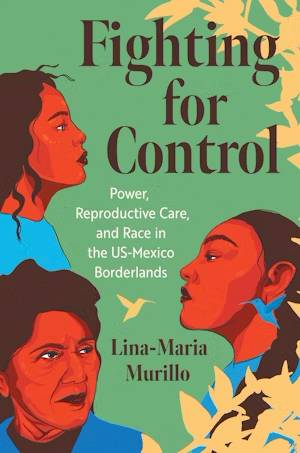
Based on the Lina-Maria Murillo’s book, Fighting for Control: Power, Reproductive Care, and Race in the US-Mexico Borderlands, this lecture will center on Chicana and Mexican-origin women activists as they fought to provide care to their communities in El Paso, Texas, throughout the twentieth century. Even as they confronted population control advocates and increased reproductive health scrutiny, they came together to help their families live and thrive opening clinics and organizing residents to demand health care on their own terms.
-
When Latinas Fought Fascism: Remembering and Recovering Activism through Writing and Public History
When Latinas Fought Fascism:
Remembering and Recovering Activism through Writing and Public History
Dr. Sarah McNamara | Texas A&M University
Tuesday, March 4, 2025 | 12:30 pm | TMH 101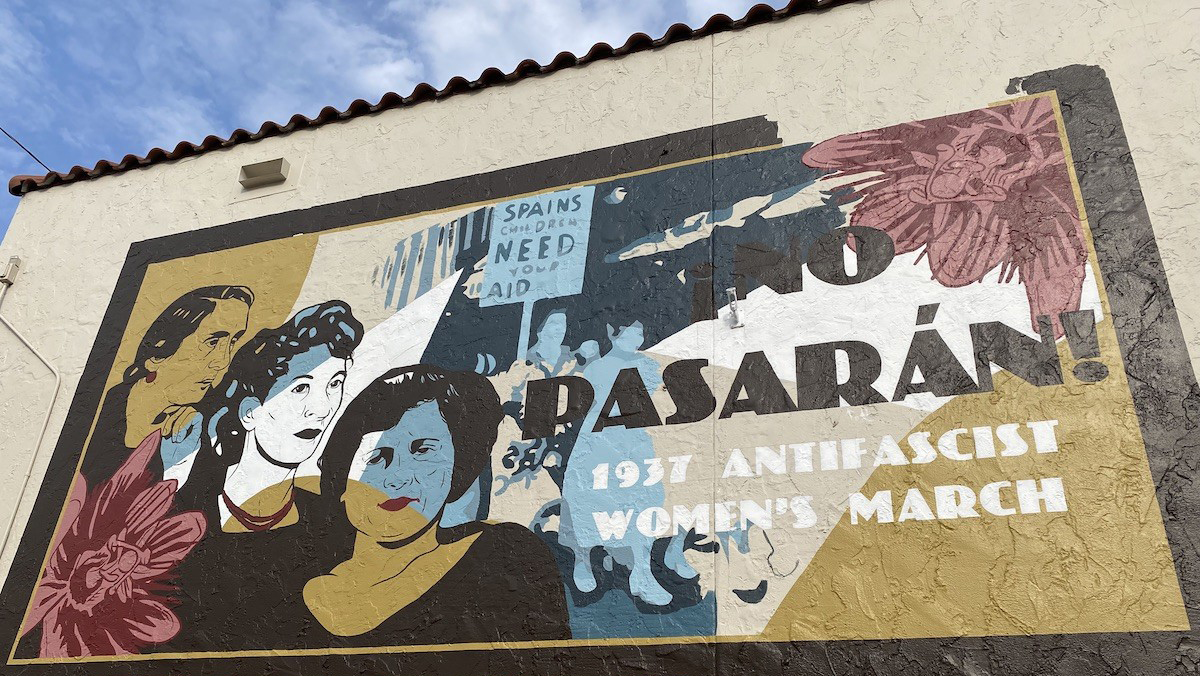
Feminist oral history and archival methods have helped transform our understanding of 20th century American history. Historian Sarah McNamara has focused on a key urban hub in the New South, tracing out the ways Latinas have carved a not-so delicate path in challenging and, some times, confirming politically exclusionary projects in the Jim Crow South. From Luisa Moreno coordinating a cigar roller’s strike to women defending Republican Spain during the Civil war, Dr. McNamara helps us understand the inspiring and troubling dimensions of women’s labor history in a trying time in U.S. history.
-
Saint Rosalía of Palermo in New Spain and New Mexico: Circulating Gender Roles in the New World
Saint Rosalía of Palermo in New Spain and New Mexico:
Circulating Gender Roles in the New World
Dr. Catherine Jaffe | Texas State University
Tuesday, March 18, 2025 | 2:00 pm | Brazos Hall & Online via Zoom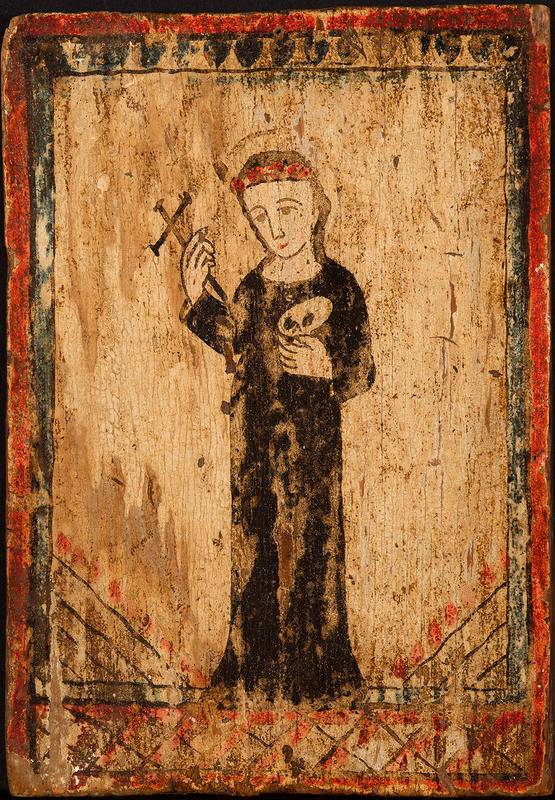
In the seventeenth and eighteenth centuries, the Society of Jesus circulated images and texts promoting the cult of Saint Rosalía of Palermo throughout Spain’s American viceroyalties. They thus introduced European models of femininity to the New World, adapting them to the local needs. This presentation will consider the visual and literary transformation of Saint Rosalia, patroness of Palermo, from medieval anchorite to Baroque protectress from plagues and earthquakes, to gender model in New Spain during the seventeenth, eighteenth, and nineteenth centuries.
Photo courtesy of the Mcnay Museum of Art
-
Space is my Barrio: The Brown-Blended Poetry Of Juan Manuel Perez
Space is my Barrio:
The Brown-Blended Poetry Of Juan Manuel Perez
Juan Manuel Pérez | Thursday, March 20, 2025
2:00 pm | Brazos Hall and Online via Zoom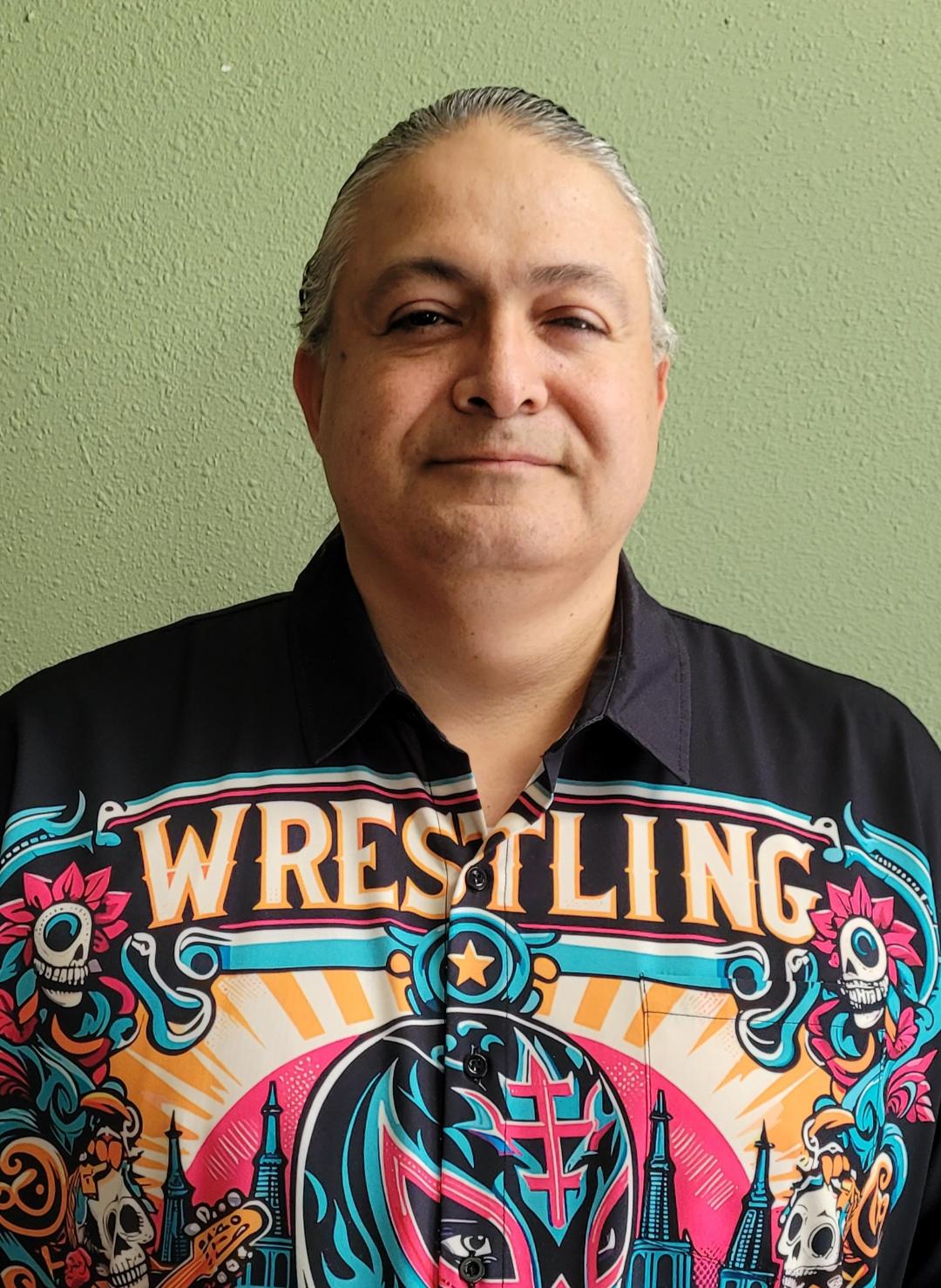
Join us for a presentation and reading by award-winning author, Juan Manuel Pérez. His poetry topics will include Chicano and Chicana futurismo, migrant fieldwork, Indigenous and Indigenous futurism, speculative writing, horror, cryptozoology, politics, food, family, and military life.
-
2025 CSSW Undergraduate Research Conference
2025 CSSW Undergraduate Research Conference
Congratulations to our 2025 CSSW Undergraduate Research Conference winners!
Poster Winner
- Memphis Mallory | 1st Place
Paper Winners
- Jessica Seajack | 1st Place
- Daniel Suarez | 2nd Place
- Memphis Mallory | 3rd Place
Creative Works Winners
- Miranda Treviño | 1st Place
- Brookelynn Andler | 2nd Place
Visit the Conference Portal for registration and more information.
-
2025 CSSW Undergraduate Research Conference
2025 CSSW Undergraduate Research Conference
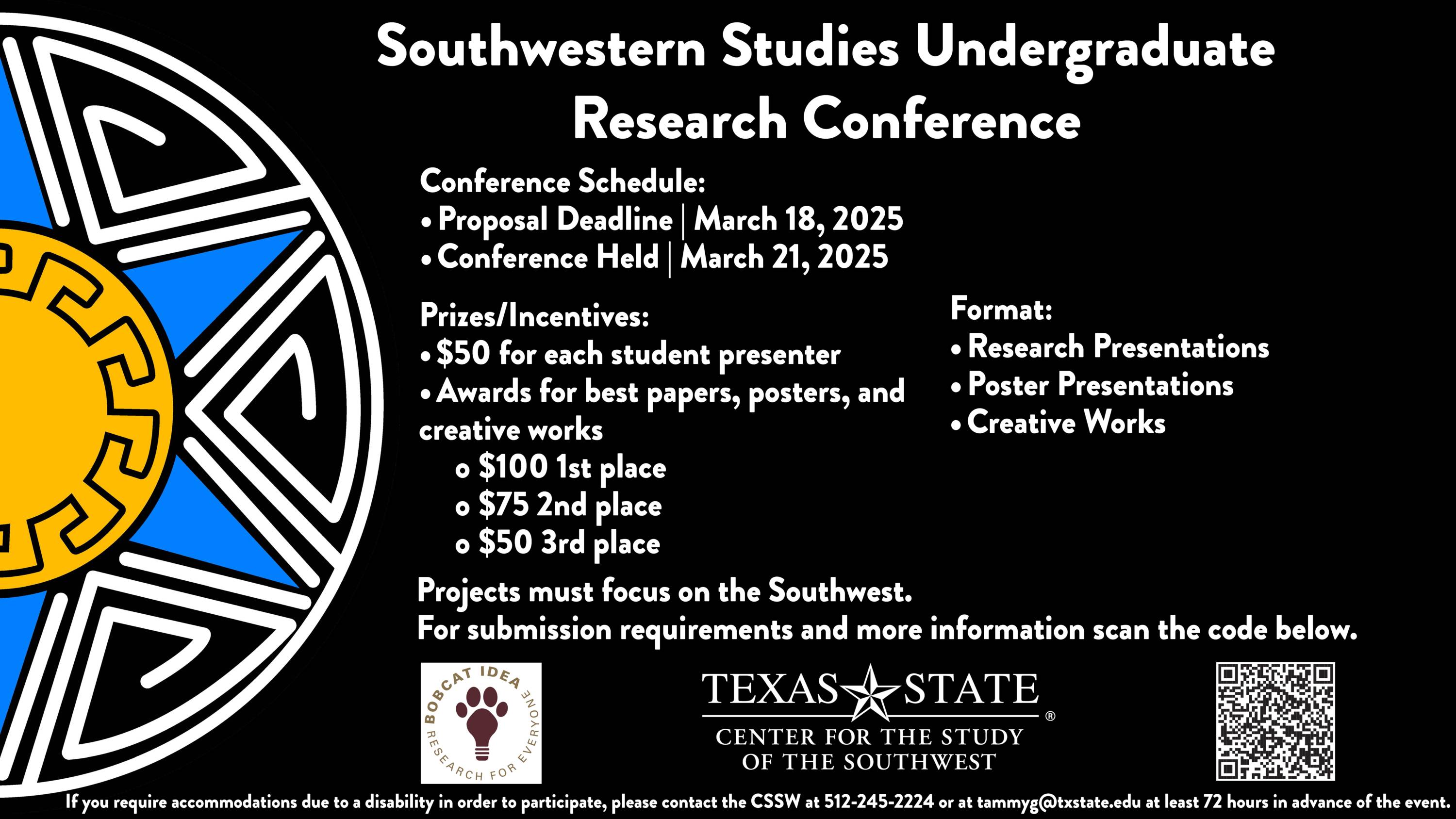
This multidisciplinary undergraduate research conference will highlight and award original works relating to Texas, the Southwestern United States, and Northern Mexico. We are interested in research that examines the region’s peoples, institutions, histories, cultures, and ecologies. Students are encouraged to submit research or creative works from past or current classes.
The conference will be held from 10:00 am - 1:00 pm on Friday, March 21, 2025.
Visit the Conference Portal for registration and more information.
-
Straight out of El Paso: The Anthropology of Thickening Borders
Straight out of El Paso:
The Anthropology of Thickening Borders
Dr. Gilberto Rosas | University of Illinois Urbana-Champaign
Tuesday, March 25, 2025 | 12:30 pm | TMH 101 and Online via Zoom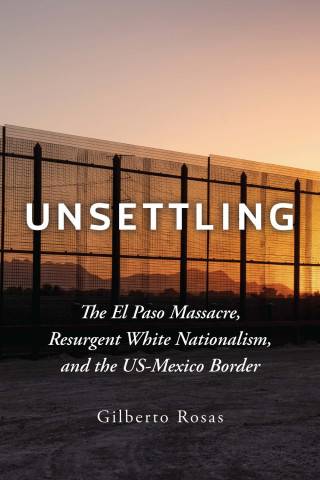
Borders, as sites of robust crossings and spaces long inhabited by marginalized populations, generate deep anxiety across much of the contemporary world. Rosas demonstrates how 21st century US presidential regimes have amplified and weaponized immigration and border policy, including family separation, torture, and murder. None of this dehumanization and violence was inevitable, however. The border zone in El Paso (which translates to "the Pass") was once a very different place, one marked by regular and inconsequential crossings to and from both sides—and, it could become that once again.
-
The Food Voice of Black Freedom: A View from Food Power Politics
The Food Voice of Black Freedom:
A View from Food Power Politics
Dr. Bobby J. Smith II | University of Illinois Urbana-Champaign
Thursday, March 27, 2025 | 12:30 pm | TMH 101 & Online via Zoom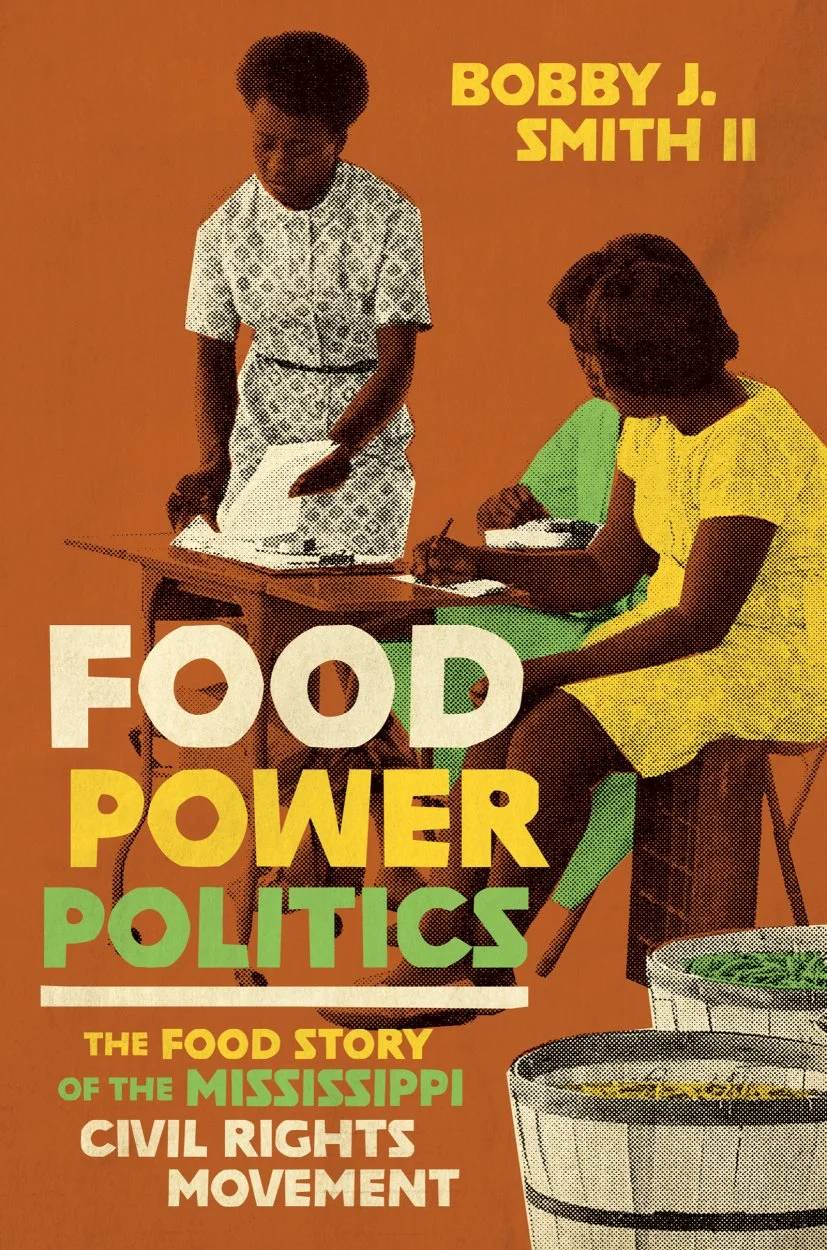
Food Power Politics reconfigures how we understand the American Civil Rights Movement, uses the movement in Mississippi as a litmus test to measure how Black people interface with the nation’s food system, and identifies blind spots that illuminate the persistence of food inequities.
This talk is organized by African American Studies and co-sponsored by the Center for the Study of the Southwest.
-
First We Bombed New Mexico
First We Bombed New Mexico
Lois Lipman | Producer & Director
Tuesday, April 1, 2025 | 2:00 pm | Brazos Hall & Online via Zoom
After the United States detonated the world's first nuclear bomb - codename Trinity - in southern New Mexico, Tina Cordova, a cancer survivor, has reinvogorated a movement demanding justice for a legacy of lethal radiation. Lois Lipman, filmmaker, discusses the film, the bomb and the movement.
-
Texas: An American History
Texas: An American History
Dr. Benjamin Johnson | Loyola University Chicago
Thursday, April 10, 2025 | 12:30 pm | TMH 101 and Online via Zoom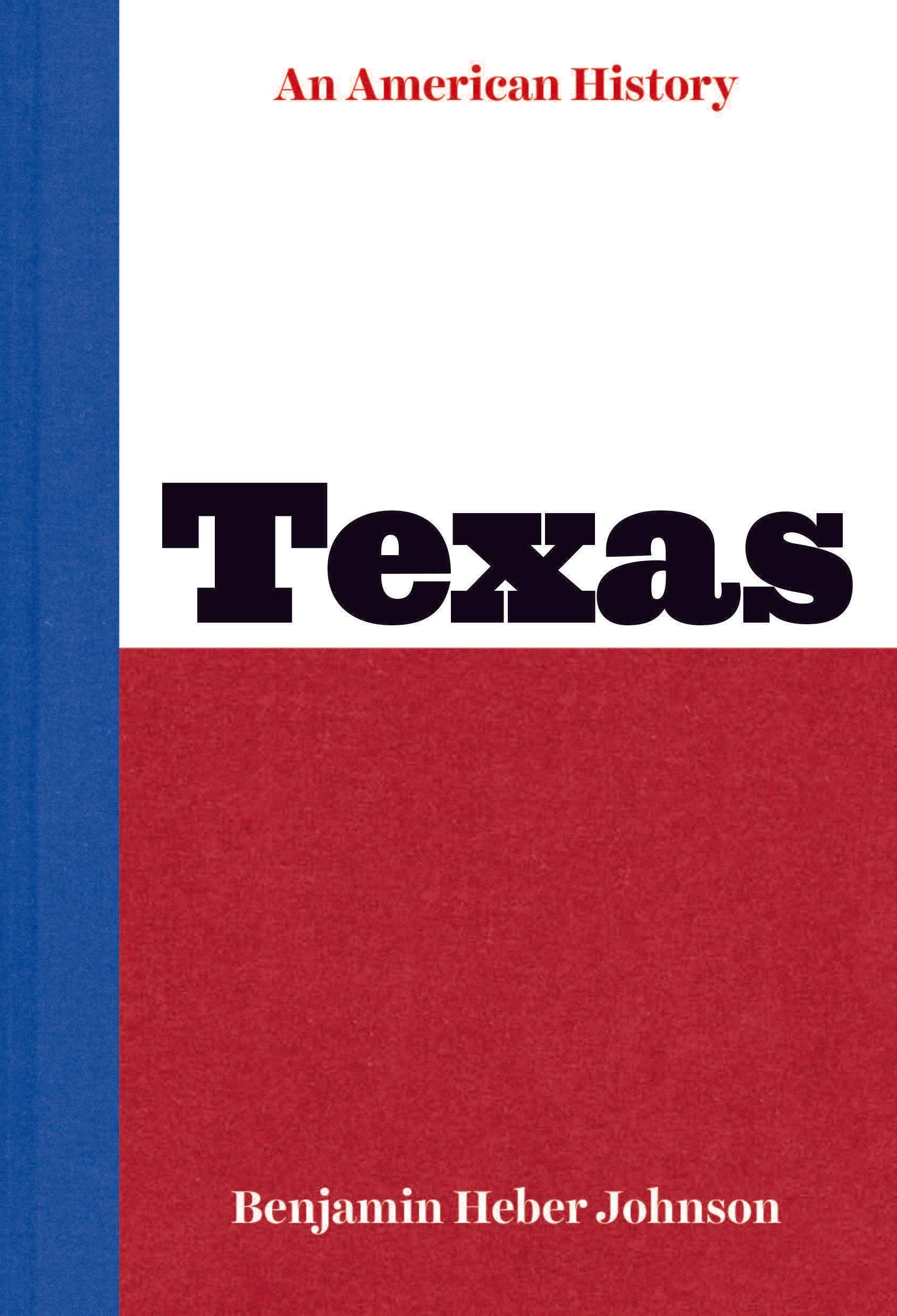
When Americans turn on their laptops, play video games, go to church, vote, eat TexMex, buy groceries, listen to music, grill steaks, or watch football, they are paying tribute to Texas. Johnson’s lecture shines new light on why Texas has had such a powerful influence on U.S. history.
Texas historian Ben Johnson decided to put together a history of Texas that emphasized connections to the world, not differences. This is that book.
-
On a NASA Flight to Heaven: A Reading
On a NASA Flight to Heaven: A Reading
Dr. D. Seth Horton | University of Virginia
Thursday, April 10, 2025 | 3:30 pm | Brazos Hall & Online via Zoom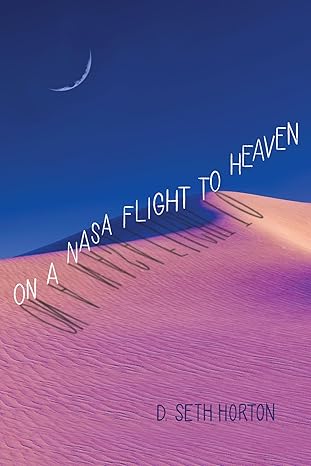
Set throughout the U.S.-Mexico borderlands, the stories in On a NASA Flight to Heaven explore the various ways in which the border fractures traditional narratives. Standing between North American and Latin American literary traditions, these stories are highly speculative in their approach. By consistently blurring together the genres of fiction and nonfiction, and by furthermore resisting all gestures towards completeness and finality, this collection of stories offers a completely novel interpretation of the borderlands.
-
Unholy Sensations: A Story of Sex, Scandal, and California's First Cult Scare
Unholy Sensations: A Story of Sex, Scandal, and California's First Cult Scare
Drs. Joshua Paddison, Jennifer Graber, and Joseph Laycock
Friday, May 2, 2025 | 12:30 pm | Brazos Hall & Online via Zoom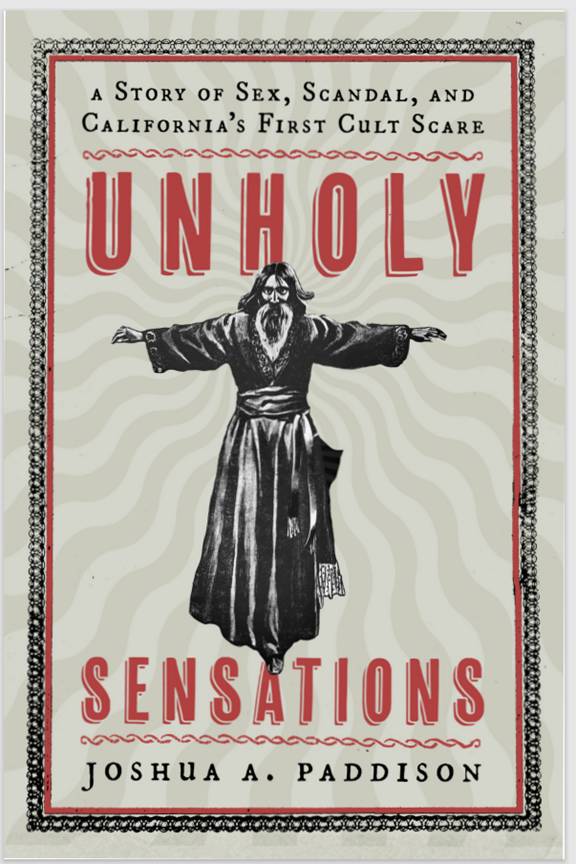
The project takes a close-up look at the Fountaingrove scandal to examine religion, gender, sexuality, and race in the Gilded Age from a fresh perspective. By chronicling the life stories of the people swept up in the scandal, Unholy Sensations reveals connections and tensions between a wide variety of nineteenth-century religious and social groups, including suffragists and spiritualists, Christian Scientists and Theosophists, journalists and politicians, and Protestant ministers and urban reformers. Together, these disparate groups helped spark California's first cult scare, demonizing Harris as the first-but far from the last-dangerous California cult leader. By showing that the term “cult” has always been a marker of race, sexuality, and religion, Unholy Sensations reveals the limits of American freedom and the centrality of religion to the policing of whiteness, family, and nation.
-
-
2024 News and Events
-
Indigenous Borderlands: A Book Celebration and Dialogue | Dr. Cynthia Radding, Dr. Erick D. Langer, and Dr. Joaquín Rivaya-Martínez
Indigenous Borderlands: A Book Celebration and Dialogue
Dr. Cynthia Radding, Dr. Erick D. Langer, and Dr. Joaquín Rivaya-Martínez
Thursday, January 25, 2024 | 2:00 pm | Flowers Hall 230 & Online via Zoom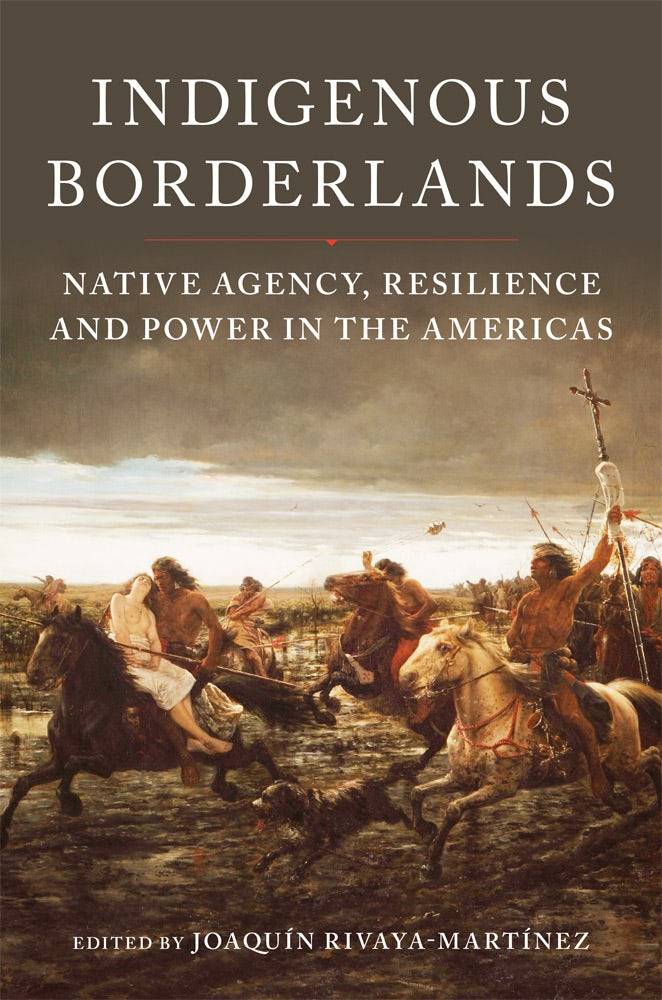
Contrary to conventional wisdom, the Natives of the Americas were not doomed after 1492. As the participants in this dialogue will discuss, many Indigenous peoples exercised considerable power and sovereignty after contact with Europeans.
The book brings together selected national and international scholars whose research engages with past and present Native communities across the Western Hemisphere. Indigenous people, who often occupy a marginal space in the scholarship on the history of the Americas, are the protagonists of this far-reaching revisionary work, in which pervasive myths of European domination and Indigenous submission receive an overdue corrective.
-
Remembering M. Scott Momaday
M. Scott Momaday spoke here in San Marcos in October 1993. This was the second lecture in the series “American Indians Out West: Abiding Earth, Restless Sky,” part of the early programming of the Center for the Study of the Southwest. M. Scott Momaday embodied a broad humanistic inquiry into the physical and cultural ecology of the diverse peoples of the Southwest. In this presentation, the poet and novelist traced out aspects of Kiowa migrations, displacements and detentions that shaped his life and as well as centuries of Kiowa history.
On January 29, 2024, we learned of the sad news of M. Scott Momaday’s passing. Our thoughts are with M. Scott Momaday’s family and communities, as well as everyone who has been shaped by his writings.
For many people, M. Scott Momaday looms large. Mark Busby, our first director, had the lecture and discussion videotaped, part of a larger effort to promote artists and cultures in the making of the Southwest. We share this video and transcript to honor M. Scott Momaday’s generosity, his commitment to a public sharing of his work, and his sense of place, particularly as one of the key authors who helped shape an earlier renaissance in American Indian Fiction. As M. Scott Momaday pointed out about his journeys and residences across Oklahoma, Texas, New Mexico and Arizona, “I can't think of a better geography upon which to center my writing, and I have seen much of the world. Finally, I suppose we have no choice in the matter. We write of our time and place and of our investment in that place and at that time.”
-
Land Holding, Land Taking and the Geography of Violence | Dr. Danielle Purifoy, Dr. Annette Rodriguez, & Dr. Louise Seamster
Land Holding, Land Taking and the Geography of Violence
Dr. Danielle Purifoy, Dr. Annette Rodriguez, & Dr. Louise Seamster
Monday, February 12, 2024 | 12:30 pm | Brazos Hall & Online via Zoom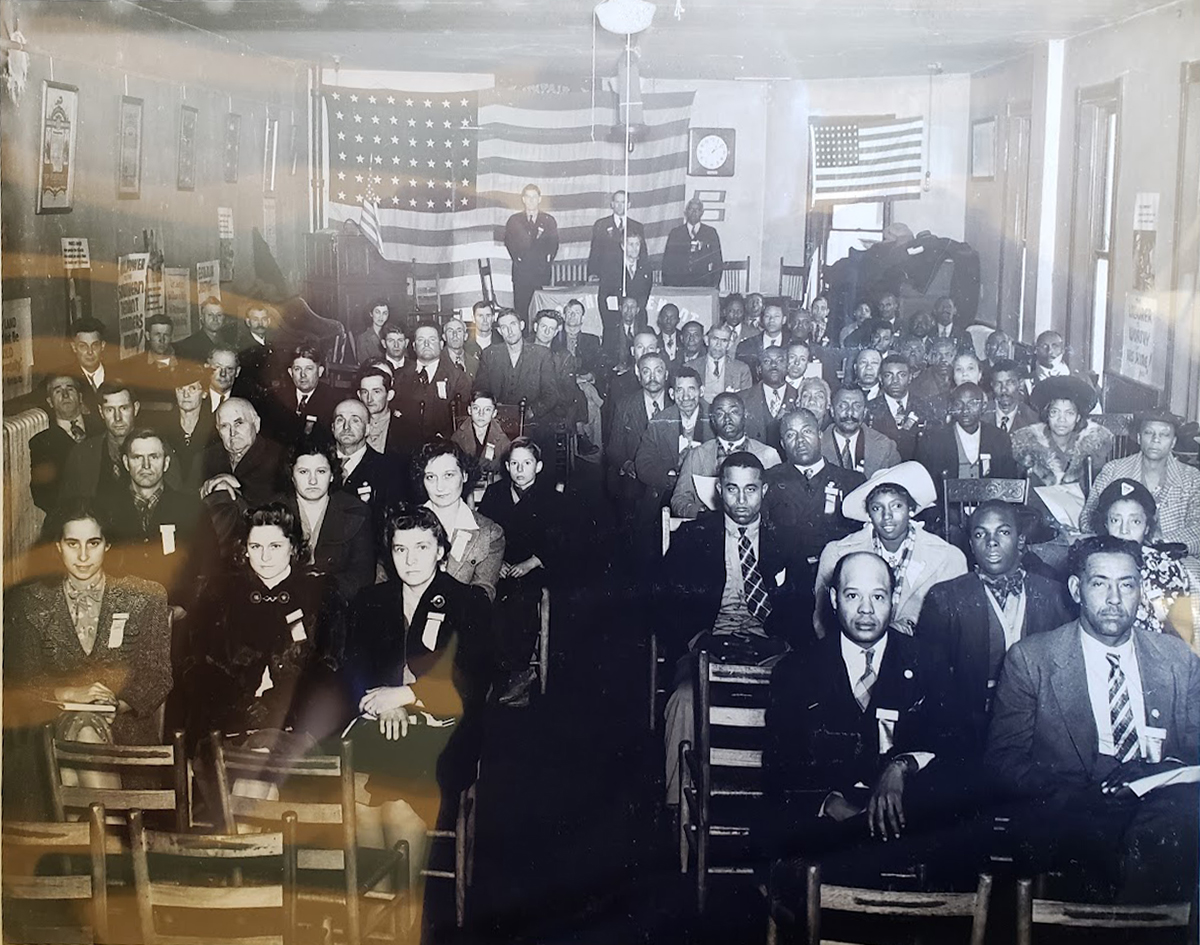
The structures that shape the way Black and Latino communities make place in rural America: an interdisciplinary Liberal Arts roundtable. Historian Annette Rodriguez, Sociologist Louise Seamster and Geographer Danielle Purifoy share what they have learned through their research on Black and Mexican land grants; Tamina and the growth of the Woodlands; and golf resorts and Black rural displacement.
-
Creative Extraction: Black Towns in White Space | Dr. Danielle Purifoy & Dr. Louise Seamster
Creative Extraction: Black Towns in White Space
Dr. Danielle Purifoy & Dr. Louise Seamster
Monday, February 12, 2024 | 6:30 pm
Centro Cultural Hispano de San Marcos | 211 Lee Street, San Marcos, Texas 78666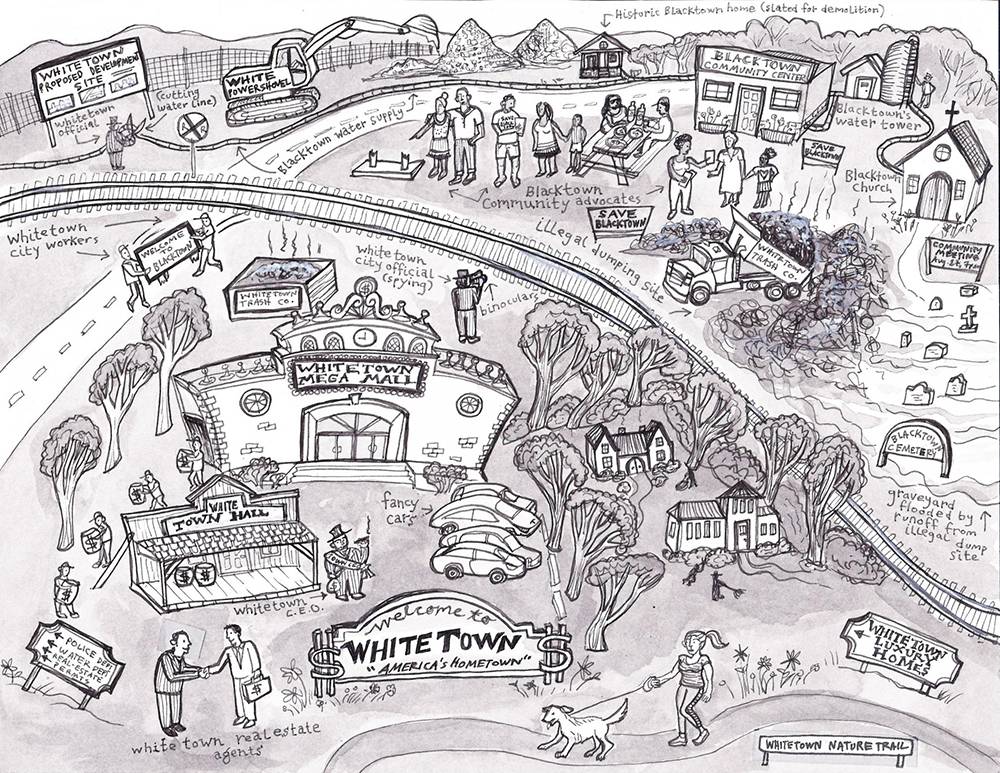
Suburbs and destination-resorts take from the Black towns that predated the new towns' post-Civil Rights arrival. Purifoy and Seamster propose illuminating some of these so-called anomalies through Charles Mills’ “racial contract,” which we argue structures space at a deeper level than traditional legal arrangements and allows us to look relationally at Black towns in “white space.”
-
Everyday Monsoons, or the Structural Ecology of Desert Washes and Other Gaps | Dr. Jayson Maurice Porter
Everyday Monsoons, or the Structural Ecology of Desert Washes and Other Gaps
Dr. Jayson Maurice Porter
Tuesday, February 13, 2024 | 12:30 PM | Brazos Hall & Online via Zoom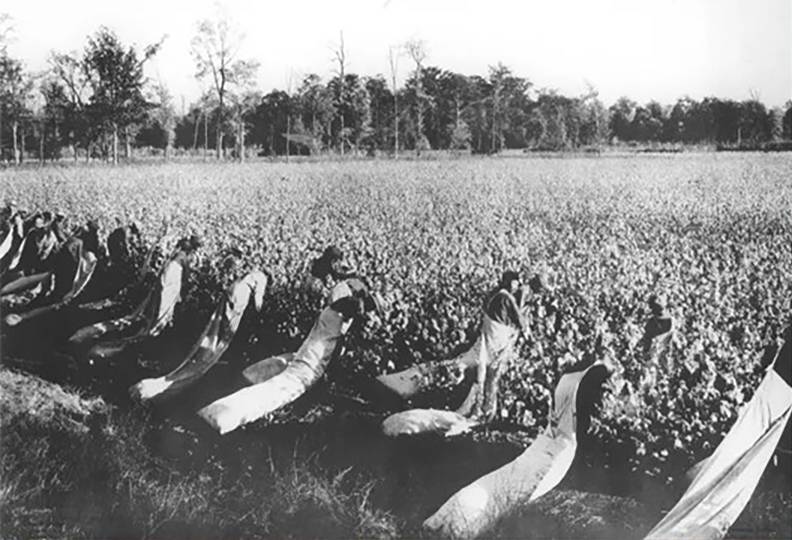
Black, Mexican, Indigenous histories of race, empire, and cotton in the Sonoran Desert are told through the author's move to Tucson, AZ (and through its desert washes) in January 2002, the driest month to-date in the Sonoran Desert in 1,500 years. This is the first chapter of a historically minded book-length reflection on environments and empire moving between the Mexican Pacific and the American Southwest.
-
French Vice in Texas: Migration, Trafficking, and Indecent Work in the Early Twentieth Century | Dr. Elisa Camiscioli
French Vice in Texas:
Migration, Trafficking, and Indecent Work in the Early Twentieth Century
Dr. Elisa Camiscioli
Thursday, February 15, 2024 | Flowers Hall 230 | 11:00 am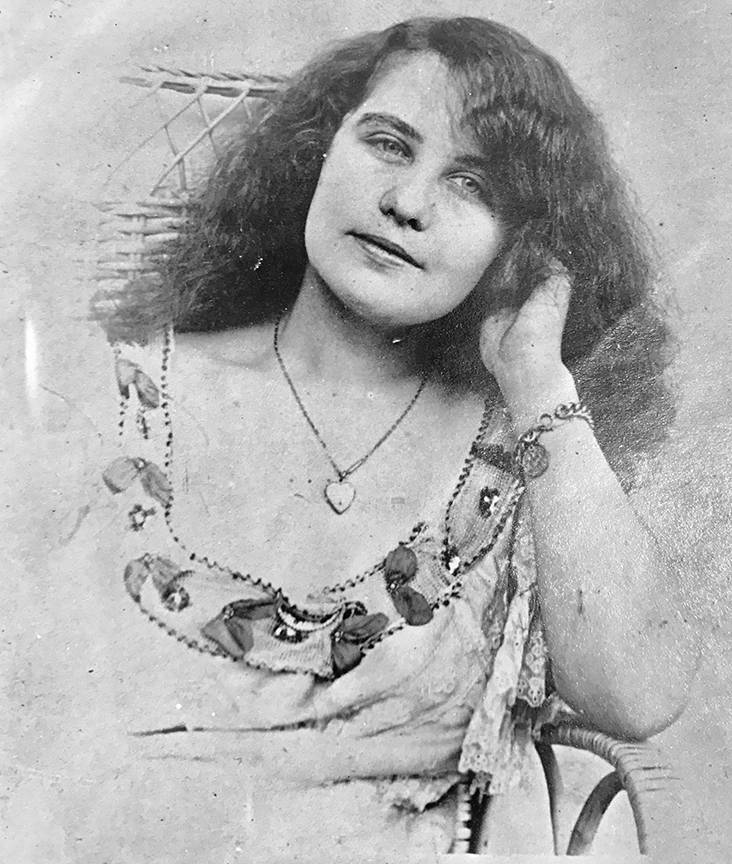
This presentation recasts the moral panic of “trafficking” as a key moment in migration history. By exploring three case studies of French migrants in Texas, Dr. Camiscioli shows how the victims and villains of the first international campaign against trafficking should be understood as entrepreneurial migrants instead.
-
Oral History & Mexican America | Dr. Marla Ramirez Tahuado, Anita Collins & Gina Alva Rogers
Oral History & Mexican America
Dr. Marla Ramirez Tahuado, Anita Collins & Gina Alva Rogers
Thursday, February 22, 2024 | 6:00 pm
Centro Cultural Hispano de San Marcos | 211 Lee St. San Marcos, TX 78666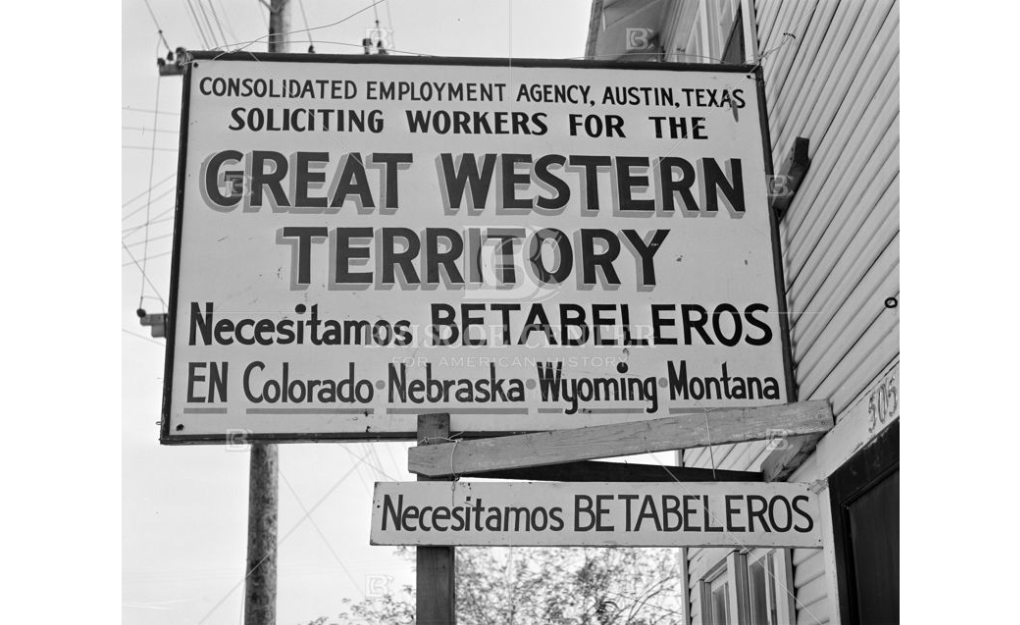
Oral historians can provide insight into underdocumented histories. Dr. Marla Ramirez Tahuado reflects on the cross-generational impact of the Great Repatriation of the 30s. Anita Collins and Gina Alva Rogers share how oral histories have helped shape their public history work on Mexican Americans and Jim Crow in Hays County.
-
Gendered Banishment: Rewriting Mexican Repatriation Through a Transgenerational Oral History Methodology | Dr. Marla Ramirez Tahuado
Gendered Banishment:
Rewriting Mexican Repatriation Through a Transgenerational Oral History Methodology
Dr. Marla Ramirez Tahuado
Thursday, February 22, 2024 | 12:30 pm | TMH 104 & Online via Zoom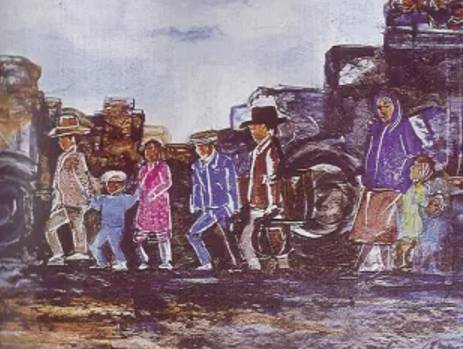
In the Great Depression, the United States expelled ¾ million ethnic Mexicans, 2/3rds of which were U.S. citizens. Historian Marla Ramirez Tahuado rigorously uses multi-generational oral histories with women to understand the legacy of this banishment.
-
Criminalizing Abortion before Roe: Understanding the California Experience, 1920-1969 | Dr. Alicia Gutierrez-Romine
Criminalizing Abortion before Roe:
Understanding the California Experience, 1920-1969
Dr. Alicia Gutierrez-Romine
Thursday, March 21, 2024 | 6:00 pm | Brazos Hall and Online via Zoom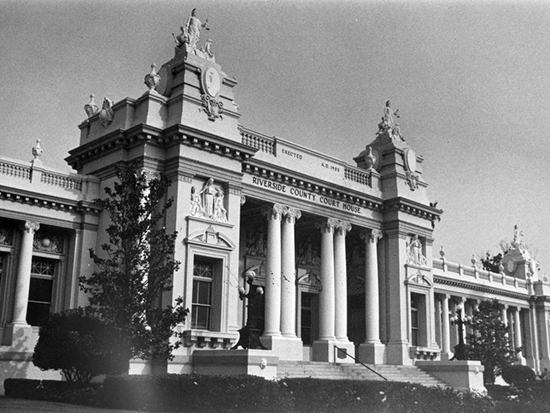
Her book, From Back Alley to the border, examines the history of criminal abortion in California and the role abortion providers played in exposing and exploiting the faults in California’s anti-abortion statute throughout the twentieth century. Focused on the patients who used this underground network and the physicians who facilitated it, Gutierrez-Romine provides insight into the world of illegal abortion from the 1920s through the 1960s, including regular physicians as well as women and African American abortionists, and the investigations, scandals, and trials that surrounded them.
-
HaMapah/The Map Dance-on-Film
HaMapah/The Map Dance-on-Film
Concept, Choreography, and Performance, Adam W. McKinney
Cinematography and Editing Laura Bustillos Jáquez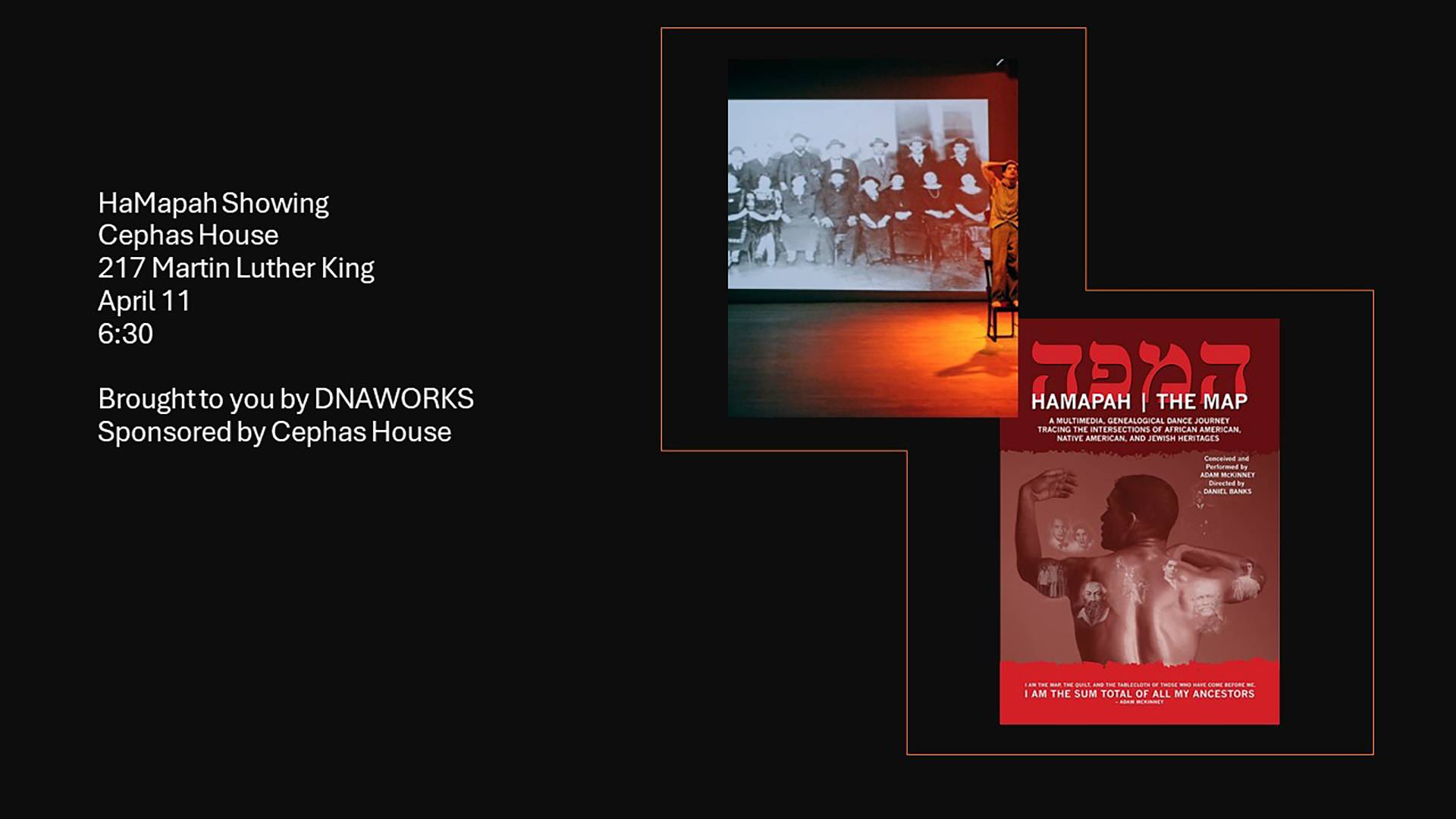
HaMapah/The Map Dance-on-Film is a multimedia, genealogical journey that traces the intersections of Adam W. McKinney's African American, Native American, and Jewish heritages. The film weaves contemporary dance with archival material, personal interviews, and music ranging from Eartha Kitt and Felix Mendelssohn to John Jackson and Yiddish songs.
-
Pushing Women from the Back Alley to the Border: Criminalizing Abortion in California, 1920-1969 | Dr. Alicia Gutierrez-Romine
Pushing Women from the Back Alley to the Border:
Criminalizing Abortion in California, 1920-1969
Dr. Alicia Gutierrez-Romine
Thursday, March 21, 2024 | 11:00 am | Brazos Hall and Online via Zoom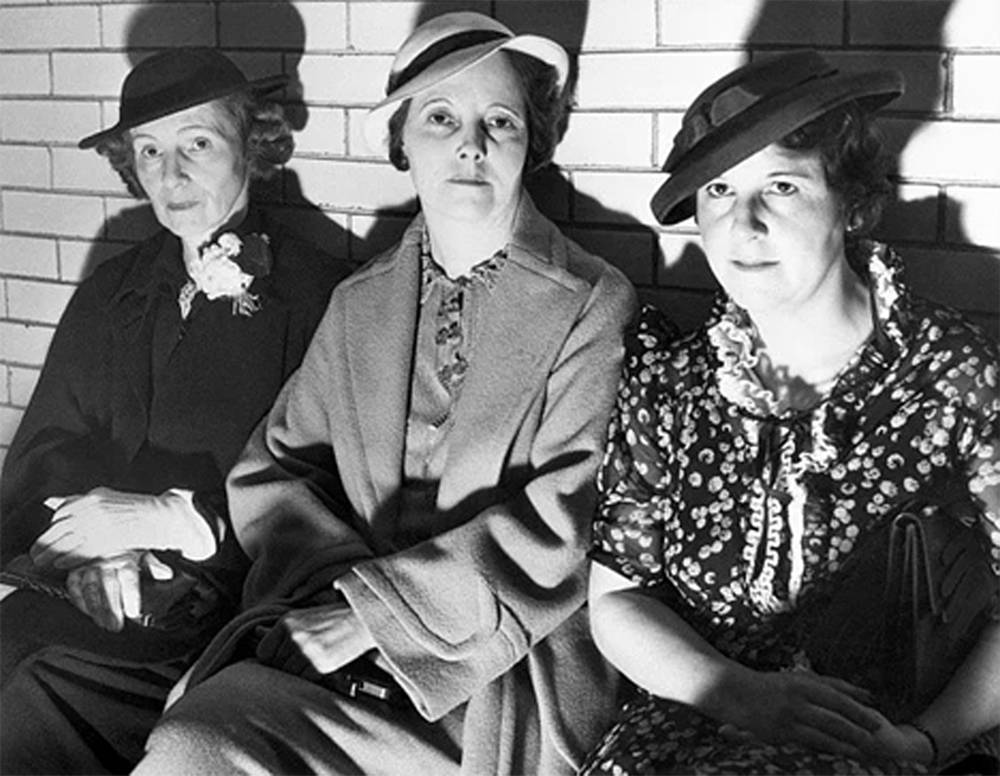
Focused on the patients who used this underground network and the physicians who facilitated it, Gutierrez-Romine provides insight into the world of illegal abortion.
-
Southwestern Studies Undergraduate Research Conference
Featured Event
Southwestern Studies Undergraduate Research Conference
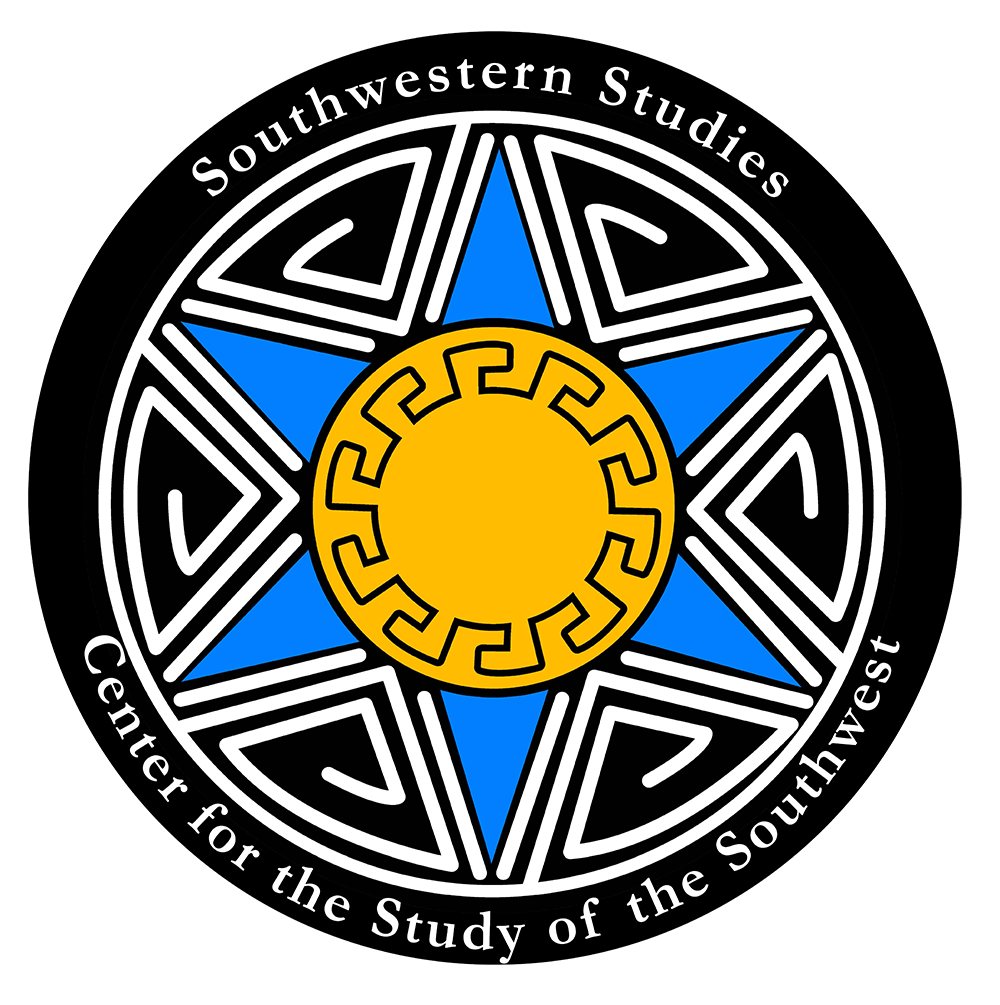
The Center for the Study of the Southwest is excited to announce our first annual Southwestern Studies Undergraduate Research Conference!
The conference will highlight and award original works relating to Texas, the Southwestern United States, and Northern Mexico. We are interested in research that examines the region’s peoples, institutions, histories, cultures, and ecologies. Students are encouraged to submit research or creative works from past or current classes.
Please visit the conference page for more information and abstract submission.
-
Congratulations to our CSSW Undergraduate Student Research Conference Winners!
Congratulations to our CSSW Undergraduate Student Research Conference Winners!
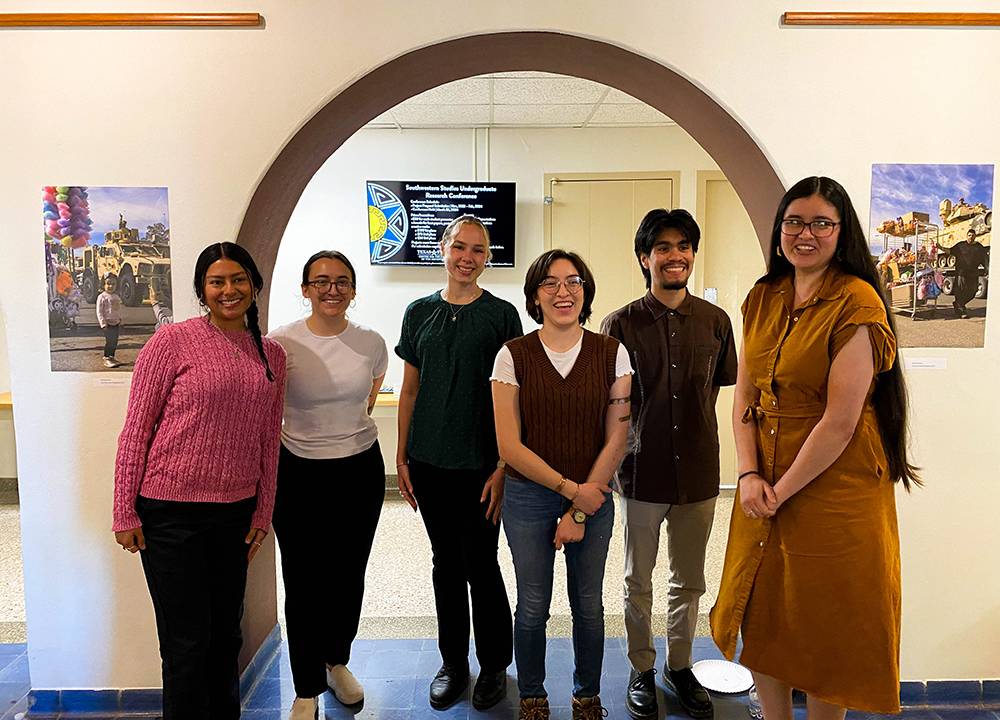
Paper Presentation Winners
- Emmanuel Hernandez | Caminando en La Victoria: Examining the Uses and Meanings of Green Space in a Latin Neighborhood in San Marcos, Texas
- Halle Dobbs | Recognition of Japanese Assimilation in Los Angeles in the 1920s and 1930s
- Idaly Soto | Land Grants in Texas: The Displacement after the U.S. Mexico War
Creative Works Winners
- Adriana Montoya | Re-membering la Frontera: Reclaiming Borderland Narratives Through Place and Storytelling
- Gabriela Moreno | Sun City
Honorable Mentions
- Martha Izaguirre | Bracero’s Program’s mental and physical affects on Mexican Migrant Workers (paper)
- Angus Dunn | Experimentation with a Unique Artifact from Northern Mexico and West Texas for Making Stone Tools (poster)
-
Public History Alumni help with foundation document for Blackwell School National Historic Site
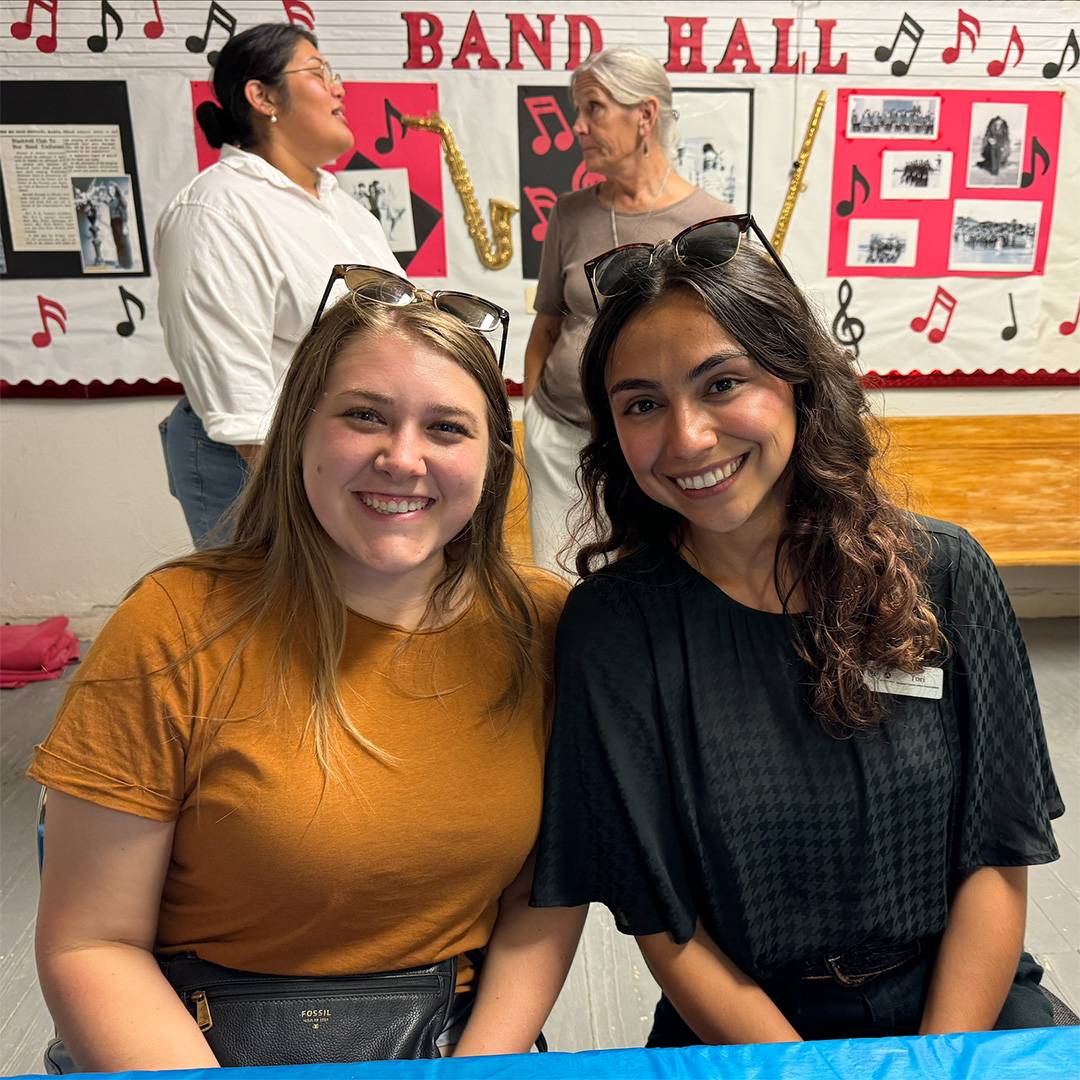
In late August, CSSW Director, John Mckiernan-González , and TXST Public History alumni Avery Armstrong and Tori Villarreal had the opportunity to participate in the foundation document workshop for the new Blackwell School National Historic Site in Marfa, TX with the National Park Service. Avery and Tori have both worked extensively on collecting and documenting the histories of local communities throughout the Southwest – from Hays County to far West Texas. The creation of the Blackwell School's foundation document is an essential step in the site's designation as a National Historic Site.
-
Exhibit | Sun City by Gabriela Moreno
Exhibit | Sun City by Gabriela Moreno
Closing Reception | Thursday, September 5, 2024
2:00 pm | Brazos Hall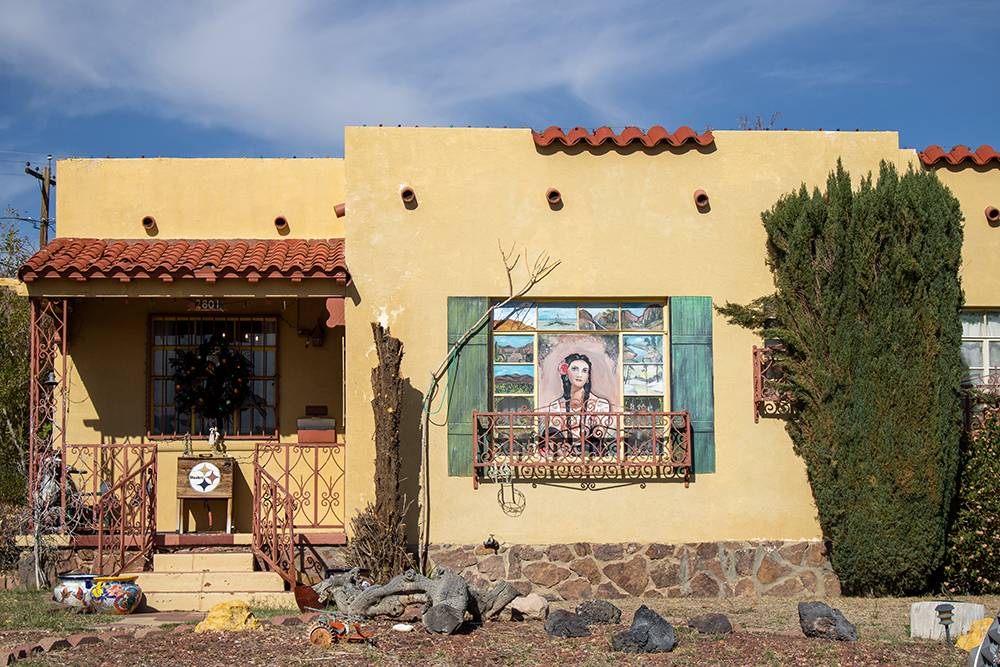
Made in El Paso, Texas on Thanksgiving weekend of 2023, these pictures document aspects of community life in El Paso. Home to one of the nation’s largest military bases and located on the U.S.-Mexico border, El Paso is a unique cultural place, distinct from the other Texan cities both in its diverse heritage as a long-standing place of exchange and crossing and its striking basin and range landscape.
-
Dr. Sarah Blue Named Jesse H. and Mary Gibbs Jones Professor of Southwestern Studies for 2024-2027
Dr. Sarah Blue Named Jesse H. and Mary Gibbs Jones Professor of Southwestern Studies for 2024-2027
The Jones Professor Welcome Reception Will Be Held
Wednesday, September 18, 2024 | 2:00 pm | Brazos Hall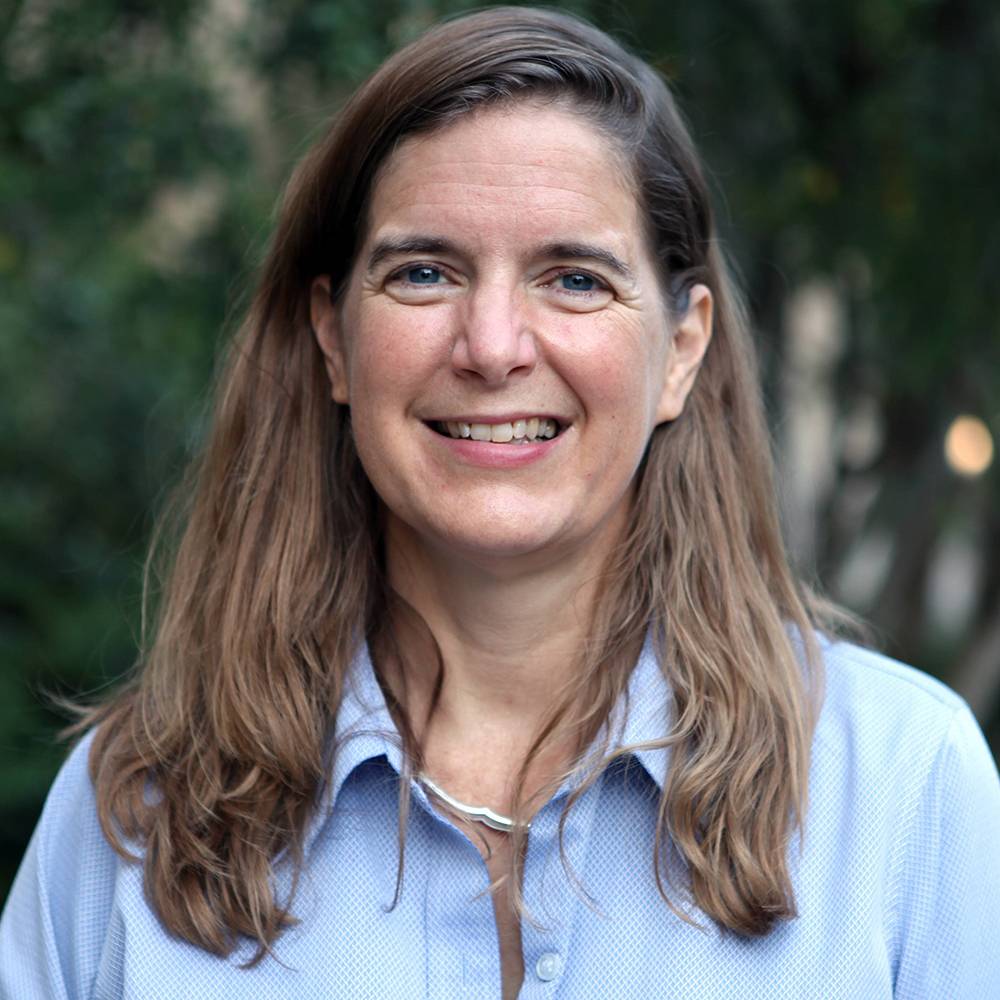
The CSSW is pleased to announce the appointment of Dr. Sarah Blue, Associate Professor in the Department of Geography and Environmental Studies, as the Jesse H. and Mary Gibbs Jones Professor of Southwestern Studies for 2024 through 2027.
Dr. Sarah Blue has maintained an ongoing interest in the political geography of migration, gender, and development studies, even as the place, location and focus of the projects have changed. Dr. Blue graduated from the University of Denver with undergraduate majors in geography and philosophy. She completed her master’s degree at the University of Minnesota, focusing the mobilization of Guatemalan refugee women. Her dissertation from the University of California, Los Angeles emphasized the shaping of socio-economic inequality in Cuba. -
The Woman in Blue: How Native Storytellers Turned a Bilocating Nun into an Expression of Indigenous Geopolitics
The Woman in Blue:
How Native Storytellers Turned a Bilocating Nun into an Expression of Indigenous Geopolitics
Dr. Juliana Barr | Friday, September 27, 2024
1:00 pm | Flowers Hall 230 | Reception to Follow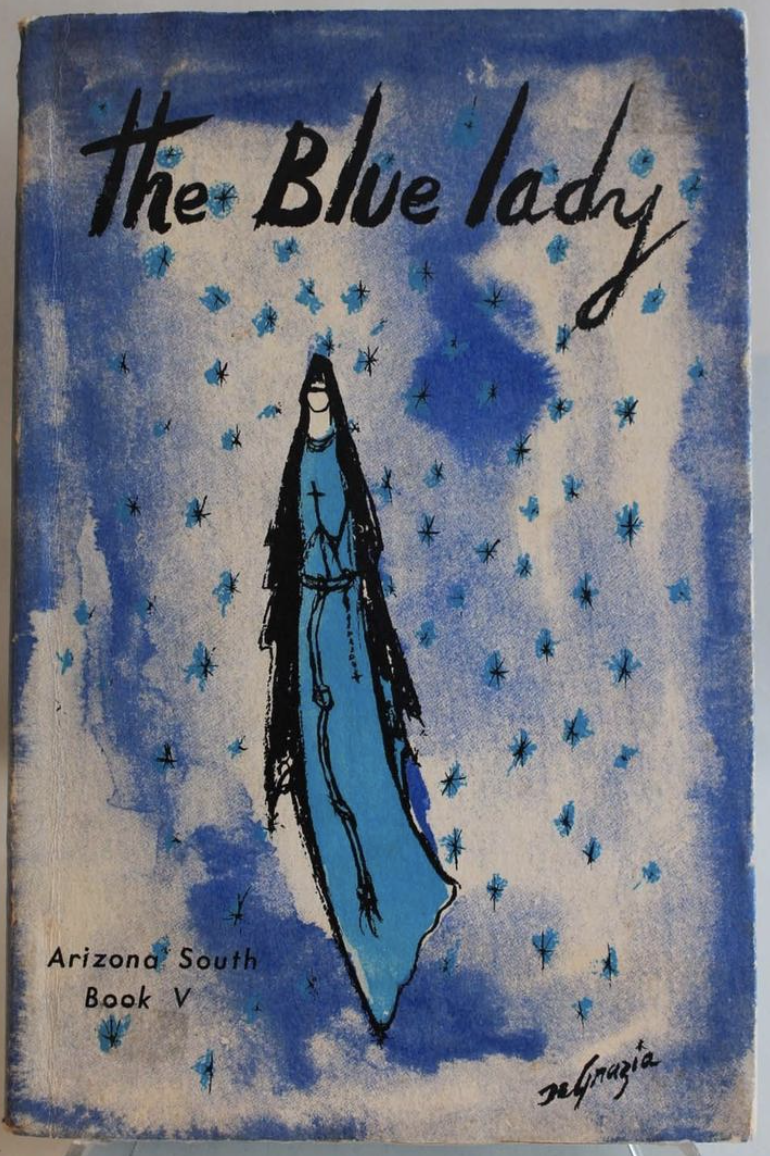
Juliana Barr will discuss findings from a book manuscript she is now finishing up – La Dama Azul: How to Tell Colonial History in a Supernatural Idiom – that explores the Indigenous side to a seventeenth-century Spanish miracle tale that spread across the far northern provinces of New Spain (what later became Texas, New Mexico, and Arizona). The Spanish story told of a nun in Spain who was carried to the Americas by angels and, with their aid, miraculously appeared in the sky to Native people, told them of Christianity, and encouraged them to seek out conversion.
-
Book Talk | They Call you Back by Tim Z. Hernandez
Book Talk | They Call you Back by Tim Z. Hernandez
Wednesday, October 9, 2024 | 6:30 pm
Centro Cultural Hispano de San Marcos | 211 Lee St. San Marcos, TX 78130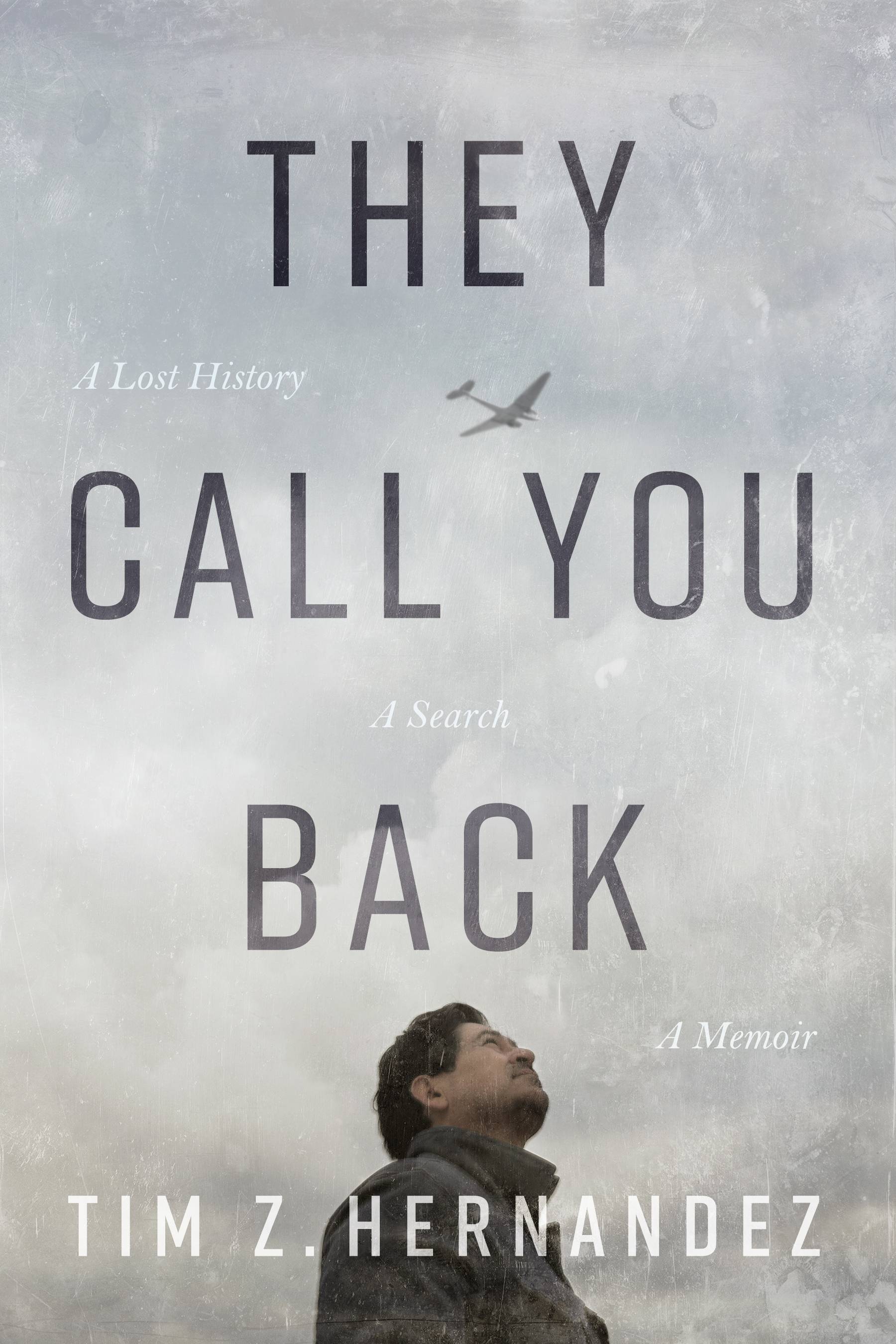
Hernandez’s mission to find the families of the twenty-eight Mexicans who were killed in the 1948 plane wreck at Los Gatos Canyon formed the basis for his acclaimed documentary novel All They Will Call You, which The San Francisco Chronicle dubbed “a stunning piece of investigative journalism,” and The New York Times hailed as “painstaking detective work by a writer who is the descendent of farmworkers.”
In this riveting new work, Hernandez continues his search for the plane crash victims while also turning the lens on himself and his ancestral past, revealing the tumultuous and deeply intimate experiences that have fueled his investigations—a lifelong journey haunted by memory, addiction, generational trauma, and the spirit world.
-
Book Talk | They Call you Back
Book Talk | They Call you Back
Tim Z. Hernandez | Thursday, October 10, 2024
2:00 pm | Brazos Hall
In this riveting new work, Hernandez continues his search for the plane crash victims while also turning the lens on himself and his ancestral past, revealing the tumultuous and deeply intimate experiences that have fueled his investigations—a lifelong journey haunted by memory, addiction, generational trauma, and the spirit world.
They Call You Back is the true chronicle of one man’s obsession to restore dignity to an undignified chapter in America’s past, while at the same time making a case for why we must heal our personal wounds if we are ever to heal our political ones.
-
Film Screening | Las Abogadas
Film Screening | Las Abogadas
Charlene D'Cruz | Wednesday, October 16, 2024
Reception 6:00 pm | Program 6:30pm
Cephas House | 217 Martin Luther King Dr., San Marcos; TX 78666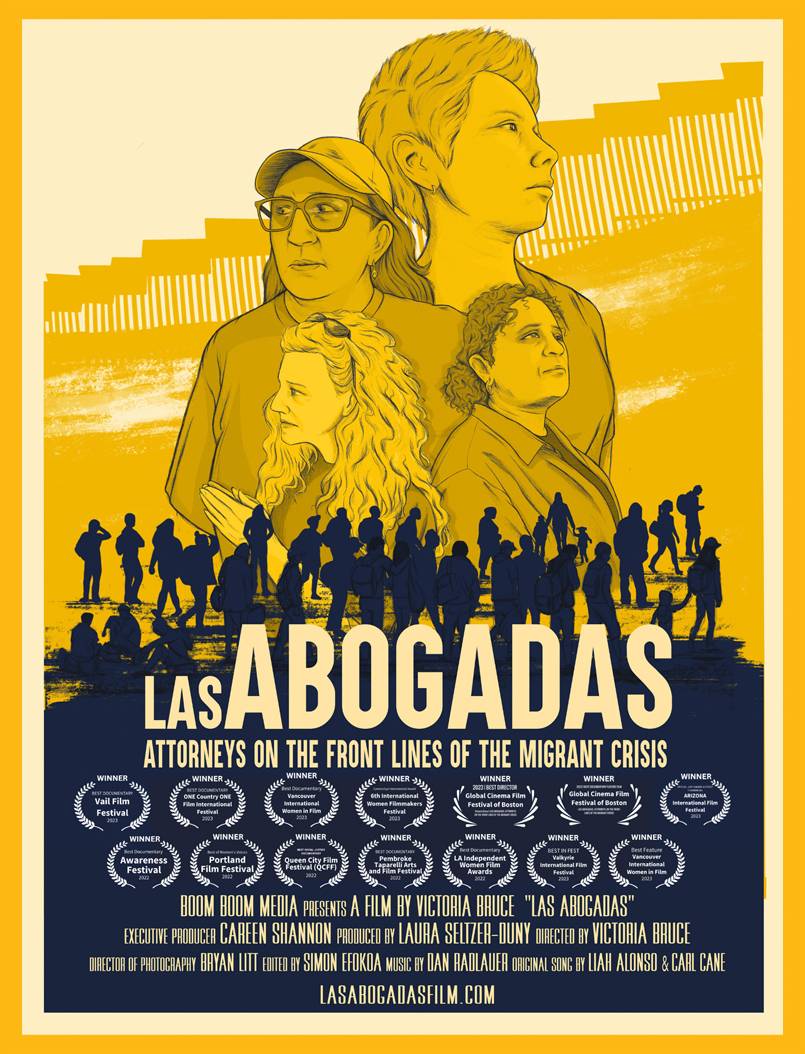
Las Abogadas follows four immigration attorneys over a multi-year odyssey as the U.S. government under President Trump upends every law meant to protect those fleeing from persecution, violence and war. From setting up a legal clinic in a Volkswagen bus in the middle of five thousand desperate migrants, to persuading border guards to follow the law and accept a blind woman into U.S. custody, to crossing the border to counsel African migrants stuck in Tijuana, to giving legal advice in the brutally hot Mexican sun to families desperate to see American soil—we watch our characters’ surreal journeys to try and help.
-
Joaquín Rivaya-Martínez Wins Ray Allen Billington Prize
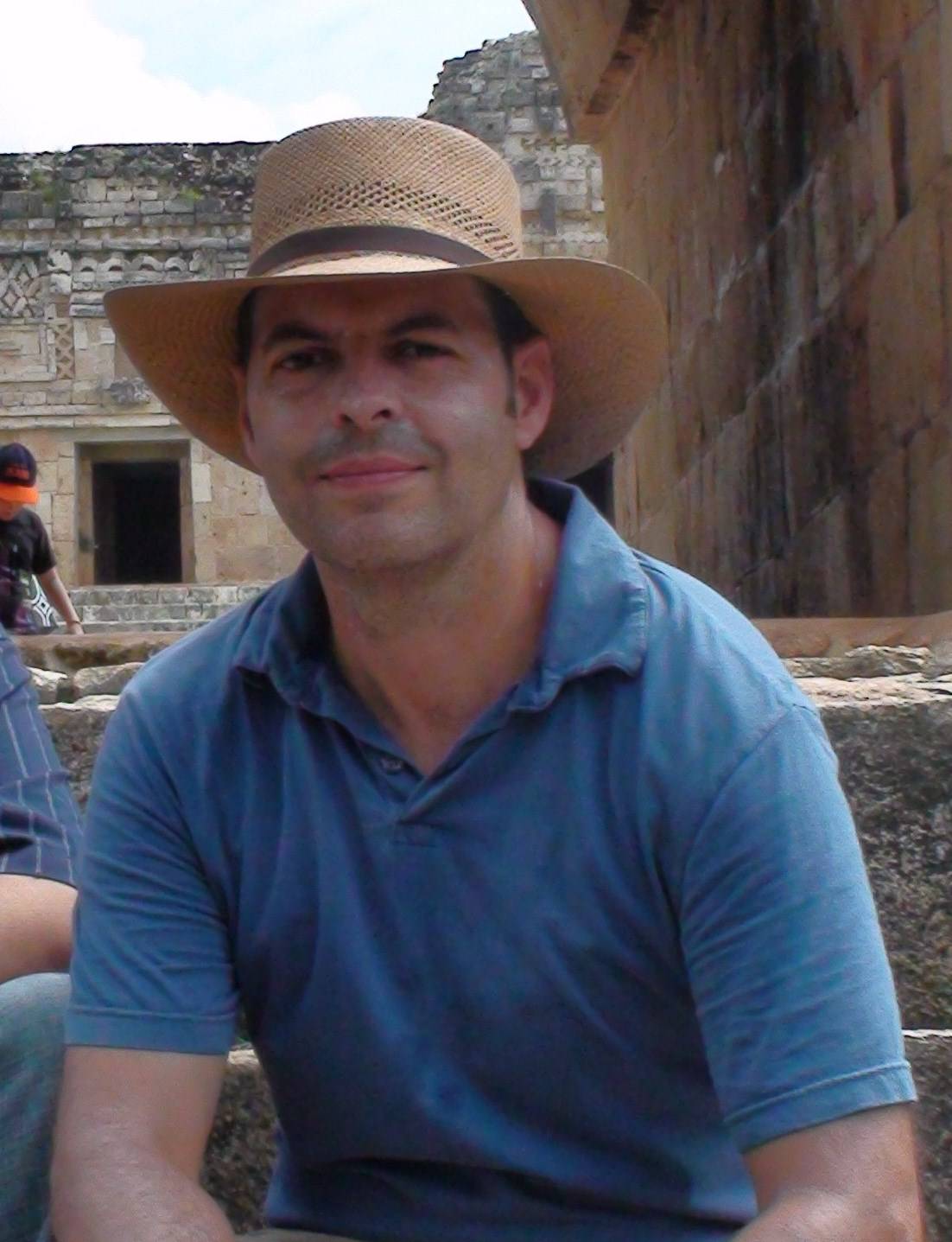
Congratulations to former CSSW Jones Professor, Dr. Joaquín Rivaya-Martínez, who has won the Western History Association’s Ray Allen Billington Prize for the best article in the field of western history for "The Unsteady Comanchería: A Reexamination of Power in the Indigenous Borderlands of the Eighteenth-Century Greater Southwest" published in the April 2023 issue of The William and Mary Quarterly. This is the same article that was given honorable mention by the American Society for Ethnohistory’s Robert F. Heizer Award for the best peer-reviewed work in the field of ethnohistory.
-
-
2023 News and Events
-
CSSW Exhibit | Pecos by Hope Mora
CSSW Exhibit
Pecos
by Hope Mora
Artist Talk, Thursday, February 23, 2023 | 12:30 pm | Brazos Hall
Exhibition on Display February 13 - April 21, 2023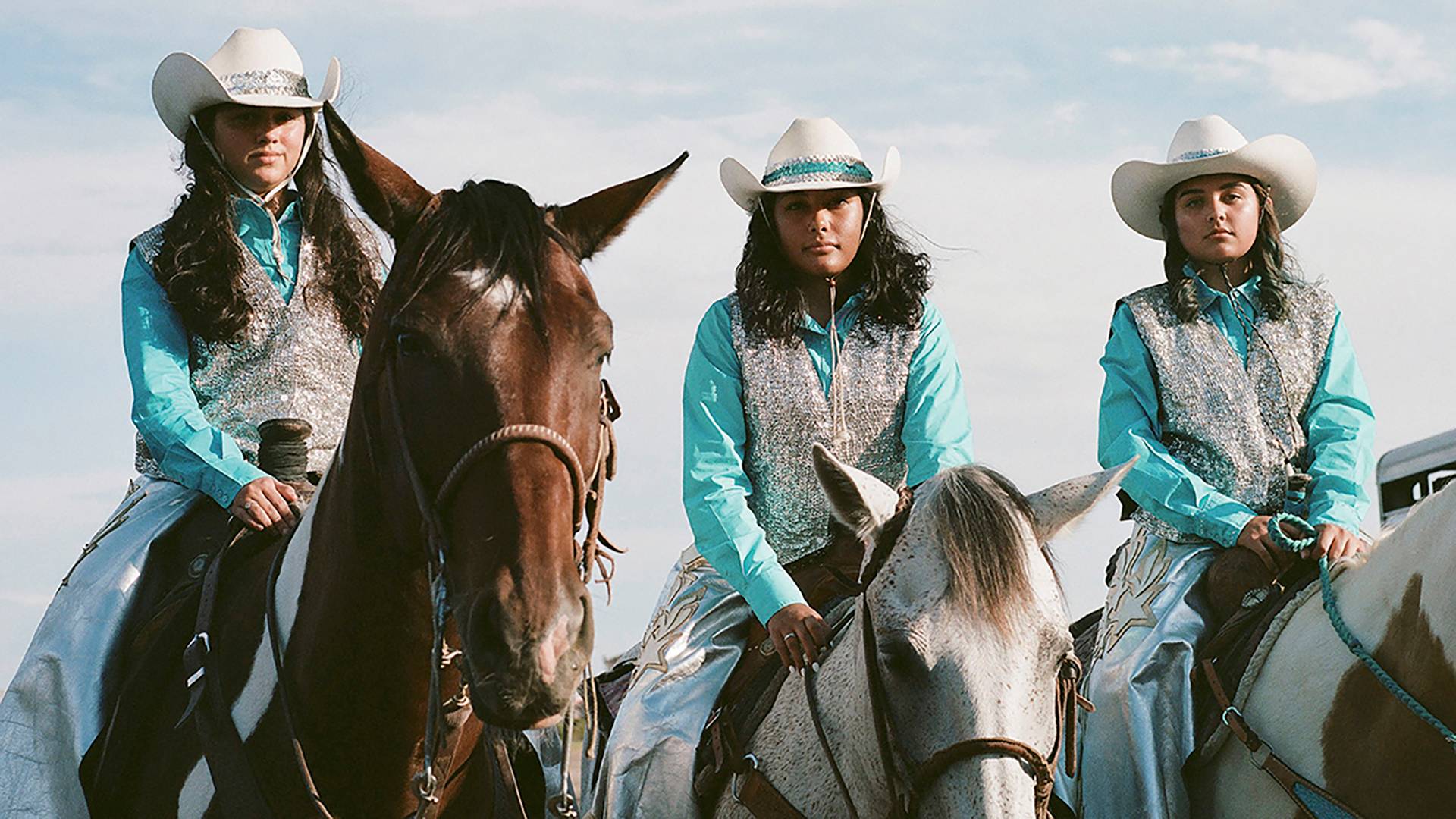
Pecos consists of an installation of photographs made by Hope Mora in Pecos, Texas from 2018-2021. Her work is an ongoing exploration of how the dynamic between hard labor and resilience is sustained within communities as she looks at working life, regional culture, economy, and ideas of home. She documents how communities joyfully celebrate their lives through family, food, music, dance, and fashion using photography, video, sound, and text.
-
Book Reading | More Than You'll Ever Know by Katie Gutierrez
Book Reading
More Than You'll Ever Know
Katie Gutierrez
Thursday, March 23, 2023 | 2:00 pm | Brazos Hall
Texas State University alumni and Texas Books in Review contributor Katie Gutierrez will return to San Marcos to read from her bestselling novel, More Than You'll Ever Know, and discuss borderlands and the importance of place in fiction.
-
Women Physicians and the Rise of Eugenics | Jacqueline Antonovich
Women Physicians and the Rise of Eugenics
Jacqueline Antonovich
Tuesday, March 28, 2023 | 2:00 pm | TMH 201 and Online via Zoom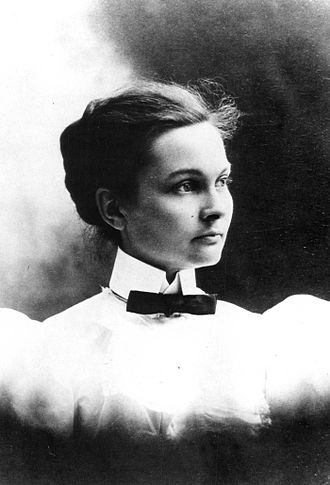
This talk examines the role of women physicians in driving discourse, circulating ideas and setting policy agendas on reproductive surveillance and restrictions during this period. Through two case studies, Dr. Jacqueline Antonovich will explore how women physicians became an effective force for bringing eugenics to the masses—becoming the middleman between scientist and mother, researcher and reformer.
-
Chicanx Deportees in Paradise | Christian Duran
Chicanx Deportees in Paradise
Christian Duran
Thursday, March 30, 2023 | 12:30 - 1:00 pm | Online via Zoom
Urban Planning scholar and Chicano Studies Christian Duran shares insights from their fieldwork in Yucatan. Duran is interested in the ways Chicanxs are rebuilding their lives and communities in economies linked to tourism, tracking the ways in which legal status and varying degrees of cultural capital shape the social networks and life-chances available to deportees in Mexico.
-
A Cross Along the Road: Regulation, Perception, and Preservation of Roadside Memorials in Central Texas | Emma Beard
A Cross Along the Road:
Regulation, Perception, and Preservation of Roadside Memorials in Central Texas
Emma Beard
Thursday, April 13, 2023 | 5:00 pm | Brazos Hall and Online via Zoom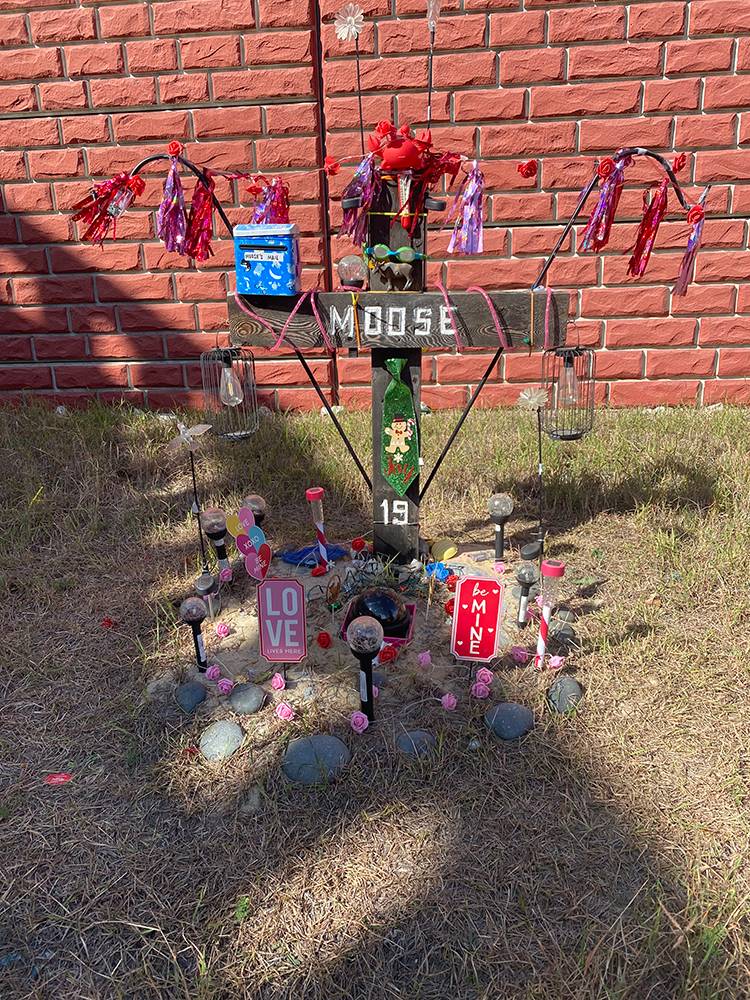
Someone always takes the time to make a roadside memorial. Historian Emma Beard charts the places, shifting regulations, TXDOT policies, and communities shaping the appearance of memorials on the edge of our highly regulated and controlled Texas byways.
-
CSSW Juneteenth Statement
CSSW Juneteenth Statement
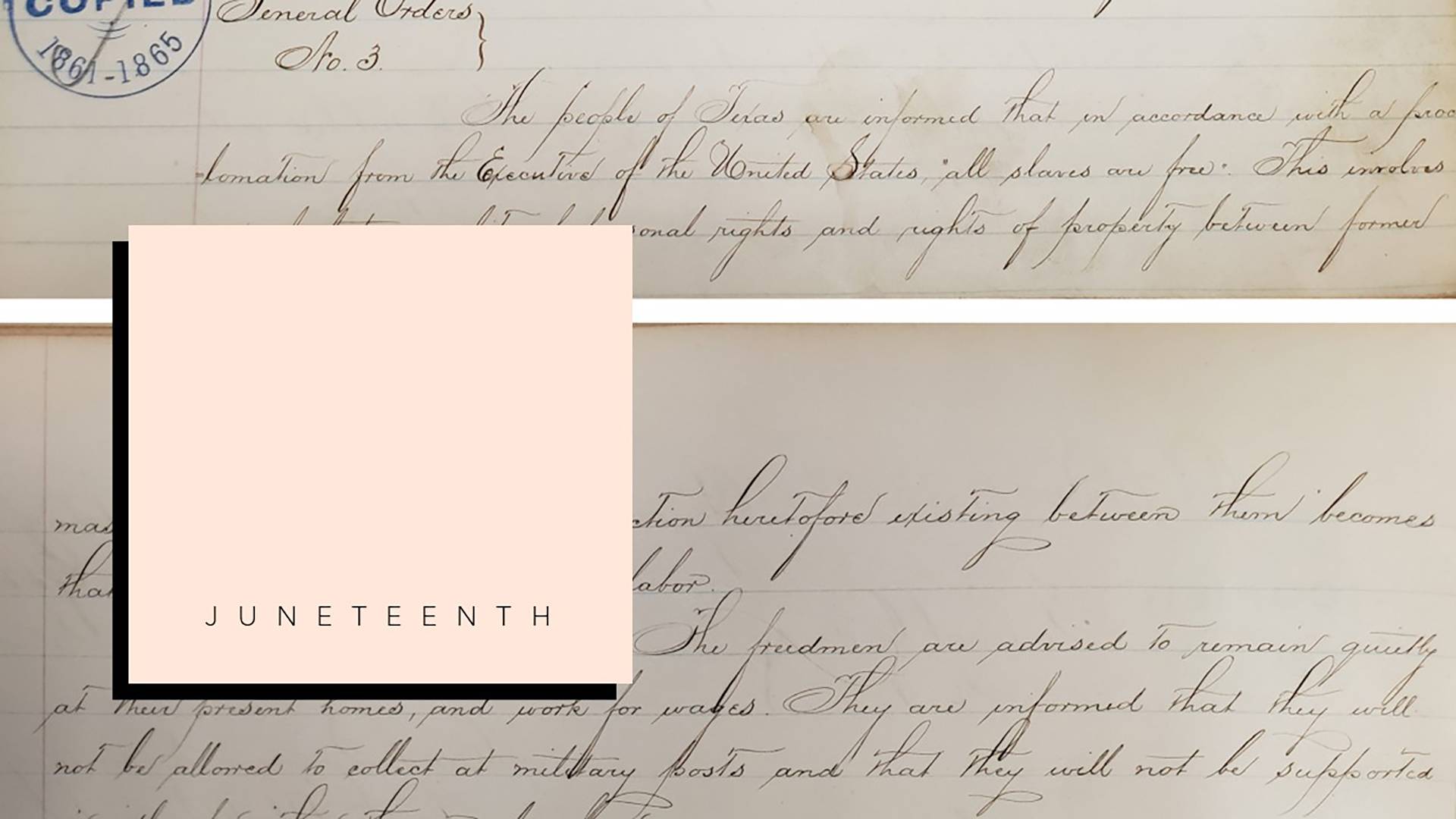
Juneteenth has become ingrained in the cultural practice of the United States because of the outsized presence of Black Texans in Texas and in the Great Migration. The annual gatherings got held in cities and towns in homes, churches, parks and plazas across the South, West, Midwest and North – sparking conversations about the importance of this announcement alongside all the other issues that can be discussed in family and community gatherings. As Texans took up residence in Compton, Gary, Detroit, Richmond, Oakland, Chicago, Cleveland, Minneapolis and so many other places, their annual picnics resonated with many of their neighbors, co-workers and parishioners. The global revulsion that accompanied the public murder of Houston-born George Floyd has led to the institutionalizing of Juneteenth as a federal holiday. It is only right that Black Texans continue leading the way in the culture and commemoration of Juneteenth across the United States.
-
Texas Books In Review | Free-Tailed Bat Award
Texas Books In Review
Free-Tailed Bat Award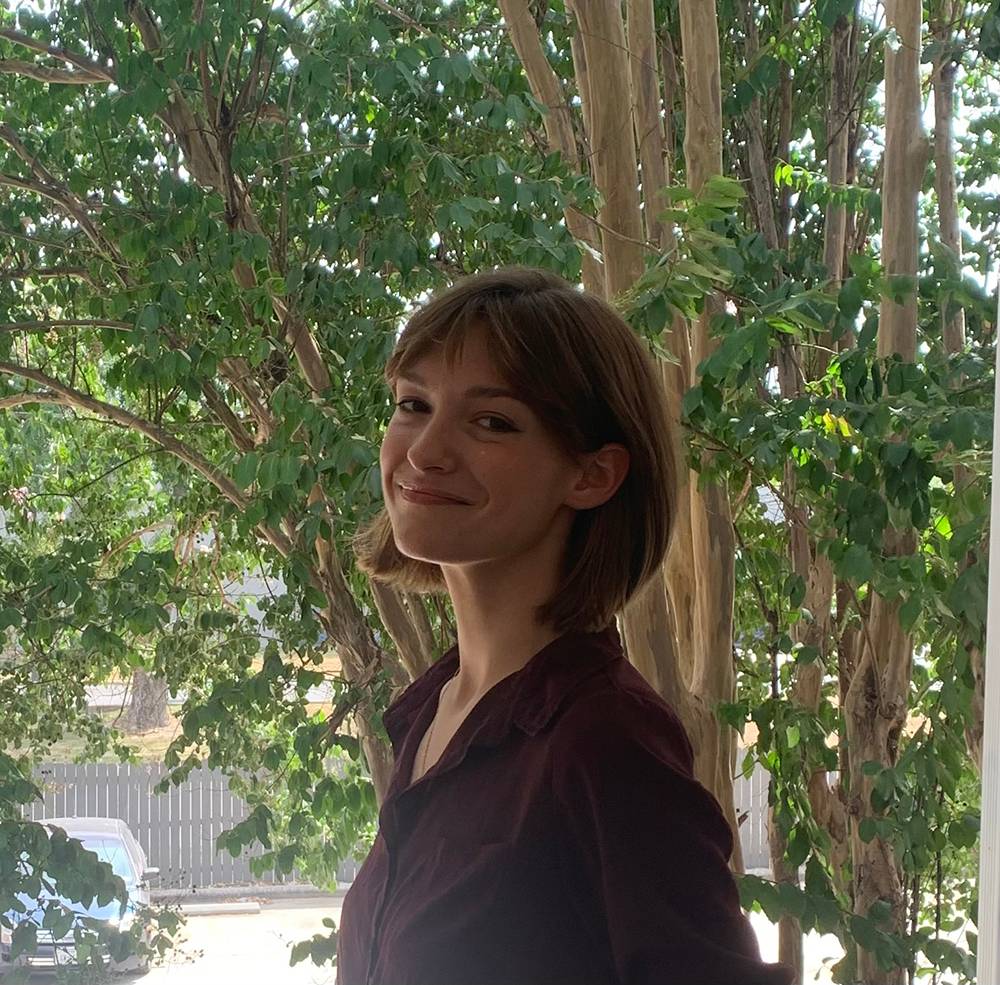
Each year the staff and faculty associated with the Center for the Study of the Southwest gather together to award one review for TBR the coveted Free-Tailed Bat Award. We are honored to announce that Amy Bushongs' essay on Marissa R. Moss' Her Country has won the award.
Amy Bushong is a native Austinite who graduated from the University of Texas with a B.A. in History and is a current M.A. History candidate at Texas State University. Specializing in historicizing popular culture, Amy spends most of her time researching the symbiotic relationship between politics, economics, and various forms of media such as television, music, and books. Naturally, this line of work includes sifting through many reviews in order to understand not only if something is “good” or “bad”, but how it has earned that assessment. Reviews act as time-capsules for historians, displaying the popular opinions of the era in which they were written and allowing a peek behind the curtain of the cultural zeitgeist. Expecting to graduate in 2023, Amy is looking forward to reading and writing many more reviews in her future and is planning on obtaining a Ph.D. in Cultural Studies. For more of Amy Bushong’s work, visit the podcast “For Example” available on YouTube and Spotify.
-
Book Reading | “Lyin’ Ass”
Book Reading
“Lyin’ Ass”
by Eugene Lee
Friday, September 1, 2023 | Doors open 11:30 pm | Reading at Midnight
The Price Center | 222 W. San Antonio Street, San Marcos TX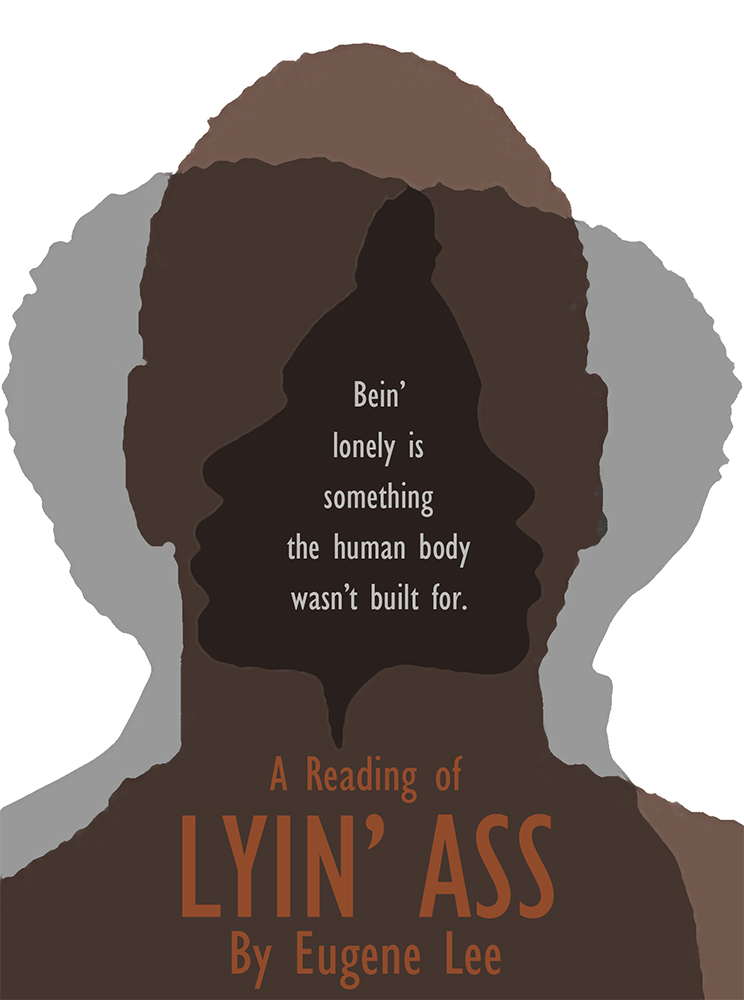
In cooperation with the 21st Annual Black and Latino Playwrights Celebration (BLPC), the Price Center is proud to announce a reading of “Lyin’ Ass,” a play by Texas State Distinguished Alumnus, Artist-in-Residence, and Artistic Director of BLPC, Eugene Lee. Not since the first BLPC event in 2002 has a play by this award-winning actor, director and playwright been presented during the Celebration. In “Lyin’ Ass,” lonely characters inhabit this new play about certain conditions of insanity that force us to live with illusions for the sake of mental balance. The lies we live in and denials we nurture ourselves with.
-
The San Sabá Mission Martyrs and the Novohispanic Hagiographic Pictorial Tradition | Emmanuel Ortega
The San Sabá Mission Martyrs and the Novohispanic Hagiographic Pictorial Tradition
Emmanuel Ortega
Thursday, September 7, 2023 | 12:30 pm | Brazos Hall and Online via Zoom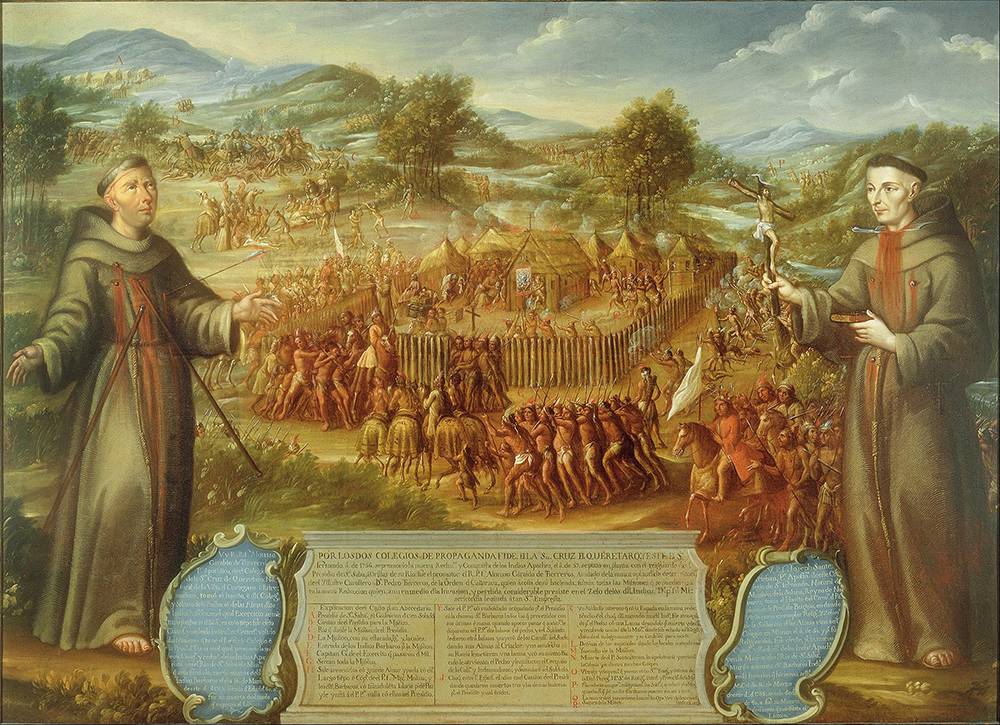
Eighteenth century Franciscan martyr portraits became popular in monastic spaces of the Spanish viceroyalties of central Mexico. To visually construct the meritorious life of these martyrs, artists drew inspiration from hagiographic chronicles that distorted Native rebellions, by emphasizing friars’ gruesome deaths. In this talk, Emamanuel Ortega examines the “rhetoric of translation” and the “art of copying:” pictorial conventions that set the visual culture of New Spain apart from the rest of Europe. The Destruction of San Saba, exemplifies these processes.
-
İFandango! A TXST Interdisciplinary Dialogue on the Southwest
İFandango!
A TXST Interdisciplinary Dialogue on the Southwest
Thursday, September 14, 2023 | 9:00 am - 5:00 pm | Flowers Hall 230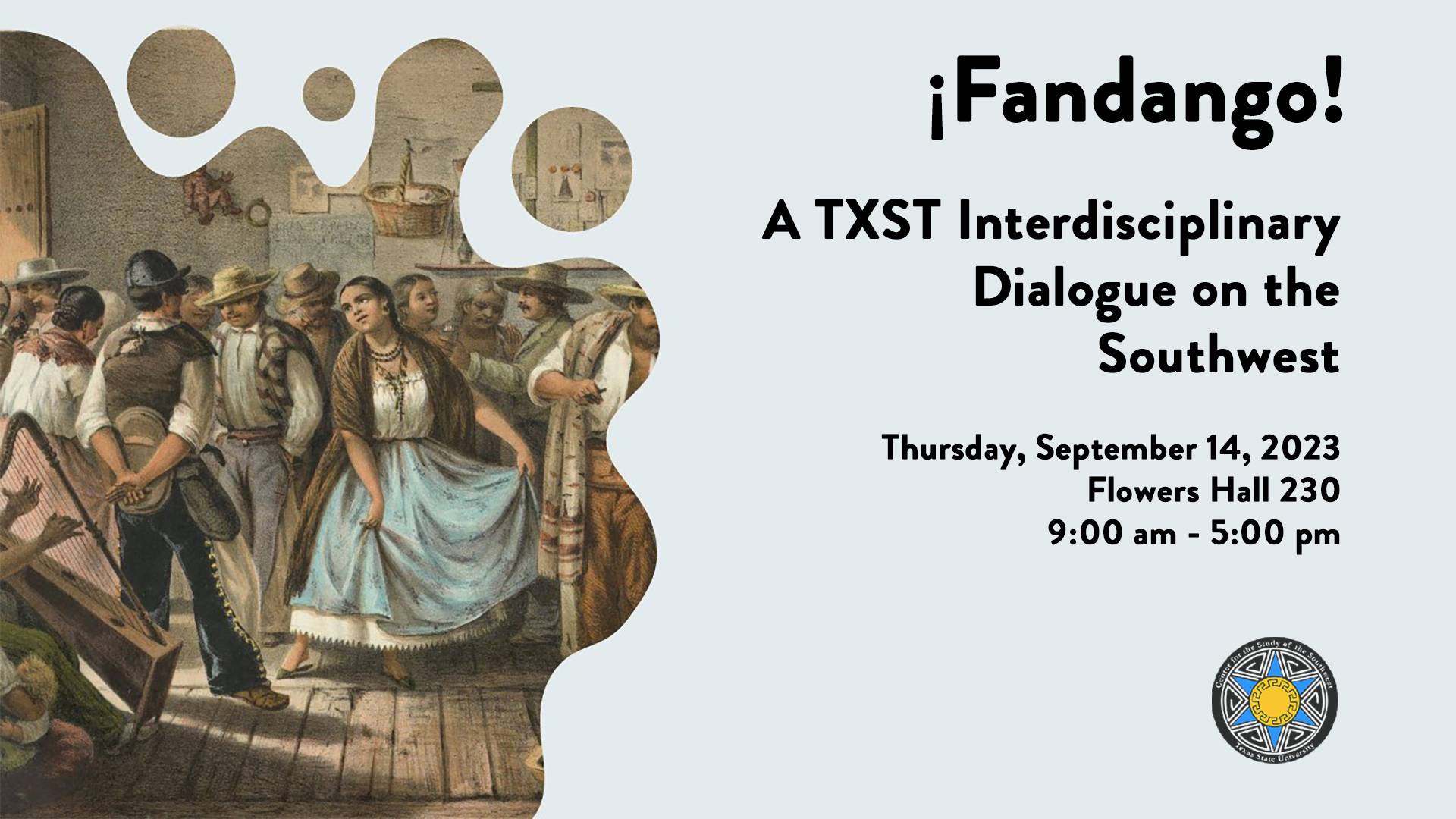
It is our impression that all affiliates are doing crucial, essential and fascinating work, but because of our disciplinary and departmental commitments, we – the affiliates, the staff, and the students – do not get to learn much from each other and our potentially overlapping research interests. Hopefully, by sharing the work are doing, we can all update ourselves on the broad humanistic inquiry we are all doing at Texas State University. It is our hope that this shared dialogue will move us to understand that ‘what happens in the Southwest is part of the Southwest.’
-
Collective Borderpalooza: Otherwise, It Would Be Just Another River
Collective Borderpalooza:
Otherwise, It Would Be Just Another River
Thursday, September 14, 2023 | 5:00 - 6:30 pm | Flowers Hall 230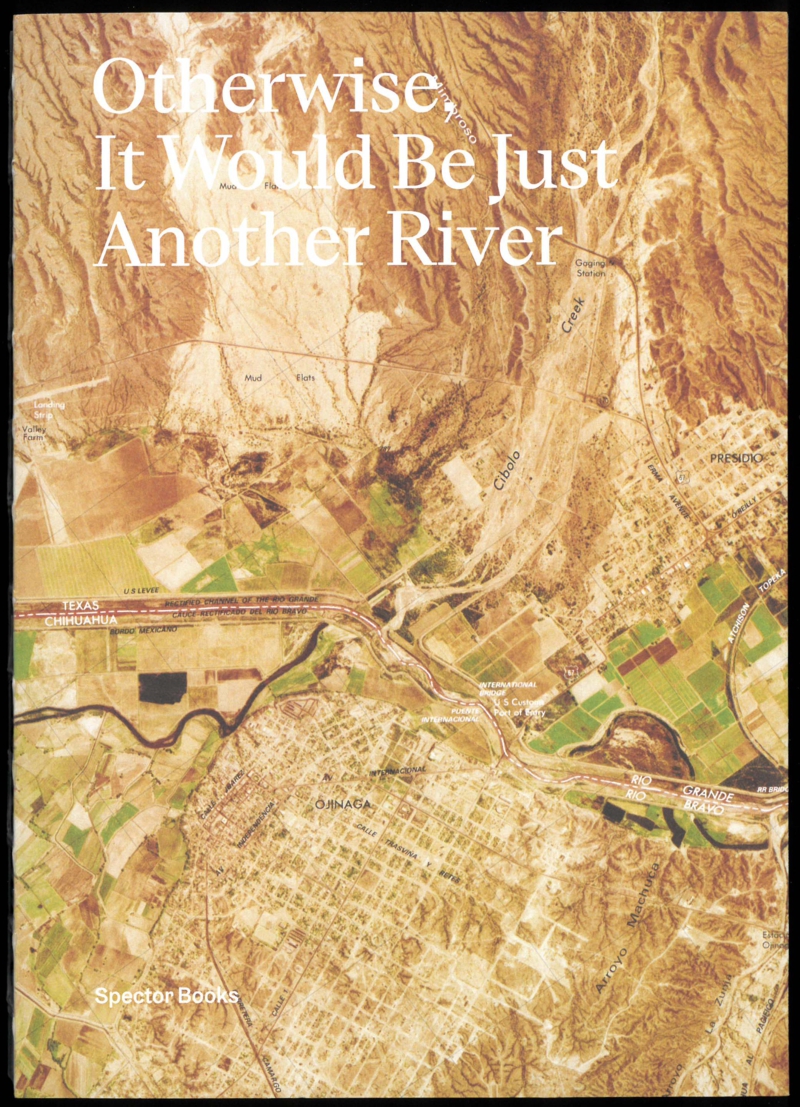
The Center for the Study of the Southwest is hosting this borderpalooza to foreground the work, the engagement, the joy, the patience, the wisdom, the naivete and the broad collective energy it takes to engage in community-based collaborative art, bridging relatively disenfranchised community spaces, schools, and established museums and galleries.
The Center for the Study of the Southwest has invited the collaborators who are working in San Marcos to share their perspectives on a decades-long, continent wide set art engagements. In alphabetical order, the conversation will include Adetty Perez Ramos de Miles, Erina Duggane, Jason Reed, Mark Menjivar and Molly Sherman, who will discuss their work, their disciplinary moorings, their writing and art, and the edited collection process.
-
Beaumont's Black History: The Example | Gordon S. Williams
Beaumont's Black History: The Example
Gordon S. Williams
Thursday, September 28, 2023 | 12:30 pm | Brazos Hall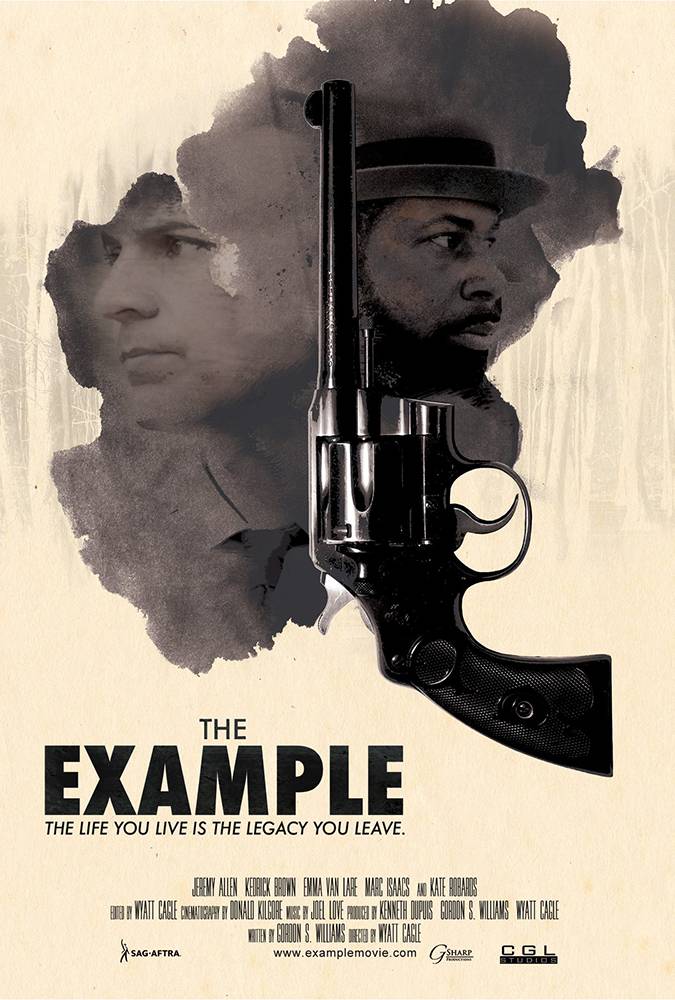
Set during the 1943 Beaumont Texas Race Riot, The Example tells a story of two fathers who make hard choices to protect their families. Choices that force them to question their morals, loyalty, and manhood. The award-winning short film is directed by Wyatt Cagle, written by Gordon S. Williams, and produced by Kenneth Dupuis. The ensemble cast includes actors Jeremy Allen, Kedrick Brown, Emma Van Lare, Marc Isaacs, Kate Robards, Evan Horsley, & Daniel Stallings.
-
Beaumont’s Black History: A Neighborhood Story | Gordon S. Williams
Beaumont’s Black History: A Neighborhood Story
Gordon S. Williams
Thursday, September 28, 2023 | 5:30 pm Reception & 6:00 pm Film Screening
Price Center | 222 W. San Antonio Street | San Marcos, Texas 78130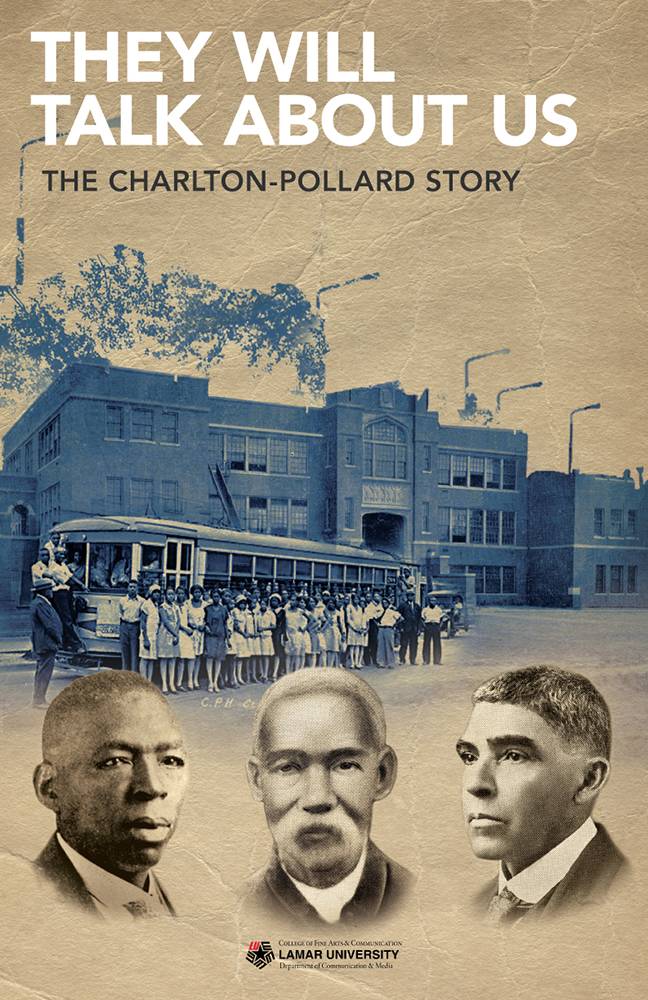
In LUTV Production’s documentary, “They Will Talk About Us: The Charlton-Pollard Story,” a young documentarian interviews a reluctant historian about the origins of the oldest Black neighborhood in Beaumont, Texas. “They Will Talk About Us: The Charlton-Pollard Story” premiered in front of an audience of over three hundred fifty people at the Jefferson Theatre in Beaumont in February 2022. The project has been accepted to the Prison City Film Festival, the Orlando International Film Festival, and the San Antonio International Black Film Festival. In October 2022, “They Will Talk About Us: The Charlton-Pollard Story” was named “Best Documentary Short” at the Urban Media Makers Film Festival in Atlanta.
-
CSSW Exhibit | Atascosa Borderlands | Exhibition and Talk with Luke Swenson and Jack Dash
Atascosa Borderlands | Exhibition and Talk
Luke Swenson and Jack Dash
Wednesday, October 11, 2023 | 11:00 am | The Wittliff Collections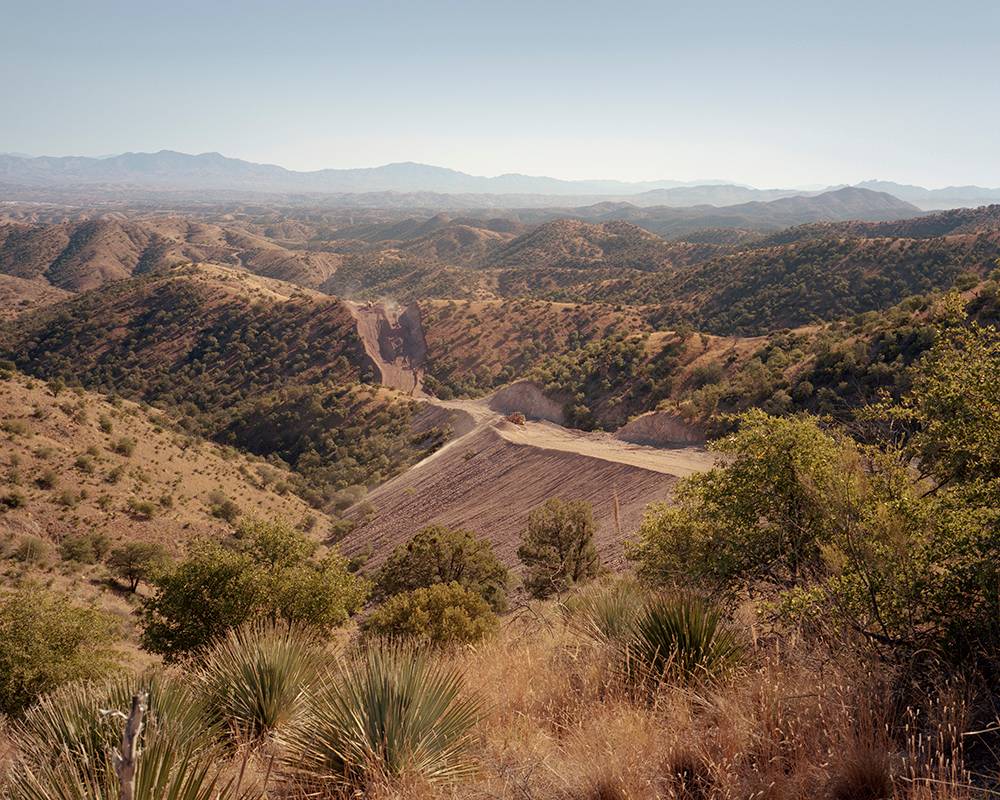
The exhibition, Atascosa Borderlands, is a selection of prints and objects from the long-term visual storytelling project by Luke Swenson (Documentary Photographer) and Jack Dash (Naturalist and Writer). Since 2017, they have been working to better understand the Arizona-Sonora Borderlands alongside ecologists, cattle ranchers, humanitarian aid workers, migrants, hunters, ex-border patrol agents, and indigenous community members. This project will ultimately bring together hundreds of original film photographs, oral history interviews, botanical specimens, historical images, and found objects; creating a living archive dedicated to this remote 42-mile section of the US-Mexico border.
-
CSSW Exhibit | Atascosa Borderlands | Gallery Talk and Reception with Luke Swenson and Jack Dash
Atascosa Borderlands | Gallery Talk and Reception
Luke Swenson and Jack Dash
Thursday, October 12, 2023 | 2:00 pm | Brazos Hall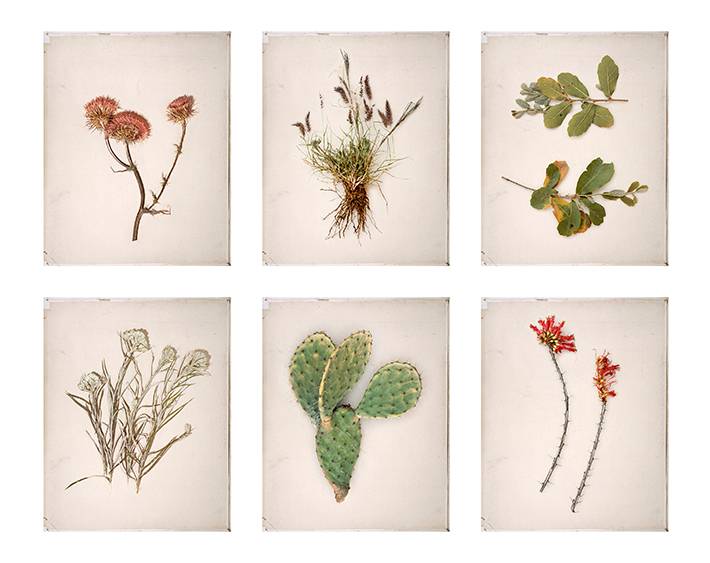
The Atascosa Borderlands project is a long-term visual storytelling project by Luke Swenson (Documentary Photographer) and Jack Dash (Naturalist and Writer). Since 2017, we have been working to better understand the Arizona-Sonora Borderlands alongside ecologists, cattle ranchers, humanitarian aid workers, migrants, hunters, ex-border patrol agents, and indigenous community members. This project will ultimately bring together hundreds of original film photographs, oral history interviews, botanical specimens, historical images, and found objects; creating a living archive dedicated to this remote 42-mile section of the US-Mexico border.
-
Book Talk | Sexual Capital and Racialized Sexuality on the U.S. Mexico Borderlands | Professor Bernadine Hernández
Book Talk
Sexual Capital and Racialized Sexuality on the U.S. Mexico Borderlands
Professor Bernadine Hernández
Thursday, October 19, 2023 | 11:00 am | Flowers Hall 230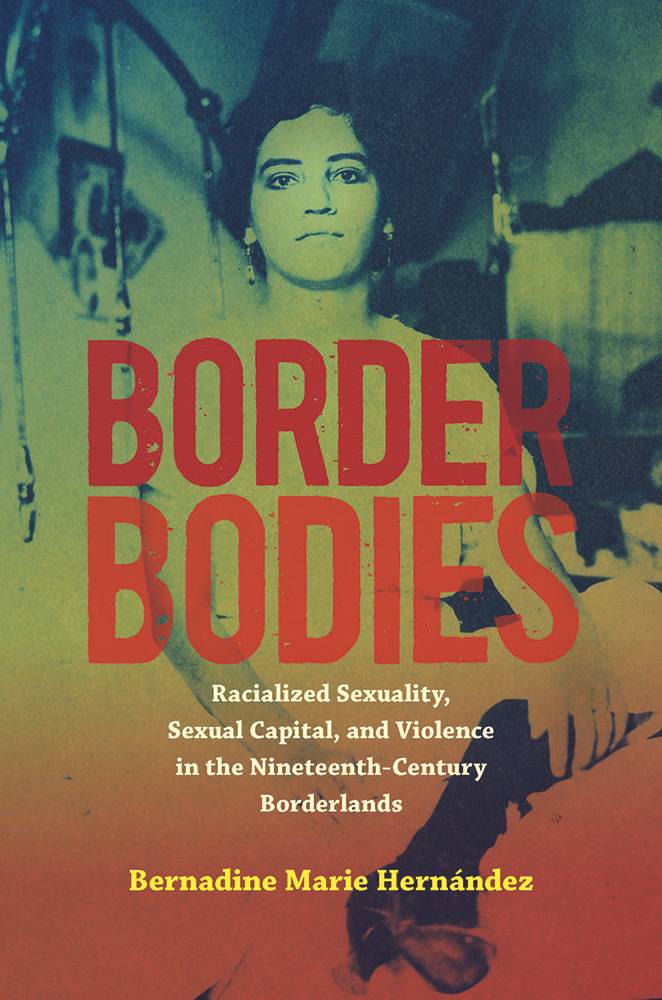
Building from federal court transcripts in late 19th century New Mexico and Arizona, Dr. Bernadine Hernández demonstrates the deep interconnections across oral testimony, literary writing and autobiography across 19th century Mexicana, Nuevomexicana, Californiana, and Tejana lives. The interconnections follow from the way sexual capital was remade in the anchoring of U.S. authority in the Southwest. The analysis here highlights (1) how pivotal Mexicanas, Nuevomexicanas, Californianas, and Tejanas were to the exercise of power in what is now the Southwest, and (2) how their presence has been obscured by subsequent stories of the peopling of this region.
-
Art and Social Justice: A Collaborative Question | Professor Bernadine Hernández
Art and Social Justice: A Collaborative Question
Professor Bernadine Hernández
Thursday, October 19, 2023 | 5:30 pm - Reception, 6:00 pm - Discussion
San Marcos Public Library Room 105 | 625 E Hopkins St, San Marcos, TX 78666
Many people become involved in public art projects to help foment social justice. Is the connection always so direct? The participants in this dialogue – Art and Social Justice: a Collaborative Question? – will share their reflections on the choices facing the building of a collective, the process of collaboration, the building of an aesthetic practice, the places for public interventions, and the relationship of artists to the communities and social movements who helped make them.
-
The Second Founding of the National Parks: Contesting America’s Best Idea | Dr. Sherri Sheu
The Second Founding of the National Parks: Contesting America’s Best Idea
Dr. Sherri Sheu
Monday, November 13, 2023 | 12:30 pm
Brazos Hall and Online via Zoom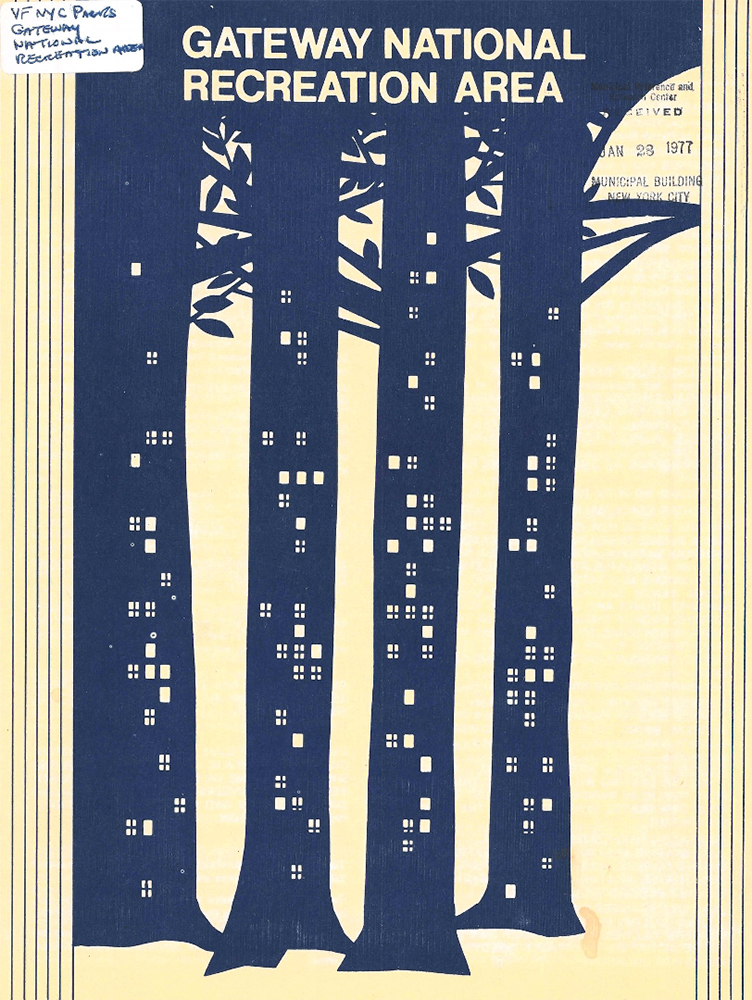
The national park system of the United States is often lauded as one of the nation’s finest institutions. Yet, for many, the national parks represent exclusionary places and landscapes, and sites of dispossession. Sherri Sheu’s book project, “The Second Founding of the National Parks: Contesting America’s Best Idea in the 1970s” documents how the 1970s represented both a moment of rupture and a moment of possibility for reshaping the meanings and audiences of the national parks.
-
-
2022 News and Events
-
CSSW Spotlight | CSSW Director Appears on Blackademics Television
CSSW Spotlight
CSSW Director Appears on Blackademics Television The producers of Blackademics have put together a Texas-grounded special on the pandemic, gathering insight from doctors, nurses, epidemiologists, teachers and other front-line responders. Many of you may have met these speakers in their professional capacity as researchers and practitioners. Put together, they offer insight, anger and hope regarding community capacity, current policy and the potential for transformation. The director of the Center is one of the contributors to this conversation.
The producers of Blackademics have put together a Texas-grounded special on the pandemic, gathering insight from doctors, nurses, epidemiologists, teachers and other front-line responders. Many of you may have met these speakers in their professional capacity as researchers and practitioners. Put together, they offer insight, anger and hope regarding community capacity, current policy and the potential for transformation. The director of the Center is one of the contributors to this conversation.Season 9 will air on TV, locally on Austin PBS beginning February 1, 2022 at 10:00pm CST and on Sunday, February 6th at 1:00pm CST.
-
Remembering Catherine E. Supple
Remembering Catherine E. Supple
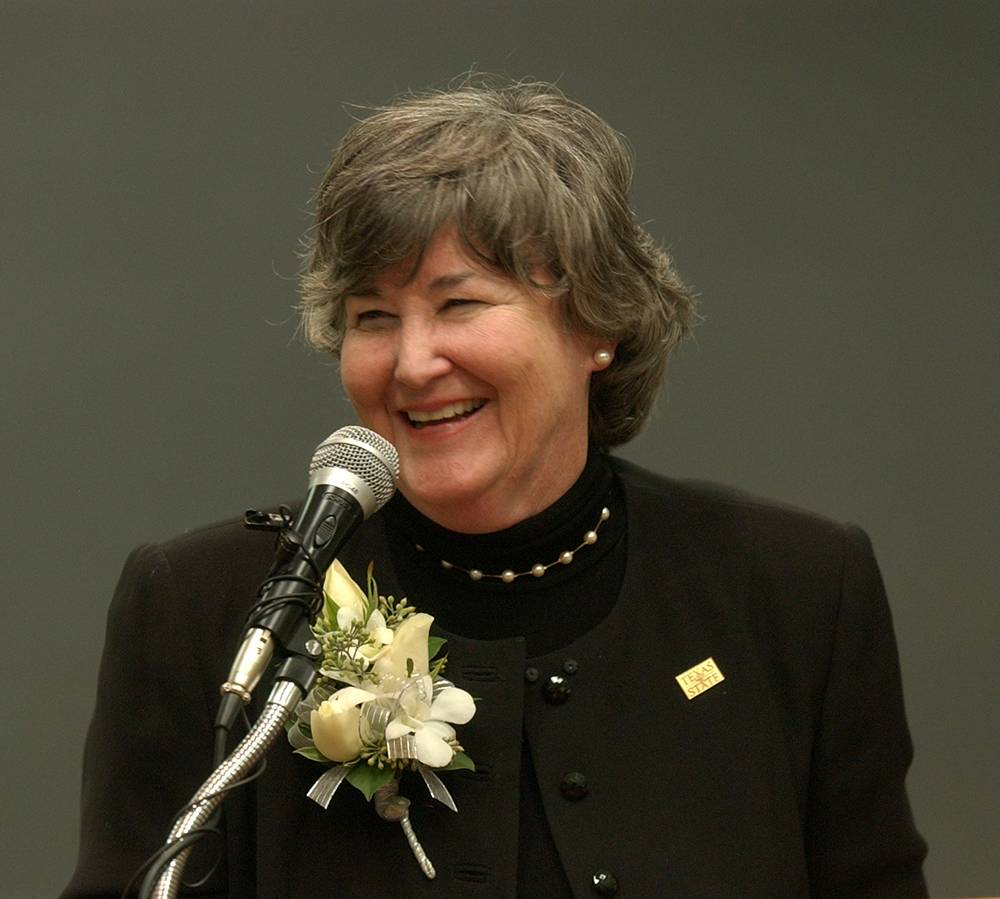 Join us in remembering Catherine E. Supple, a staunch supporter of the humanities whose dedication to cultural studies led to the foundation of the Center for the Study of the Southwest.
Join us in remembering Catherine E. Supple, a staunch supporter of the humanities whose dedication to cultural studies led to the foundation of the Center for the Study of the Southwest. -
Risk, Oil Communities and West Texas Booms
Risk, Oil Communities and West Texas Booms
Sarah Stanford Mcintyre
Tuesday, February 15, 2022 | 2:00pm | Online via Zoom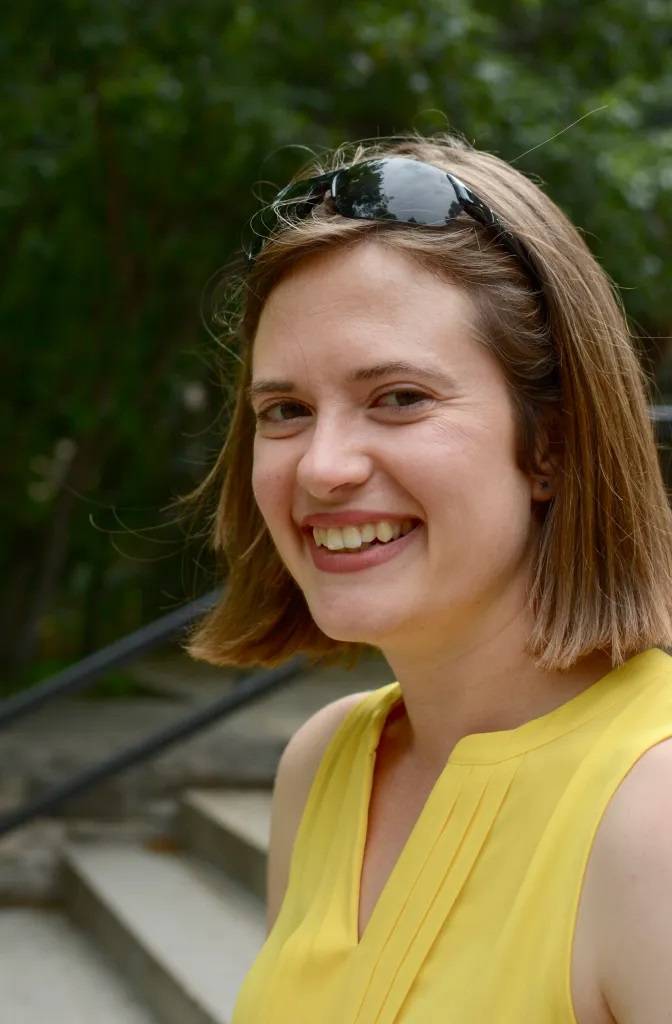 Sarah Stanford Mcintyre, labor historian and co-director of the Engineering, Ethics and Society Certificate at the Herbst School of Engineering, UC Boulder, shares how people in West Texas communities, since the 20s, managed the risks of growth, pollution and regulation as the region became a global center of petroleum extraction and a financial hub for the Southwest.
Sarah Stanford Mcintyre, labor historian and co-director of the Engineering, Ethics and Society Certificate at the Herbst School of Engineering, UC Boulder, shares how people in West Texas communities, since the 20s, managed the risks of growth, pollution and regulation as the region became a global center of petroleum extraction and a financial hub for the Southwest. -
Making the Black Past Present: Mexico
Making the Black Past Present: Mexico
Beau Gaitors
Thursday, February 17, 2022 | 2:00pm | Online via Zoom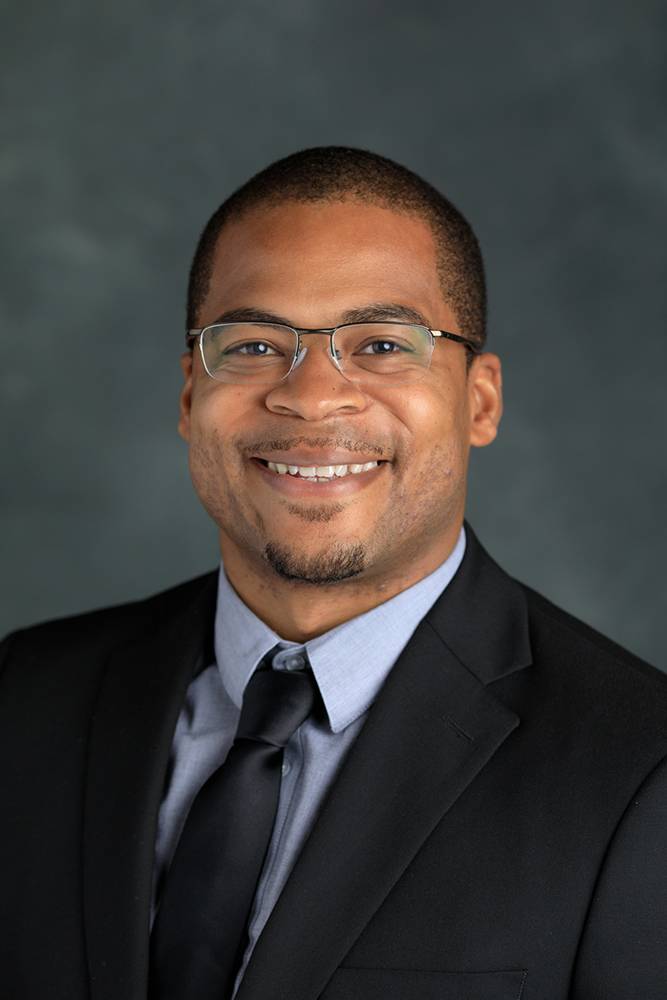 In the 2020 Mexican census more than 2.5 million people self-identified as African descendant. Many attributed this number to recent arrivals from West Africa and the Caribbean. UT Knoxville Historian Beau Gaitors demonstrates that archival research illuminates African descendants’ crucial roles in Mexico’s history, providing a better understanding of their presence today.
In the 2020 Mexican census more than 2.5 million people self-identified as African descendant. Many attributed this number to recent arrivals from West Africa and the Caribbean. UT Knoxville Historian Beau Gaitors demonstrates that archival research illuminates African descendants’ crucial roles in Mexico’s history, providing a better understanding of their presence today. -
Trans Lives and U.S. Empire
Trans Lives and U.S. Empire
Kris Klein Hernández
Monday, February 28, 2022 | 12:30pm | Online via Zoom and in person at Brazos Hall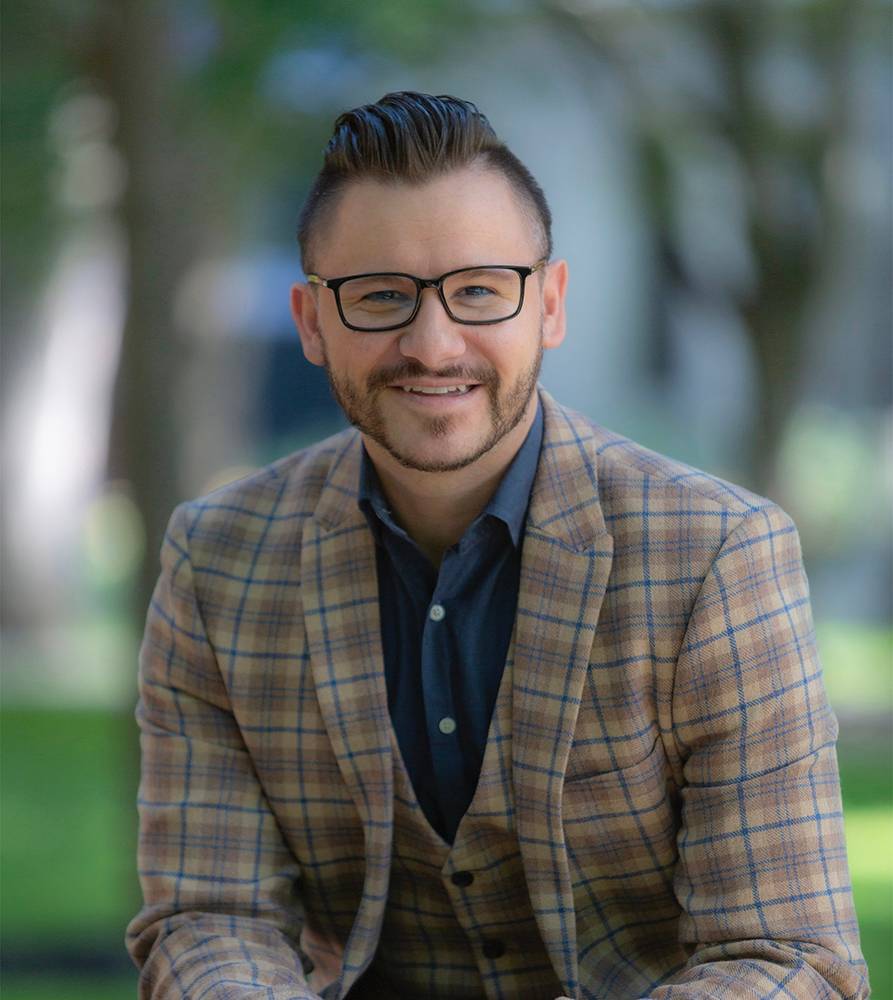 What is the impact and legacy of the Civil War and U.S. military expansion on Black soldiers like Cathay Williams, especially when scholars consider Williams as part of trans history? Historian Kris Klein Hernández focuses on the ways conscripts, contrabands and recruits embodied, played with and resisted the roles demanded of them in the borderlands of this 19th century American empire.
What is the impact and legacy of the Civil War and U.S. military expansion on Black soldiers like Cathay Williams, especially when scholars consider Williams as part of trans history? Historian Kris Klein Hernández focuses on the ways conscripts, contrabands and recruits embodied, played with and resisted the roles demanded of them in the borderlands of this 19th century American empire. -
What's a Chicano Like Me Doing in Public Health Anyway?
What's a Chicano Like Me Doing in Public Health Anyway?
Jason Daniel-Ulloa
Thursday, March 3, 2022 | 12:30pm | Online via Zoom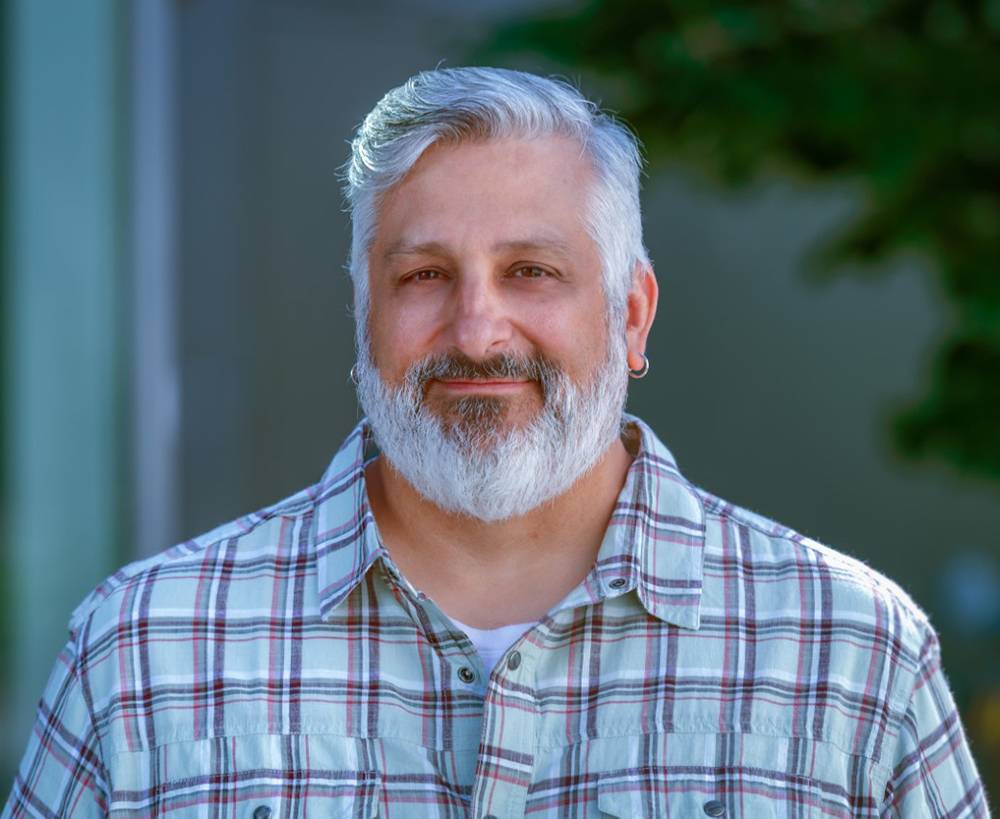 Latina/o/x communities in the communities have disproportionately forced into the essential workforce and disproportionately excluded from federal benefits. Dr. Jason Daniel-Ulloa teases out exclusions and complications that follow from a general understanding that “in Latino and Latinx communities, we have been defined by our labor in this country.”
Latina/o/x communities in the communities have disproportionately forced into the essential workforce and disproportionately excluded from federal benefits. Dr. Jason Daniel-Ulloa teases out exclusions and complications that follow from a general understanding that “in Latino and Latinx communities, we have been defined by our labor in this country.” -
The Rhetoric of (Emerging) Hispanic-Serving Institutions
The Rhetoric of (Emerging) Hispanic-Serving Institutions: Cultivating “Servingness” in Organizational Cultures Marked by White Supremacy
Darrel Wanzer-Serrano
Thursday, March 24, 2022 | 12:30pm | Online via Zoom With increased rapidity, Historically White Institutions have become “Hispanic-Serving Institutions.” Communication scholar Darrel Wanzer-Serrano examines the resistance, erasure and possibilities enabled by this term in a higher education terrain indebted to white supremacy and enmeshed in contexts marked by an ongoing anti-Black and anti-immigrant backlash.
With increased rapidity, Historically White Institutions have become “Hispanic-Serving Institutions.” Communication scholar Darrel Wanzer-Serrano examines the resistance, erasure and possibilities enabled by this term in a higher education terrain indebted to white supremacy and enmeshed in contexts marked by an ongoing anti-Black and anti-immigrant backlash. -
Love in Precarious Times
Love in Precarious Times:
A Queer Politics of Migration
Ariana Ochoa Camacho and Kathleen Coll
Thursday, April 14, 2022 | 12:30pm | Online via Zoom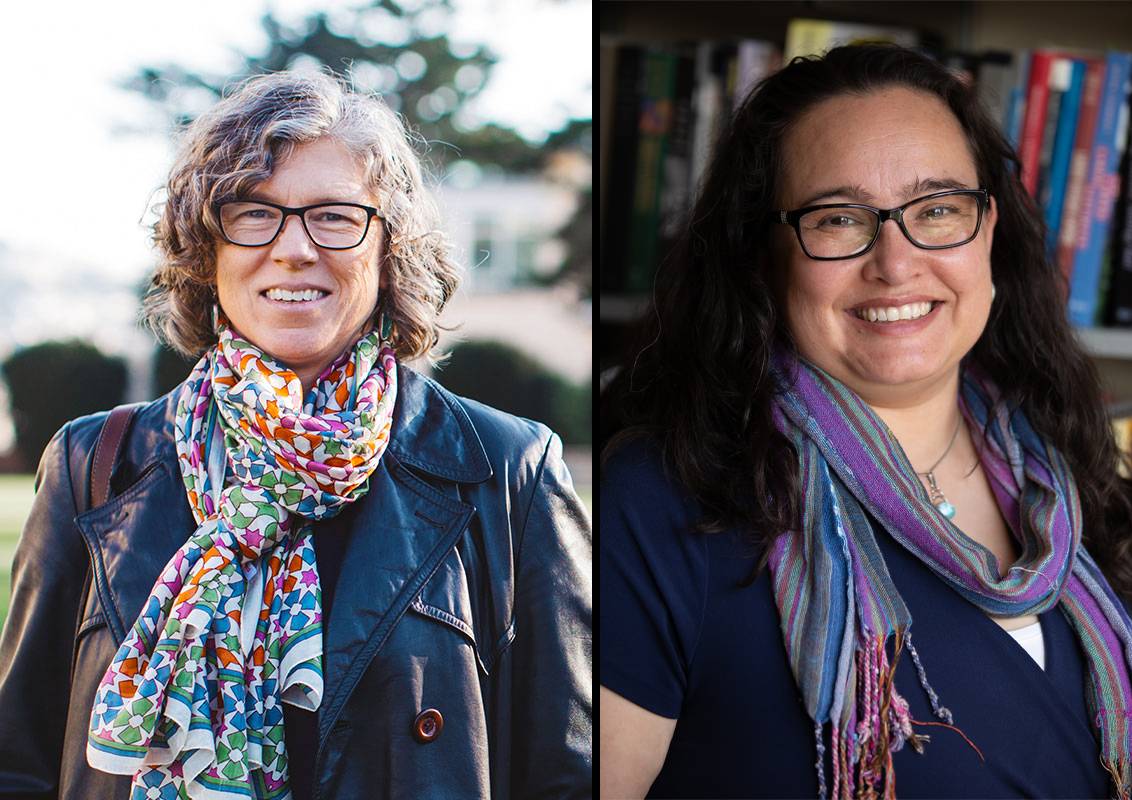 Migration scholars and advocates Ariana Ochoa Camacho and Kathleen Coll describe a turn within the immigrant rights movement in the 2010s toward a more transformative politics of radical inclusion across, not in spite of, differences in sexuality, gender, race, citizenship, and immigration status.
Migration scholars and advocates Ariana Ochoa Camacho and Kathleen Coll describe a turn within the immigrant rights movement in the 2010s toward a more transformative politics of radical inclusion across, not in spite of, differences in sexuality, gender, race, citizenship, and immigration status. -
CSSW Exhibit | All the Sacrifices You've Made/Todos los sacrificios que has hecho
CSSW Exhibit
All the Sacrifices You've Made/Todos los sacrificios que has hecho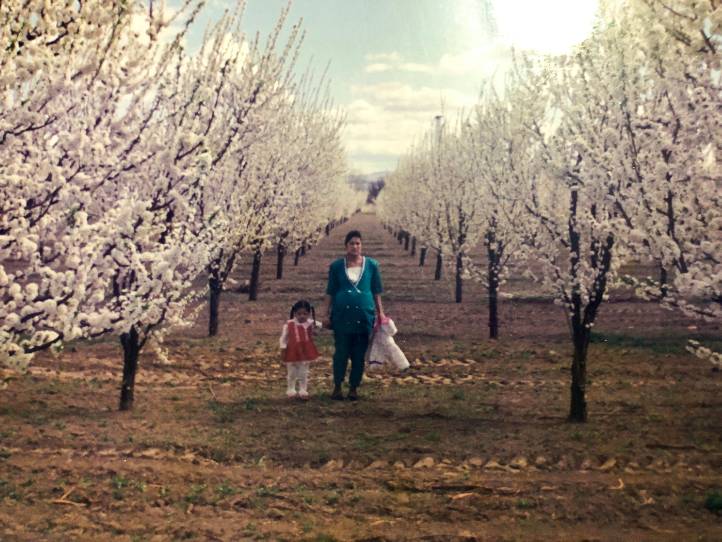 Over the last two years, Borderland Collective artists Mark Menjivar and Jason Reed worked closely with Luz Inguez, Natalia Esquivel Silva, Orfil Olmos, Gabriela Ruiz, Moises Mendez, and Alondra Torres from CAMP to explore their family albums, photograph their lives, and record oral histories. The pictures were scanned and reproduced, allowing the family to keep the originals in their possession. The resulting pictures, text, video, and audio exhibited are an expression and acknowledgment of the contributions, resilience, joys, and sacrifices made by farm worker families from the eastern Washington agricultural regions of Yakima and Wenatchee.
Over the last two years, Borderland Collective artists Mark Menjivar and Jason Reed worked closely with Luz Inguez, Natalia Esquivel Silva, Orfil Olmos, Gabriela Ruiz, Moises Mendez, and Alondra Torres from CAMP to explore their family albums, photograph their lives, and record oral histories. The pictures were scanned and reproduced, allowing the family to keep the originals in their possession. The resulting pictures, text, video, and audio exhibited are an expression and acknowledgment of the contributions, resilience, joys, and sacrifices made by farm worker families from the eastern Washington agricultural regions of Yakima and Wenatchee. -
CSSW Spotlight | Auto-Retrato workshop
This one-week workshop hosted local youth ages 12-19 in a bilingual creative writing workshop, Auto-Retrato. This program immersed students in what it means to be a minority artist through poetry and painting. At the end of the course, students completed a zine which can be found at local libraries with free copies offered at the Center for the Study of the Southwest.
The Auto-Retrato workshop was created by poets Juania Sueños and Claudia Cardona. Artist Andrea Muñoz Martinez led attendees in the painting portion of the workshop.
This program was sponsored by The Burdine Johnson Foundation, Infrarrealista Review, and the Center for the Study of the Southwest.
-
Making the Suburbs Brown: A History
Making the Suburbs Brown: A History
Jerry González
Thursday, October 6, 2022 | 12:30 pm | Online via Zoom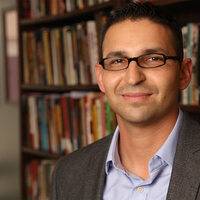 By the mid 1960s, the largest plurality of Americans grew up in or moved to the suburbs. Few people have considered the experience of Mexicans and other Latinxs in this quintessentially American situation. Urban Studies historian Jerry González will center Latinos in his discussion of the ways colonias became subdivisions, farms split-levels, and renters homeowners while some people moved across national and regional boundaries to take up place in ‘Suburbia’ with its attendant inequalities.
By the mid 1960s, the largest plurality of Americans grew up in or moved to the suburbs. Few people have considered the experience of Mexicans and other Latinxs in this quintessentially American situation. Urban Studies historian Jerry González will center Latinos in his discussion of the ways colonias became subdivisions, farms split-levels, and renters homeowners while some people moved across national and regional boundaries to take up place in ‘Suburbia’ with its attendant inequalities. -
Book Reading | Road Kill: Texas Horror By Texas Writers, Vol. 7
Road Kill: Texas Horror By Texas Writers, Vol. 7
A Book Reading and Panel Discussion
Moderated by William Jensen
Thursday, October 6 2022 | 2:00 pm | Brazos HallVenture out for readings and discussion about regional fears, superstitions, and the dread in the Lone Star State.
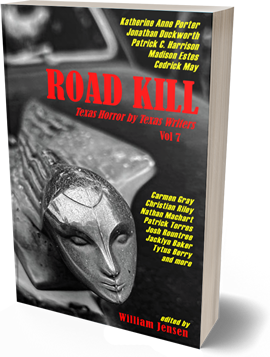 Featuring Readings By:
Featuring Readings By:- Jacklyn Baker
- Carmen Gray
- John Kojak
- Nathan Machart
- Cedrick May
- Patrick Torres
-
Native Bound-Unbound: Native Enslavement and the Digital Humanities
Native Bound-Unbound:
Native Enslavement and the Digital Humanities
Estevan Rael-Gálvez
Monday, October 17, 2022
11:00 am - Online via Zoom and in Brazos Hall | 6:30 pm - Online via Zoom an in TMH 101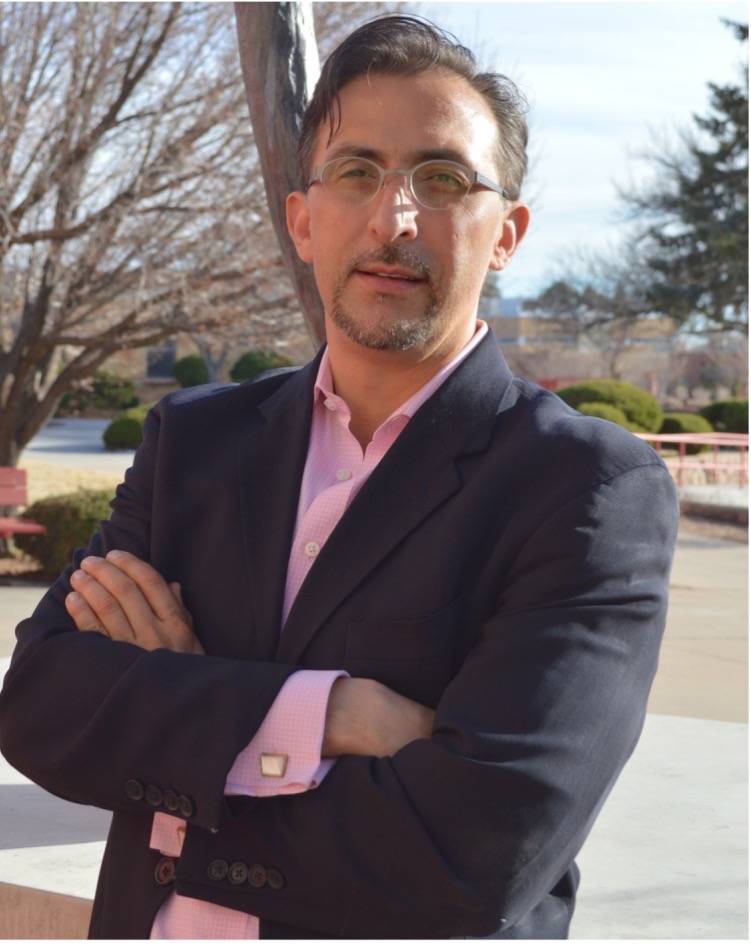 The story of enslavement in North America has followed in the wake of expansion, enslavement and community resistance and transformation. Dr. Estevan Rael-Gálvez will discuss the ways the digital universe can help build and raise awareness of the intimate and cross-regional scale of indigenous enslavement.
The story of enslavement in North America has followed in the wake of expansion, enslavement and community resistance and transformation. Dr. Estevan Rael-Gálvez will discuss the ways the digital universe can help build and raise awareness of the intimate and cross-regional scale of indigenous enslavement. -
The Most Important Desegregation Case You Never Heard Of
The Most Important Desegregation Case You Never Heard Of
Gonzolo Guzmán
Wednesday, November 2, 2022
12:30 pm | Brazos Hall and Online via Zoom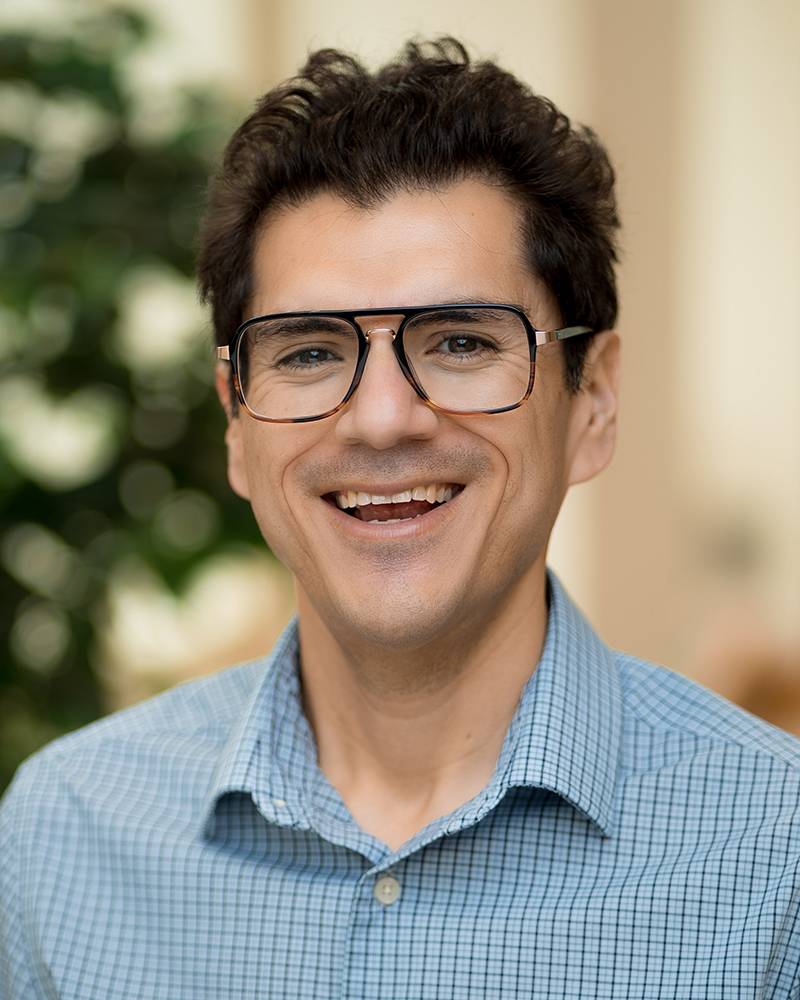 In 1914 the Mexican American community of Alamosa, Colorado, challenged and beat a school desegregation project. Dr. Gonzalo Guzmán will place Maestas v. Shone (1914) in the narrative of Latinx settlement, racial segregation and desegregation in the Intermountain West, arguing that public schools became central to marking Latinx communities as racially non-White wherever they settled.
In 1914 the Mexican American community of Alamosa, Colorado, challenged and beat a school desegregation project. Dr. Gonzalo Guzmán will place Maestas v. Shone (1914) in the narrative of Latinx settlement, racial segregation and desegregation in the Intermountain West, arguing that public schools became central to marking Latinx communities as racially non-White wherever they settled. -
The World Cup. The Liberal Arts. A Forum
The World Cup. The Liberal Arts. A Forum
Wednesday, November 23, 2002 | 11:30 am - 1:00 pm | Comal 100 Even after December 18, the World Cup will be everywhere, on almost every screen, phone and radio. People will be talking. People will be playing. Many will be disappointed. A lucky few will not.
Even after December 18, the World Cup will be everywhere, on almost every screen, phone and radio. People will be talking. People will be playing. Many will be disappointed. A lucky few will not.Managed by one of the most profitable non-profits around, FIFA hosts a recreational spectacle that links deeply skilled and relatively young workers, multi-million dollar investments, nationalist fan bases, hidden in plain sight exploitation, and a game prone to upsets, humiliations and 0-0 ties. El Jogo Bonito is something worth talking about, thinking about and sharing. Come talk football/futbol with us.
-
-
2021 News and Events
-
CSSW Spotlight | Free-Tailed Bat Award Winner
CSSW Spotlight
Free-Tailed Bat Award WinnerEach year the staff and faculty associated with the Center for the Study of the Southwest gather together to award one review for TBR the coveted free-tailed bat award. We are honored to announce that Alexa Nichols' essay on Stacey Swann’s Olympus, Texas has won the award. Alexa's essay was smart, funny, engaged, helped readers feel informed after reading the essay, and left enough to have people consider running out and getting the book.
-
CSSW Spotlight | 2020 Undergraduate Research Essay Winner
CSSW Spotlight
2020 Undergraduate Research Essay Winner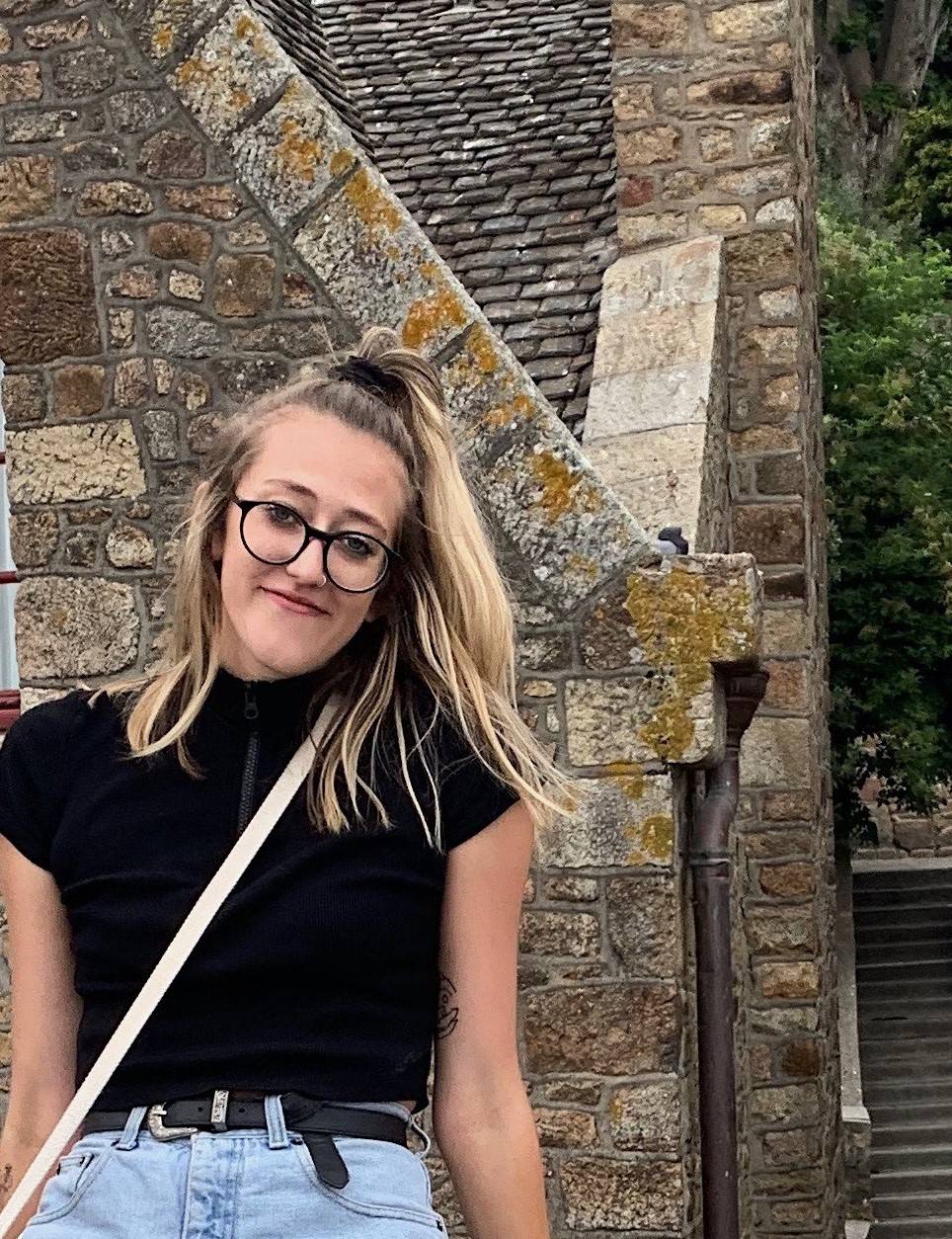 The 2020 undergraduate research essay winner Madeline Deskin focused on transnational organizing by U.S. labor radicals during the Mexican Revolution. Her research initially focused on peonage and forced labor in the Houston area, but as she pored through the digital archive held by Alkek, she noticed that several journalists started covering events in Tamaulipas, Coahuila, and Nuevo Leon. As she realized that the labor beat for the chronicle started including events in Mexico, the research project changed focus to examine the impact of labor unrest in Mexico on these journalists’ understanding of labor and politics. Deskin even pulled out how the journalists covered how conservative sectors in Mexico – allies of Porfirio Diaz – had already started mobilizing politically in the United States to affect domestic politics.
The 2020 undergraduate research essay winner Madeline Deskin focused on transnational organizing by U.S. labor radicals during the Mexican Revolution. Her research initially focused on peonage and forced labor in the Houston area, but as she pored through the digital archive held by Alkek, she noticed that several journalists started covering events in Tamaulipas, Coahuila, and Nuevo Leon. As she realized that the labor beat for the chronicle started including events in Mexico, the research project changed focus to examine the impact of labor unrest in Mexico on these journalists’ understanding of labor and politics. Deskin even pulled out how the journalists covered how conservative sectors in Mexico – allies of Porfirio Diaz – had already started mobilizing politically in the United States to affect domestic politics.What Deskin’s paper demonstrates – and is a finding that needs demonstrating again and again – is that Mexico and the United States are deeply connected. Moreover, that this fact is repeatedly discovered to U.S. journalists’ surprise and chagrin. Moreover, her paper shows that you can do research on an aspect of transnational history without leaving the United States.
What the essays by both Isabel Lozoya (2019) and Madeline Deskin (2020) show is that students at Texas State have an overriding interest the transnational processes and cultures that bind people together across borders in Northern Mexico and the United States Southwest.
The Aleyda Gonzalez Mckiernan Undergraduate Research Essay Prize Committee was happy to award Madeline Deskin the prize. The committee also looks forward to reviewing essays that contribute to our understanding of the Southwest and sharing the scholarship money and the recognition with students.
The CSSW is accepting applications for the 2021 Aleyda Gonzalez Mckiernan Undergraduate Research Essay Prize.
-
Power and Political Theatre at the Capitol
Power and Political Theatre at the Capitol
Dr. Ana Martínez
Thursday, February 11, 2021 | 12:30 pm | Online Via Zoom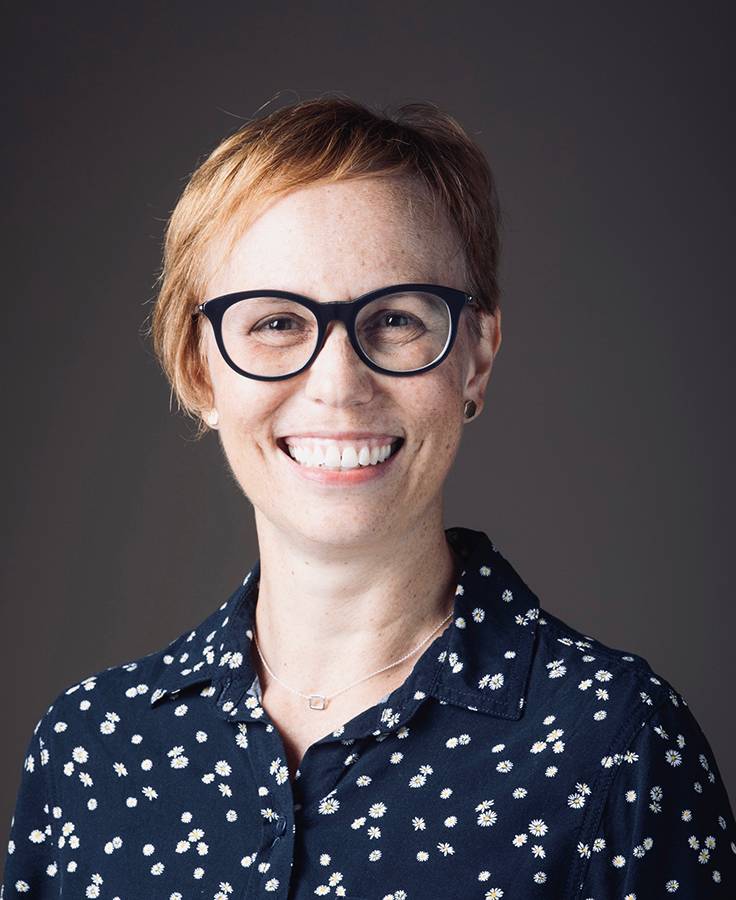 The Zócalo – the central plaza in Mexico City – is the place to stage for central stories about Mexico’s past and future. From ethnic diversity and racial hierarchy during Spanish rule and ethnic politics and state authority, Dr. Ana Martínez’ book Performance in the Zocalo tracks five different moments – from the early conquest through the Porfiriato and past the Zapatista uprising – to examine the way different actors played and challenged the roles available to them in the Plaza Mayor.
The Zócalo – the central plaza in Mexico City – is the place to stage for central stories about Mexico’s past and future. From ethnic diversity and racial hierarchy during Spanish rule and ethnic politics and state authority, Dr. Ana Martínez’ book Performance in the Zocalo tracks five different moments – from the early conquest through the Porfiriato and past the Zapatista uprising – to examine the way different actors played and challenged the roles available to them in the Plaza Mayor. -
Locating Race in Mexican Art, 1750-1850
Locating Race in Mexican Art, 1750-1850: Indigenous and Black Subjects in the Colonial and Early National Periods
Dr. Ray Hernández-Durán
Wednesday, March 3, 2021 | 12:30 pm | Online Via Zoom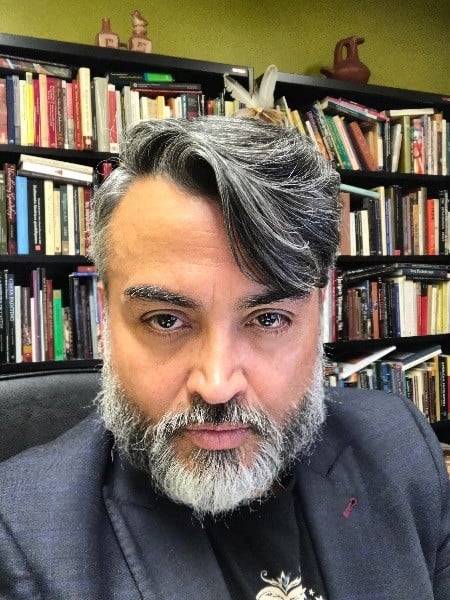 In this talk, Dr. Hernández-Durán will focus on a transitional period in Mexican art history, 1750–1850, and will explore the role of the Academy of San Carlos in shaping Mexican art production from the late colonial period into the first three decades following independence. By looking at the academy in Mexico City during this period, we can trace how the image of the Indian was transformed and the Black subject gradually erased as the colonial period came to an end and independent Mexico began to take form.
In this talk, Dr. Hernández-Durán will focus on a transitional period in Mexican art history, 1750–1850, and will explore the role of the Academy of San Carlos in shaping Mexican art production from the late colonial period into the first three decades following independence. By looking at the academy in Mexico City during this period, we can trace how the image of the Indian was transformed and the Black subject gradually erased as the colonial period came to an end and independent Mexico began to take form. -
Migrant Workers and the Right to Health Care in the U.S.
Migrant Workers and the Right to Health Care in the U.S.
Beatrix Hoffman
Monday, March 8, 2021 | 12:30 pm | Online Via Zoom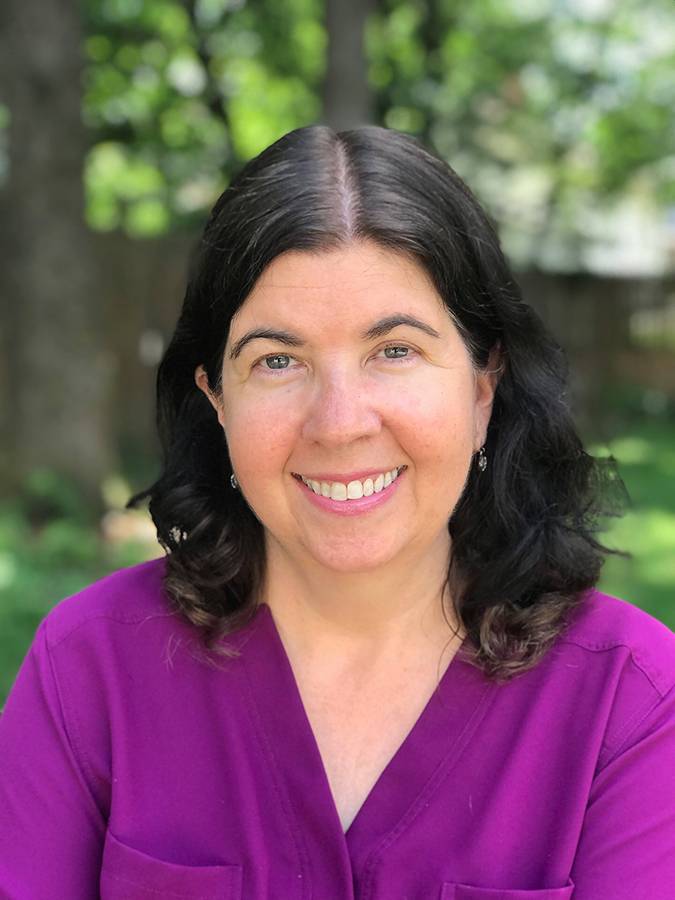 Migrant workers are one of the groups with the least access to health care in the United States. Few have health insurance, and many are subject to unsafe and unhealthy conditions on the job. Yet, surprisingly, migrants have played an important part in expanding access to health care for all Americans. Historian Beatrix Hoffman will discuss migrants' role in the struggle for rights in America's unequal health system. Her talk will focus on two Arizona law cases in 1970s in which migrants fought back against being denied medical treatment, and in the process helped create new rights to health care.
Migrant workers are one of the groups with the least access to health care in the United States. Few have health insurance, and many are subject to unsafe and unhealthy conditions on the job. Yet, surprisingly, migrants have played an important part in expanding access to health care for all Americans. Historian Beatrix Hoffman will discuss migrants' role in the struggle for rights in America's unequal health system. Her talk will focus on two Arizona law cases in 1970s in which migrants fought back against being denied medical treatment, and in the process helped create new rights to health care. -
Feminist Ferment: Women Brewing Change in Texas
Feminist Ferment: Women Brewing Change in Texas
Delorean Wiley
Monday, April 5, 2021 | 12:30 pm | Online Via Zoom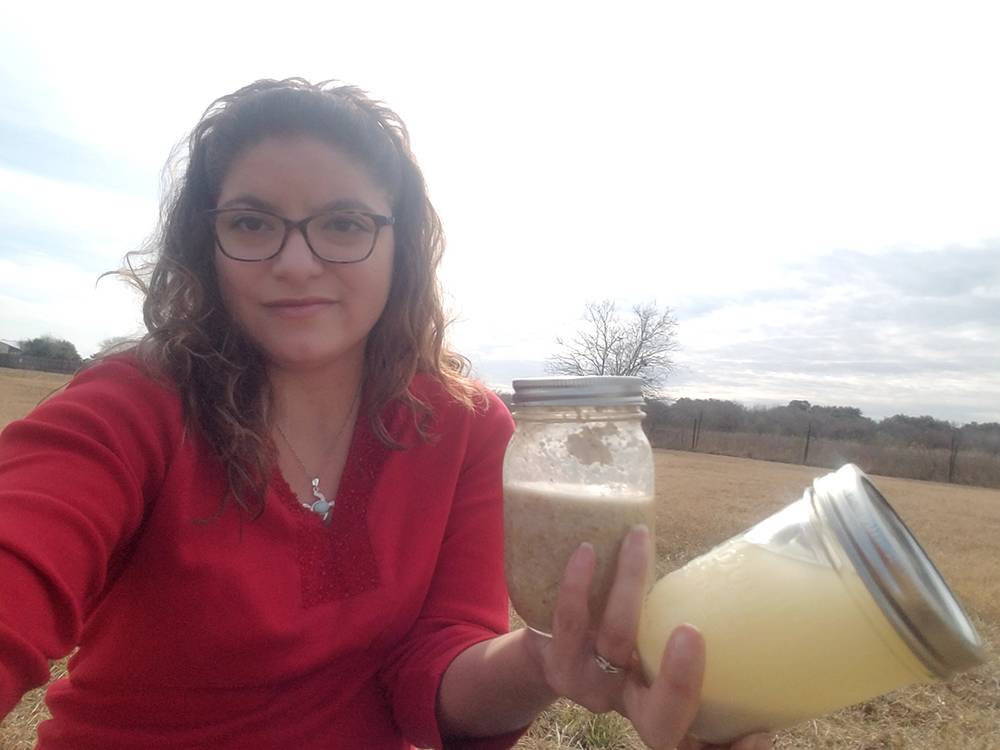 The Texas Craft Brewery scene has become a key emerging sector in the new Texas oil adjacent economy. In an industry built on memories, nostalgias and often, a sense of camaraderie, putting together a brewery provides a set of challenges and unanticipated opportunities for women, as managers, owners, investors, brewmasters and chefs. Geographer Delorean Wiley uses the tools and skills in geography to document, contextualize and analyze the place of women in an industry deeply tied to neighborhood identities and changing self-images.
The Texas Craft Brewery scene has become a key emerging sector in the new Texas oil adjacent economy. In an industry built on memories, nostalgias and often, a sense of camaraderie, putting together a brewery provides a set of challenges and unanticipated opportunities for women, as managers, owners, investors, brewmasters and chefs. Geographer Delorean Wiley uses the tools and skills in geography to document, contextualize and analyze the place of women in an industry deeply tied to neighborhood identities and changing self-images. -
Surgery, Settler-Colonialism and Fetal Personhood: A View from New Spain and Mexico, 1770-1840
Surgery, Settler-Colonialism and Fetal Personhood: A View from New Spain and Mexico, 1770-1840
Elizabeth O'Brien and Altina Hoti
Tuesday, April 6, 2021 | 12:30 pm | Online Via Zoom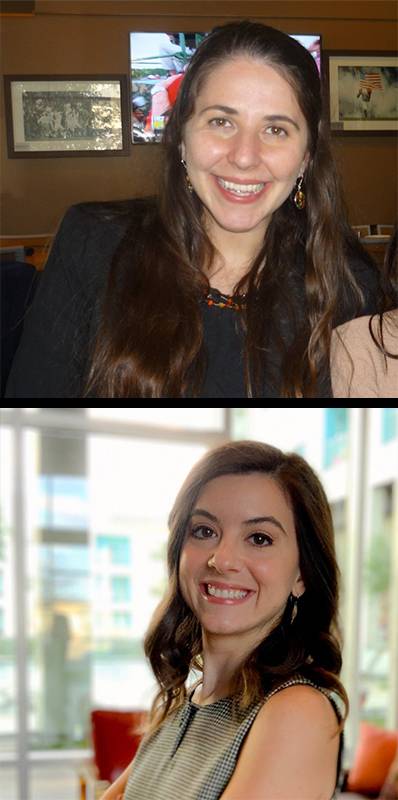 During the eighteenth century, Catholic authorities became increasingly preoccupied with unborn life. Cesarean surgery was a key part of this effort. Medical humanities scholars Elizabeth O’Brien and Altina Hoti will discuss their NEH- sponsored translation project on obstetric writings, placing Indigenous and multi-ethnic Mexico at the heart of global histories of fetal personhood, addressing why this history of forced surgeries continues to affect Church and State approaches to reproductive politics today.
During the eighteenth century, Catholic authorities became increasingly preoccupied with unborn life. Cesarean surgery was a key part of this effort. Medical humanities scholars Elizabeth O’Brien and Altina Hoti will discuss their NEH- sponsored translation project on obstetric writings, placing Indigenous and multi-ethnic Mexico at the heart of global histories of fetal personhood, addressing why this history of forced surgeries continues to affect Church and State approaches to reproductive politics today. -
CSSW Spotlight | Claudia Cardona's Debut Reviewed in the Texas Observer
CSSW Spotlight
Claudia Cardona's Debut Reviewed in the Texas ObserverClaudia D. Cardona's poetry collection, What Remains, emerged from her thesis work at Texas State. Some of which was written in the Brazos during her time as the Center's Editorial Fellow.
What Remains is a love poem to San Antonio and Claudia's way of preserving the place where she grew up before it vanishes to gentrification and time.
Read what the Texas Observer had to say about Claudia's debut collection.
-
CSSW Exhibit | Intimacy Interrupted
CSSW Exhibit
Intimacy Interrupted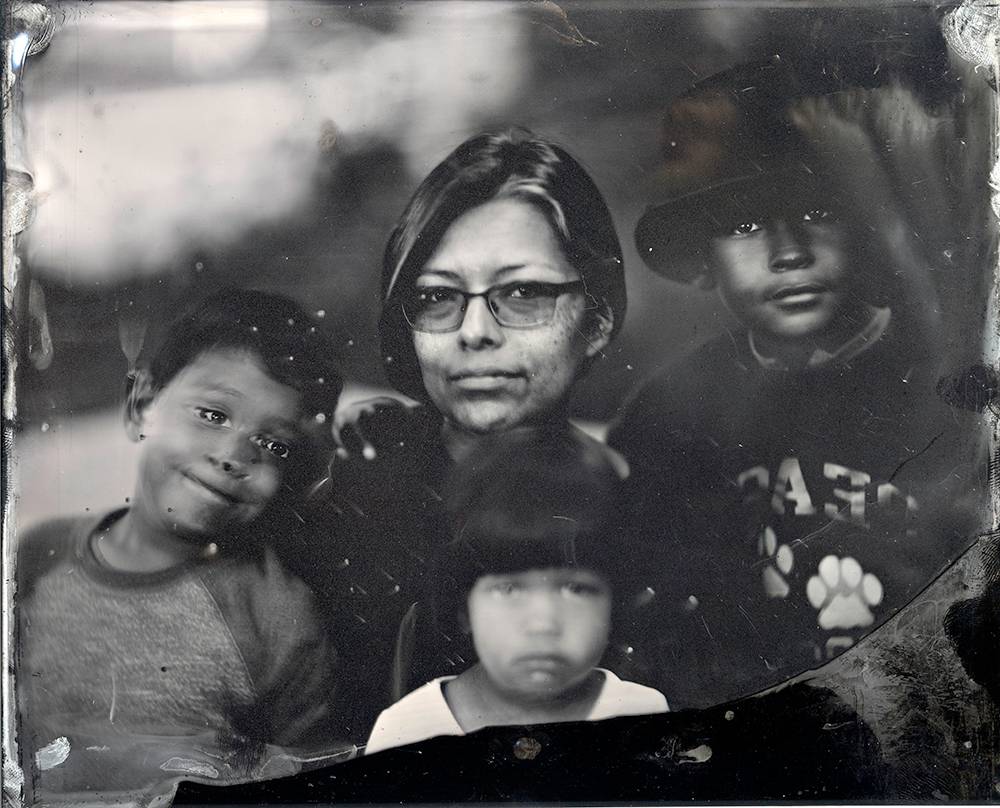
In November 2019, a group of Texas State based photographers worked with artist Will Wilson (Dine), learning tintype techniques alongside the overlapping history of the American capture of native communities and Dine’ lives in prisons and photographs after Civil War times.
What brings these portraits and photographers together is their experience on many sides of the tintype photo exchange, their ongoing work with photography and their commitment to challenge hierarchies embedded in a more democratic and inclusive practice of photography.
The portraits included here were completed after the photo exchange and were first printed during the first COVID19 wave in Texas. You can view the exhibit online or in person in Brazos Hall through the Summer of 2021.
-
Public Schools in the Life of a Community: Centering Black Youth in Austin's Stories
Public Schools in the Life of a Community: Centering Black Youth in Austin's Stories
Roxanne Evans
Monday, April 19, 2021 | 12:30 pm | Online via Zoom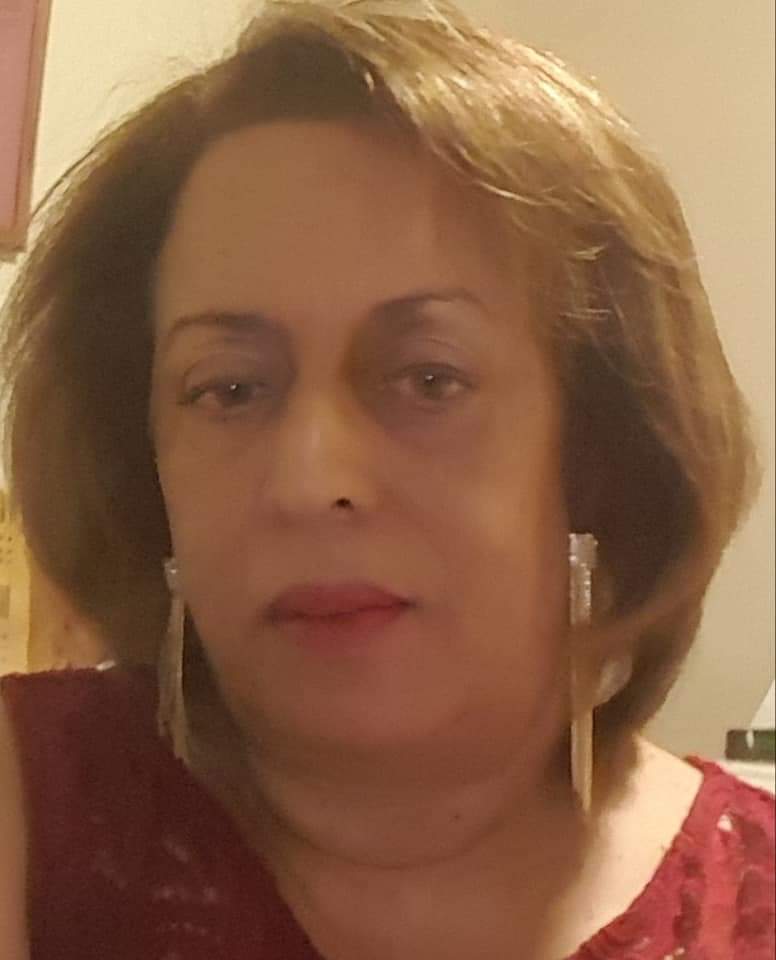 In 1970, when the Supreme Court mandated the de-segregation of Austin’s public schools, Austin’s organized black communities faced a radically different political landscape. Roxanne Evans’ award-winning coverage examined the decisions to close integrated Black majority high schools, the experience of busing, local Black mobilization for school boards and the renewed challenges in the 80s and 90s. Here, Roxanne Evans explores the ways these movements’ victories and challenges still shape local politics in Travis County.
In 1970, when the Supreme Court mandated the de-segregation of Austin’s public schools, Austin’s organized black communities faced a radically different political landscape. Roxanne Evans’ award-winning coverage examined the decisions to close integrated Black majority high schools, the experience of busing, local Black mobilization for school boards and the renewed challenges in the 80s and 90s. Here, Roxanne Evans explores the ways these movements’ victories and challenges still shape local politics in Travis County. -
Cultural Production, Place and Power
Cultural Production, Place and Power
Jennifer Marshall and Geneva Gano
Friday, April 23, 2021 | 12:30 pm | Online via Zoom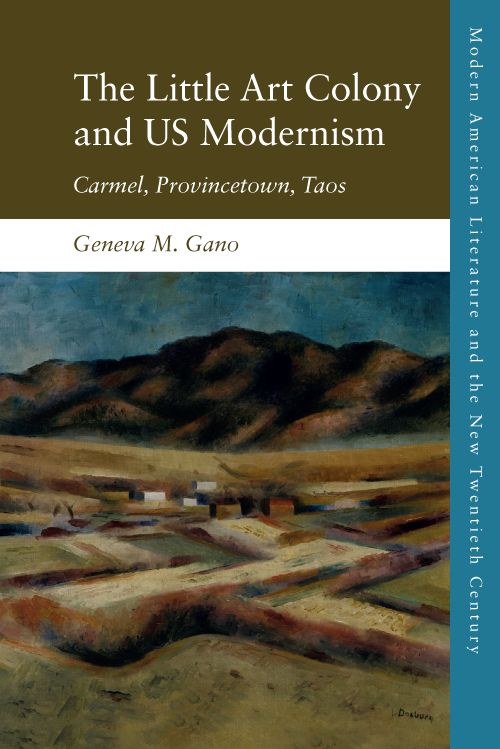 The CSSW, the English Department, the History Department and the College of Liberal Arts are sponsoring a dialogue about art, culture and power based in The Little Art Colony and US Modernism. Professor Jennifer Marshall, an art historian, and Geneva Gano, a cultural studies specialist, discuss the methodological challenges and scholarly rewards involved in closely examining smaller and racially segregated hubs of cultural activity like Taos, Carmel and Provincetown.
The CSSW, the English Department, the History Department and the College of Liberal Arts are sponsoring a dialogue about art, culture and power based in The Little Art Colony and US Modernism. Professor Jennifer Marshall, an art historian, and Geneva Gano, a cultural studies specialist, discuss the methodological challenges and scholarly rewards involved in closely examining smaller and racially segregated hubs of cultural activity like Taos, Carmel and Provincetown. -
Remembering Juneteenth
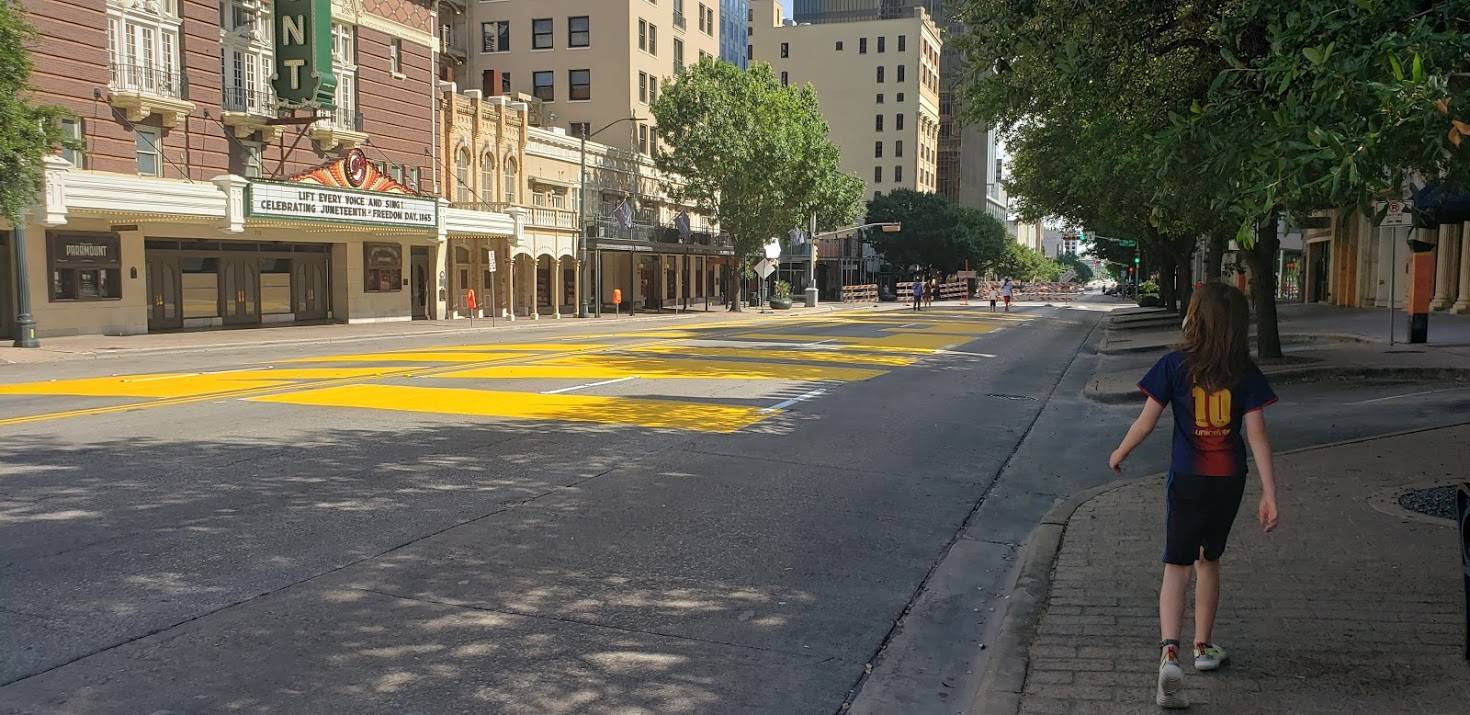 In the mid-1930s, Pierce Harper shared his memories of the overthrow of slavery in east Texas with Fred Dibble and Rheba Beehler, writers assigned to record testimony given by people who had been enslaved under U.S. and confederate law. He remembered well what the movement of the United States army in Texas and Louisiana meant to families like his across the United States.
In the mid-1930s, Pierce Harper shared his memories of the overthrow of slavery in east Texas with Fred Dibble and Rheba Beehler, writers assigned to record testimony given by people who had been enslaved under U.S. and confederate law. He remembered well what the movement of the United States army in Texas and Louisiana meant to families like his across the United States. -
CSSW Spotlight | Mural Revealing Party
Join Linda Rivas and the Council for the Indigenous and Tejano Community for a mural dedication party on Saturday, August 14th at 7:00 at the Quinta Caporales Meat Market in San Marcos! They will have live music by El Combo Oscuro, tacos, and fun activities for the kids! More information can be found on the group Facebook page.
-
On Belonging in the Wake of Eight Killings in Atlanta
On Belonging in the Wake of Eight Killings in Atlanta
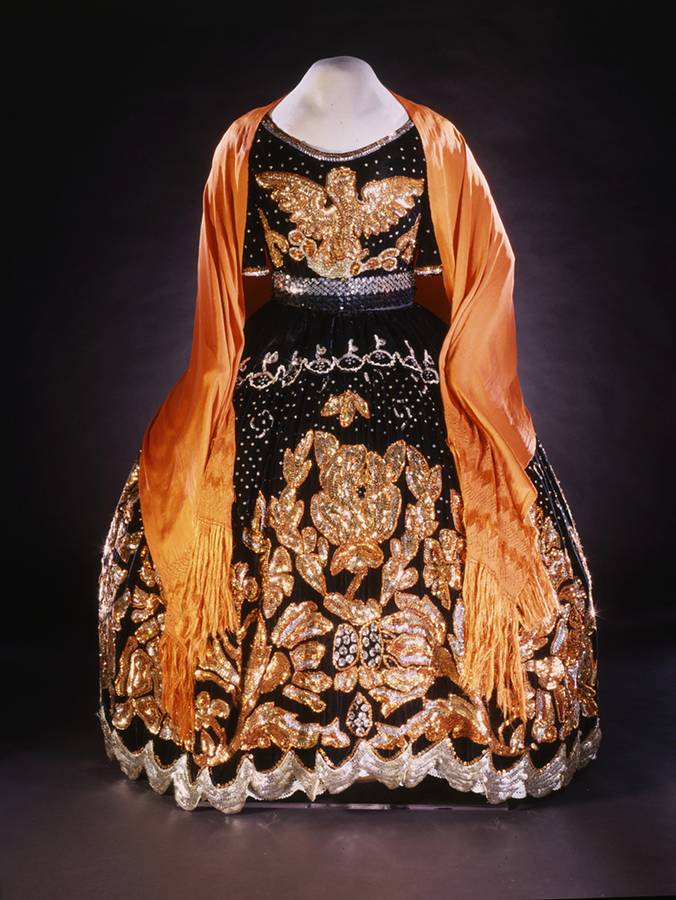 Most scholars in Asian American Studies emphasize that policies and attitudes in the United States have made Asians - regardless of their documented coerced presence in the Americas since at least the 1580s - "alien citizens" and "perpetual foreigners," like so many other long-term residents of the continent to the East of Asia and West of Africa and western Europe.
Most scholars in Asian American Studies emphasize that policies and attitudes in the United States have made Asians - regardless of their documented coerced presence in the Americas since at least the 1580s - "alien citizens" and "perpetual foreigners," like so many other long-term residents of the continent to the East of Asia and West of Africa and western Europe.The established response in Cherokee County to the killings in Atlanta ask us as members of a university to do far more than recognize the recent presence of Asian neighbors and residents. Rather, we need to account for the many ways tacit attitudes regarding who belongs and who is an immigrant shape our policies and understandings of our body politic. We also need policies that enhance living and working conditions for the most vulnerable among us.
-
Books and Bookstores in the Chicano Movement: A Publisher Remembers
Books and Bookstores in the Chicano Movement: A Publisher Remembers
Rolando Cortez
Thursday, September 16, 2021 | 12:30 pm | Online via Zoom and Brazos Hall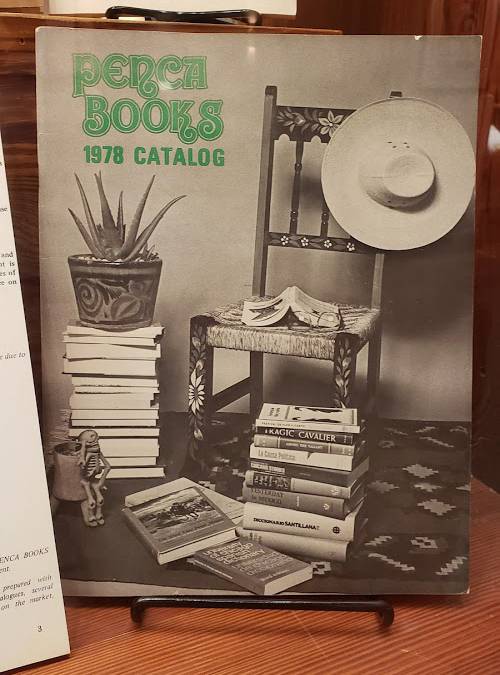 In 1978, a group of friends in West Side San Antonio gathered to put together a bookstore, a cultural center and a publishing house in a church basement. Rolando Cortez, one of the organizers, reflects on the work Penca Books and the Penca Books cultural center did in and for the Chicano movement, for San Antonio, for Texas and for the greater Southwest.
In 1978, a group of friends in West Side San Antonio gathered to put together a bookstore, a cultural center and a publishing house in a church basement. Rolando Cortez, one of the organizers, reflects on the work Penca Books and the Penca Books cultural center did in and for the Chicano movement, for San Antonio, for Texas and for the greater Southwest. -
CSSW Spotlight | Poetry Reading
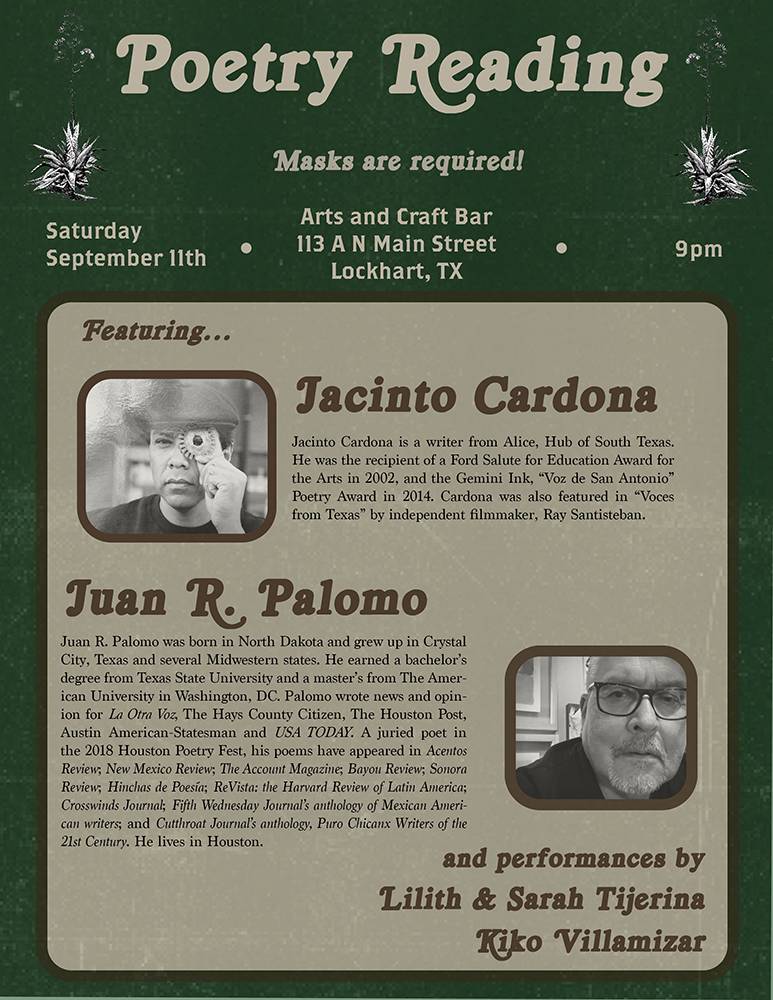 The Center for the Study of the Southwest is co-sponsoring a poetry reading on Saturday, September 11, 2021 at the Arts and Craft Bar in Lockhart.
The Center for the Study of the Southwest is co-sponsoring a poetry reading on Saturday, September 11, 2021 at the Arts and Craft Bar in Lockhart.The reading will feature:
Jacinto Cardona, recipient of a Ford Salute for Education Award for the Arts in 2002 and a Gemini Ink, "Voz de San Antonio" Poetry Award in 2014.Juan R. Paloma, a Texas State Alumni and former writer for La Otra Voz, The Hays County Citizen, The Houston Post, Austin American Statesman, and USA Today, and has had poems published in numerous publications and poetry collections.
With performances by Lility and Sarah Tijeina, and Kiko Vallamizar.
-
Embodied Knowledge and Accordion Music: History, Place, and Dance in the Texas Mexican Conjunto
Embodied Knowledge and Accordion Music: History, Place, and Dance in the Texas Mexican Conjunto
Dr. Alejandro Wolbert Pérez
Thursday, September 23, 2021 | 1:00 pm Dr. Pérez will discuss conjunto as a form of embodied knowledge rooted in the lived experiences of Texas Mexicans in the mid-20th century, situated within a larger conversation around identity, cultural memory, and decolonial struggles. His presentation will focus upon the conjunto dance style called the taquachito, or little possum, and its enduring significance.
Dr. Pérez will discuss conjunto as a form of embodied knowledge rooted in the lived experiences of Texas Mexicans in the mid-20th century, situated within a larger conversation around identity, cultural memory, and decolonial struggles. His presentation will focus upon the conjunto dance style called the taquachito, or little possum, and its enduring significance. -
Forget the Alamo: Popular Memory and Public History
Forget the Alamo: Popular Memory and Public History
Thursday, September 23, 2021 | 12:30pm | Online via Zoom and in person at TMH 101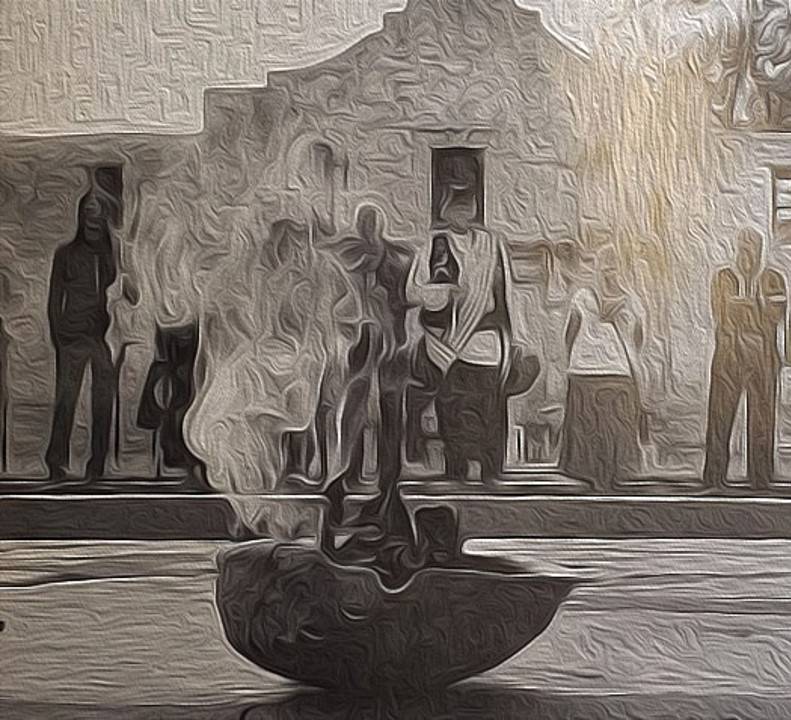 Dr. Lynn Denton joins the authors of Forget the Alamo: the Rise and Fall of an American myth, Bryan Burrough, Chris Tomlinson, and Jason Stanford, as they put together a vivid and skilled picture of the way a public history gets made in Texas, using the subsequent chroniclers of the 1836 siege of the Alamo as their template.
Dr. Lynn Denton joins the authors of Forget the Alamo: the Rise and Fall of an American myth, Bryan Burrough, Chris Tomlinson, and Jason Stanford, as they put together a vivid and skilled picture of the way a public history gets made in Texas, using the subsequent chroniclers of the 1836 siege of the Alamo as their template. -
Migration Stories Workshop | Facilitated by Artist Mark Menjivar
Migration Stories Workshop
Facilitated by Artist Mark Menjivar
Opening Reception Wednesday, October 13, 2021 | 5:00 pm | Brazos Hall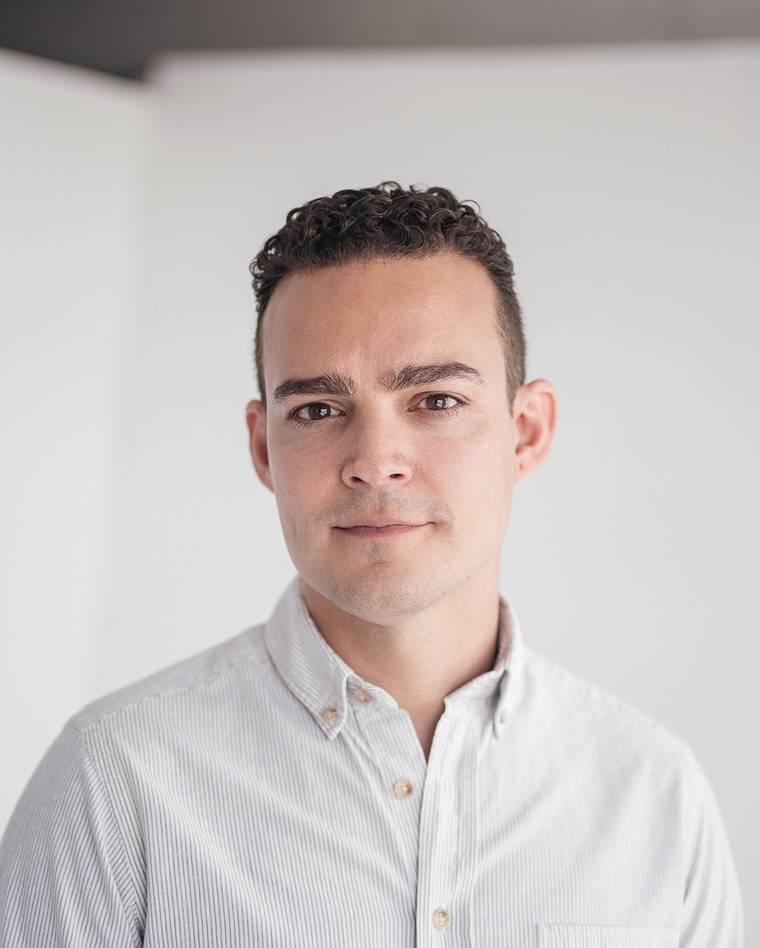 Migration Stories is an oral history project focusing on personal narratives of how we arrived to where we are now. We all have a migration story, some are closer than others. Participants to this event will learn more about the project and be invited to explore their own family history. Together we will produce broadsides of our own migration stories to be shared at the Center for the Study of the Southwest in the coming months.
Migration Stories is an oral history project focusing on personal narratives of how we arrived to where we are now. We all have a migration story, some are closer than others. Participants to this event will learn more about the project and be invited to explore their own family history. Together we will produce broadsides of our own migration stories to be shared at the Center for the Study of the Southwest in the coming months.The exhibition runs through early April 2022.
-
Archiving Neurodiversity at the Austin State Hospital, 1856-Today: A Conversation with Jenna Cooper and Elizabeth Stauber
Archiving Neurodiversity at the Austin State Hospital, 1856-Today: A Conversation with Jenna Cooper and Elizabeth Stauber
Thursday, October 21, 2021 | 12:30pm | Online via Zoom and in person at Brazos Hall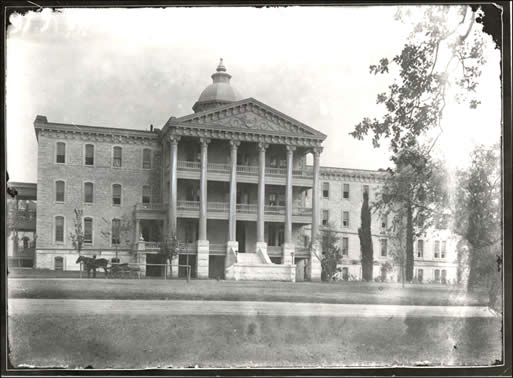 Jenna Cooper (Austin History Center) and Elizabeth Stauber (Hogg Foundation for Mental Health) are members of Dell Med's Austin State Hospital (ASH) Brain Health System Redesign project - History of ASH workgroup tasked with developing recommendations for meaningful ways to preserve the Austin State Hospital’s history and to share how the campus and treatment for mental illness have evolved since 1856. In this presentation, Cooper and Stauber speak on their experiences modeling interventions in their work as archivists that are more gender, race and neurodiverse inclusive.
Jenna Cooper (Austin History Center) and Elizabeth Stauber (Hogg Foundation for Mental Health) are members of Dell Med's Austin State Hospital (ASH) Brain Health System Redesign project - History of ASH workgroup tasked with developing recommendations for meaningful ways to preserve the Austin State Hospital’s history and to share how the campus and treatment for mental illness have evolved since 1856. In this presentation, Cooper and Stauber speak on their experiences modeling interventions in their work as archivists that are more gender, race and neurodiverse inclusive. -
Fastpitch Softball, The Mexican American Way
Fastpitch Softball, The Mexican American Way
Ben Chappell
Thursday, October 28, 2021 | 12:30pm | Online via Zoom and in person at Brazos Hall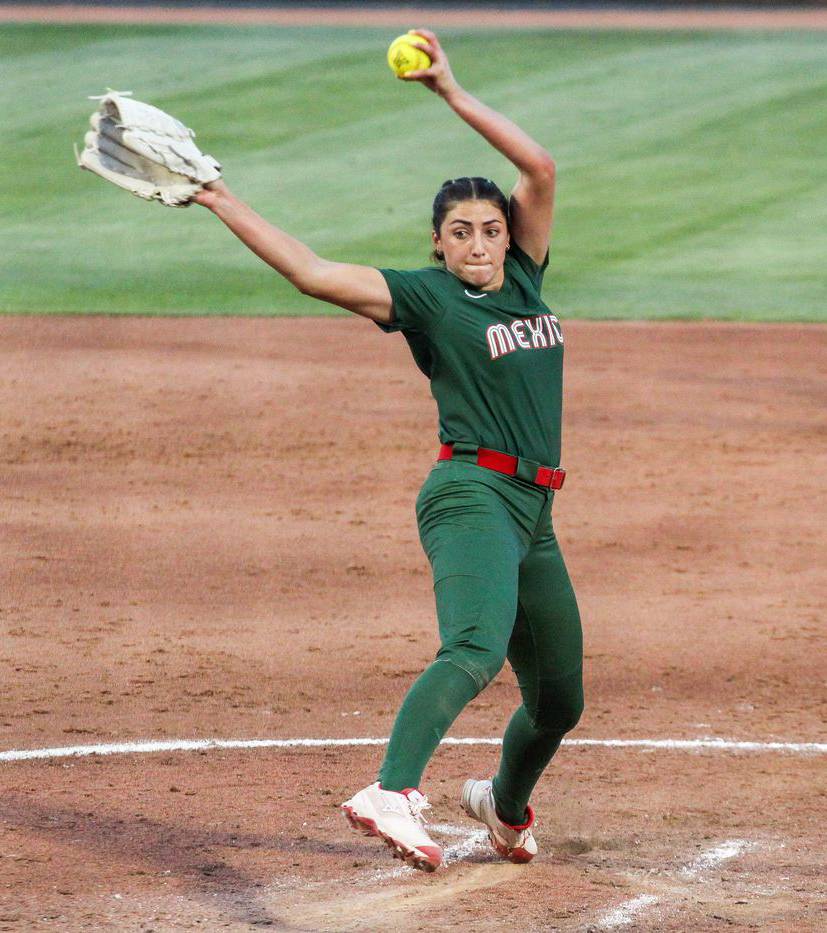 Beginning in the 1920s, after the Mexican Revolution, workers for the Missouri-Pacific railroad started playing competitive softball, using their access to the rails to set up a traveling circuit and league. Working with the memories and material culture of third and fourth generation members of this traveling fast-pitch softball community, American Studies specialist Ben Chappell has crafted a compelling historical ethnography – Mexican American Fastpitch: Identity at Play in Vernacular Sport.
Beginning in the 1920s, after the Mexican Revolution, workers for the Missouri-Pacific railroad started playing competitive softball, using their access to the rails to set up a traveling circuit and league. Working with the memories and material culture of third and fourth generation members of this traveling fast-pitch softball community, American Studies specialist Ben Chappell has crafted a compelling historical ethnography – Mexican American Fastpitch: Identity at Play in Vernacular Sport. -
CSSW Spotlight | John Mckiernan-Gonzalez Interviewed on Radio Bilingue
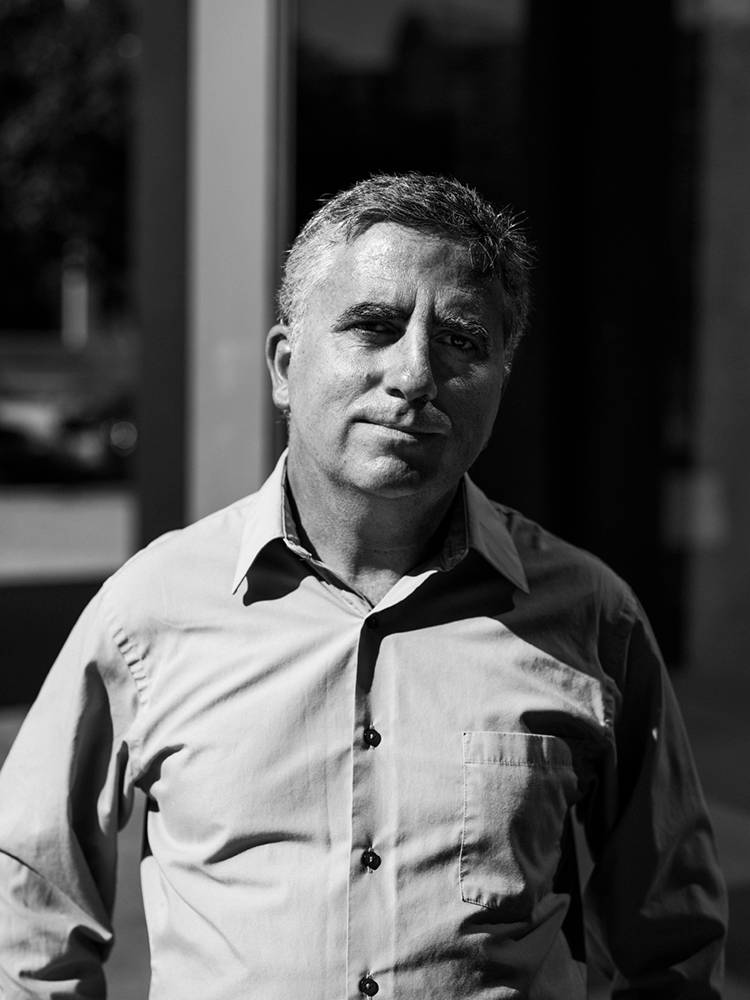 Radio Bilingue, a live broadcast Spanish language national NPR radio show, interviewed John Mckiernan-Gonzalez on the impact of HB 3979 on the teaching and research of history in public institutions in Texas. The conversation revolved around enforcement, the increasingly presence of Latina/os & other faculty of color in institutions doing history, and the possible impact on teacher-parent relationships.
Radio Bilingue, a live broadcast Spanish language national NPR radio show, interviewed John Mckiernan-Gonzalez on the impact of HB 3979 on the teaching and research of history in public institutions in Texas. The conversation revolved around enforcement, the increasingly presence of Latina/os & other faculty of color in institutions doing history, and the possible impact on teacher-parent relationships. -
CSSW Spotlight | College of Liberal Arts Salon Series Lecture
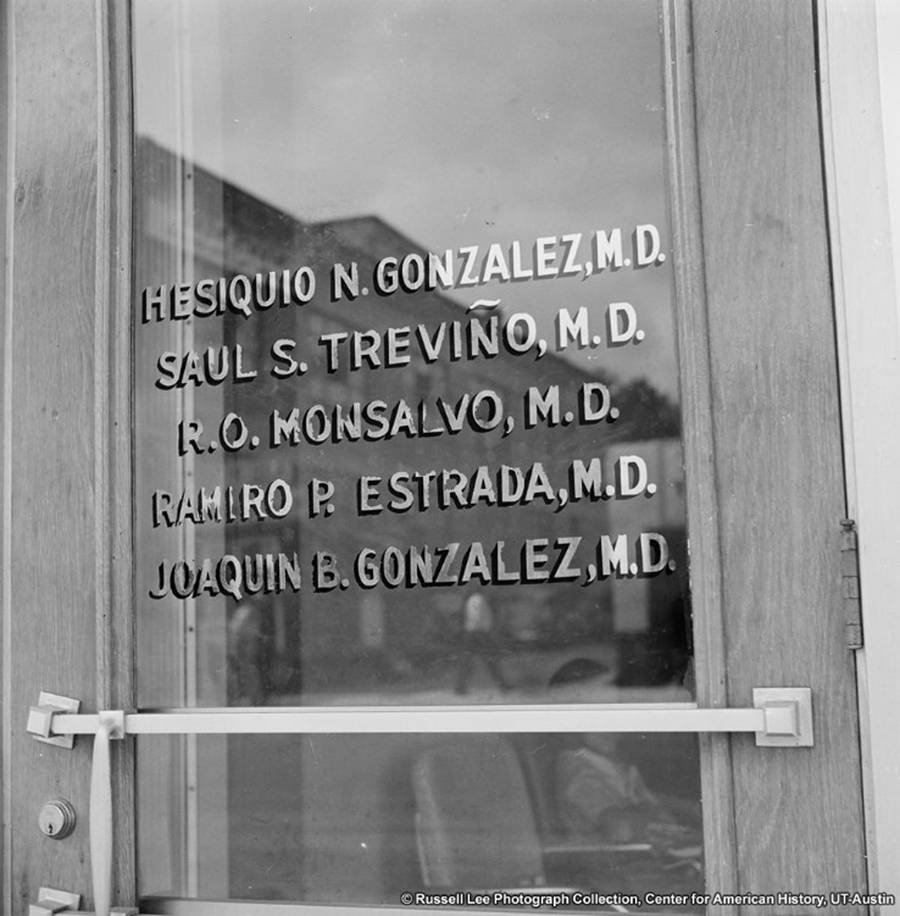 CSSW Director, John Mckiernan-González, will be sharing their work on Latina/o/x communities and medical history with the general public on the 23rd of September at 6:00 pm. What is the theme: essential and disposable. There will be references to movies, strikes, deportations, vaccinations, civil rights law and non-pharmaceutical interventions.
CSSW Director, John Mckiernan-González, will be sharing their work on Latina/o/x communities and medical history with the general public on the 23rd of September at 6:00 pm. What is the theme: essential and disposable. There will be references to movies, strikes, deportations, vaccinations, civil rights law and non-pharmaceutical interventions.In what ways have the histories of Latina/o communities and medical authority been intertwined since 1848? And, why is it so hard to make these connections visible? Historian John Mckiernan-González traces the ways Latina/o communities have been essential and ignored in the tellings of medical history.
-
CSSW Spotlight | Ethnic Studies Program: Lockhart High School
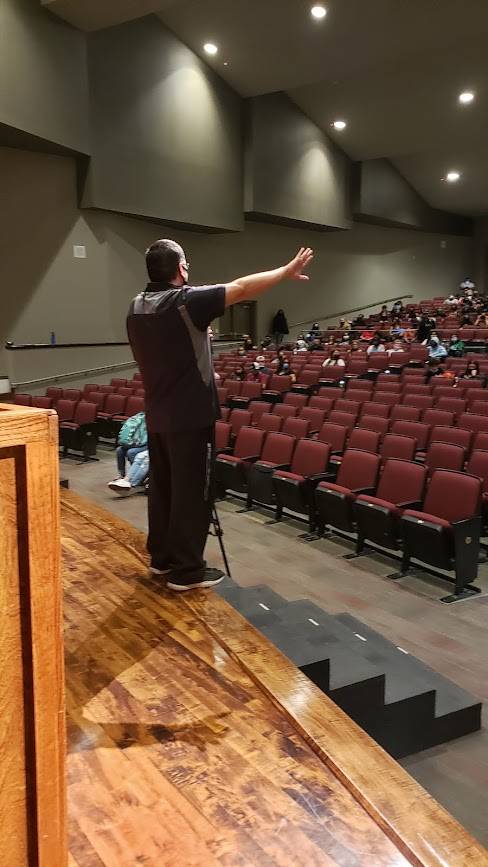 The Ethnic Studies Program at Lockhart High School invited faculty at Texas State University to speak to parts of the campus on issues connected to the celebration of Hispanic heritage, independence days across Latin America and matters that affect Latina/o/x communities across the United States and the world. Faculty affiliate and director of the Center for International Studies reflected on the importance of empathy for the oppressed through his work on the movements linked to Emiliano Zapata. John Mckiernan-Gonzalez reflected on the impact of the Haitian Revolution on anti-slavery and independence movements across the Americas. These are the kind of relationships the Center would like to strengthen with local communities.
The Ethnic Studies Program at Lockhart High School invited faculty at Texas State University to speak to parts of the campus on issues connected to the celebration of Hispanic heritage, independence days across Latin America and matters that affect Latina/o/x communities across the United States and the world. Faculty affiliate and director of the Center for International Studies reflected on the importance of empathy for the oppressed through his work on the movements linked to Emiliano Zapata. John Mckiernan-Gonzalez reflected on the impact of the Haitian Revolution on anti-slavery and independence movements across the Americas. These are the kind of relationships the Center would like to strengthen with local communities.Pictuted here is Ethic Studies and history professor Robert Yañez jr. warming the crowd of students at the Gerry Ohlendorf Performing Arts Center.
-
Not an Elegy: An Oral History of our Opioid Reckoning
Not an Elegy: An Oral History of our Opioid Reckoning
Amy Sullivan
Monday, November 15, 2021 | 12:30pm | Online via Zoom and in person at Brazos Hall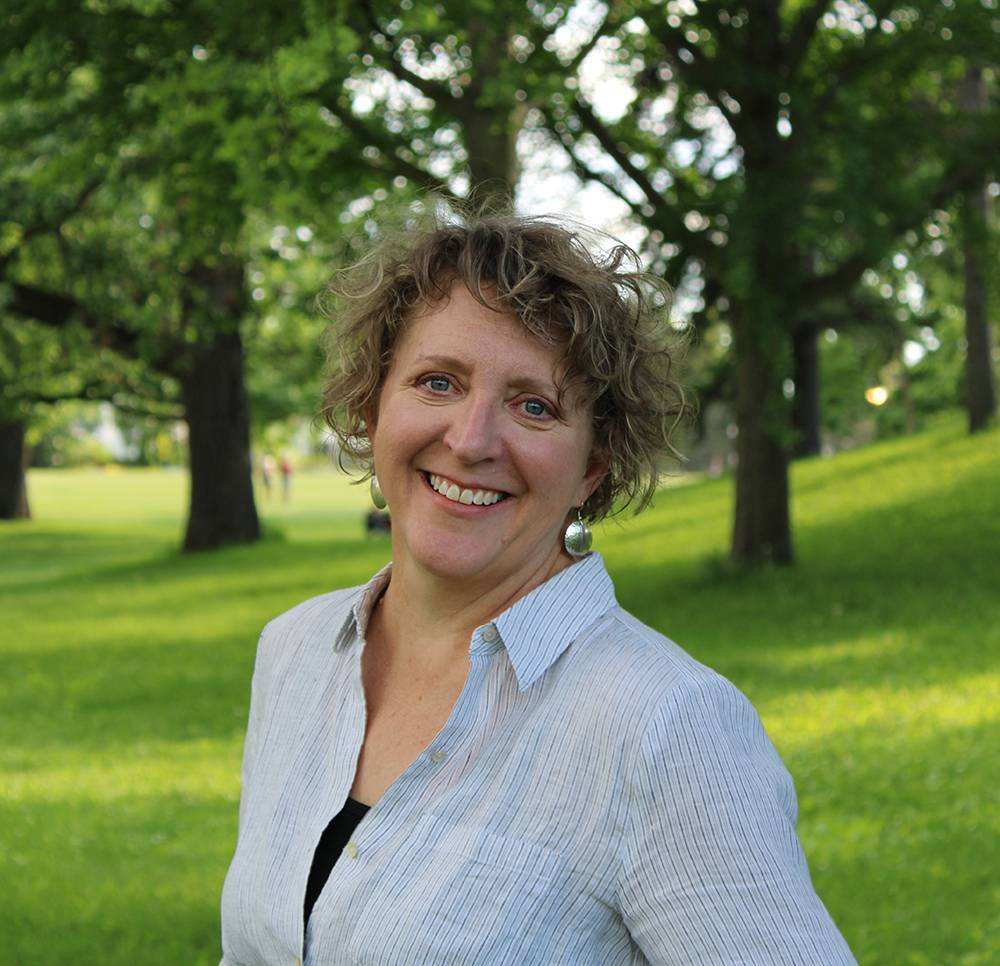 The opioid epidemic has lowered life expectancy in the U.S., challenged common abstinence/anonymity rehab practices, and devastated communities. Amy Sullivan’s Opioid Reckoning listens to how families and professional caregivers are wrestling with these new realities.
The opioid epidemic has lowered life expectancy in the U.S., challenged common abstinence/anonymity rehab practices, and devastated communities. Amy Sullivan’s Opioid Reckoning listens to how families and professional caregivers are wrestling with these new realities. -
CSSW Holiday Message
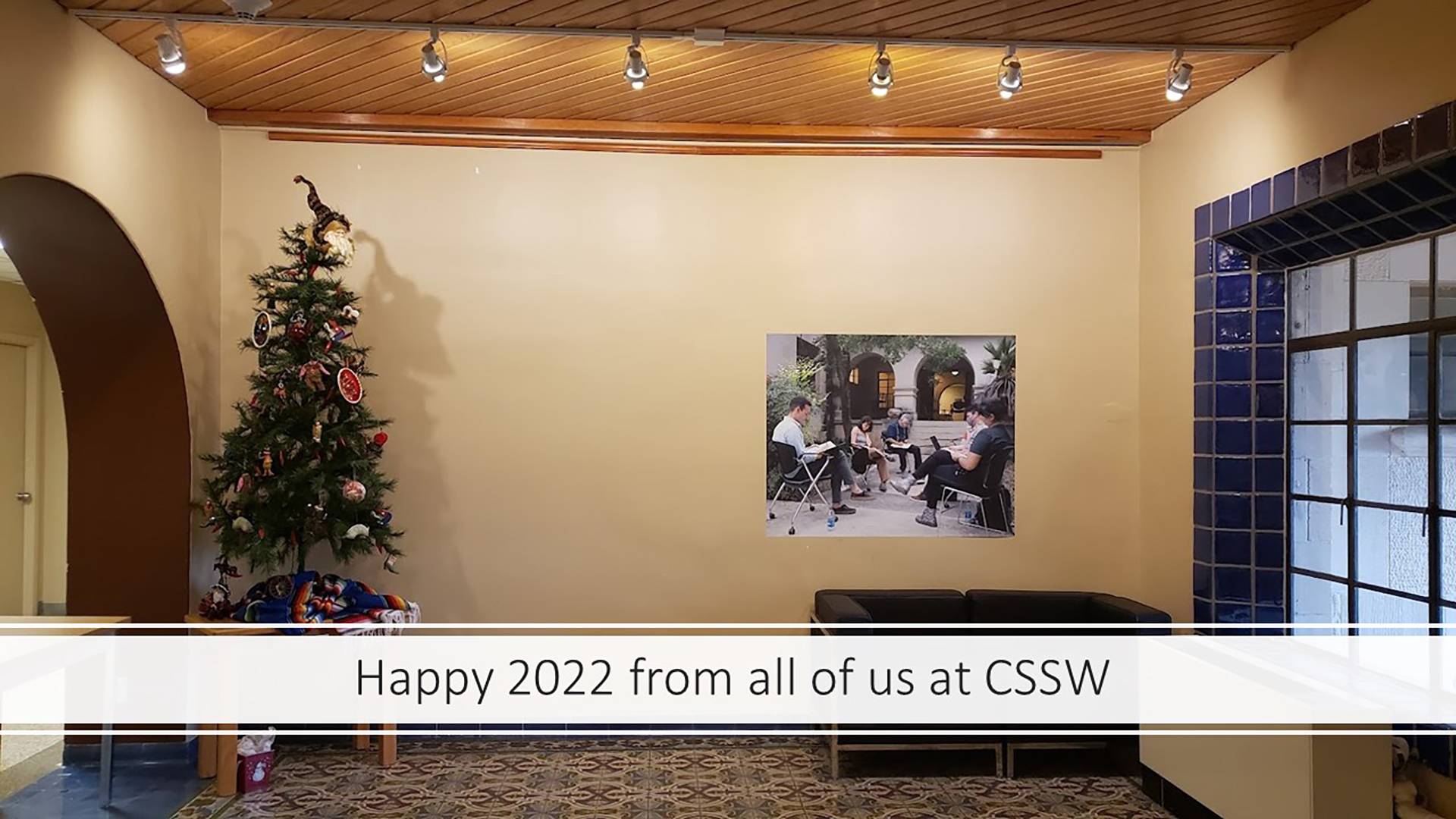 The pandemic has rolled through our lives, upending almost everything we assumed we knew about the Southwest and confirming how human connections have helped us manage the great isolation that has accompanied the anxiety and the threat of being in community with the people we love and the places that sustain us.
The pandemic has rolled through our lives, upending almost everything we assumed we knew about the Southwest and confirming how human connections have helped us manage the great isolation that has accompanied the anxiety and the threat of being in community with the people we love and the places that sustain us.If you are reading this note, we are so thankful that you are still with us and – like us – are both hopeful and sanguine about what surprises and joys 2022 will bring us all.
Thank you for being a part of the CSSW!
-
-
2020 News and Events
-
CSSW Spotlight | Center Director Interviewed by Radio Bilingue/ Linea Abierta
CSSW Spotlight
Center Director Interviewed by Radio Bilingue/ Linea AbiertaCSSW Director,John Mckiernan-González, was recently interviewed by the national call-in show – Radio Bilingue/ Linea Abierta that interviewed me regarding epidemics, quarantines and xenophobia. The interview can be found on the Radio Bilingue website.
-
CSSW Spotlight | Will Wilson Holds Critical Indigenous Photographic Exchange (CIPX)
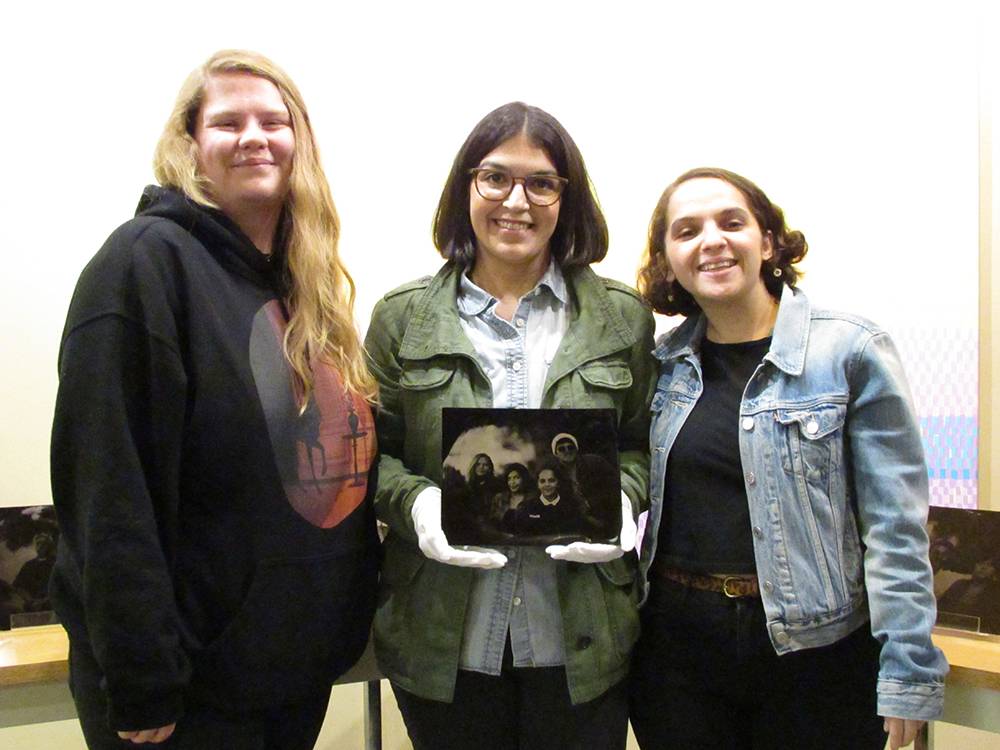 On November 16, 2019, photographer and artist Will Wilson held a Critical Indigenous Photographic Exchange [CIPX] with members and allies of central Texas’ indigenous communities. Dine’ artist Will Wilson started the CIPX as a direct counter to the centennial celebration of Edward S. Curtis’ compendium of Native American and indigenous subjects.
On November 16, 2019, photographer and artist Will Wilson held a Critical Indigenous Photographic Exchange [CIPX] with members and allies of central Texas’ indigenous communities. Dine’ artist Will Wilson started the CIPX as a direct counter to the centennial celebration of Edward S. Curtis’ compendium of Native American and indigenous subjects.Photography students Brandy Hill, Ruby Longoria and Rebecca Jenson hold a tintype they helped develop during a CIPX San Marcos workshop in November.
More about CIPX can be found on the CIPX news page.
-
School Closures and Black Depopulation in Austin, Texas
School Closures and Black Depopulation in Austin, Texas
Ricardo H. Lowe
Thursday, February 13, 2020 | 12:30 pm | Brazos Hall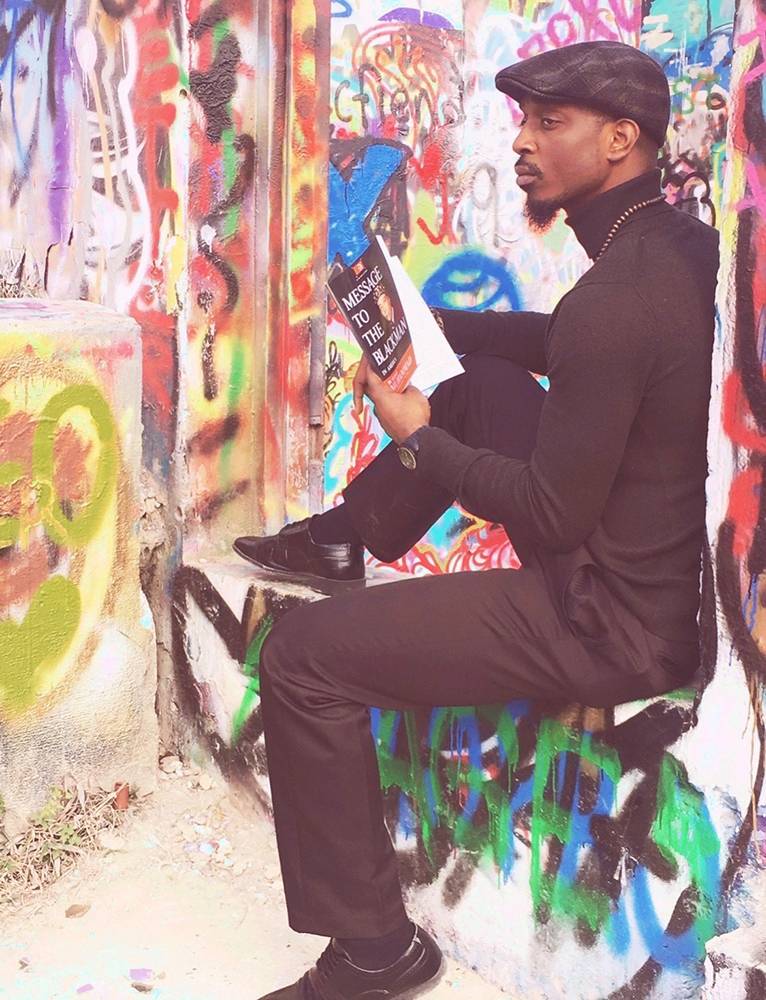
This project explores the role of local public policy – in particular, school closing decisions – in displacing Austin African Americans from their homes and neighborhoods in the heart of Texas.
Ricardo H. Lowe, Jr. is a Research Associate for IUPRA, the Institute for Urban Policy Research and Analysis, at The University of Texas at Austin and a Doctoral Student in Applied Demography at UT San Antonio. He served five years as a federal statistician and is well-versed in statistical application and quantitative methods. His research interests are broad, but typically involve suburbanization, maternal health, and education. Ricardo also is a trained sociologist, and holds membership with the Association of Black Sociologists (ABS), along with two nationally renowned Honor Societies – Alpha Kappa Delta and Alpha Chi.
-
CSSW Spotlight | Infrarrealista Review Launch Party
CSSW Spotlight
Infrarrealista Review Launch Party
Saturday, March 7, 2020 | 8:00 pm - 2:00 am
El Luchador Bar, 622 Roosevelt AVE, San Antonio, TX 78210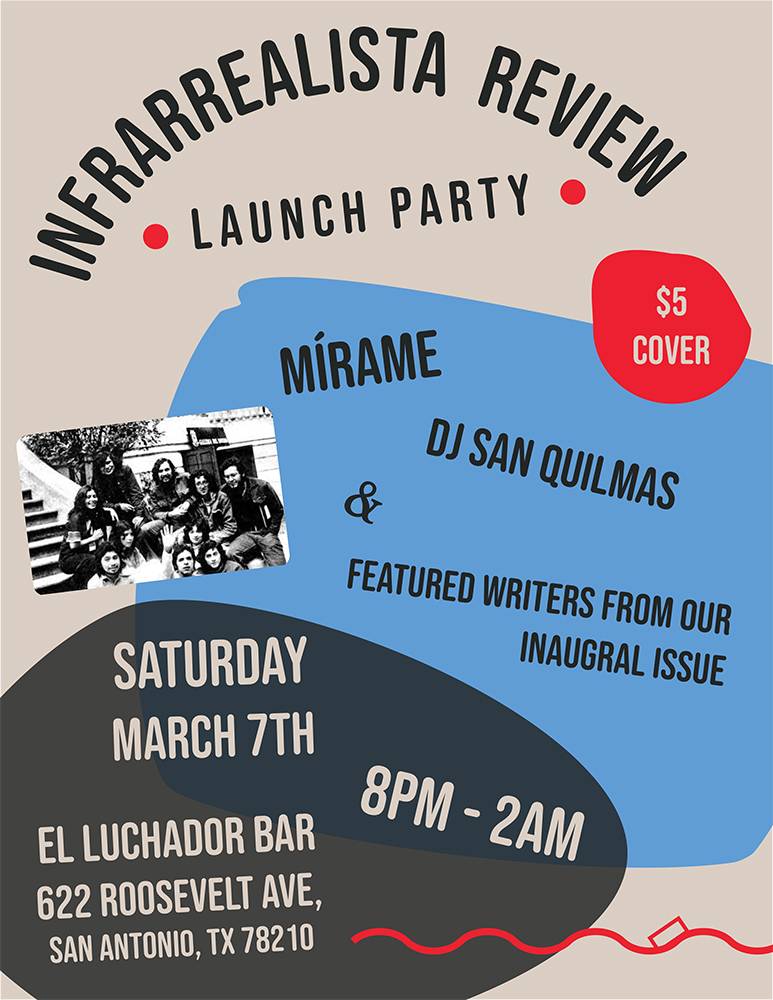 Infrarrealista Review is a literary journal that invites Texan writers who are outside of the literary tradition to reject binaries and take control over their narratives, and art, rather than accepting labels largely invited by white academics.
Infrarrealista Review is a literary journal that invites Texan writers who are outside of the literary tradition to reject binaries and take control over their narratives, and art, rather than accepting labels largely invited by white academics.We have borrowed the name Infrarrealistas from the avant-garde literary movement started in Mexico City.
Our launch party is proud to present music by the San Antonio band Mirame. The group fuses indie rock with R&B and various Latin music genres and shed light on Culture, Environmentalism, and Love. Scholar of Tejanx music, DJ San Quilmas, will also play a special set. Anel H. Flores, also a San Antonio Native and author of the Queer Chicanx novel, Empanada, will be reading amongst other Texan writers and poets.
-
CSSW Spotlight | William Jensen's Short Story in Stoneboat's Best of Decade Issue
CSSW Spotlight
William Jensen's Short Story in Stoneboat's Best of Decade IssueWilliam Jensen’s “Camino Real,” which was originally published in 2014 and nominated for a Pushcart Prize, was reprinted in the latest issue of Stoneboat as part of their “best of the decade” edition. The story focuses on a nomadic father and son journeying through Texas while trying to maintain a sense of purpose.
You can find the issue on Stoneboat's website.
-
To Reward the Wrong Way Is Not the American Way: Immigrants’ Rights and the Battle over Welfare in the 90s
To Reward the Wrong Way Is Not the American Way: Immigrants’ Rights and the Battle over Welfare in the 90s
Sarah Coleman
Brazos Hall | Wednesday, March 11, 2020 | 12:00 pm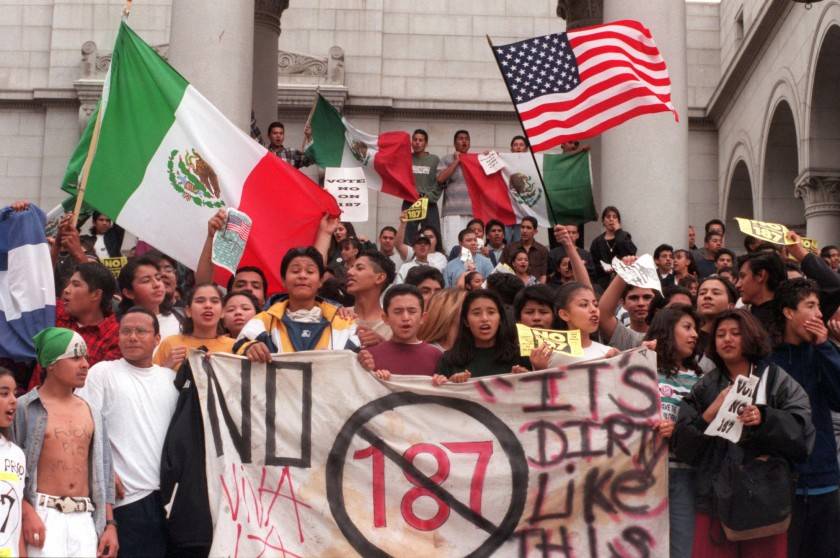 This presentation focuses on a broad shift in immigrants’ rights and welfare policy in the 1990s. In the GOP, conservatives—including the newly elected Speaker of the House Newt Gingrich—used Proposition 187 in the “Contract with America” and more broadly harness the ballot initiative’s electoral popularity to push the Republican Party toward a restrictionist immigration policy. Within the Clinton White House, concerns about California in the 1996 presidential election grew after seeing Proposition 187, giving strength to those pushing centrist ideas of welfare reform and immigration restriction. These shifts enabled the 1996 Welfare Reform Act, which included provisions that removed millions of authorized immigrants from Supplemental Security Income (SSI), food stamps and other programs. The welfare reform act signaled the emergence of a new period of immigration policy.
This presentation focuses on a broad shift in immigrants’ rights and welfare policy in the 1990s. In the GOP, conservatives—including the newly elected Speaker of the House Newt Gingrich—used Proposition 187 in the “Contract with America” and more broadly harness the ballot initiative’s electoral popularity to push the Republican Party toward a restrictionist immigration policy. Within the Clinton White House, concerns about California in the 1996 presidential election grew after seeing Proposition 187, giving strength to those pushing centrist ideas of welfare reform and immigration restriction. These shifts enabled the 1996 Welfare Reform Act, which included provisions that removed millions of authorized immigrants from Supplemental Security Income (SSI), food stamps and other programs. The welfare reform act signaled the emergence of a new period of immigration policy. -
Songlines: Following Joy Harjo’s Musical Route
Songlines: Following Joy Harjo’s Musical Route
Audrey Goodman
Brazos Hall | Wednesday, March 25, 2020 | 3:30 pm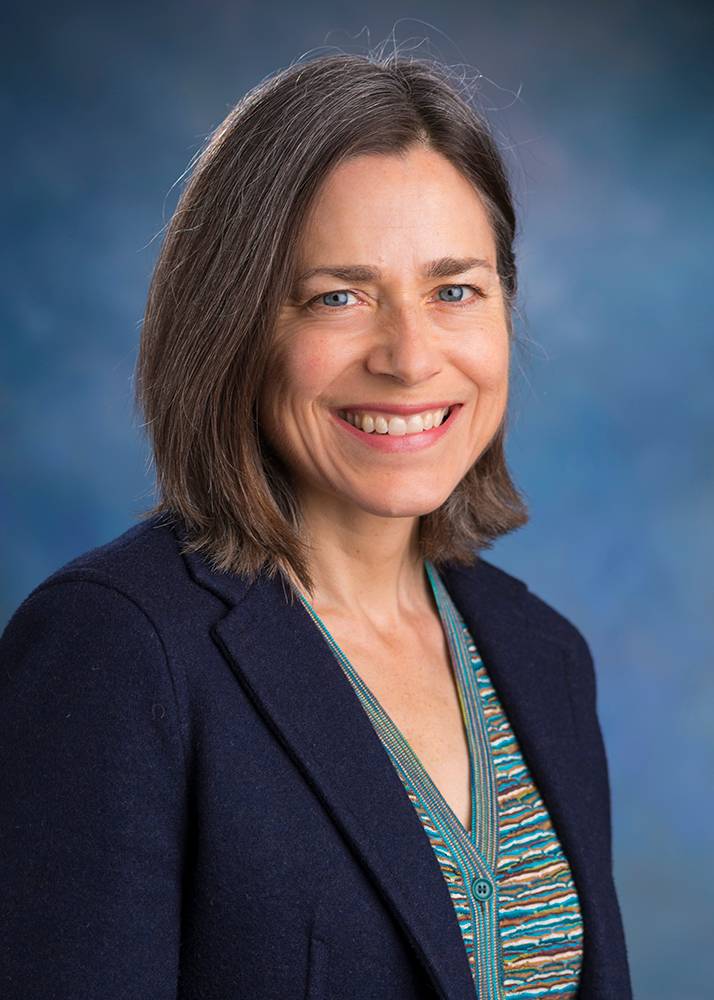 Muskogee poet and musician Joy Harjo plays with many forms of song, blues, and jazz to imagine pathways through time, across space, and towards new futures. This talk considers how Harjo’s musical sources -- from the jazz beats of Gwendolyn Brooks’s poetry to the soaring improvisations of Charlie Parker’s saxophone and the rhythms of Muskogee stomp dance – inspire her to create patterns of call and response, as well as dynamic layers of sound, story, and imagery.
Muskogee poet and musician Joy Harjo plays with many forms of song, blues, and jazz to imagine pathways through time, across space, and towards new futures. This talk considers how Harjo’s musical sources -- from the jazz beats of Gwendolyn Brooks’s poetry to the soaring improvisations of Charlie Parker’s saxophone and the rhythms of Muskogee stomp dance – inspire her to create patterns of call and response, as well as dynamic layers of sound, story, and imagery. -
CSSW Spotlight | NYU Latinx Project Features CSSW Director's Work
CSSW Spotlight
NYU Latinx Project Features CSSW Director's Work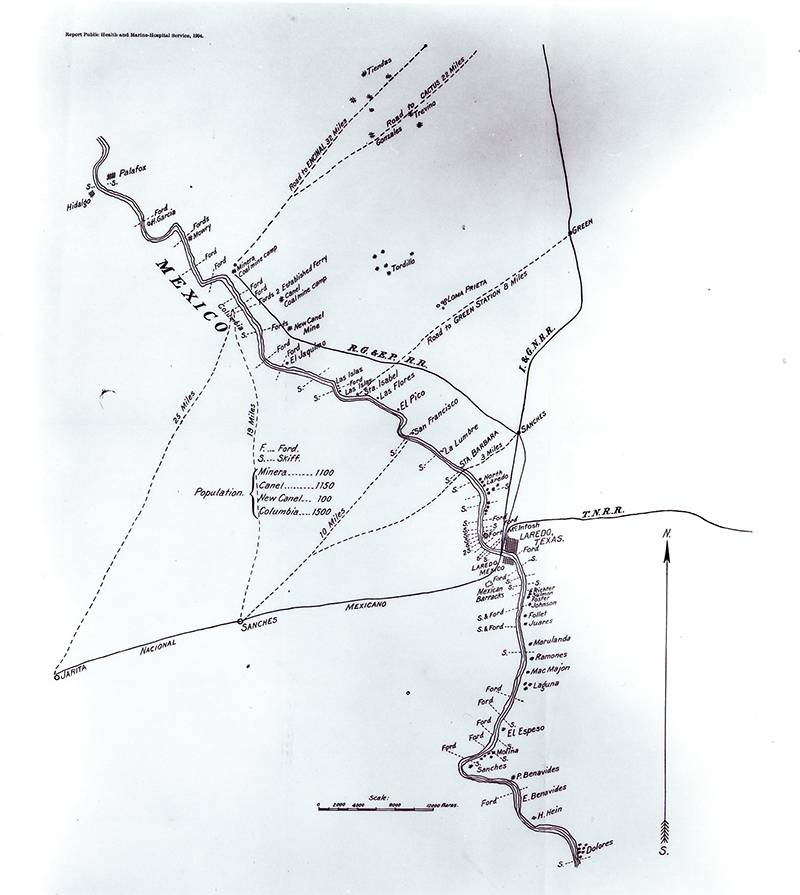 The NYU Latinx Project featured CSSW director, John Mckiernan-González's, work on a century of epidemics and federal quarantines in the Texas-Mexico borderlands. For the purpose of this intervenxion, Dr. Mckiernan-González featured the mobilization of domestic workers in Laredo during the 1903 yellow fever quarantine.
The NYU Latinx Project featured CSSW director, John Mckiernan-González's, work on a century of epidemics and federal quarantines in the Texas-Mexico borderlands. For the purpose of this intervenxion, Dr. Mckiernan-González featured the mobilization of domestic workers in Laredo during the 1903 yellow fever quarantine.View the full project on the Latinx Project website.
-
The Futures of Education in Texas: Community Perspectives in Pandemic Times
The Futures of Education in Texas: Community Perspectives in Pandemic Times
Aaricka Washington
Thursday, June 25, 5:00 pm | Online via Zoom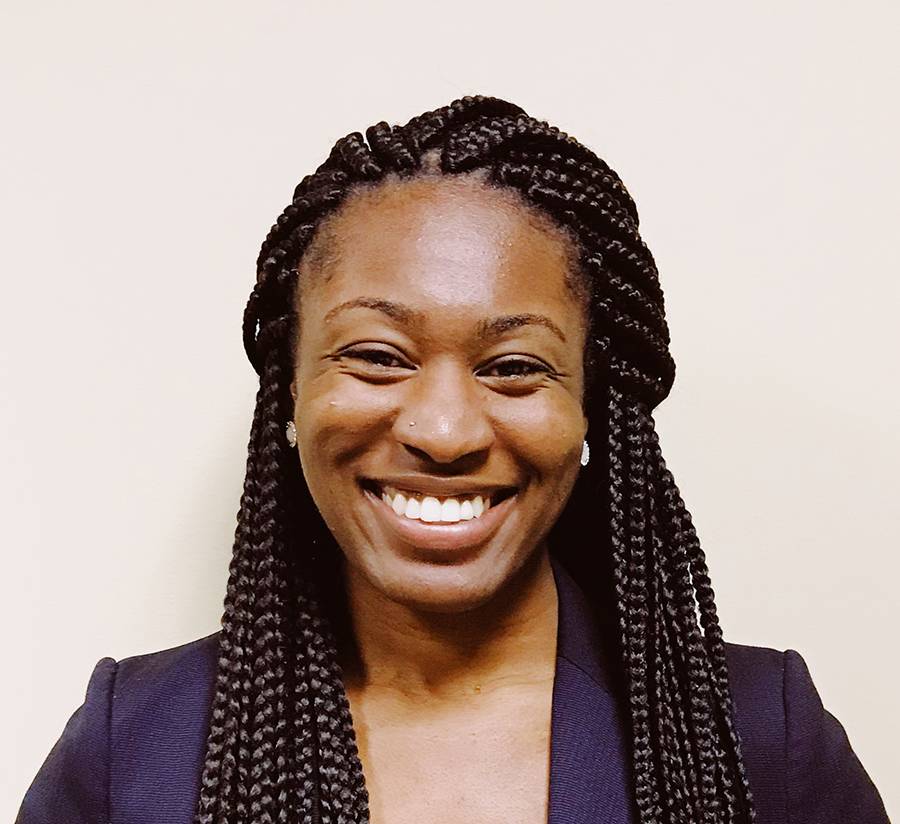 Aaricka Washington is an education reporter based in Austin, Texas. Most recently, she covered breaking news for 15 school districts in Central Texas as the K-12 education reporter for the Austin American-Statesman. During her time at the Statesman, she focused on the experiences of citizens from historically under-resourced communities. Aaricka has reported extensively on the controversial Austin school district closures. She spent hours reporting in school board meetings, talking to parents and community leaders and writing stories about the most important matters in the education world. During the Covid-19 pandemic, she wrote about how the crisis was affecting parents, teachers and students.
Aaricka Washington is an education reporter based in Austin, Texas. Most recently, she covered breaking news for 15 school districts in Central Texas as the K-12 education reporter for the Austin American-Statesman. During her time at the Statesman, she focused on the experiences of citizens from historically under-resourced communities. Aaricka has reported extensively on the controversial Austin school district closures. She spent hours reporting in school board meetings, talking to parents and community leaders and writing stories about the most important matters in the education world. During the Covid-19 pandemic, she wrote about how the crisis was affecting parents, teachers and students. -
CSSW Spotlight | CSSW Affiliate Interviewed on NPR
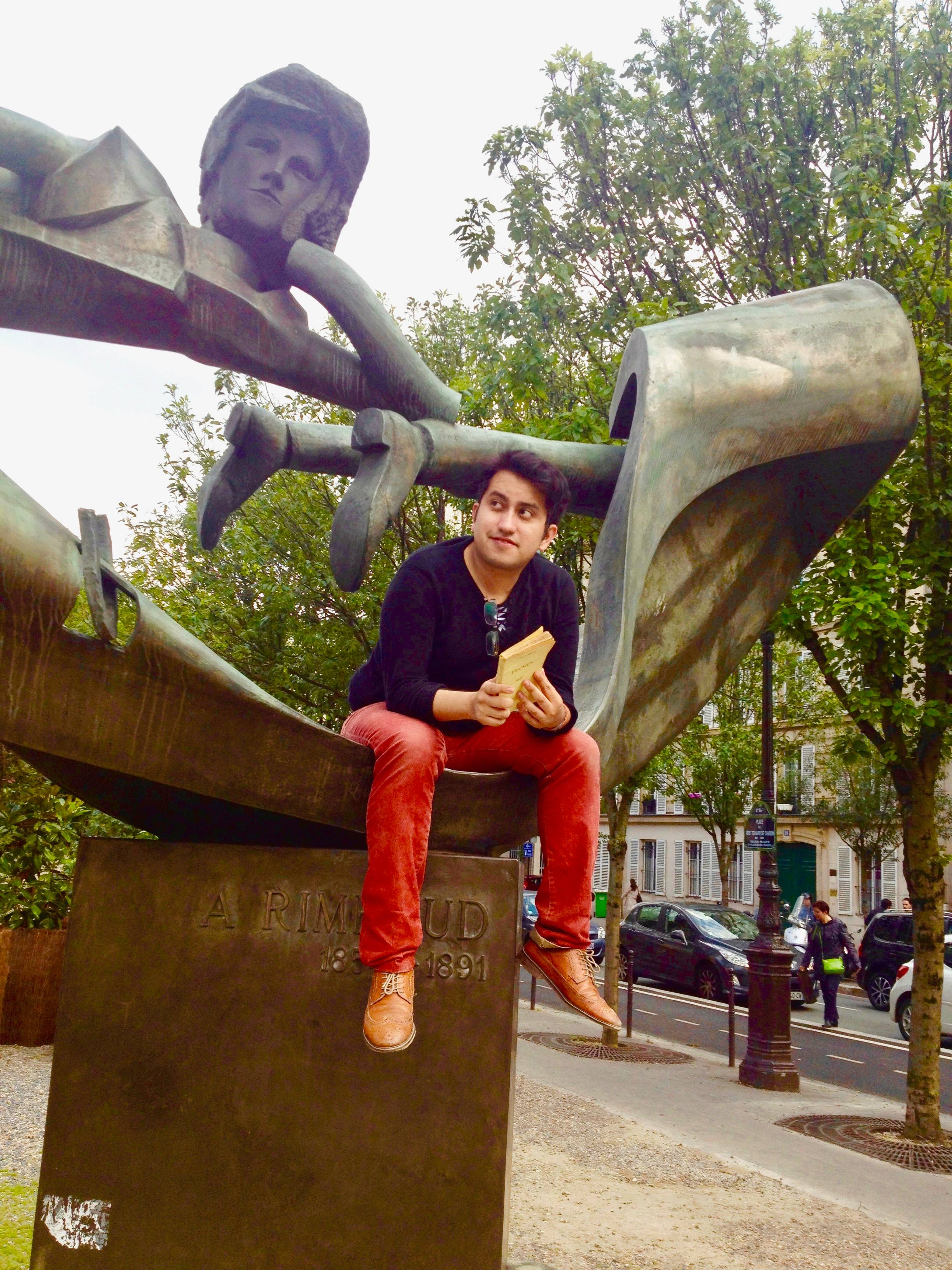 Congratulations to Dr. Louie Dean Valencia-García who was recently interviewed on NPR’s Weekend Edition about the removal of Spanish conquistador statues. Dr. Valencia-García is a faculty member in the History Department who specializes in Digital History, Queer Youth History, Fascism and the Radical Right, as well as European and Spanish History.
Congratulations to Dr. Louie Dean Valencia-García who was recently interviewed on NPR’s Weekend Edition about the removal of Spanish conquistador statues. Dr. Valencia-García is a faculty member in the History Department who specializes in Digital History, Queer Youth History, Fascism and the Radical Right, as well as European and Spanish History. -
CSSW Spotlight | CSSW Director Interviewed by Tucson.com and USA Today
CSSW Director, John Mckiernan-González, was recently interviewed by the Tucson.com regarding the border wall and COVID19. He was also interviewed by USA Today to get his thoughts on how COVID-19 is impacting Latino communities in Austin and other locations.
-
Culture, Creativity, and COVID 19
Culture, Creativity, and COVID 19
Tuesday, September 1, 2020 | 4:00 pm | Online via Zoom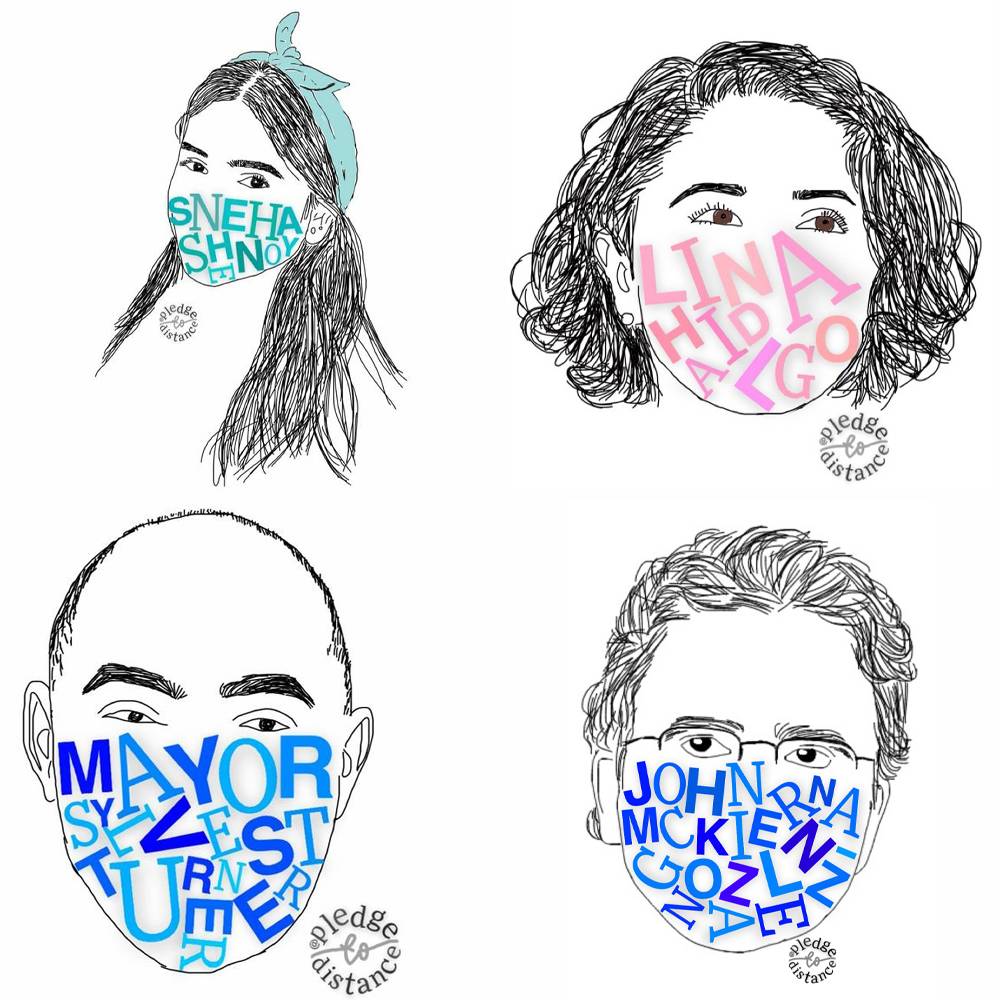 Texas has become a global epicenter and a daily example of how structural racism shapes the COVID19 pandemic. Responding to this crisis, Paul Saldaña and Sneha Shenoy have developed new ways of galvanizing people to push for a robust community / city response to COVID 19 in their communities. High school senior Sneha Shenoy & Pledge to Distance designed a format to encourage masking, digitally and in public. Paul Saldaña and the Austin Latino Coalition have taken on the tasks of testing, mask distribution and political education in the zip codes where the pandemic reigns. Both Pledge to Distance and the Austin Latino Coalition reminds us of the creative and productive way community movements, graphic design, social media and in person testing and mask distribution work together to face structural racism and the pandemic. Come discuss.
Texas has become a global epicenter and a daily example of how structural racism shapes the COVID19 pandemic. Responding to this crisis, Paul Saldaña and Sneha Shenoy have developed new ways of galvanizing people to push for a robust community / city response to COVID 19 in their communities. High school senior Sneha Shenoy & Pledge to Distance designed a format to encourage masking, digitally and in public. Paul Saldaña and the Austin Latino Coalition have taken on the tasks of testing, mask distribution and political education in the zip codes where the pandemic reigns. Both Pledge to Distance and the Austin Latino Coalition reminds us of the creative and productive way community movements, graphic design, social media and in person testing and mask distribution work together to face structural racism and the pandemic. Come discuss. -
Eduardo Canales & Kate Spradley
Eduardo Canales & Kate Spradley
Thursday, September 10, 2020 | 4:00 pm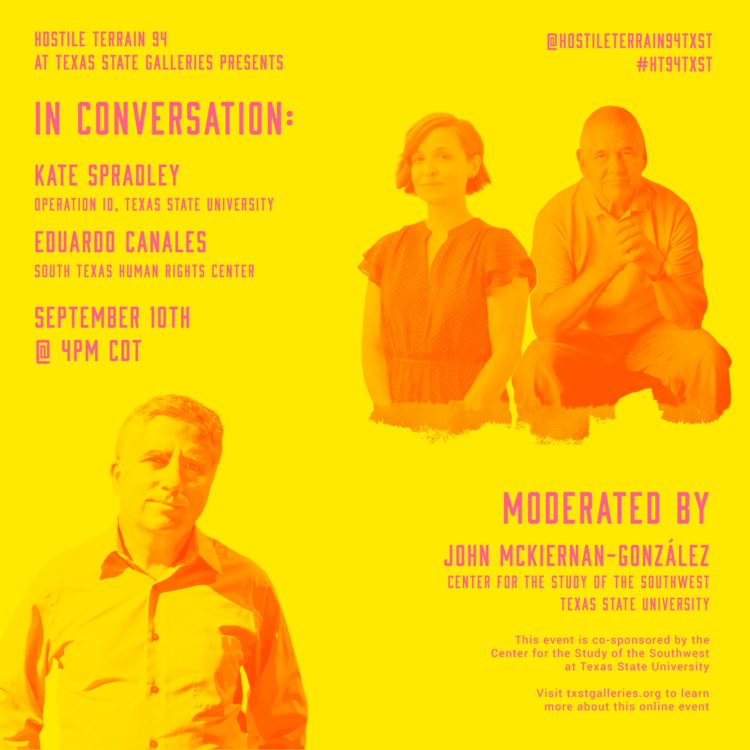 Hostile Terrain 94 is hosting a Zoom conversation between Eduardo Canales of the South Texas Human Rights Center and Kate Spradley of Operation ID at Texas State University. Their conversation will be moderated by John Mckiernan-González, Director of the Center for the Study of the Southwest at Texas State University. This event will address the issue of migrant death at the U.S.-Mexico border and the distinctiveness of this humanitarian crisis within the Texas borderlands. Both panelists are dedicated to the identification and reunification of missing or departed loved ones lost in “hostile terrain.”
Hostile Terrain 94 is hosting a Zoom conversation between Eduardo Canales of the South Texas Human Rights Center and Kate Spradley of Operation ID at Texas State University. Their conversation will be moderated by John Mckiernan-González, Director of the Center for the Study of the Southwest at Texas State University. This event will address the issue of migrant death at the U.S.-Mexico border and the distinctiveness of this humanitarian crisis within the Texas borderlands. Both panelists are dedicated to the identification and reunification of missing or departed loved ones lost in “hostile terrain.”This event is co-sponsored by the Center for the Study of the Southwest at Texas State University.
The recording of the event can be found on the HT 94 YouTube Channel.
-
The Living Treaty of Guadalupe Hidalgo
The Living Treaty of Guadalupe Hidalgo
Monday, September 14, 2020 | 11:00 am | Online via Zoom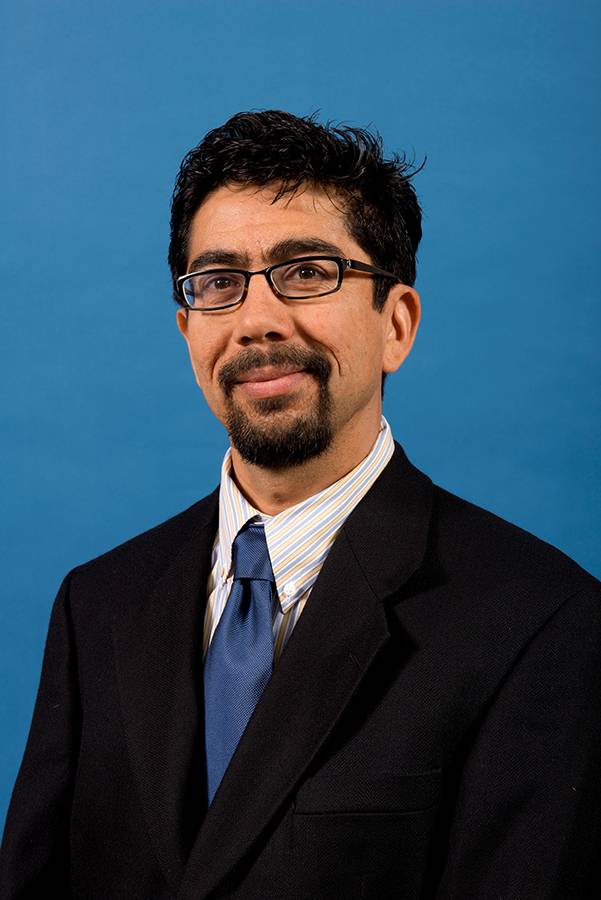 In 1846, President Polk ordered U.S. troops to into the disputed area between the Rio Grande and Nueces rivers catalyzing the U.S.-Mexico War of 1846. In 1848, the United States Senate, after much debate and the highest casualty rate of any war fought by the United States, ratified the Treaty of Guadalupe Hidalgo setting the border between the United States and guaranteeing citizenship and property rights to people who lived in the annexed lands. Omar Valerio-Jiménez explores the ways ethnic Mexicans remembered the war and the treaty.
In 1846, President Polk ordered U.S. troops to into the disputed area between the Rio Grande and Nueces rivers catalyzing the U.S.-Mexico War of 1846. In 1848, the United States Senate, after much debate and the highest casualty rate of any war fought by the United States, ratified the Treaty of Guadalupe Hidalgo setting the border between the United States and guaranteeing citizenship and property rights to people who lived in the annexed lands. Omar Valerio-Jiménez explores the ways ethnic Mexicans remembered the war and the treaty. -
Texas Prisons and Post WWII Civil Rights
Texas Prisons and Post WWII Civil Rights
Thursday, September 17 2020 | 1:00 pm | Online via Zoom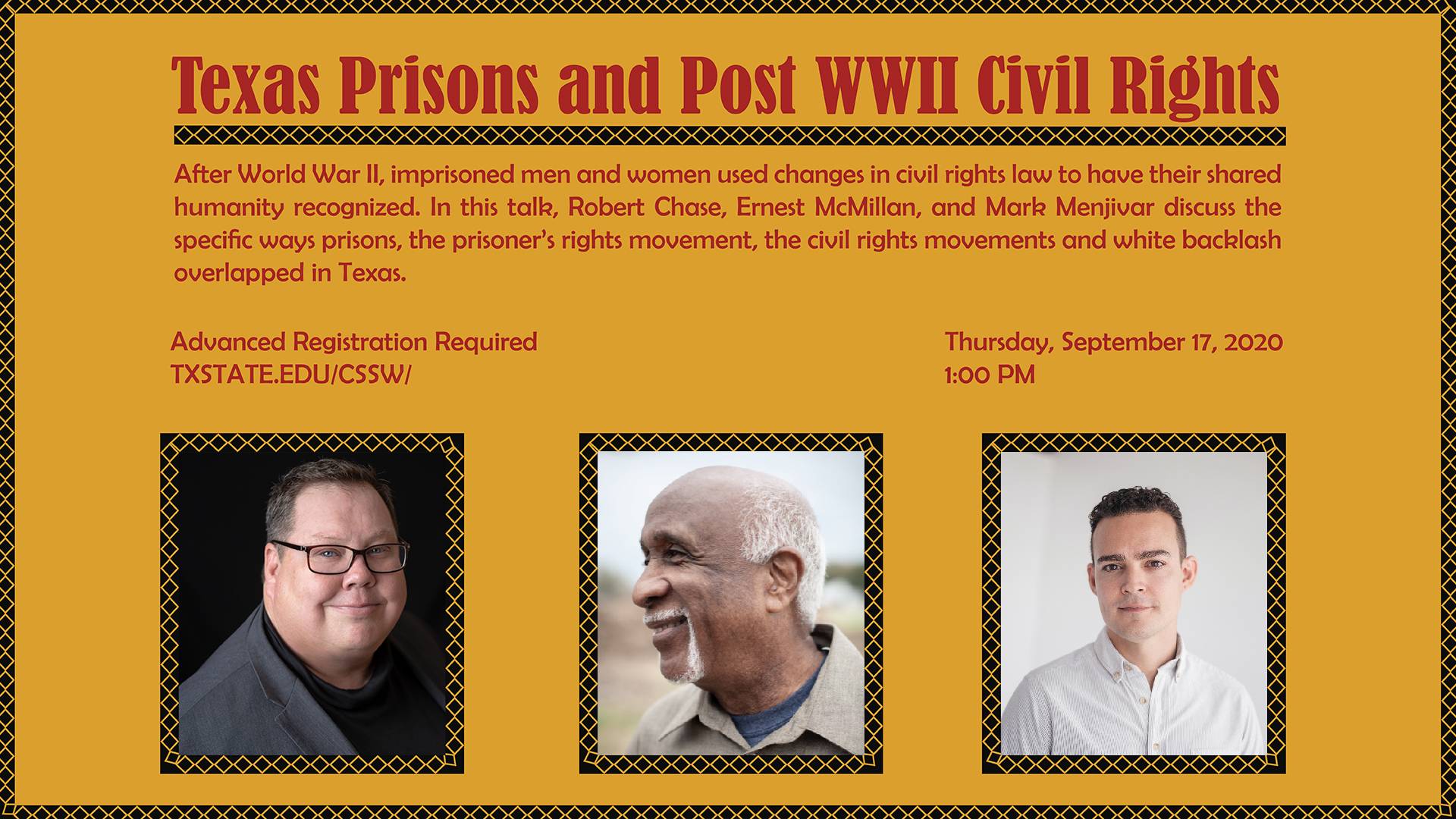 After World War II, imprisoned men and women used changes in civil rights law to have their shared humanity recognized. In his book We Are Not Slaves: State Violence, Coerced Labor and Prisoners’ Rights in Postwar America, Dr. Robert Chase analyzes the establishment of a civil rights understanding in U.S. prisons and how this victory was beaten back by lawmakers, labor unions, wardens and private corporations. In this talk, Robert Chase, Ernest McMillan, Dallas activist, founder of Fifth Ward Enrichment and curator of community action at Cara Mia Theatre, and professor Mark Menjivar discuss the specific ways prisons, the prisoner’s rights movement, the civil rights movements and white backlash overlapped in Texas and share the hard lessons gained over 50 years of campaigns and struggle.
After World War II, imprisoned men and women used changes in civil rights law to have their shared humanity recognized. In his book We Are Not Slaves: State Violence, Coerced Labor and Prisoners’ Rights in Postwar America, Dr. Robert Chase analyzes the establishment of a civil rights understanding in U.S. prisons and how this victory was beaten back by lawmakers, labor unions, wardens and private corporations. In this talk, Robert Chase, Ernest McMillan, Dallas activist, founder of Fifth Ward Enrichment and curator of community action at Cara Mia Theatre, and professor Mark Menjivar discuss the specific ways prisons, the prisoner’s rights movement, the civil rights movements and white backlash overlapped in Texas and share the hard lessons gained over 50 years of campaigns and struggle. -
Outsourcing Migrant Control: 100 Years of Privatized Prisons
Outsourcing Migrant Control: 100 Years of Privatized Prisons
Thursday, September 24 2020 | 1:00 pm | Online via Zoom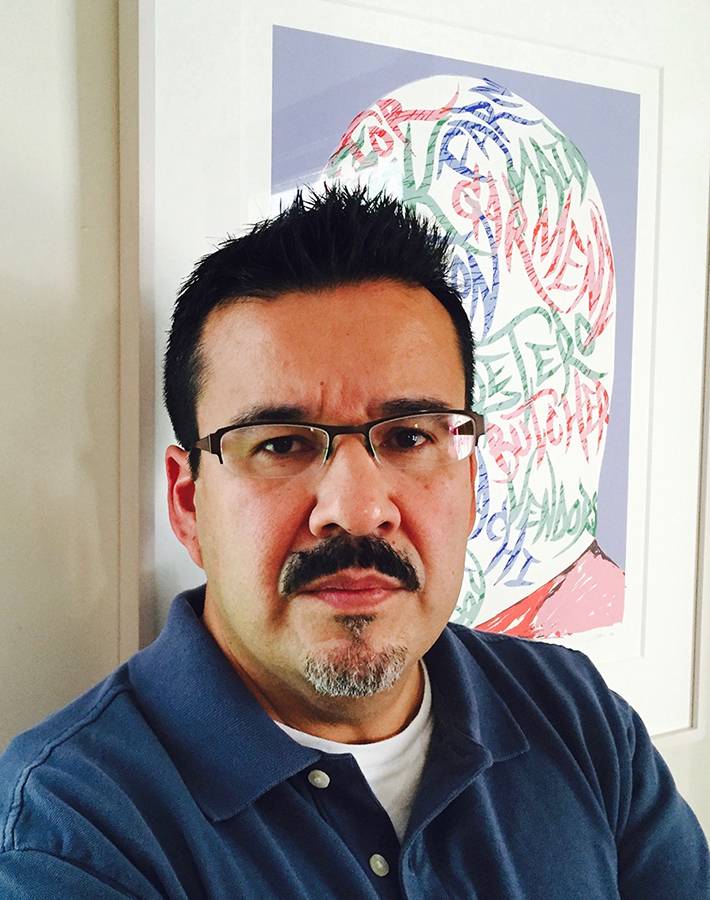 Even before the Mexican Revolution, federal authorities started hiring local hotels and prison authorities to hold people they designated as strangers to American law. Ethnic Studies scholar and sociologist David Hernandez has been tracing the transformation of an overlapping carceral state meant to keep migrants out of the realms of due process and civil rights. With the recent intensification of physical outsourcing of kids, families and people in the Trump regime, Dr. Hernandez’ work on this process in the 80s, 90s and this millennia speaks to the difficulties in dis-embedding this desire to expel and contain migrant others from American political culture.
Even before the Mexican Revolution, federal authorities started hiring local hotels and prison authorities to hold people they designated as strangers to American law. Ethnic Studies scholar and sociologist David Hernandez has been tracing the transformation of an overlapping carceral state meant to keep migrants out of the realms of due process and civil rights. With the recent intensification of physical outsourcing of kids, families and people in the Trump regime, Dr. Hernandez’ work on this process in the 80s, 90s and this millennia speaks to the difficulties in dis-embedding this desire to expel and contain migrant others from American political culture. -
A Transnational Network of Anarcho-Feminists in the Gulf of Mexico
A Transnational Network of Anarcho-Feminists in the Gulf of Mexico
Monday, October 5, 2020 | 11:00 am | Online via Zoom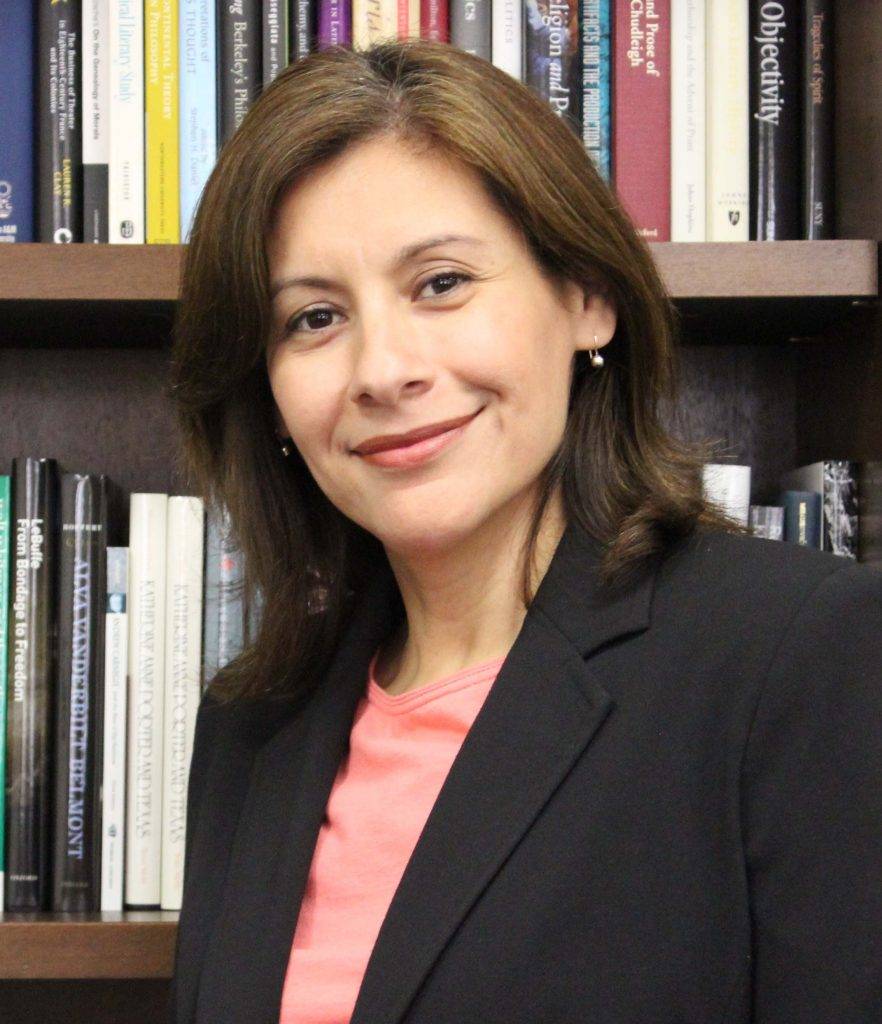 Across the industrial Atlantic, young women and their families organized strikes, slowdowns and factory seizures during the WWI Era. Dr. Sonia Hernandez traces another organized disruption, how Mexican and Mexican American women in Texas and Tamaulipas worked together through anarcho-syndicalist organizations to push conditions and politics that matched their experiences and desires. Working with archives and the Spanish language press, Dr. Sonia Hernandez, TAMU, tracks a transnationally connected labor movement organized by women and shares insight into the broader industrial, socio-political conditions that made this anarchist movement possible. While anarchism and anarcho-syndicalism declined by the mid-1930s, at least in this region, a transnational anarcho-feminist legacy remained forming part of the history and memory of the Texas-Mexico borderlands.
Across the industrial Atlantic, young women and their families organized strikes, slowdowns and factory seizures during the WWI Era. Dr. Sonia Hernandez traces another organized disruption, how Mexican and Mexican American women in Texas and Tamaulipas worked together through anarcho-syndicalist organizations to push conditions and politics that matched their experiences and desires. Working with archives and the Spanish language press, Dr. Sonia Hernandez, TAMU, tracks a transnationally connected labor movement organized by women and shares insight into the broader industrial, socio-political conditions that made this anarchist movement possible. While anarchism and anarcho-syndicalism declined by the mid-1930s, at least in this region, a transnational anarcho-feminist legacy remained forming part of the history and memory of the Texas-Mexico borderlands. -
Farm Labor and Migrant Citizenship in the New Deal
Farm Labor and Migrant Citizenship in the New Deal
Monday, October 19, 2020 | 4:00 pm | Online via Zoom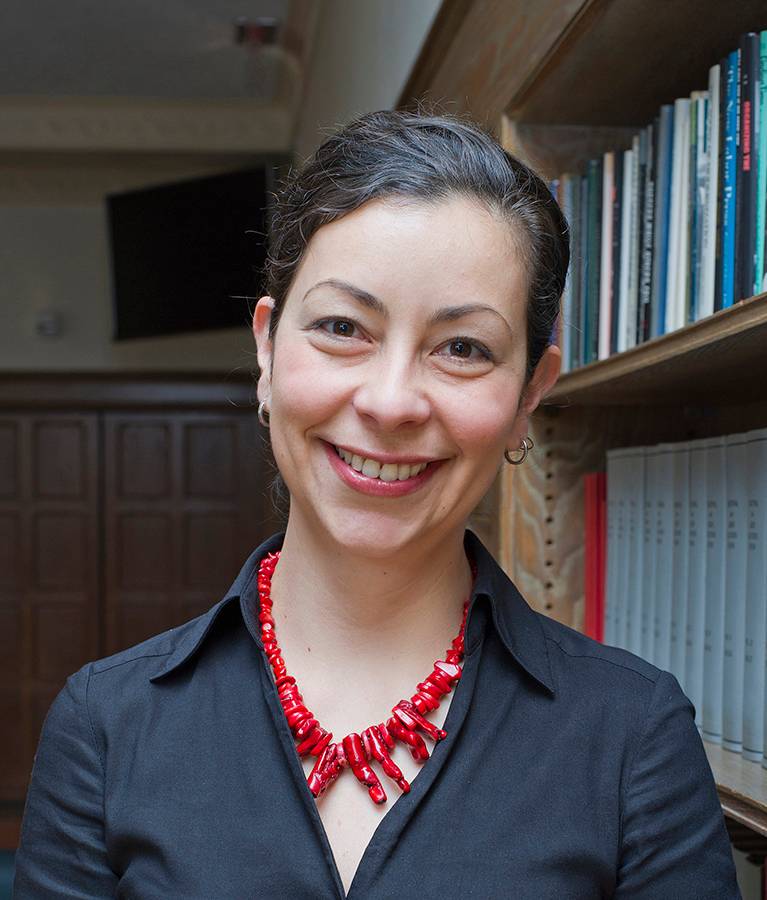 During the 1930s and 1940s, stringent state and local residency laws, combined with deep-seated racial and class prejudice, left migrant farmworkers without a place to enact their basic rights. Even if they were formally U.S. citizens, farmworkers were regularly denied the right to vote, send their children to school, access public aid, and receive medical care because they were considered non-residents or non-citizens of the community and state in which they were seeking services. Labor Studies scholar Verónica Martínez-Matsuda, using federal archives, innovative oral history techniques and digital history methods brought out another story in the records – how farm working families and Farm Security Administrators pushed for enfranchisement through their daily participation as citizens (regardless of formal status) in a political and social community characterized by collective responsibility and behavior.
During the 1930s and 1940s, stringent state and local residency laws, combined with deep-seated racial and class prejudice, left migrant farmworkers without a place to enact their basic rights. Even if they were formally U.S. citizens, farmworkers were regularly denied the right to vote, send their children to school, access public aid, and receive medical care because they were considered non-residents or non-citizens of the community and state in which they were seeking services. Labor Studies scholar Verónica Martínez-Matsuda, using federal archives, innovative oral history techniques and digital history methods brought out another story in the records – how farm working families and Farm Security Administrators pushed for enfranchisement through their daily participation as citizens (regardless of formal status) in a political and social community characterized by collective responsibility and behavior. -
CSSW Spotlight | Free-Tailed Bat Award Winner
CSSW Spotlight
Free-Tailed Bat Award WinnerThis year's winner of the Free-Tailed Bat Award for Excellence in Criticism goes to Dr. Brett J. Derbes for his review of Stephen Harrigan's Big Wonderful Thing. Dr. Derbes has been a member of the Texas State Historical Association since 2008, and he has worked as the Managing Editor of the Handbook of Texas since 2015. We congratulate Dr. Derbes and his continuous support for Texas history and scholarship.
-
Plague, COVID-19, and Empire: 1720, 2020
Plague, COVID-19, and Empire: 1720, 2020
Thursday, November 12, 2020 | 4:00 pm | Online via Zoom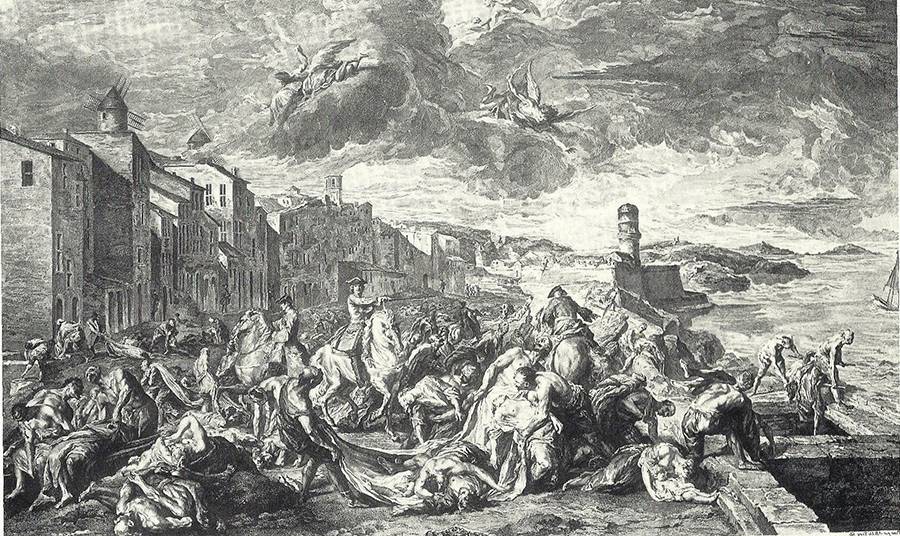 The ongoing COVID-19 pandemic has left many scrambling for historical analogues. Historians have looked primarily to the 1918 “Spanish” Flu and even the Black Death of the 14th century for comparisons, for lessons, and for answers, as people around the globe confront the COVID-19 pandemic. But there are parallels to another, much lesser-known epidemic, one for which we mark the tricentennial this year. Historian and disaster studies specialist Cindy Ermus (UTSA) is finishing her project on the global implications of the 1720 Great Plague of Marseille (Plague of Provence), which over two years, killed as much as half the population of the city of Marseille, and 20% of the population of Provence, France. Reactions to the threat of plague from France thus stretched across Europe, as well as the colonies in the Atlantic and Asia. Ermus will reflect on the 1720 plague, and on the lessons that it can offer, as we face a new public health crisis—one that continues to unfold and yield more questions than answers.
The ongoing COVID-19 pandemic has left many scrambling for historical analogues. Historians have looked primarily to the 1918 “Spanish” Flu and even the Black Death of the 14th century for comparisons, for lessons, and for answers, as people around the globe confront the COVID-19 pandemic. But there are parallels to another, much lesser-known epidemic, one for which we mark the tricentennial this year. Historian and disaster studies specialist Cindy Ermus (UTSA) is finishing her project on the global implications of the 1720 Great Plague of Marseille (Plague of Provence), which over two years, killed as much as half the population of the city of Marseille, and 20% of the population of Provence, France. Reactions to the threat of plague from France thus stretched across Europe, as well as the colonies in the Atlantic and Asia. Ermus will reflect on the 1720 plague, and on the lessons that it can offer, as we face a new public health crisis—one that continues to unfold and yield more questions than answers. -
Generación Uno: Education as Migration
Generación Uno: Education as Migration
Wednesday, November 18, 2020 | 5:00 pm | Online via Zoom Every year, in the United States, approximately 2.9 million people leave home and head for college. Many leave knowing in their heart of hearts that they will return. Others, just as resolutely, know this is their spatial, social, and potentially economic departure from home. Ethnic Studies scholar, migration expert and first generation faculty member David Hernandez argues that this migration – the cultural geography of class mobility – deserves the kind of attention that cross-border migration gets and that many immigration frameworks – transnationalism, diaspora, push-pull, empire, liminal zones, barrio formation, segmented labor markets – can help explain the dynamics of first-generation college attendance. Education as migration. A platica. A conversation. A strategy.
Every year, in the United States, approximately 2.9 million people leave home and head for college. Many leave knowing in their heart of hearts that they will return. Others, just as resolutely, know this is their spatial, social, and potentially economic departure from home. Ethnic Studies scholar, migration expert and first generation faculty member David Hernandez argues that this migration – the cultural geography of class mobility – deserves the kind of attention that cross-border migration gets and that many immigration frameworks – transnationalism, diaspora, push-pull, empire, liminal zones, barrio formation, segmented labor markets – can help explain the dynamics of first-generation college attendance. Education as migration. A platica. A conversation. A strategy.
-
-
2019 News and Events
-
Year of the Dog: Poetry as Feminist Lament
Deborah Paredez | Year of the Dog: Poetry as Feminist Lament
February 25, 2019 | 11:00 am | The Wittliff Collections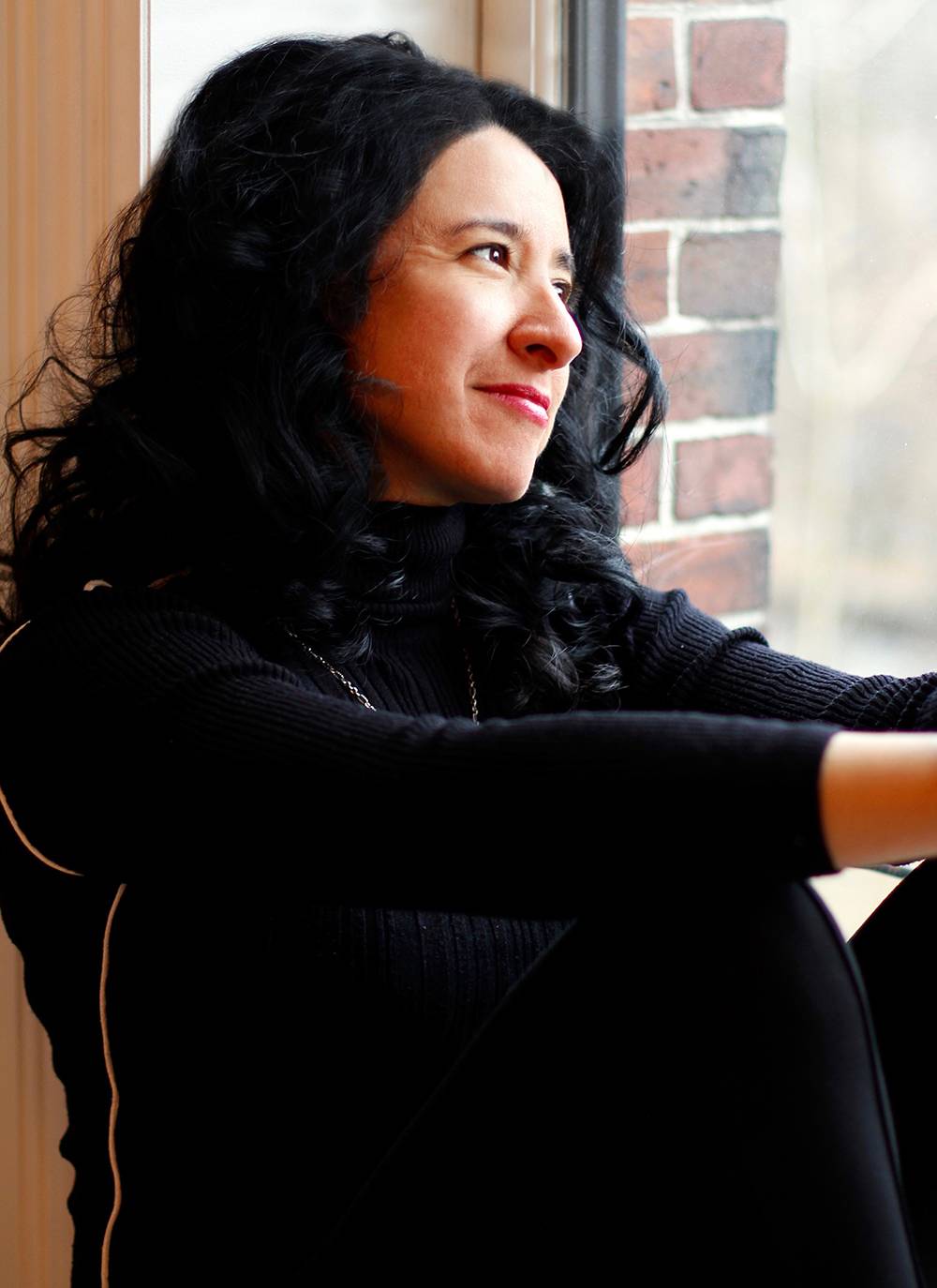 This public lecture will include a reading from my forthcoming poetry book, YEAR OF THE DOG (Boa Editions 2020), a Latina chronicle of the Vietnam War era, and a discussion of the tradition and function of feminist elegy during times of disaster and atrocity. Drawing from the mythic Greek figure of Hecuba, who committed herself so fully to her grief in response to the horrors of war that she was transformed into a howling dog, I explore how female and feminist figures have catalyzed transformations in the private and public realms as a result of their acts of lamentation.
This public lecture will include a reading from my forthcoming poetry book, YEAR OF THE DOG (Boa Editions 2020), a Latina chronicle of the Vietnam War era, and a discussion of the tradition and function of feminist elegy during times of disaster and atrocity. Drawing from the mythic Greek figure of Hecuba, who committed herself so fully to her grief in response to the horrors of war that she was transformed into a howling dog, I explore how female and feminist figures have catalyzed transformations in the private and public realms as a result of their acts of lamentation. -
Demasiada, y más que Demasiada: Sandra Cisneros on the Loose in San Antonio
Demasiada, y más que Demasiada: Sandra Cisneros on the Loose in San Antonio
Geneva M. Gano
Thursday, February 28, 2019 | 12:30 pm | Flowers Hall 230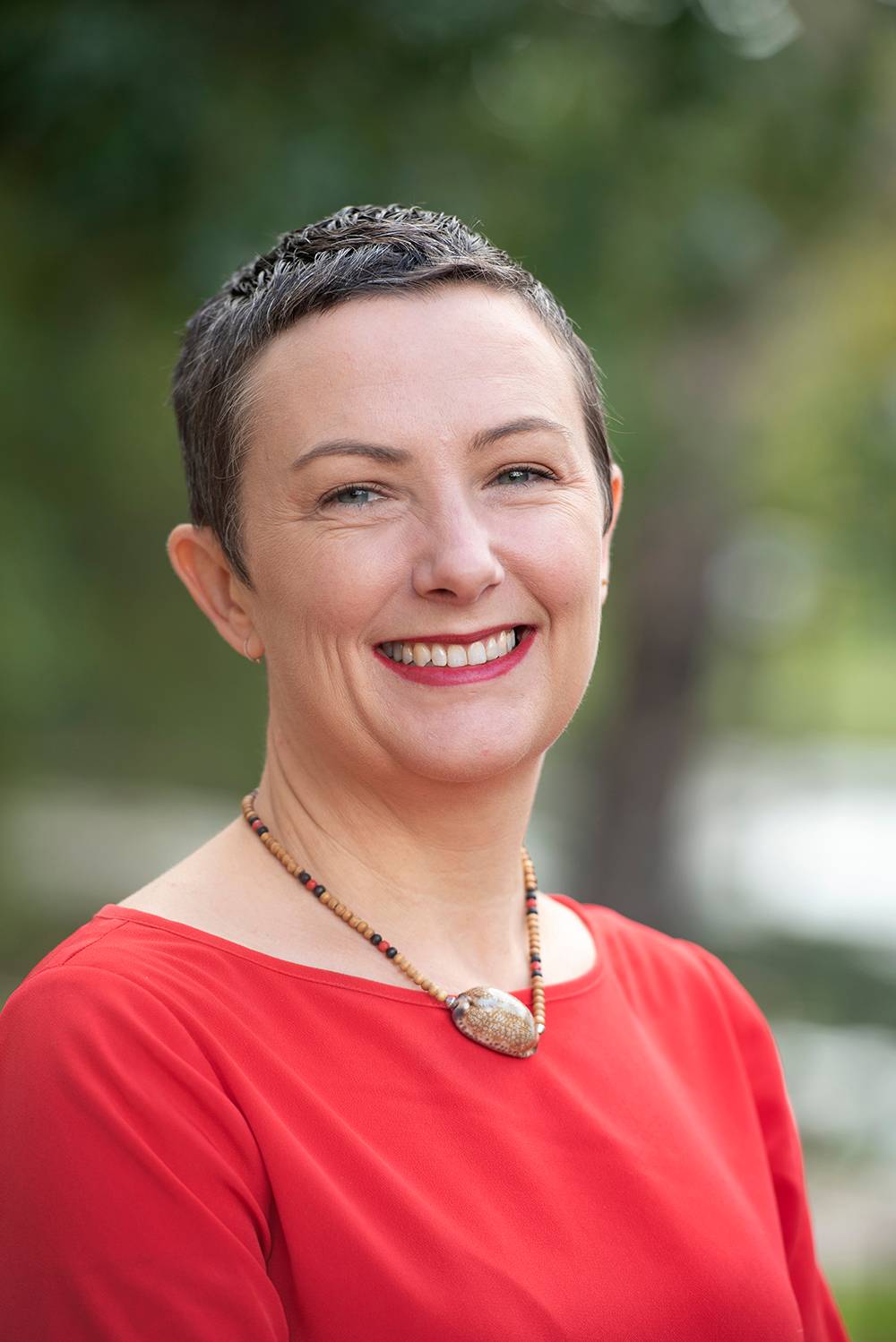 Sandra Cisneros arrived in San Antonio in 1984 to work as the Literary Director at the Guadalupe Cultural Arts Center on San Antonio’s West Side. She only held that position for a year, but she made San Antonio her home for the next thirty years. This talk situates Sandra Cisneros’ poems from Loose Woman (1994) within the multidisciplinary, multilingual rasquache aesthetics of the fin-de-siecle arts scene in San Antonio’s West Side. Drawing on archival materials, interviews, and essays, Professor Dr. Geneva M. Gano will examine how Cis¬neros’ sexy, silly, and simultaneously sophisticated albures, adivinanzas and dichos resonate with the sly and politically infused art of her fellow San Antonians, Franco Mondini-Ruiz and Alejandro Diaz.
Sandra Cisneros arrived in San Antonio in 1984 to work as the Literary Director at the Guadalupe Cultural Arts Center on San Antonio’s West Side. She only held that position for a year, but she made San Antonio her home for the next thirty years. This talk situates Sandra Cisneros’ poems from Loose Woman (1994) within the multidisciplinary, multilingual rasquache aesthetics of the fin-de-siecle arts scene in San Antonio’s West Side. Drawing on archival materials, interviews, and essays, Professor Dr. Geneva M. Gano will examine how Cis¬neros’ sexy, silly, and simultaneously sophisticated albures, adivinanzas and dichos resonate with the sly and politically infused art of her fellow San Antonians, Franco Mondini-Ruiz and Alejandro Diaz. -
Book Reading | The American Dream in Vietnamese
The American Dream in Vietnamese
A Book Reading by Nhi Lieu
Wednesday, March 6, 2019 | 11:00 am | Brazos Hall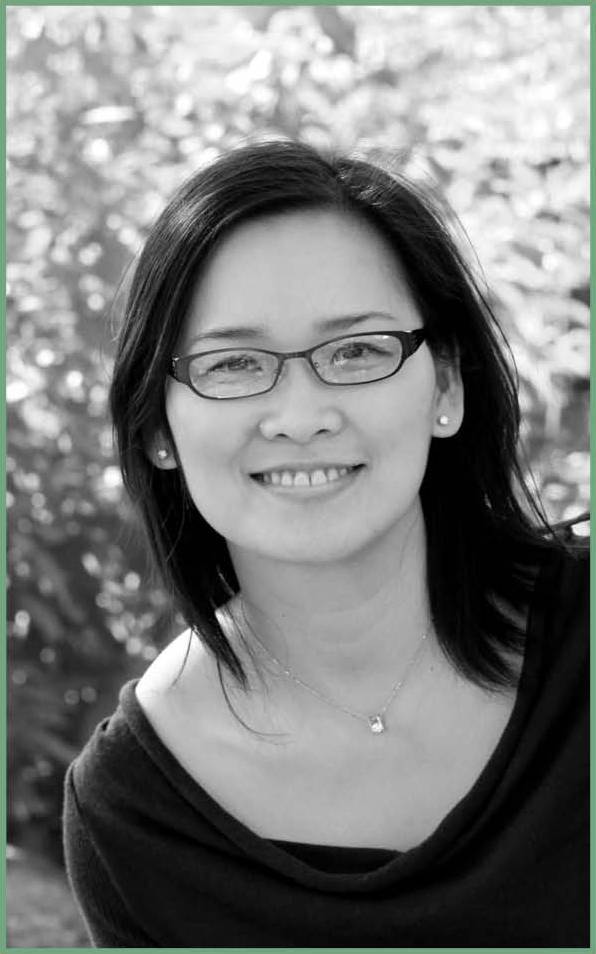 Displaced from Viet Nam by war and politics and arriving as refugees to communities in Texas and California, Vietnamese artists and entrepreneurs built forms of popular culture that affirmed connections to a Viet Nam that was and to a cosmopolitan culture that would incorporate Vietnamese subjects as equal participants. Nhi Lieu’s pathbreaking work of history & cultural studies The American Dream in Vietnamese traces the ways Little Saigons, video productions and beauty queen competitions built community and challenged the demeaning and orientalist meanings associated with refugees in the United States.
Displaced from Viet Nam by war and politics and arriving as refugees to communities in Texas and California, Vietnamese artists and entrepreneurs built forms of popular culture that affirmed connections to a Viet Nam that was and to a cosmopolitan culture that would incorporate Vietnamese subjects as equal participants. Nhi Lieu’s pathbreaking work of history & cultural studies The American Dream in Vietnamese traces the ways Little Saigons, video productions and beauty queen competitions built community and challenged the demeaning and orientalist meanings associated with refugees in the United States. -
Supply Chains and Labor Exploitation
Dr. Michelle Torres | Supply Chains and Labor Exploitation
Thursday, April 11, 2019 | 12:30 pm | Brazos Hall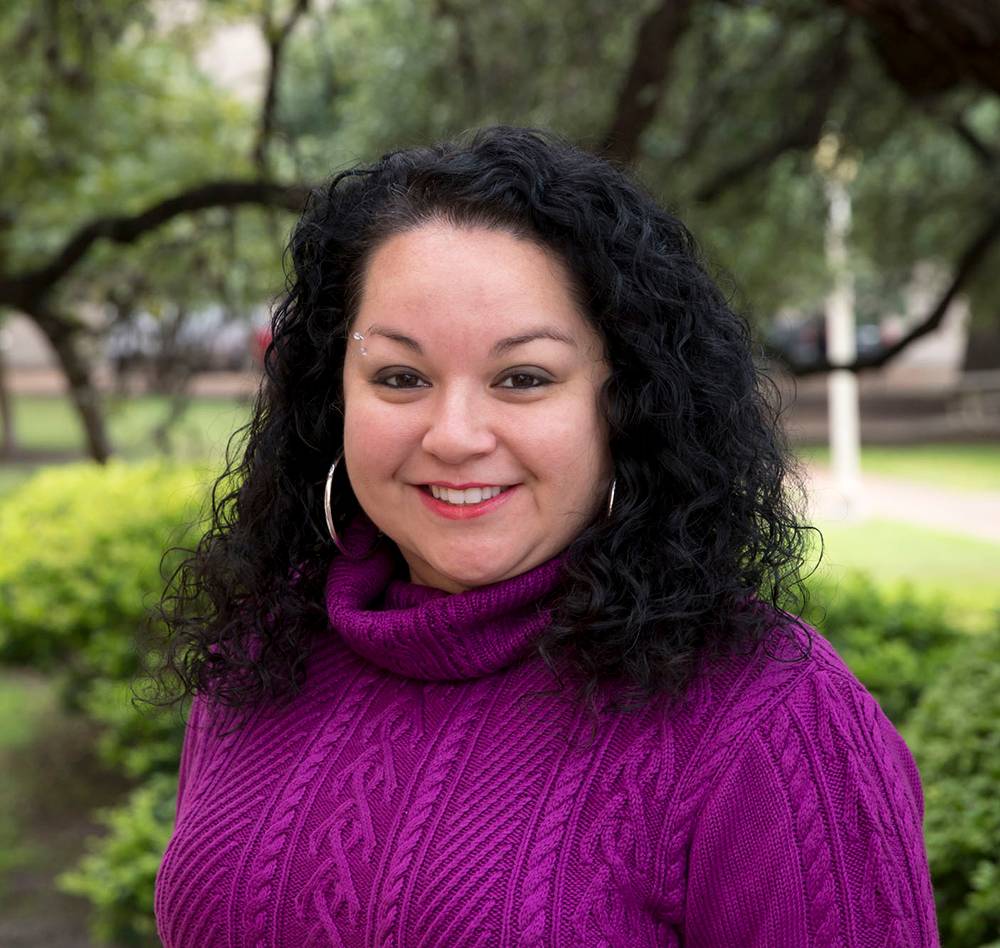 Despite what we understand to be the abolition of slavery in the United States, trafficking of humans for the purposes of sex work and exploited labor has emerged as a major criminal and social justice issue, both in the United States and abroad. Dr. Torres has been advocating for a social justice and human rights lens on labor policies and researching the range of exploitation in labor markets and the intersection with vulnerable populations.
Despite what we understand to be the abolition of slavery in the United States, trafficking of humans for the purposes of sex work and exploited labor has emerged as a major criminal and social justice issue, both in the United States and abroad. Dr. Torres has been advocating for a social justice and human rights lens on labor policies and researching the range of exploitation in labor markets and the intersection with vulnerable populations. -
Choctaw Confederates: The American Civil War in Indian Country
Dr. Fey Yarbrough | Choctaw Confederates: The American Civil War in Indian Country
Thursday, April 12, 2019 | 11:00 am | Flowers Hall 230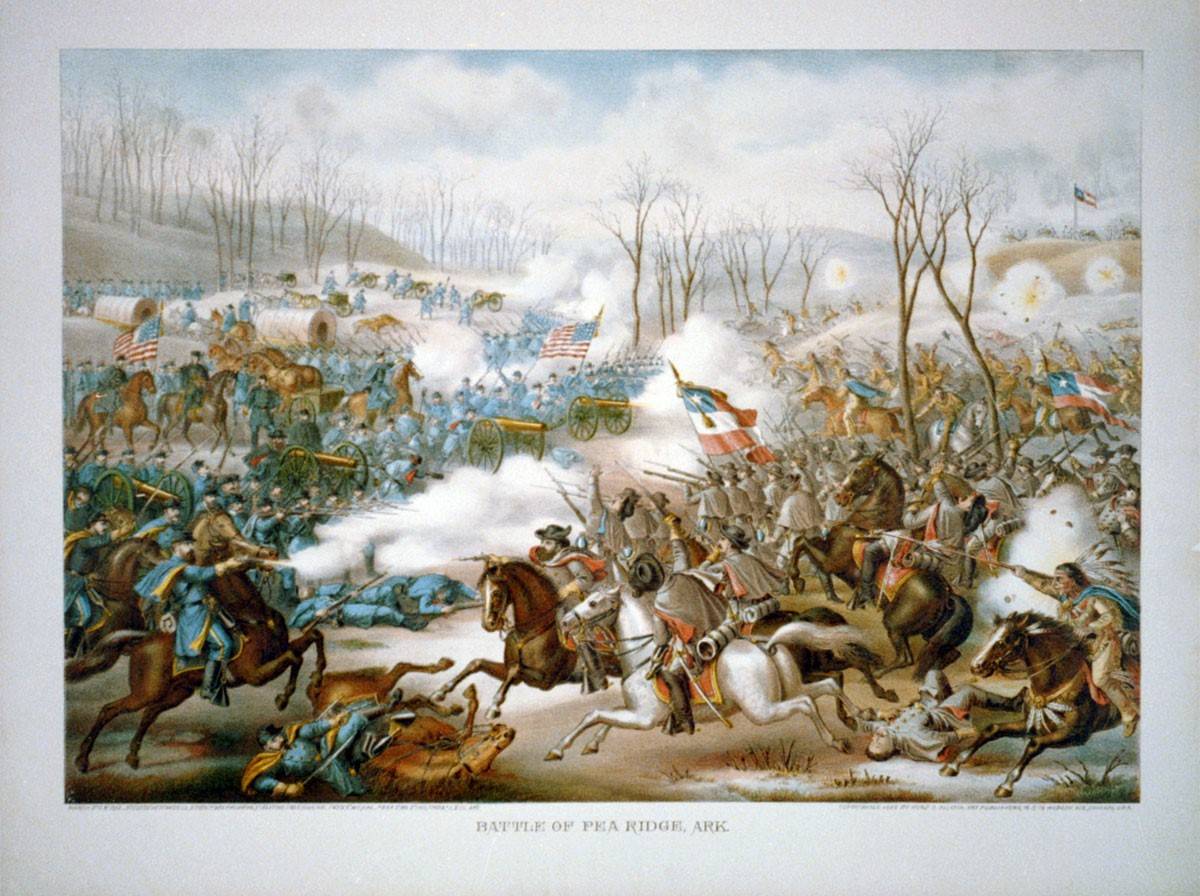 The American Civil War evokes images of white men, though now many acknowledge the participation of black soldiers. The Civil War was more than a rupture between Northern and Southern states and Americans over the issue of slavery; other regions and other groups were drawn into the dispute. Several American Indian nations, including the Choctaw Nation, officially sided with the Confederacy during the Civil War. This talk will approach a familiar topic, the American Civil War, from a less familiar vantage point by focusing on the Choctaw Nation and the experience of Choctaw soldiers fighting for the Confederacy in particular.
The American Civil War evokes images of white men, though now many acknowledge the participation of black soldiers. The Civil War was more than a rupture between Northern and Southern states and Americans over the issue of slavery; other regions and other groups were drawn into the dispute. Several American Indian nations, including the Choctaw Nation, officially sided with the Confederacy during the Civil War. This talk will approach a familiar topic, the American Civil War, from a less familiar vantage point by focusing on the Choctaw Nation and the experience of Choctaw soldiers fighting for the Confederacy in particular. -
Book Reading | Sabrina & Corina
Sabrina & Corina A Book Reading by Kali Fajardo-Anstine
Thursday, April 25, 2019 | 6:00 pm | Brazos Hall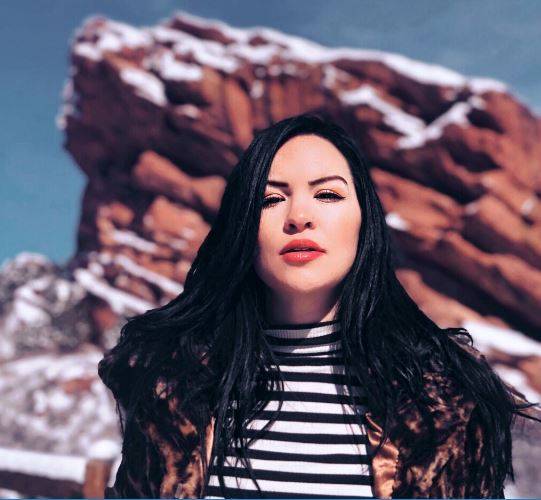 Kali Fajardo-Anstine’s magnetic story collection breathes life into her Indigenous Latina characters and the land they inhabit. Set against the remarkable backdrop of Denver, Colorado–a place that is as fierce as it is exquisite–these women navigate the land the way they navigate their lives: with caution, grace, and quiet force.
Kali Fajardo-Anstine’s magnetic story collection breathes life into her Indigenous Latina characters and the land they inhabit. Set against the remarkable backdrop of Denver, Colorado–a place that is as fierce as it is exquisite–these women navigate the land the way they navigate their lives: with caution, grace, and quiet force. -
Isabel Lozoya Wins Inaugural Aleyda Gonzalez Mckiernan Undergraduate Essay in Southwestern Studies
Isabel Lozoya Wins Inaugural Aleyda Gonzalez Mckiernan Undergraduate Essay in Southwestern Studies
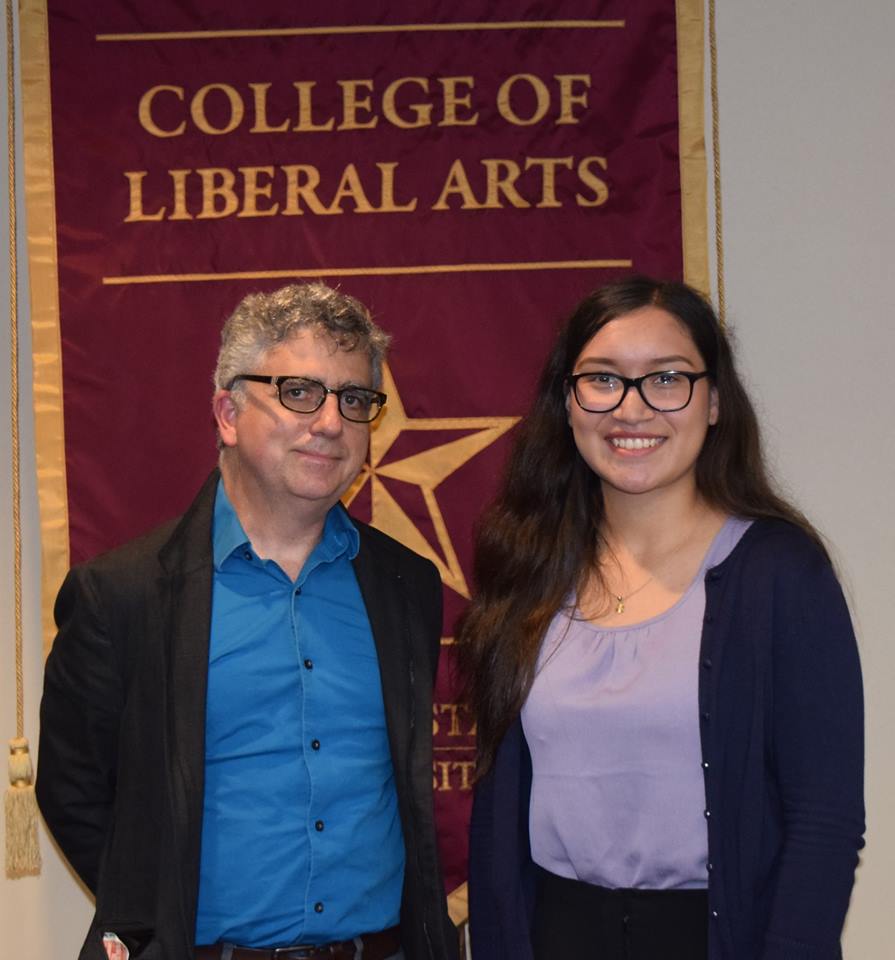 Isabel Lozoya’s essay, Anglo-American Ethnocentric Mis-Perceptions of Mexico in the First International Study of Sex Trafficking, 1924-1926, won the inaugural Aleyda Gonzalez Mckiernan Undergraduate Essay in Southwestern Studies. The committee found the essay noteworthy for its contribution to the study of the southwest, the quality of archival evidence, as well as the connection to ongoing politics at the U.S. Mexico border.
Isabel Lozoya’s essay, Anglo-American Ethnocentric Mis-Perceptions of Mexico in the First International Study of Sex Trafficking, 1924-1926, won the inaugural Aleyda Gonzalez Mckiernan Undergraduate Essay in Southwestern Studies. The committee found the essay noteworthy for its contribution to the study of the southwest, the quality of archival evidence, as well as the connection to ongoing politics at the U.S. Mexico border. -
CSSW Spotlight | Indigenous Borderlands of the Americas Seminar
CSSW Spotlight
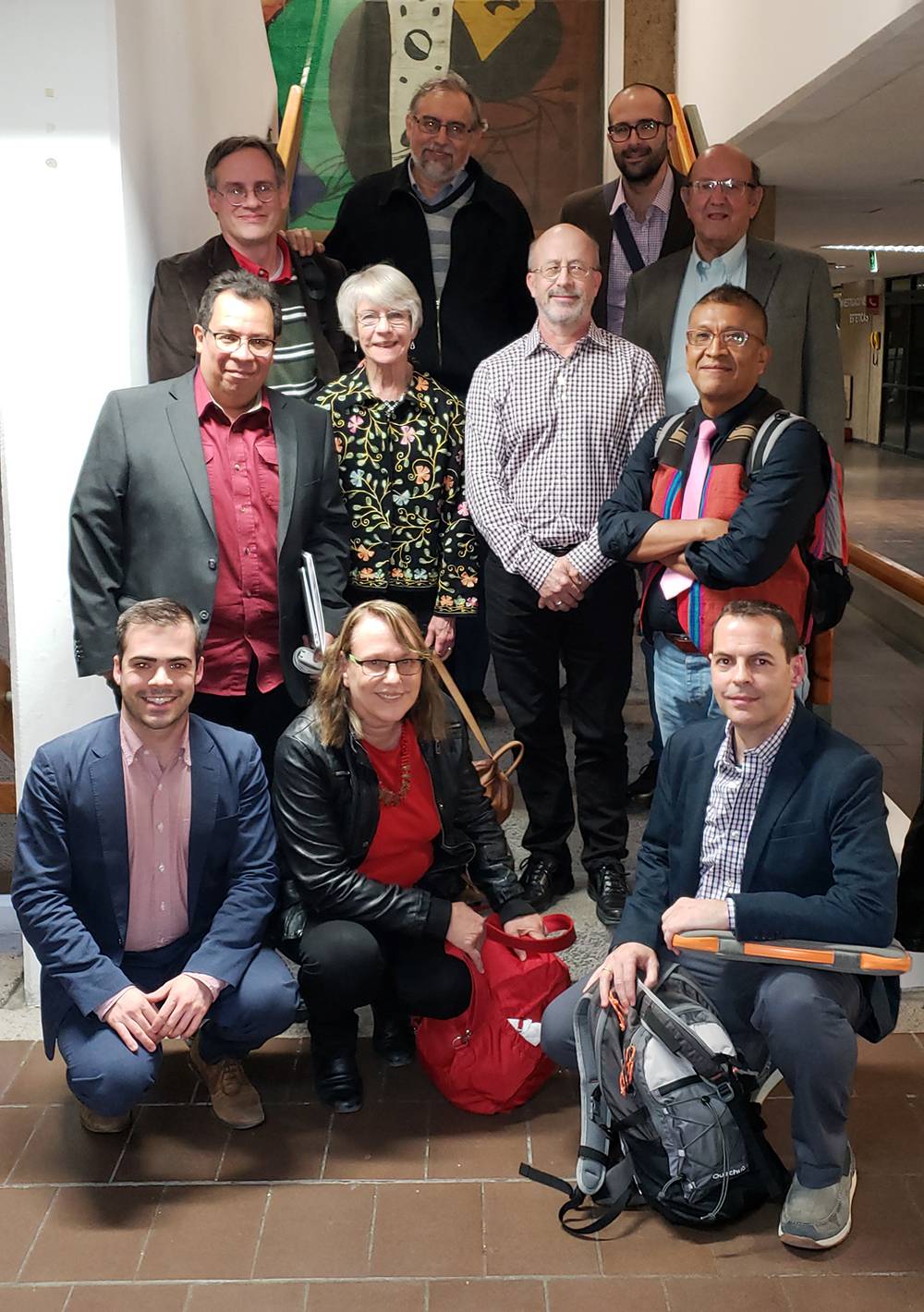 On January 25, 2019, professor Joaquín Rivaya-Martínez from Texas State University´s History Department and Gerardo Lara Cisneros from the Centro de Investigaciones Históricas of the Universidad Nacional Autónoma de México (UNAM) led a seminar on Fronteras indígenas de América / Indigenous Borderlands of the Americas at the UNAM in Mexico City. This event was an outgrowth of an earlier two-day symposium sponsored by the Center for the Study of the Southwest and the Department of History and held in San Marcos last April. Dr. Rivaya-Martínez and his collaborators aim to publish edited volumes highlighting the borderlands spaces native peoples carved for themselves within and at the edges of empires and nation-states in the Americas. The works will be available in Spanish and in English The Center is proud to aid this cross-border collaborative scholarly project.
On January 25, 2019, professor Joaquín Rivaya-Martínez from Texas State University´s History Department and Gerardo Lara Cisneros from the Centro de Investigaciones Históricas of the Universidad Nacional Autónoma de México (UNAM) led a seminar on Fronteras indígenas de América / Indigenous Borderlands of the Americas at the UNAM in Mexico City. This event was an outgrowth of an earlier two-day symposium sponsored by the Center for the Study of the Southwest and the Department of History and held in San Marcos last April. Dr. Rivaya-Martínez and his collaborators aim to publish edited volumes highlighting the borderlands spaces native peoples carved for themselves within and at the edges of empires and nation-states in the Americas. The works will be available in Spanish and in English The Center is proud to aid this cross-border collaborative scholarly project. -
CSSW Exhibit | Valentine From Borderlandia
Valentine From Borderlandia
Andrea Muñoz Martinez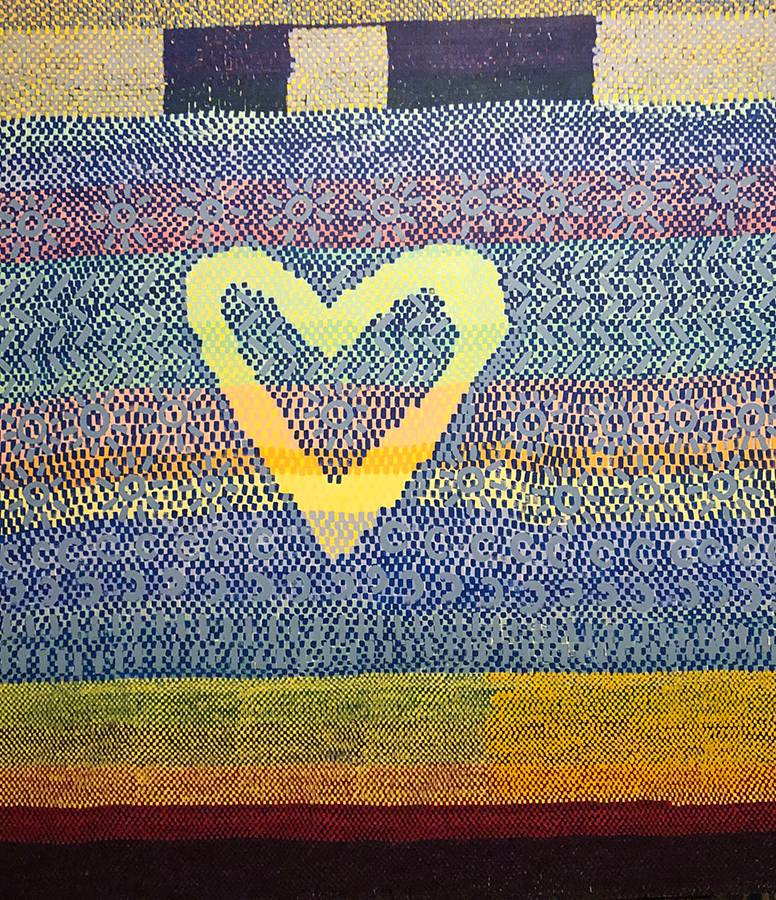 Exhibit opening reception | Tuesday, September 24, 2019 11:00 am | Brazos Hall. Exhibit on display through December 2019
Exhibit opening reception | Tuesday, September 24, 2019 11:00 am | Brazos Hall. Exhibit on display through December 2019These paintings are inspired by the vast landscape of Uvalde, Texas and Piedras Negras, Mexico. This show is an invitation to contemplate the beauty that exists in a land where people negotiate their place, where people thrive and struggle, and where people resist the idea of unjust borders.
Andrea Muñoz Martinez has an MFA in Studio Art from the University of California, Davis. Her work has been exhibited at the Santa Chiara Center in Castiglion Fiorentino, Italy, the John Nicholas Brown Center at Brown University, the Visual Art Center at The University of Texas at Austin, and the Nelson Gallery at the University of California, Davis.
-
Chasing Slavery: The Persistence of Forced Labor in the Southwest
Chasing Slavery The Persistence of Forced Labor in the Southwest
October 24-26, 2019This symposium takes the global phenomenon of modern slavery and trafficking, grounds it in the past and present of the Southwest and examines the ways that labor migration, immigration restriction, border violence, and economic inequality combine to produce the soil that can give rise to modern slavery.
Please visit the Chasing Slavery homepage for presenters, schedules, and general information.
Keynote
- Ambassador Luis C.deBaca (ret.) | Chasing Slavery: Reflections from the Southwest
Organizers
- John Mckiernan-González | Center for the Study of the Southwest, Texas State University
- Jessica R. Pliley | Department of History, Texas State University
-
Will Wilson | Auto-Immune Response
Will Wilson | Auto-Immune Response
November 18, 2019 | 12:30 pm | JCM 2121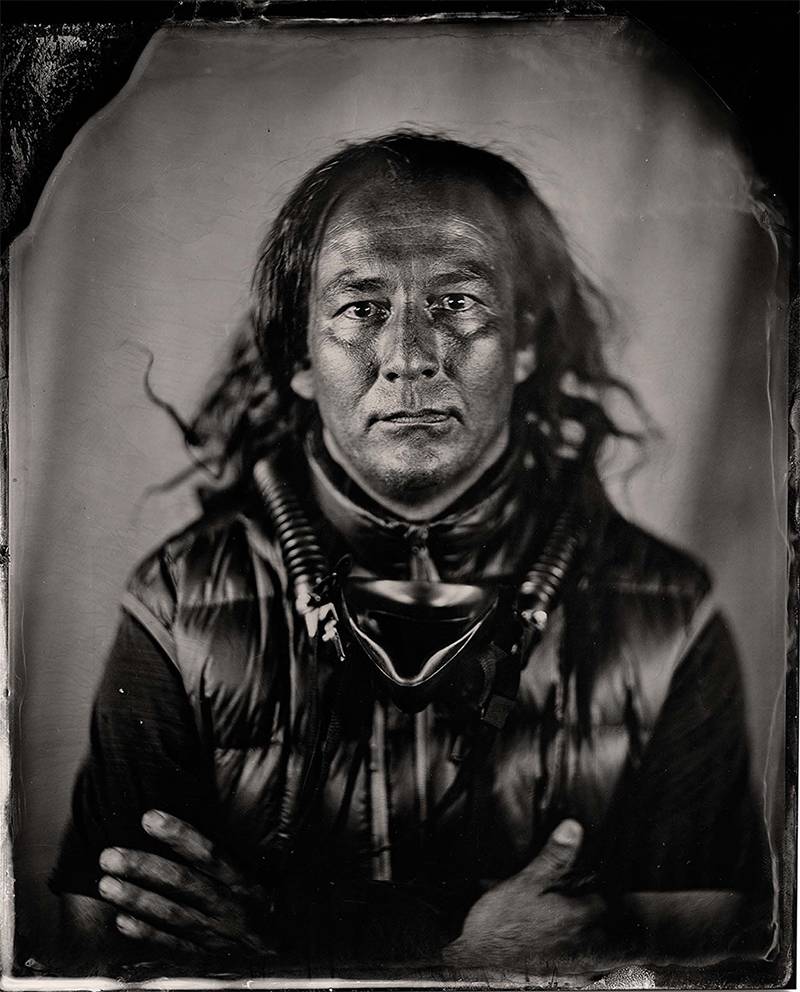 The Auto-Immune Response series is an allegorical investigation of the extraordinarily rapid transformation of Indigenous lifeways, the dis-ease it has caused, and strategies of response that enable cultural survival. Will Wilson uses installations and photography to evoke the situation confronting indigenous communities and the world today.
The Auto-Immune Response series is an allegorical investigation of the extraordinarily rapid transformation of Indigenous lifeways, the dis-ease it has caused, and strategies of response that enable cultural survival. Will Wilson uses installations and photography to evoke the situation confronting indigenous communities and the world today.
-
-
2018 News and Events
-
The Bridge to A Land Apart | A Talk by Flannery Burke
The Bridge to A Land Apart
A Talk by Flannery Burke
Thursday, February 1, 2018 | 12:30 pm | Brazos Hall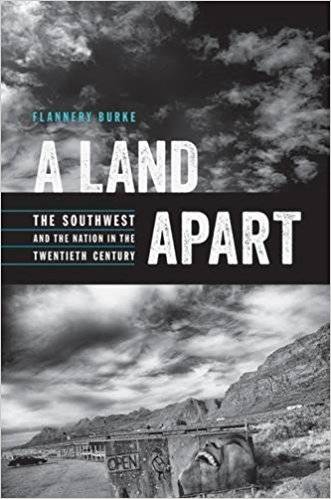 How does the Southwest connect to the nation? A Land Apart traces how indigenous peoples, Hispanics, Mexicans, and Anglos negotiated tourism, the New Deal, the nuclear age, and water scarcity in New Mexico and Arizona. In this talk, Historian Flannery Burke charts the challenges and rewards of bringing the Southwest into the national fold.
How does the Southwest connect to the nation? A Land Apart traces how indigenous peoples, Hispanics, Mexicans, and Anglos negotiated tourism, the New Deal, the nuclear age, and water scarcity in New Mexico and Arizona. In this talk, Historian Flannery Burke charts the challenges and rewards of bringing the Southwest into the national fold. -
Book Reading | Undocumented to Hyperdocumented: The Power of Documentation
Undocumented to Hyperdocumented: The Power of Documentation
A Book Reading by Dra. Aurora Chang
February 21, 2018 | 6:00pm | Flowers Hall 230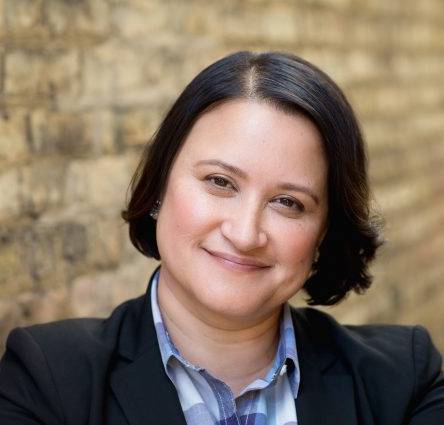 Dra. Aurora Chang's presentation argues that undocumented students' quest to achieve academically simultaneously cultivates an empowering self-identity while forcing them to involuntarily perform the role of infallible non-citizen citizen. Her book, The Struggles of Identity, Education, and Agency in the Lives of Undocumented Students, weaves together two distinct and powerfully related sources of knowledge: (1) her journey/transition from a once uncoumented immigrant from Guatemala to a huperdocumented academic, and (2) five years of ongoing national research on the identity, education, and agency of undocumented college students.
Dra. Aurora Chang's presentation argues that undocumented students' quest to achieve academically simultaneously cultivates an empowering self-identity while forcing them to involuntarily perform the role of infallible non-citizen citizen. Her book, The Struggles of Identity, Education, and Agency in the Lives of Undocumented Students, weaves together two distinct and powerfully related sources of knowledge: (1) her journey/transition from a once uncoumented immigrant from Guatemala to a huperdocumented academic, and (2) five years of ongoing national research on the identity, education, and agency of undocumented college students. -
Two presentations by Dr. Tyina Steptoe
Join us for Two Presentations by Dr. Tyina Steptoe
Thursday, February 22, 2018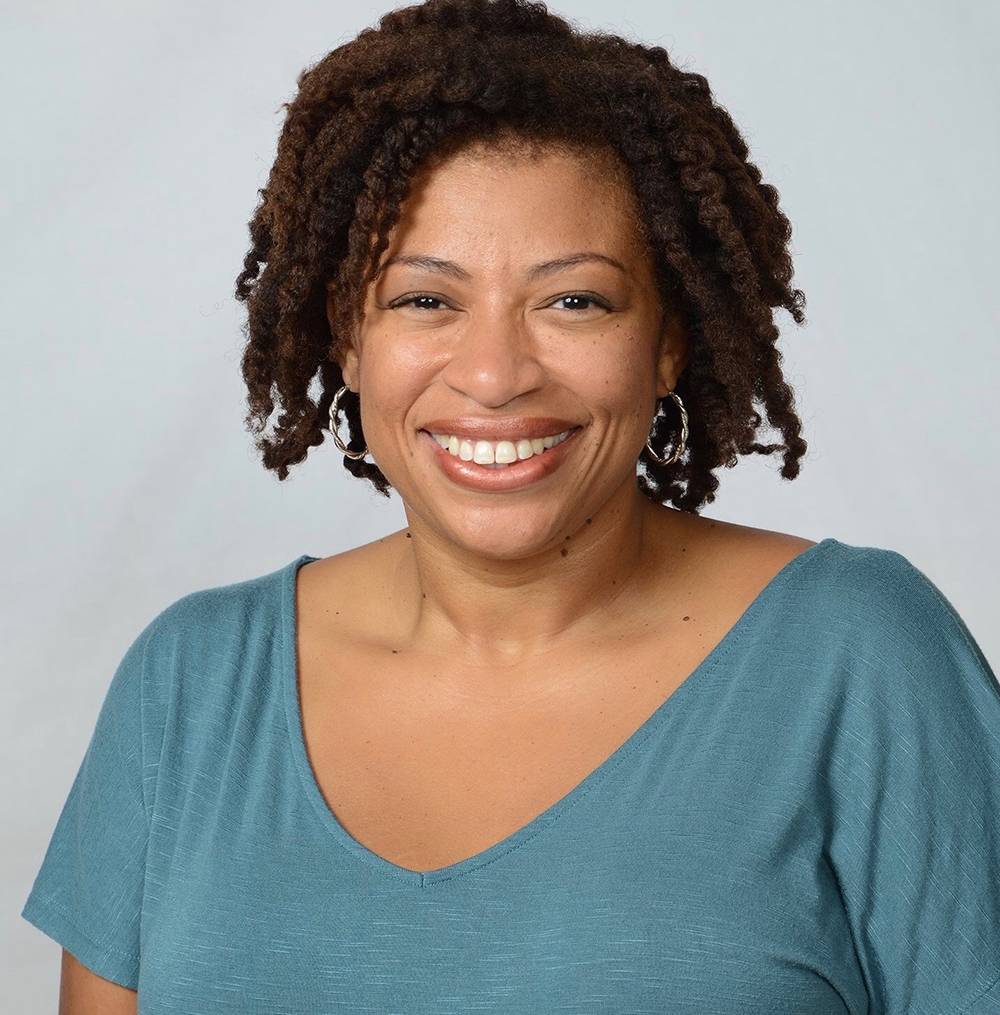 Houston Bound: Culture and Color in a Jim Crow City
Houston Bound: Culture and Color in a Jim Crow City
Reception | Q&A | Book Sale + Signing
12:30 pm | Brazos HallHistory in the Key of Life: Listening to Houston’s Polycultural Pasts
Reception | Talk | Q&A
6:00 pm | Calaboose African American Museum | 200 W. MLK Drive, San Marcos, Texas -
Indigenous Landscapes and Colonial Boundaries: Reading Nature into Colonial Archives
Indigenous Landscapes and Colonial Boundaries: Reading Nature into Colonial Archives
A Public Lecture by Dr. Cynthia Radding
Thursday, April 5, at 10:30 am | Comal Building, Room 116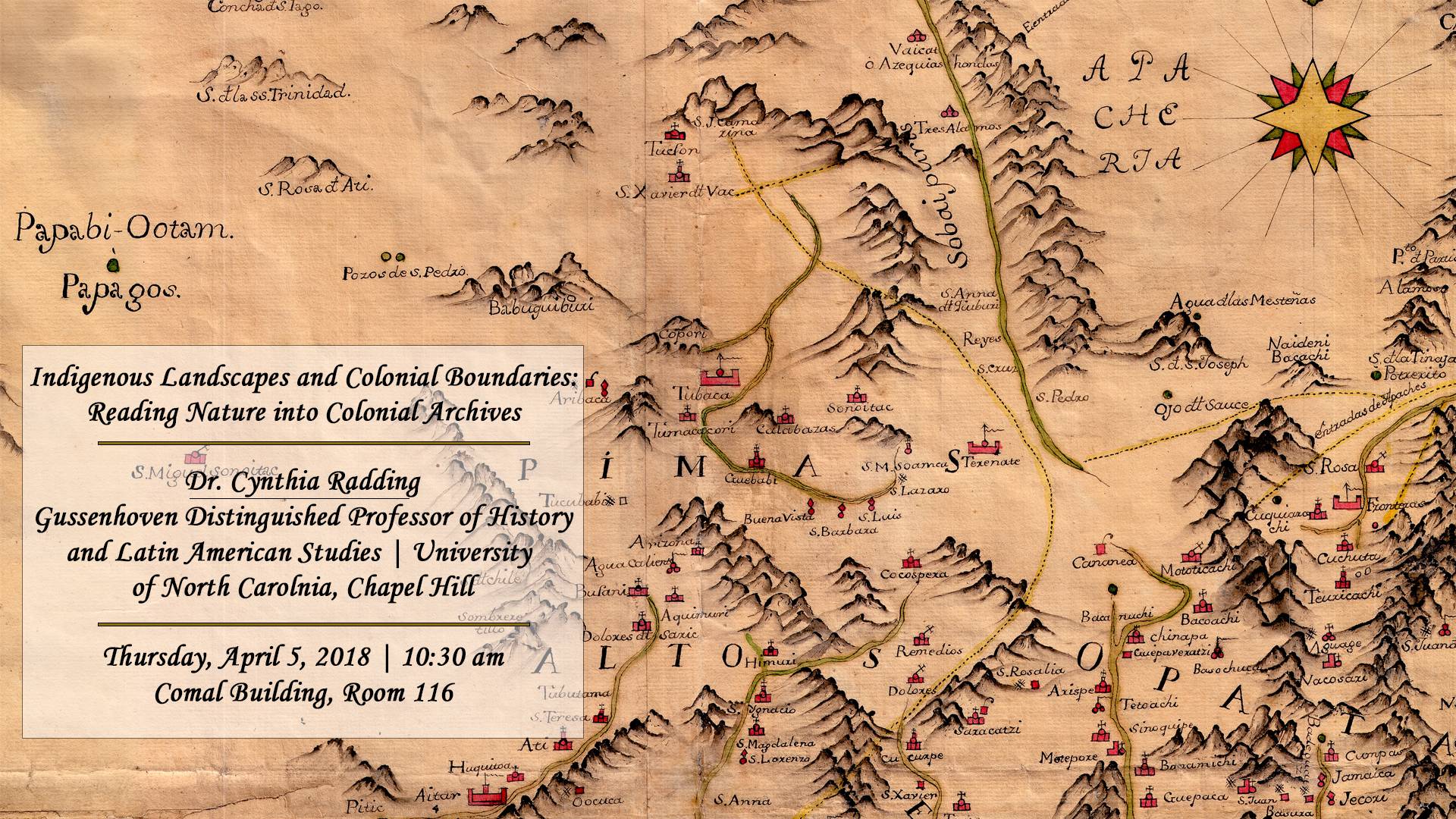 This presentation builds an environmental history from below by integrating the production of cultural landscapes with the practices of indigenous peoples, the values they ascribed to the land itself, and the organization of labor that made it possible for them to sustain communities and mixed agrarian economies in the arid lands of northwestern Mexico. It draws on the interdisciplinary traditions of cultural geography, archaeology, anthropology, and documentary history that represent over a century of scholarship devoted to the complex web of relationships between the land and different groups of indigenous and mixed populations in the colonial regimes of the Americas.
This presentation builds an environmental history from below by integrating the production of cultural landscapes with the practices of indigenous peoples, the values they ascribed to the land itself, and the organization of labor that made it possible for them to sustain communities and mixed agrarian economies in the arid lands of northwestern Mexico. It draws on the interdisciplinary traditions of cultural geography, archaeology, anthropology, and documentary history that represent over a century of scholarship devoted to the complex web of relationships between the land and different groups of indigenous and mixed populations in the colonial regimes of the Americas. -
2018 Mexican National Elections and Future of U.S. - Mexico Relations
2018 Mexican National Elections and Future of U.S. - Mexico Relations
Thursday, April 5, 2018 | 1:30 – 5:30 pm | Wittliff Gallery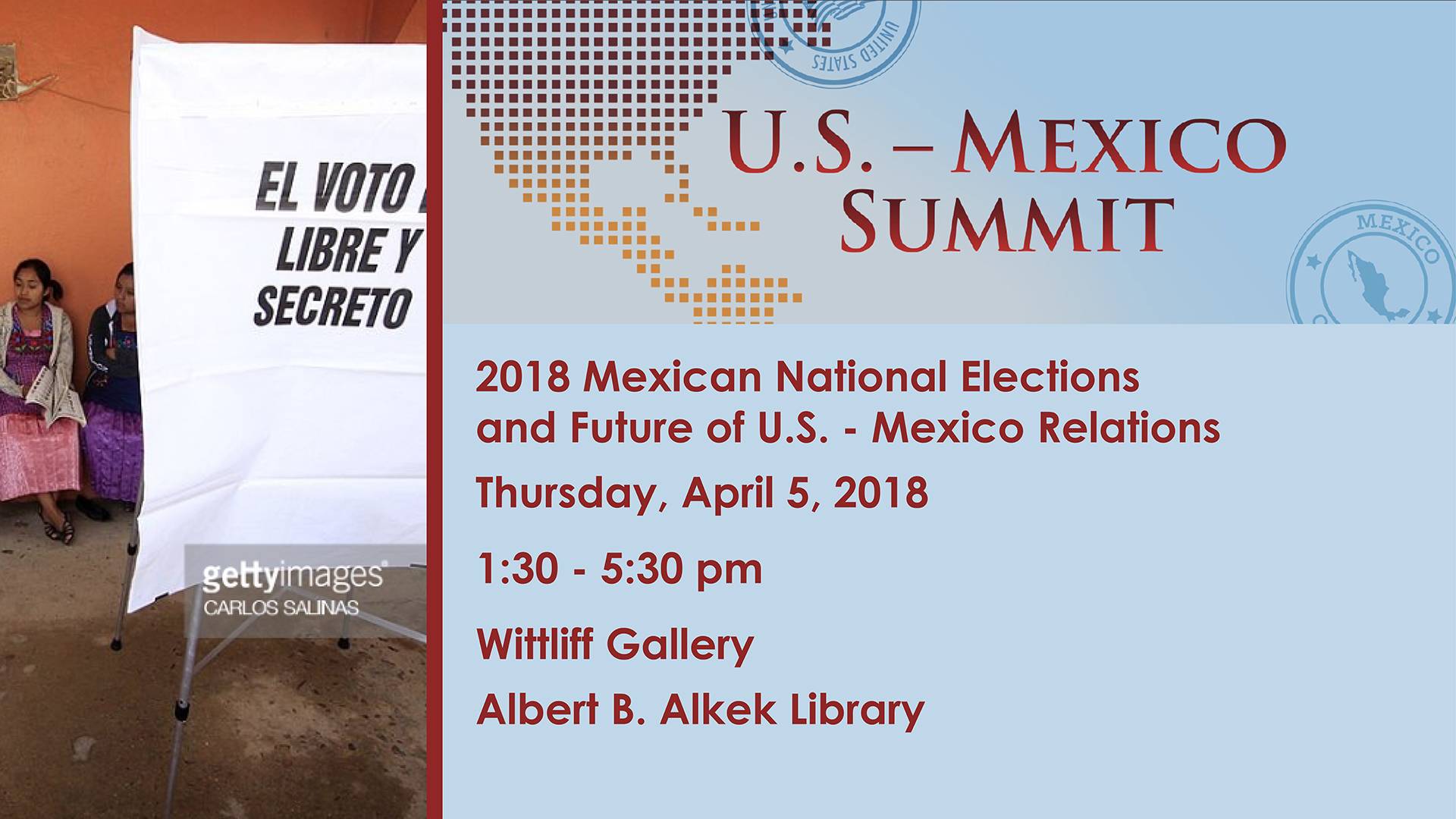 Keynote speakers
Keynote speakers
Carlos Gonzalez | Consul General of MexicoAna Paula Ordorica | Mexican journalist
Featured panelists
Gustavo Vega Canovas | Provost, Colegio de MexicoJudge Manuel Gonzalez Oropeza | Magistrate for the Federal Electoral Commission
Guillermo Trejo | Notre Dame University
-
Indigenous Borderlands of the Americas An International Symposium sponsored by the Center for the Study of the Southwest
Indigenous Borderlands of the Americas An International Symposium sponsored by the Center for the Study of the Southwest
Saturday, April 6-7, 2018 | Lampasas 501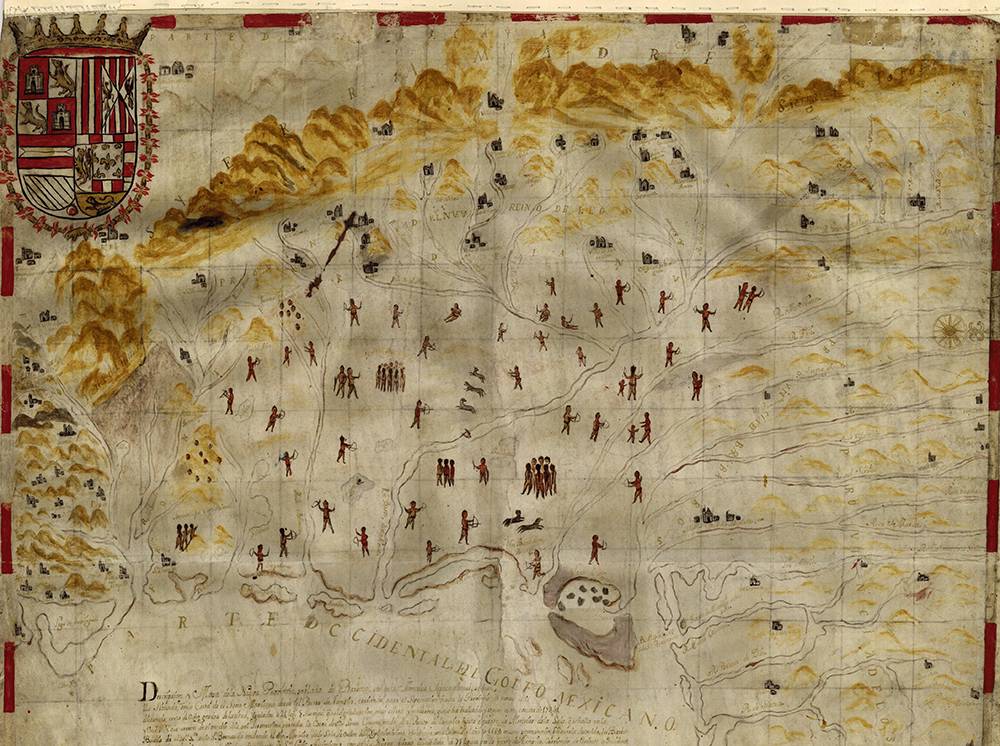 Covering a wide chronological and geographical span, from Colonial Yucatán to twentieth-century Bolivia, this symposium explores the manifold ways in which natives across the Americas resisted and adapted to the intrusion of people of European descent to preserve their political autonomy and their cultural identity, thus shaping the indigenous borderlands of the Western Hemisphere.
Covering a wide chronological and geographical span, from Colonial Yucatán to twentieth-century Bolivia, this symposium explores the manifold ways in which natives across the Americas resisted and adapted to the intrusion of people of European descent to preserve their political autonomy and their cultural identity, thus shaping the indigenous borderlands of the Western Hemisphere. -
Two Lectures with Melissa Stuckey
Two Lectures with Melissa Stuckey
Thursday, April 12, 2018 | Brazos Hall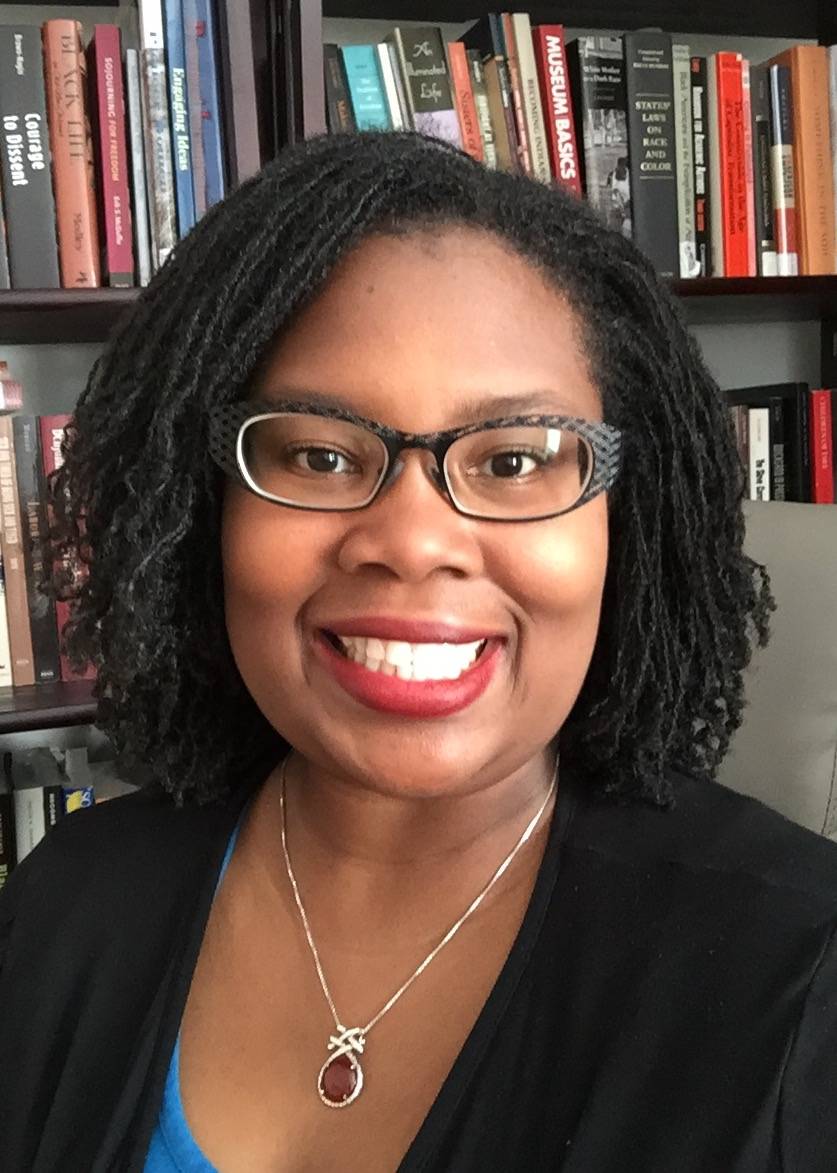 The Center for the Study of the Southwest welcomes Dr. Melissa Stuckey for two lectures on April 12, 2018. The first, Boley, Indian Territory: Freedom and the All-Black town, sheds light on an important place and a brief time where nationalist black freedom ideals and geopolitical opportunity intersected for African-descended people in North America.
The Center for the Study of the Southwest welcomes Dr. Melissa Stuckey for two lectures on April 12, 2018. The first, Boley, Indian Territory: Freedom and the All-Black town, sheds light on an important place and a brief time where nationalist black freedom ideals and geopolitical opportunity intersected for African-descended people in North America.The second, Meet Me in Boley: The Historian, the Nonprofit Organization, and the Black Town, examines the town of Boley, founded in 1903 as one of Oklahoma’s thirteen surviving all-black towns in what was then Creek Nation, Indian Territory.
-
Native Migrants, the Spanish Empire, and the Law
Native Migrants, the Spanish Empire, and the Law
Friday, May 4, 2018 | 12:30-2:30 | Brazos Hall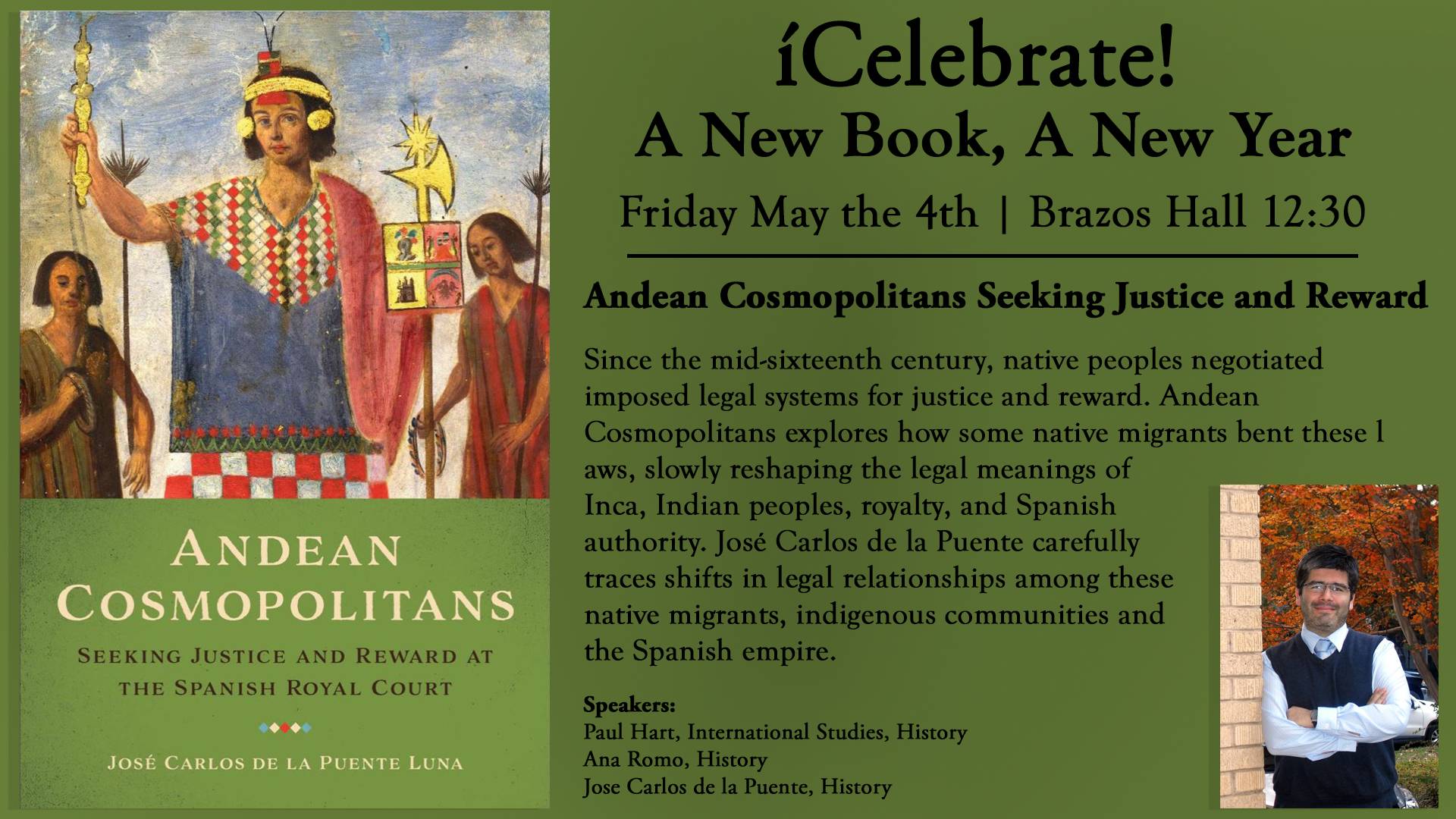 Since the mid-sixteenth century, native peoples have tried using imposed legal systems for justice and reward. Andean Cosmopolitans explores how some native migrants bent these laws, slowly reshaping the legal meanings of Inca, Indian peoples, royalty, and Spanish authority. Historian José Carlos de la Puente carefully traces shifts in relationships among these native subjects, Spanish courts, and indigenous communities across the Spanish empire.
Since the mid-sixteenth century, native peoples have tried using imposed legal systems for justice and reward. Andean Cosmopolitans explores how some native migrants bent these laws, slowly reshaping the legal meanings of Inca, Indian peoples, royalty, and Spanish authority. Historian José Carlos de la Puente carefully traces shifts in relationships among these native subjects, Spanish courts, and indigenous communities across the Spanish empire.Please join the Center for the Study of the Southwest and the Department of History in celebrating the end of the semester, the publication of Andean Cosmopolitans and Latin American Studies at Texas State
-
A Workshop and Reading with Ariana Brown
A Workshop and Reading with Ariana Brown
Thursday, August 2, 2018 | 6:30-9:00 pm
Splash Co-Working Space | 325 North LBJ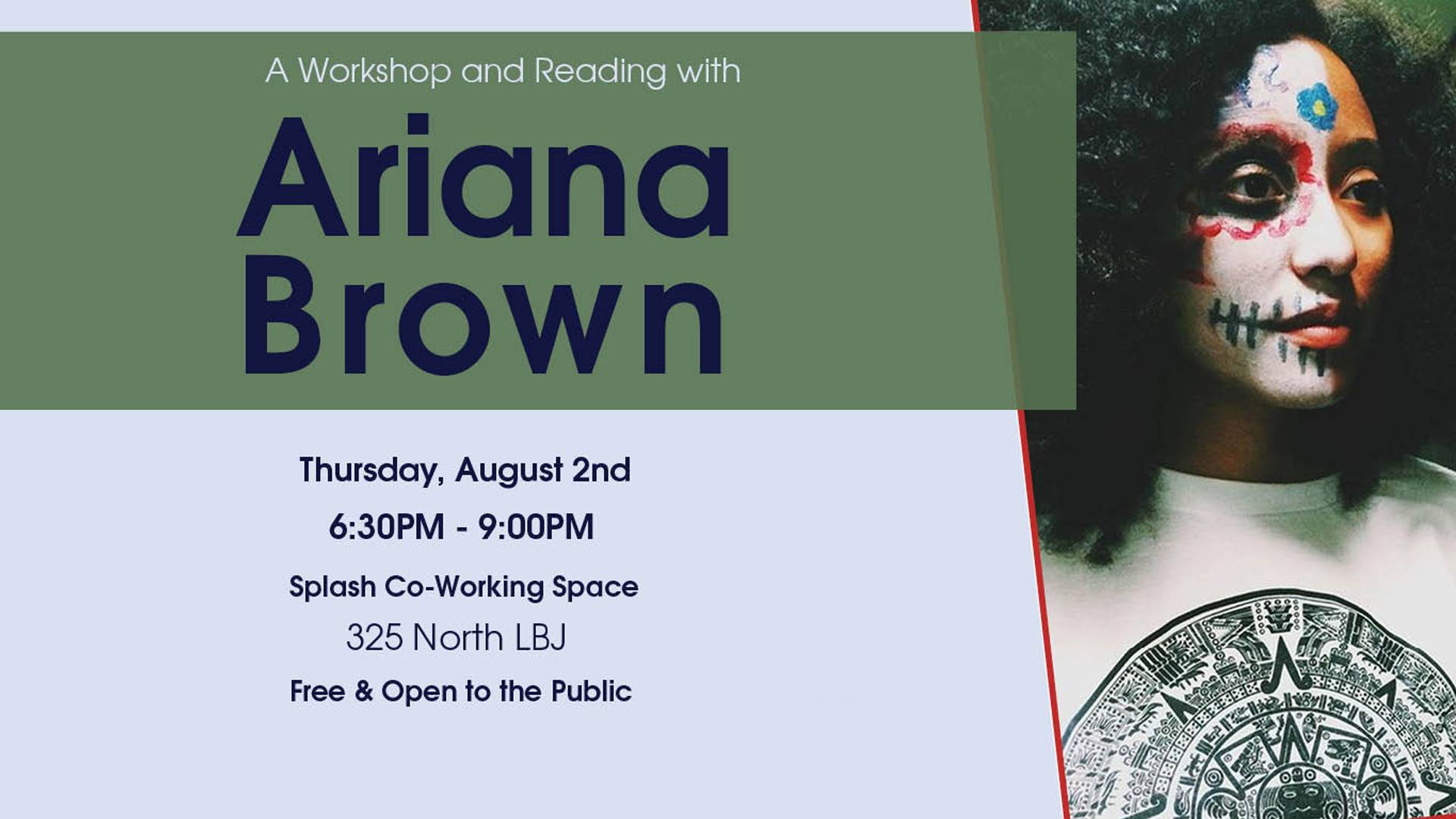 Ariana Brown is a Black Mexican American poet from San Antonio, Texas, with a B.A. in African Diaspora Studies and Mexican American Studies. She is the recipient of two Academy of American Poets Prizes and a 2014 collegiate national poetry slam champion. Ariana, who has been dubbed a "part-time curandera," is primarily interested in using poetry to validate Black girl rage in all its miraculous forms. She is currently earning an MFA in Poetry at the University of Pittsburgh. Follow her work on her personal website and on Twitter & Instagram @arianathepoet.
Ariana Brown is a Black Mexican American poet from San Antonio, Texas, with a B.A. in African Diaspora Studies and Mexican American Studies. She is the recipient of two Academy of American Poets Prizes and a 2014 collegiate national poetry slam champion. Ariana, who has been dubbed a "part-time curandera," is primarily interested in using poetry to validate Black girl rage in all its miraculous forms. She is currently earning an MFA in Poetry at the University of Pittsburgh. Follow her work on her personal website and on Twitter & Instagram @arianathepoet. -
Demography is not Destiny: Policy and Social Change in Texas
Demography is not Destiny: Policy and Social Change in Texas
A Talk by Rogelio Saenz
Monday, September 10, 2018 | 12:30 pm | Flowers Hall 230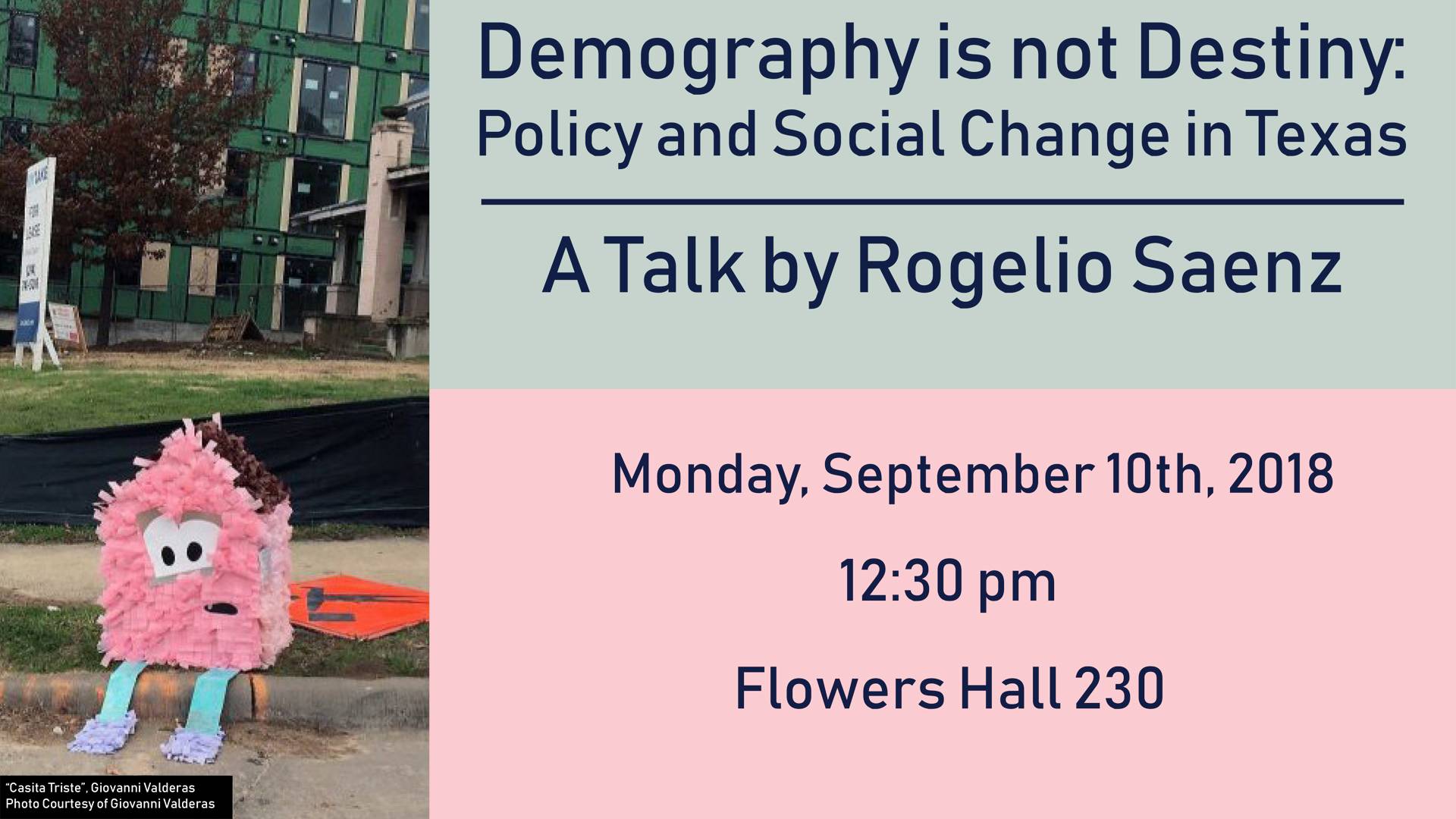 Will Texas become majority minority? Will the electorate become majority-minority? Will there be public policies that reflect the will of the majority of Texas residents? Public intellectual and UTSA Dean of Public Policy Rogelio Saenz will discuss the ways recent demographic trends shape policy in Texas and the ways that policy debates complicate an easy connection between demographics and electoral outcomes. By focusing on changes in urban and suburban areas – like Midwestern migrants to ethnically diverse suburbs to demographic changes in majority-minority metropolitan Texas – Rogelio Saenz will underline the importance of demography to public policy.
Will Texas become majority minority? Will the electorate become majority-minority? Will there be public policies that reflect the will of the majority of Texas residents? Public intellectual and UTSA Dean of Public Policy Rogelio Saenz will discuss the ways recent demographic trends shape policy in Texas and the ways that policy debates complicate an easy connection between demographics and electoral outcomes. By focusing on changes in urban and suburban areas – like Midwestern migrants to ethnically diverse suburbs to demographic changes in majority-minority metropolitan Texas – Rogelio Saenz will underline the importance of demography to public policy. -
The Injustice Never Leaves You: Anti-Mexican Violence in Texas
The Injustice Never Leaves You: Anti-Mexican Violence in Texas
A Talk by Monica Muñoz Martinez
Wednesday, October 3, 2018 | 12:30 pm | Brazos Hall Between 1910 and 1920, vigilantes and law enforcement—including the renowned Texas Rangers—killed Mexican residents with impunity. The full extent of the violence was known only to the relatives of the victims. Monica Muñoz Martinez turns to the keepers of this history to tell this riveting and disturbing untold story.
Between 1910 and 1920, vigilantes and law enforcement—including the renowned Texas Rangers—killed Mexican residents with impunity. The full extent of the violence was known only to the relatives of the victims. Monica Muñoz Martinez turns to the keepers of this history to tell this riveting and disturbing untold story.Born and raised in Texas, Dr. Monica Muñoz Martinez is an award-winning historian and activist. Her first book, The Injustice Never Leaves You, addresses anti-Mexican racial terror in Texas between 1900 and 1920.
-
Latinos and the Future of America: Reflections on the Color of Educational Opportunity
Latinos and the Future of America: Reflections on the Color of Educational Opportunity
a talk by Dr. Marta Tienda
Wednesday, October 11, 2018 | 2:30 - 4:30 pm | The Wittliff Collections (7th Floor Alkek Library)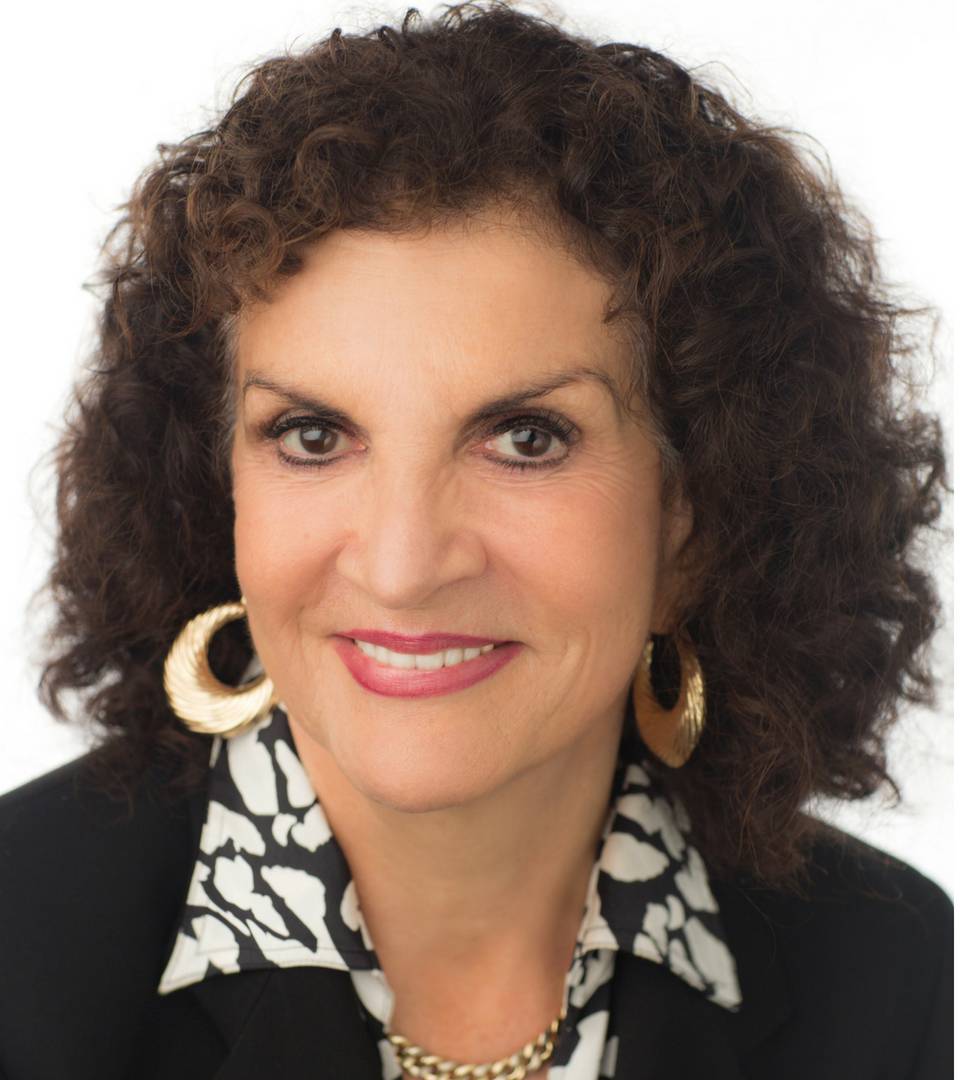 Dr. Tienda is the Maurice P. During ’22 Professor of Demographic Studies and Professor of Sociology and Public Affairs, and Director of the Latina/o Studies minor at Princeton University and former director of the Office of Population Research. Dr. Tienda received a B.A. from Michigan State University (Spanish, 1972) and a Ph.D. in Sociology from the University of Texas at Austin (1976). She has received honorary doctorates from Bank Street College, Ohio State University and Lehman College. Professor Tienda’s expertise focuses on race and ethnic inequality, international migration, health, and higher education.
Dr. Tienda is the Maurice P. During ’22 Professor of Demographic Studies and Professor of Sociology and Public Affairs, and Director of the Latina/o Studies minor at Princeton University and former director of the Office of Population Research. Dr. Tienda received a B.A. from Michigan State University (Spanish, 1972) and a Ph.D. in Sociology from the University of Texas at Austin (1976). She has received honorary doctorates from Bank Street College, Ohio State University and Lehman College. Professor Tienda’s expertise focuses on race and ethnic inequality, international migration, health, and higher education.Dr. Tienda is the author of Multiple Origins, Uncertain Destinies (2006), and Hispanics and the Future of America (2006).
-
The Color Line & the Borderline | William Ellis, From Texas Slave to Mexican Millionaire
The Color Line & the Borderline | William Ellis, From Texas Slave to Mexican Millionaire
Karl Jacoby & Robert "Chip" Williams
Tuesday, October 23, 2018 | 12:30 pm | Brazos Hall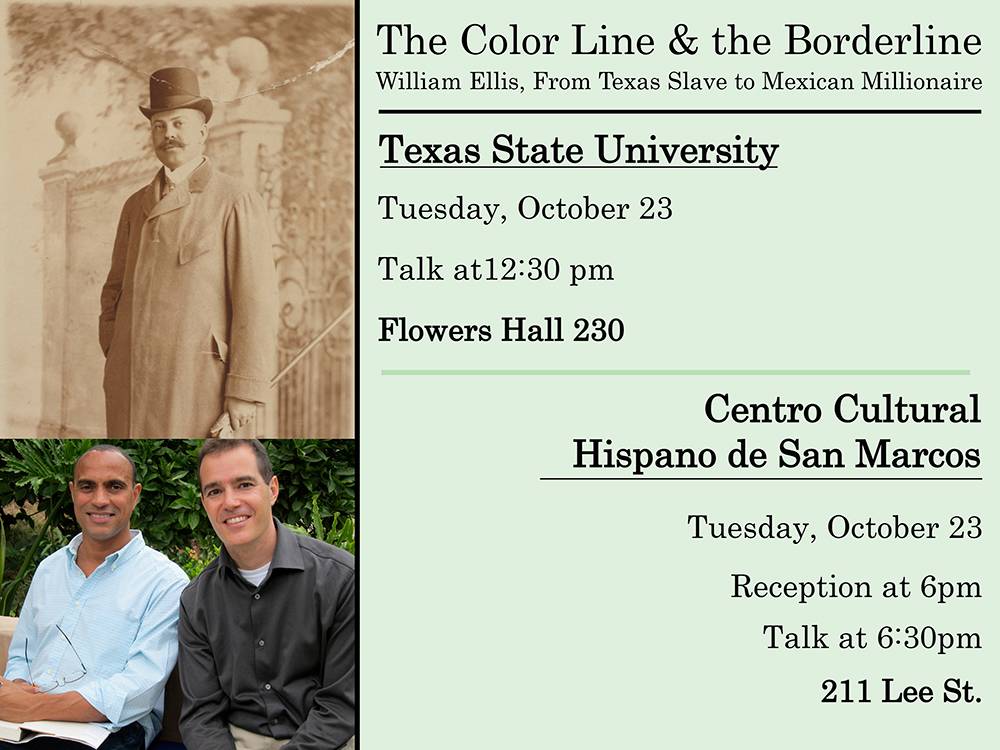 Please join Karl Jacoby and Robert “Chip” Williams as they discuss the extraordinary but true history of the border-crossing William Ellis. Born into slavery in Victoria, Texas, William Ellis capitalized on the Spanish that he learned as a child to reinvent himself in the 1880s as the Mexican businessman Guillermo Eliseo, a cosmopolitan figure who circulated between San Antonio, Mexico City, and New York City’s Wall Street. Ellis’s remarkable ability to negotiate color lines between black and Mexican communities as well as the borderline between the US and Mexico casts in sharp relief the racial and political geography of Mexico, the U.S., and their shared border region at the turn of the last century.
Please join Karl Jacoby and Robert “Chip” Williams as they discuss the extraordinary but true history of the border-crossing William Ellis. Born into slavery in Victoria, Texas, William Ellis capitalized on the Spanish that he learned as a child to reinvent himself in the 1880s as the Mexican businessman Guillermo Eliseo, a cosmopolitan figure who circulated between San Antonio, Mexico City, and New York City’s Wall Street. Ellis’s remarkable ability to negotiate color lines between black and Mexican communities as well as the borderline between the US and Mexico casts in sharp relief the racial and political geography of Mexico, the U.S., and their shared border region at the turn of the last century.Karl Jacoby is the Allan Nevins Professor of American History at Columbia University. Robert “Chip” Williams is a teacher in the Los Angeles school system and the great grand-nephew of William Ellis. Their presentation will explore the interplay between what the archive can tell us about William Ellis versus other, more vernacular sources, such as family stories.
-
Concrete Connections: Migrant Construction Workers and the Transformation of Architecture in Mexico
Concrete Connections: Migrant Construction Workers and the Transformation of Architecture in Mexico
A Talk by Sarah Lynn Lopez
Monday, November 12, 2018 | 12:30-2:00 pm | Brazos Hall Sarah Lynn Lopez, professor of architecture and migration studies, will present on the ways Mexican migrant workers have been transforming the landscapes of their rural Mexican towns and the U.S. cities over the past 40 years. This lecture traces the ways Mexican migrants’ sense of domestic space catalyzed and financed a building boom across small towns in Mexico, part of the 20 billion dollars families remit yearly to Mexico.
Sarah Lynn Lopez, professor of architecture and migration studies, will present on the ways Mexican migrant workers have been transforming the landscapes of their rural Mexican towns and the U.S. cities over the past 40 years. This lecture traces the ways Mexican migrants’ sense of domestic space catalyzed and financed a building boom across small towns in Mexico, part of the 20 billion dollars families remit yearly to Mexico. -
Book Reading | South of Hannah
South of Hannah
A Book Reading by David Norman
November 15, 2018 | 6:00 pm | Brazos Hall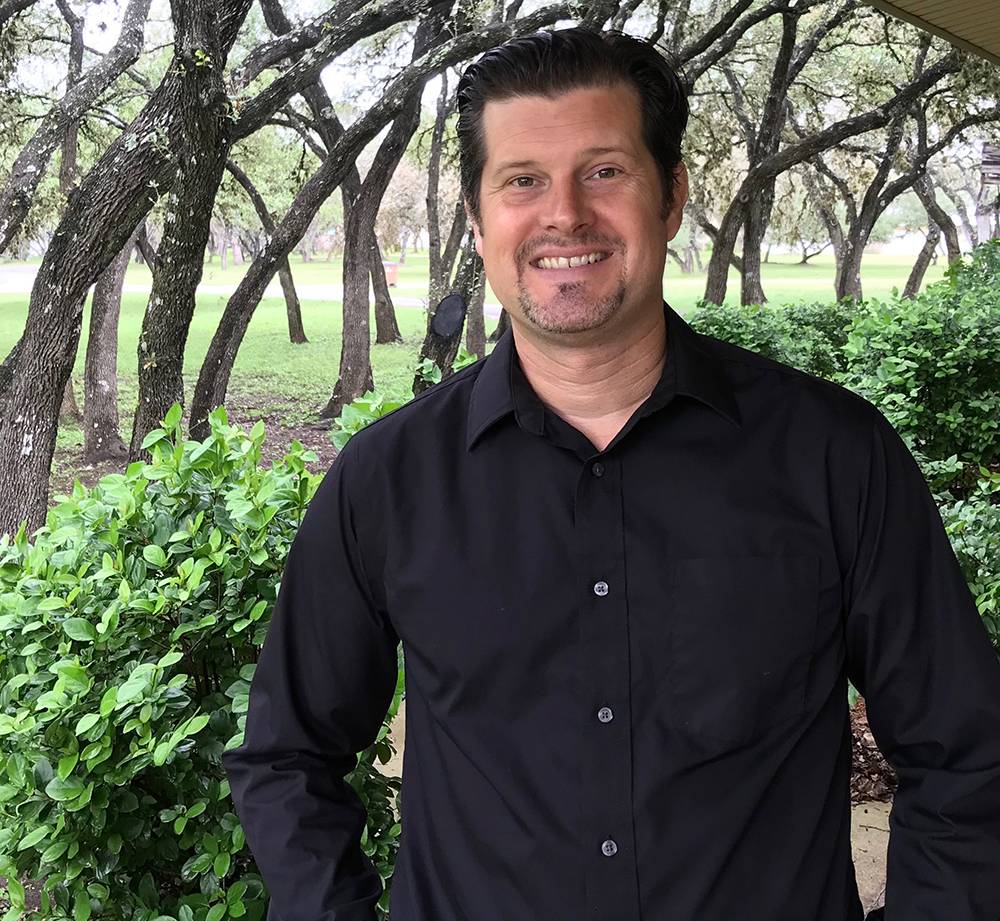 The Center for the Study of the Southwest welcomes back our own David Norman for a special reading from his novel, South of Hannah. David Norman was previously the editor of Southwestern American Literature and Texas Books in Review. His novel has already been called the debut of an important new voice in contemporary literature. There will be refreshments and books available for purchase.
The Center for the Study of the Southwest welcomes back our own David Norman for a special reading from his novel, South of Hannah. David Norman was previously the editor of Southwestern American Literature and Texas Books in Review. His novel has already been called the debut of an important new voice in contemporary literature. There will be refreshments and books available for purchase.
-
-
2017 News and Events
-
CSSW Exhibit | A Land without Borders
A Land without Borders: The Comanche Range An exhibit about Comanche geography and adaptation to the land
On view February 7 – May 10, 2017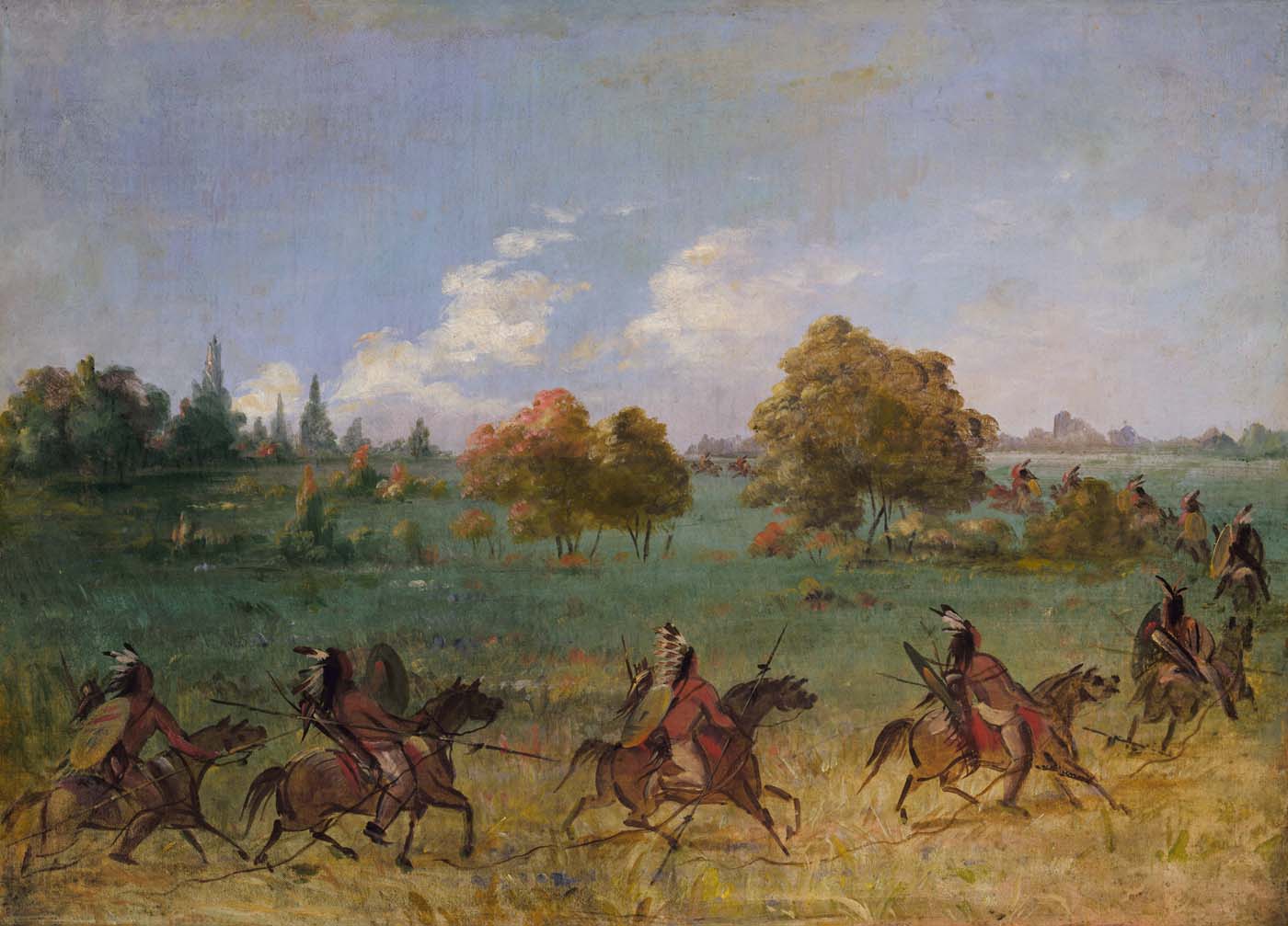 Exhibit Opening Reception: Tuesday, February 7 | Brazos Hall, 5:00-6:00 p.m.
Exhibit Opening Reception: Tuesday, February 7 | Brazos Hall, 5:00-6:00 p.m.This exhibit highlights the relationship between the Comanche and the land. Comanches were one of the most influential peoples of the Greater Southwest throughout the 18th and 19th centuries. Despite their confinement in 1875 to a small reservation in today’s southwestern Oklahoma, the Comanches’ connection to their once vast range has survived in place names and historical memory. The exhibit was developed and designed by public history graduate students at Texas State as a semester-long team project.
-
Book Reading | The Other Slavery: Indian Enslavement in North America
The Other Slavery: Indian Enslavement in North America
A Book Reading by Andrés Reséndez
Thursday, February 16, 2017 | Flowers Hall 230 | 12:30 p.m.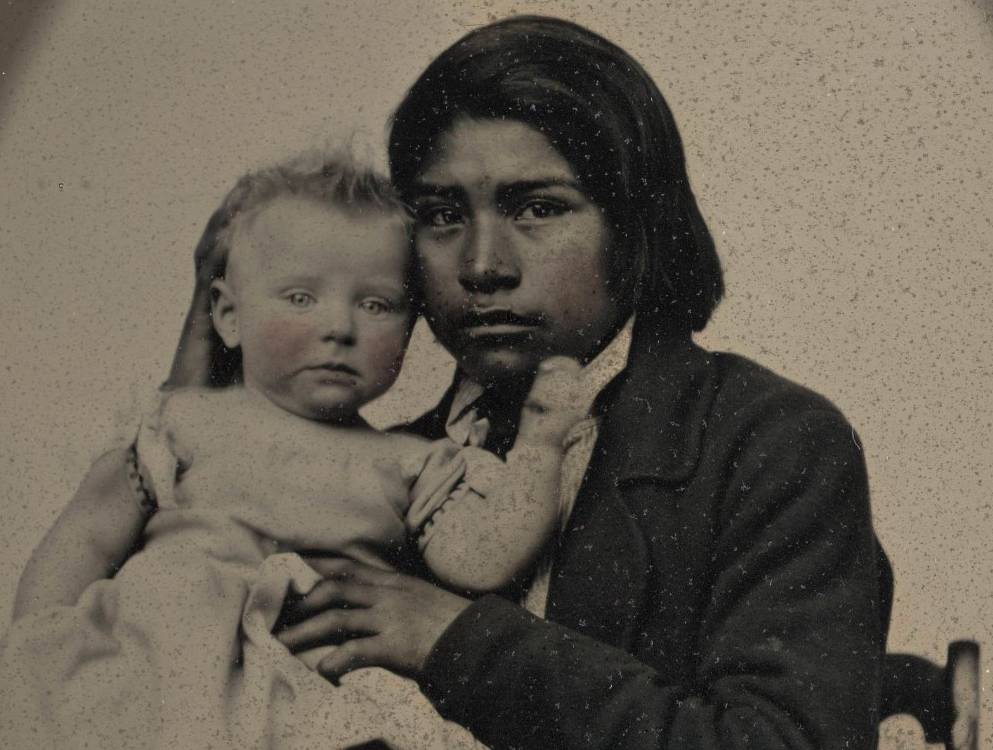 Prof. Andrés Reséndez’s presentation argues that native enslavement and slave raids are central to the settlement and economic growth of North America. His book, The Other Slavery, is the first broad history of the long co-existence of Indian enslavement, depopulation, chattel slavery and abolition in the West from the 1500s to the 1900s. He traces Indian slavery under Spanish, Mexican and American authorities. Andrés Reséndez is Professor of History at the University of California, Davis, and the author of Changing National Identities at the Frontier: Texas and New Mexico, 1800-1850 and A Land So Strange: The Epic Journey of Cabeza de Vaca.
Prof. Andrés Reséndez’s presentation argues that native enslavement and slave raids are central to the settlement and economic growth of North America. His book, The Other Slavery, is the first broad history of the long co-existence of Indian enslavement, depopulation, chattel slavery and abolition in the West from the 1500s to the 1900s. He traces Indian slavery under Spanish, Mexican and American authorities. Andrés Reséndez is Professor of History at the University of California, Davis, and the author of Changing National Identities at the Frontier: Texas and New Mexico, 1800-1850 and A Land So Strange: The Epic Journey of Cabeza de Vaca.Photo | “‘Maidu Boy, 1850,” by Robert Vance. The picture is of a young boy and a ward of the state, being used as a nanny in California.
This program is sponsored by the Office of Equity and Access, the Speaker’s Committee of the Department of History, and the Center for the Study of the Southwest.
-
An Anthology of Poetry, Short Fiction, and Nonfiction Reading
An Anthology of Poetry, Short Fiction, and Nonfiction Reading
Brazos Hall | March 2, 2017 | 12:30 pm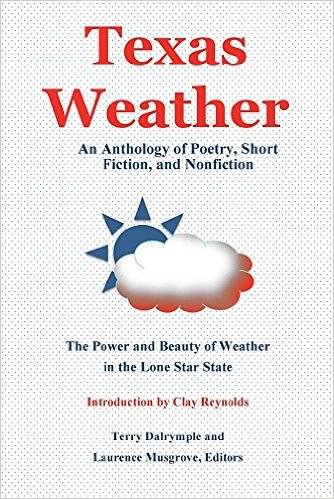 Published by Lamar University Press, Texas Weather: An Anthology of Poetry, Short Fiction, and Nonfiction is a collection of works that “celebrates with intimate detail and incredible scope why Texans are so fascinated with, wary of, confounded by, and thankful for their weather.” Edited by Laurence Musgrove and Terry Dalrymple, this anthology includes an amazing array of 59 writers. Of these writers and editors, Jason Harris, Vanessa Johnson, Laurence Musgrove, Charles Taylor, and Steve Wilson will share their work. William Jensen will moderate the discussion panel to follow.
Published by Lamar University Press, Texas Weather: An Anthology of Poetry, Short Fiction, and Nonfiction is a collection of works that “celebrates with intimate detail and incredible scope why Texans are so fascinated with, wary of, confounded by, and thankful for their weather.” Edited by Laurence Musgrove and Terry Dalrymple, this anthology includes an amazing array of 59 writers. Of these writers and editors, Jason Harris, Vanessa Johnson, Laurence Musgrove, Charles Taylor, and Steve Wilson will share their work. William Jensen will moderate the discussion panel to follow.Book signing to follow.
-
A Fresh Look at the Fort Parker Raid of 1836
A Fresh Look at the Fort Parker Raid of 1836
Wednesday, March 29 | 3:30 p.m. | Brazos Hall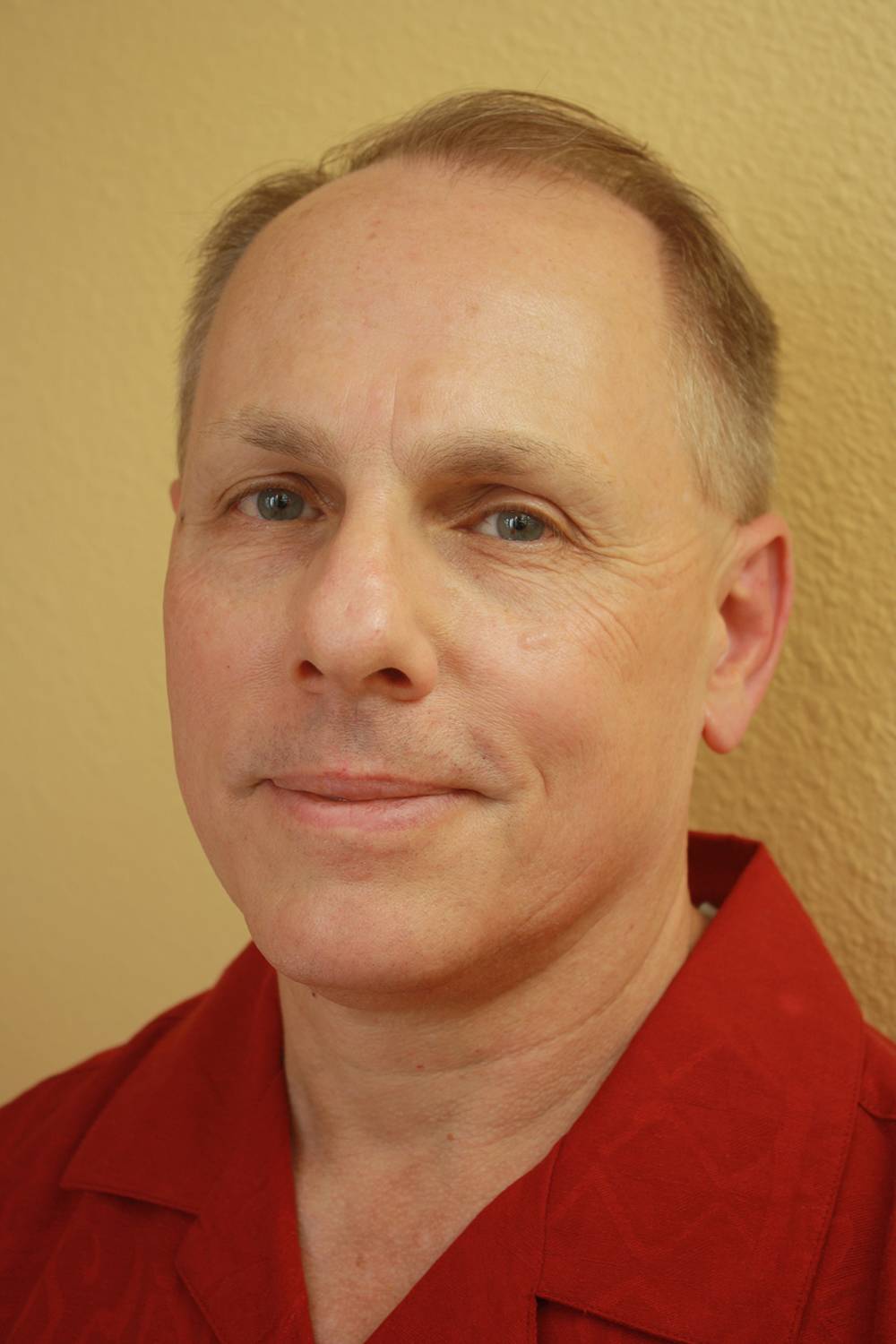 Texas was an independent Republic for just a few years, between 1836 and 1846. This relatively short time span was, however, particularly prolific in producing frontier myths, heroes, and antiheroes, some of which have resisted the test of time surprisingly well. The Comanche Indians of the southern plains are doubtlessly one of the most enduring icons of that mythical legacy. On May 19, 1836, an Indian raid on Fort Parker, in today’s Limestone County, Texas, resulted in the killing and capture of several Anglo settlers, including Cynthia Ann Parker –future mother of the famous Comanche leader Quanah. This fabled incident has become one of the foundational myths of the Texas Republic. Dr. Gelo’s careful scrutiny of eyewitness accounts, and his understanding of indigenous geopolitical strategies at the time will reveal what actually happened at Fort Paker, the exact identity of the attackers, and what their motivations were, redressing both the standard account of the raid and some recent interpretations.
Texas was an independent Republic for just a few years, between 1836 and 1846. This relatively short time span was, however, particularly prolific in producing frontier myths, heroes, and antiheroes, some of which have resisted the test of time surprisingly well. The Comanche Indians of the southern plains are doubtlessly one of the most enduring icons of that mythical legacy. On May 19, 1836, an Indian raid on Fort Parker, in today’s Limestone County, Texas, resulted in the killing and capture of several Anglo settlers, including Cynthia Ann Parker –future mother of the famous Comanche leader Quanah. This fabled incident has become one of the foundational myths of the Texas Republic. Dr. Gelo’s careful scrutiny of eyewitness accounts, and his understanding of indigenous geopolitical strategies at the time will reveal what actually happened at Fort Paker, the exact identity of the attackers, and what their motivations were, redressing both the standard account of the raid and some recent interpretations. -
Landscapes, Peoples, and Institutions: Constructing the Borderlands
Landscapes, Peoples, and Institutions: Constructing the Borderlands
An International Symposium Sponsored by the Center for the Study of the Southwest
Saturday, April 1, 2017 | 9:30 am – 5 pm | Flowers Hall 230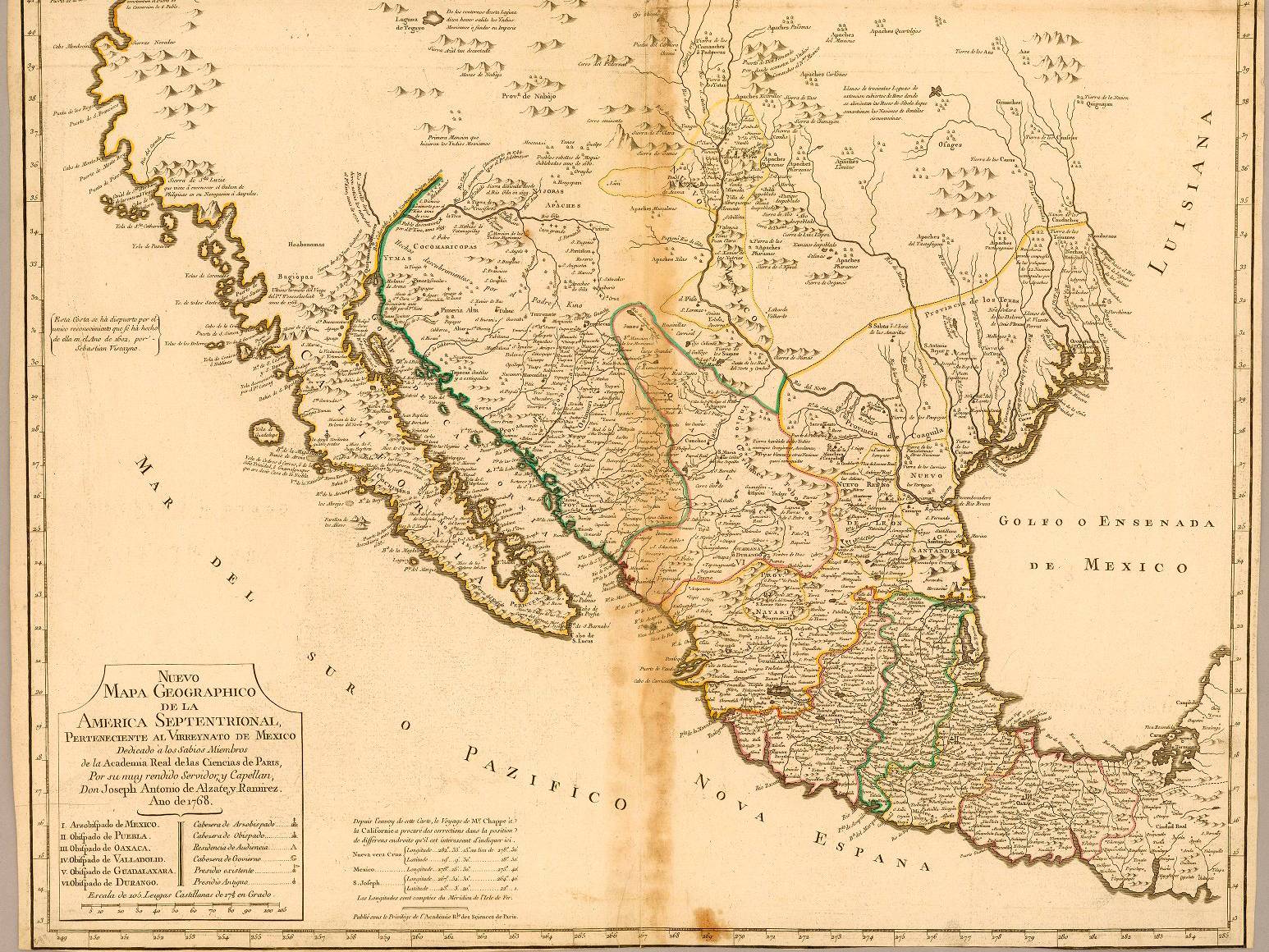 Developments along US-Mexico Borderlands in the eighteenth and nineteenth centuries had long-lasting effects and contributed decisively to give the region its current configuration. This symposium offers a fresh look at some of the ways in which peoples of diverse ethnic backgrounds and geographical origins adapted to the borderlands environment and to one another during that period.
Developments along US-Mexico Borderlands in the eighteenth and nineteenth centuries had long-lasting effects and contributed decisively to give the region its current configuration. This symposium offers a fresh look at some of the ways in which peoples of diverse ethnic backgrounds and geographical origins adapted to the borderlands environment and to one another during that period. -
Tim Z. Hernandez: And They Will Call You
Tim Z. Hernandez: And They Will Call You
April 6, 2017 | 12:30 pm. in Brazos Hall | 5:30 pm at the Wittliff Collections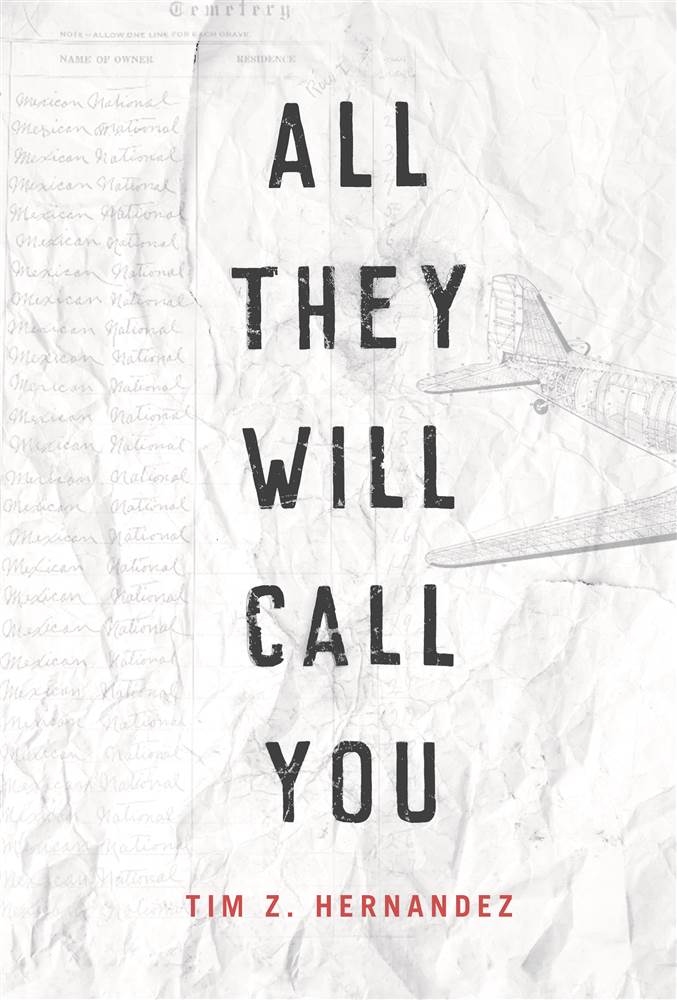 Tim Z. Hernandez shares the harrowing account of “the worst airplane disaster in California’s history,” which claimed the lives of thirty-two passengers, including twenty-eight Mexican citizens—farmworkers who were being deported by the U.S. government. Outraged that media reports omitted only the names of the Mexican passengers, American folk icon Woody Guthrie penned a poem that went on to become one of the most important protest songs of the twentieth century, “Plane Wreck at Los Gatos (Deportee).” Combining years of painstaking investigative research and masterful storytelling, Hernandez’ weaves a captivating narrative from testimony, historical records, and eyewitness accounts, reconstructing the incident and the lives behind the legendary song.
Tim Z. Hernandez shares the harrowing account of “the worst airplane disaster in California’s history,” which claimed the lives of thirty-two passengers, including twenty-eight Mexican citizens—farmworkers who were being deported by the U.S. government. Outraged that media reports omitted only the names of the Mexican passengers, American folk icon Woody Guthrie penned a poem that went on to become one of the most important protest songs of the twentieth century, “Plane Wreck at Los Gatos (Deportee).” Combining years of painstaking investigative research and masterful storytelling, Hernandez’ weaves a captivating narrative from testimony, historical records, and eyewitness accounts, reconstructing the incident and the lives behind the legendary song. -
Book Reading | Cities of Men
Cities of Men
A Book Reading by William Jensen
April 27, 2017 | 5:30 pm Reception | 6:00 pm Reading | Brazos Hall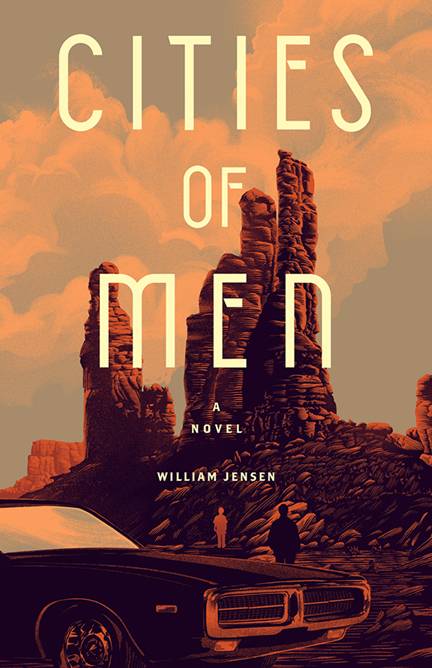 Join the Center for the Study of the Southwest in celebrating the release of their own William Jensen's first novel, Cities of Men. A book signing with advanced copies of Cities of Men will follow the reading.
Join the Center for the Study of the Southwest in celebrating the release of their own William Jensen's first novel, Cities of Men. A book signing with advanced copies of Cities of Men will follow the reading. In 1987, twelve-year-old Cooper Balsam's mother, Arden, disappears without a trace. As days pass, Cooper and his father search for the most important woman in their lives. From the hills of Southern California, to the deserts of Arizona, and down to the beaches of Mexico, the father and son will look for someone who may not want to be found for reasons they don't yet understand.
-
Frank de la Teja Retirement
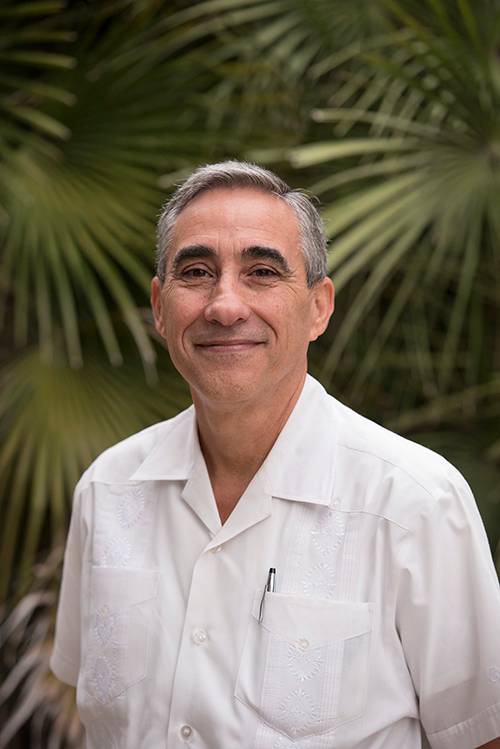 It is with warm wishes that we announce the retirement of CSSW director, Frank de la Teja. Dr. de la Teja was named Jerome H. and Catherine E. Supple Professor of Southwestern Studies in 2012. His retirement is effective August 31, 2017. Although leaving us after five years to spend more time with his growing family, he will undoubtedly continue publishing and speaking on his favorite subjects.
It is with warm wishes that we announce the retirement of CSSW director, Frank de la Teja. Dr. de la Teja was named Jerome H. and Catherine E. Supple Professor of Southwestern Studies in 2012. His retirement is effective August 31, 2017. Although leaving us after five years to spend more time with his growing family, he will undoubtedly continue publishing and speaking on his favorite subjects. -
New CSSW Director | Dr. John Mckiernan-González
New CSSW Director
Dr. John Mckiernan-González Dr. John Mckiernan-González, Associate Professor of History, has been named Jerome H. and Catherine E. Supple Professor of Southwestern Studies at Texas State University beginning September 1, 2017. He succeeds Dr. Jesús F. “Frank” de la Teja, who is retiring as director of Texas State’s Center for the Study of the Southwest and Regents’ Professor of History.
Dr. John Mckiernan-González, Associate Professor of History, has been named Jerome H. and Catherine E. Supple Professor of Southwestern Studies at Texas State University beginning September 1, 2017. He succeeds Dr. Jesús F. “Frank” de la Teja, who is retiring as director of Texas State’s Center for the Study of the Southwest and Regents’ Professor of History. -
All the Agents and Saints: Dispatches from the U.S. Borderlands
All the Agents and Saints: Dispatches from the U.S. Borderlands
A reading by Stephanie Elizondo Griest
Thursday, September 7, 2017 | 11:00am – 12:20pm | The Wittliff Collections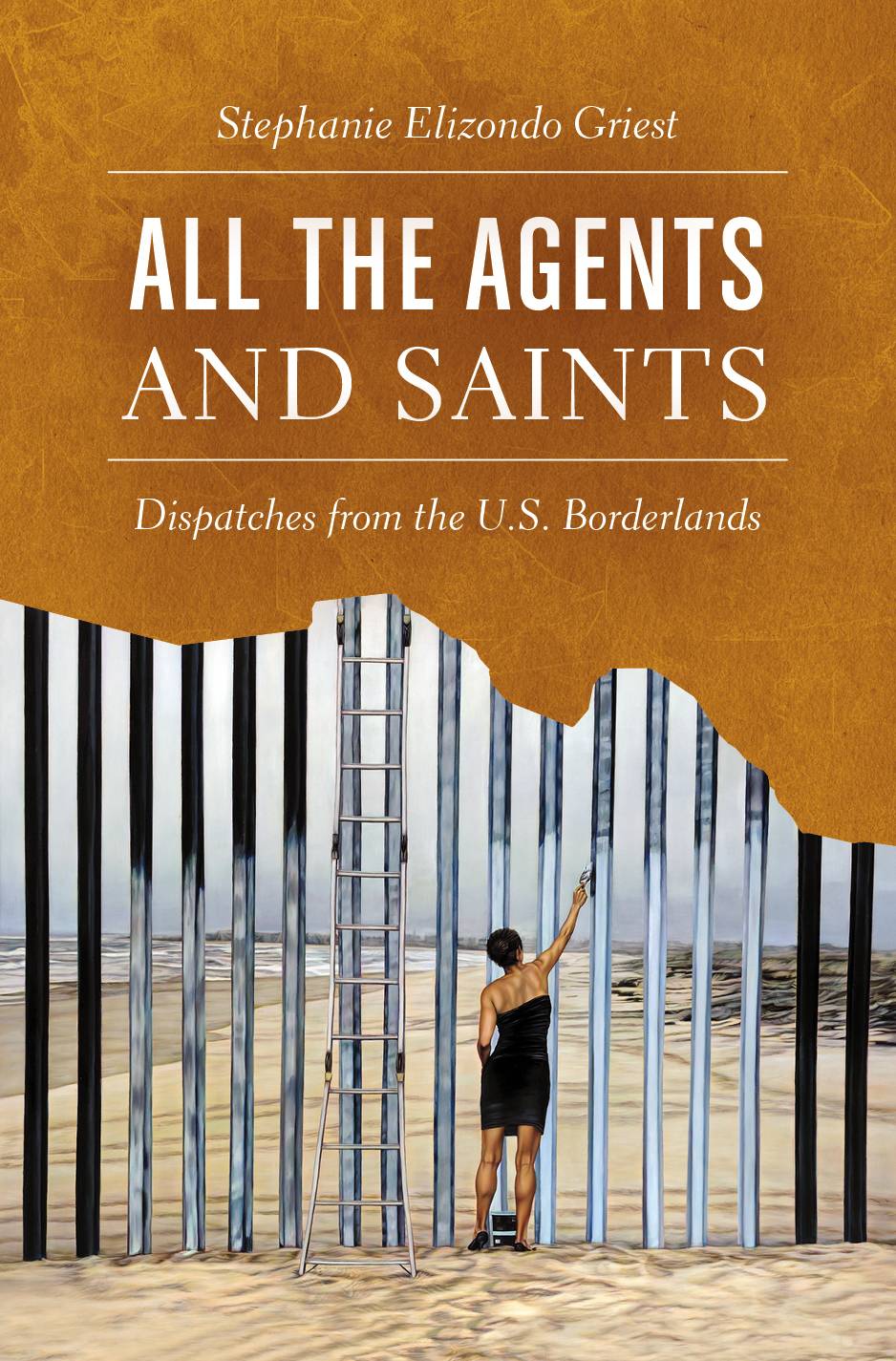 After a decade of chasing stories around the globe, intrepid travel writer Stephanie Elizondo Griest followed the magnetic pull home—only to discover that her native South Texas had been radically transformed in her absence. Ravaged by drug wars and barricaded by an eighteen-foot steel wall, her ancestral land had become the nation’s foremost crossing ground for undocumented workers, many of whom perished along the way. In All the Agents and Saints, Elizondo Griest weaves seven years of stories into a meditation on the existential impact of international borderlines by illuminating the spaces in between and the people who live there.
After a decade of chasing stories around the globe, intrepid travel writer Stephanie Elizondo Griest followed the magnetic pull home—only to discover that her native South Texas had been radically transformed in her absence. Ravaged by drug wars and barricaded by an eighteen-foot steel wall, her ancestral land had become the nation’s foremost crossing ground for undocumented workers, many of whom perished along the way. In All the Agents and Saints, Elizondo Griest weaves seven years of stories into a meditation on the existential impact of international borderlines by illuminating the spaces in between and the people who live there. -
CSSW Exhibit | Fairy Tales for Truth and Justice
CSSW Exhibit | Fairy Tales for Truth and Justice
On View - September 13 - December 13, 2017 | Opening Reception and Reading - September 13 | 12:00pm | Brazos Hall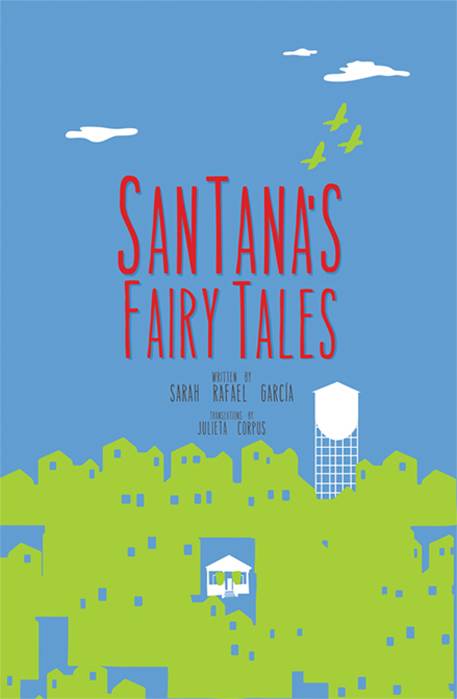 Developed through a one-year onsite artist-in-residence program at Grand Central Art Center in Santa Ana, California, SanTana’s Fairy Tales is a visual art installation, oral history, storytelling project initiated by artist/author Sarah Rafael García. The project integrates community-based narratives to create contemporary fairytales and fables that represent the history and stories of Mexican/Mexican-American residents of Santa Ana (inspired by the Grimm’s’ fairy tales).
Developed through a one-year onsite artist-in-residence program at Grand Central Art Center in Santa Ana, California, SanTana’s Fairy Tales is a visual art installation, oral history, storytelling project initiated by artist/author Sarah Rafael García. The project integrates community-based narratives to create contemporary fairytales and fables that represent the history and stories of Mexican/Mexican-American residents of Santa Ana (inspired by the Grimm’s’ fairy tales). -
Book Reading | The Border
The Border
A Book Reading and Panel with Steve Schafer
Thursday, September 28, 2017 | Reading 5:30pm; Panel Discussion 6pm | The Wittliff Collections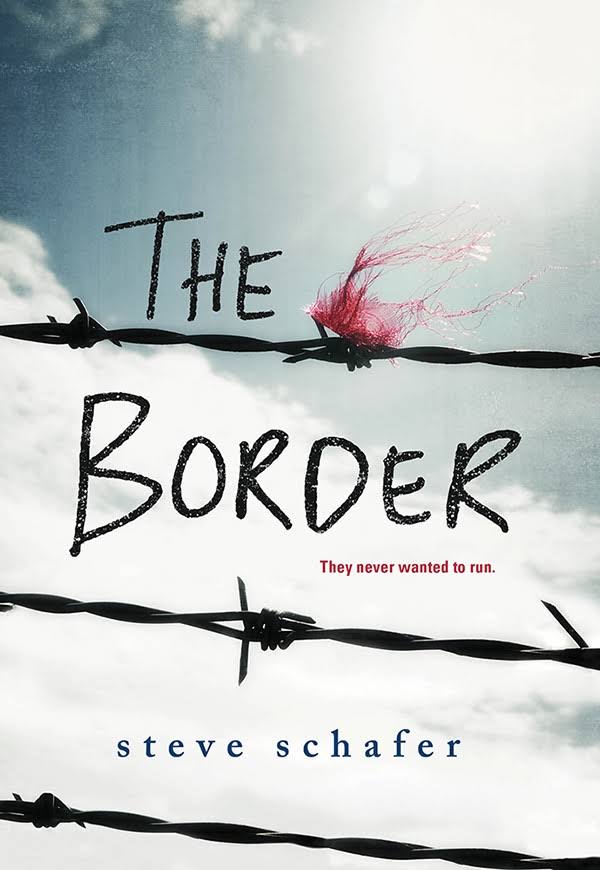 Steve Schafer visits Texas State University to read from his new book, The Border, a novel about four Mexican teenagers who flee to the U.S. through the scorching Sonoran Desert after getting caught in the cross fire of the narco-violence along the U.S./Mexico border. After the reading, a panel discussion entitled “Immigration and the Refugee Experience” will focus on the experiences and criminalization of immigrants with insights from Dr. Jose Coll (Director, School of Social Work at Texas State), Dr. Luis Torres (College of Social Work, University of Houston), Chief Benjamine “Carry” Huffman (Chief of Strategic Planning and Analysis Directorate at U.S. Border Patrol Headquarters), and Dr. John Mckiernen-Gonzalez (Director, Center for the Study of the Southwest).
Steve Schafer visits Texas State University to read from his new book, The Border, a novel about four Mexican teenagers who flee to the U.S. through the scorching Sonoran Desert after getting caught in the cross fire of the narco-violence along the U.S./Mexico border. After the reading, a panel discussion entitled “Immigration and the Refugee Experience” will focus on the experiences and criminalization of immigrants with insights from Dr. Jose Coll (Director, School of Social Work at Texas State), Dr. Luis Torres (College of Social Work, University of Houston), Chief Benjamine “Carry” Huffman (Chief of Strategic Planning and Analysis Directorate at U.S. Border Patrol Headquarters), and Dr. John Mckiernen-Gonzalez (Director, Center for the Study of the Southwest). -
Book Reading | Emiliano Zapata in American Memory
Emiliano Zapata in American Memory
A Book Reading and Signing by Paul Hart
Thursday, October 12, 2017 | 12:30 pm | Brazos Hall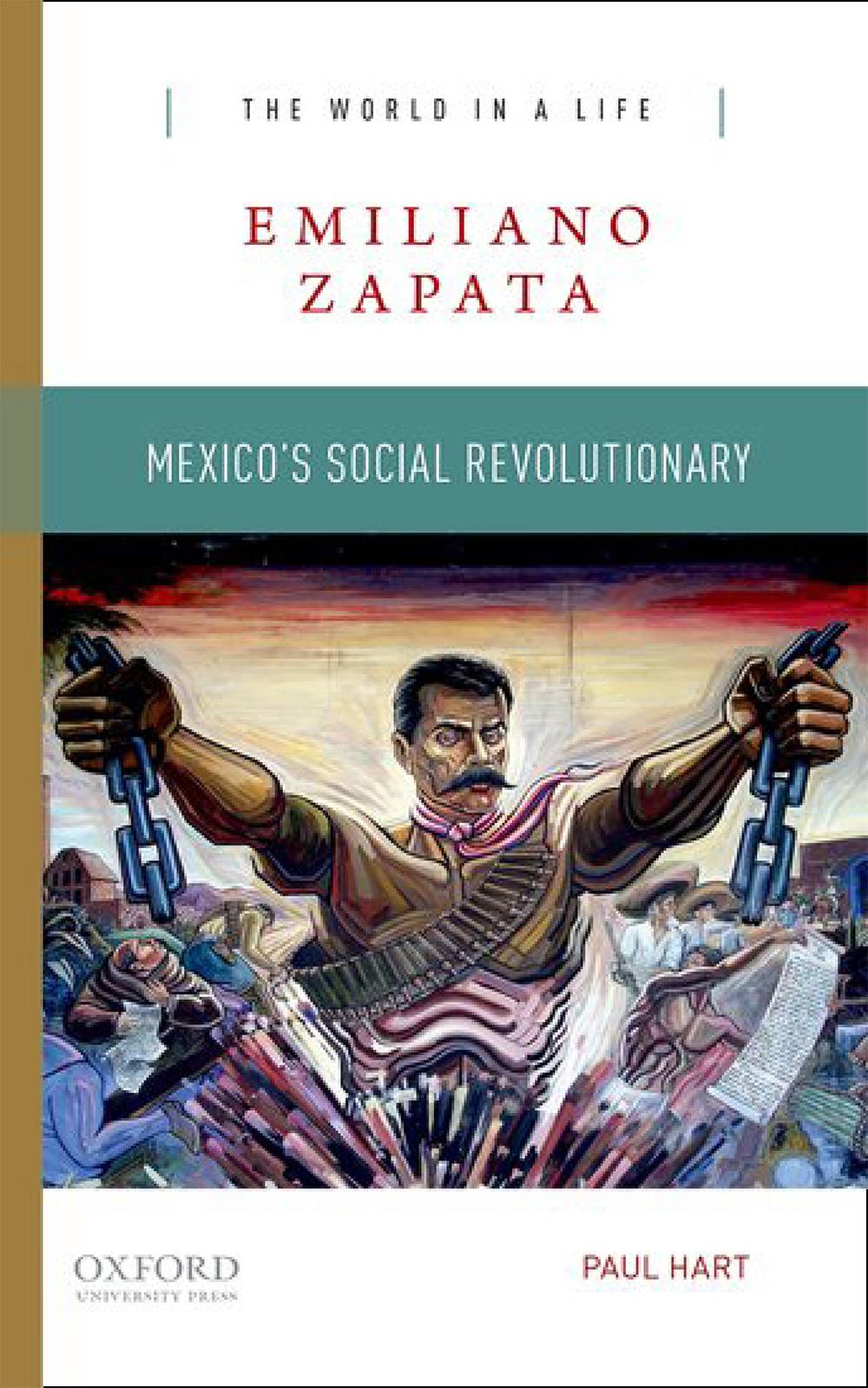 The talk explores the afterlife of Emiliano Zapata in North America, tracking the ways his life, his actions, and his myths inspired many movements and cultures across North America, from 1950s rural guerrillas to urban Chicana/os and from Agraristas to the current Zapatistas.
The talk explores the afterlife of Emiliano Zapata in North America, tracking the ways his life, his actions, and his myths inspired many movements and cultures across North America, from 1950s rural guerrillas to urban Chicana/os and from Agraristas to the current Zapatistas.Paul Hart is a Professor of History and Director for the Center for International Studies at Texas State University. He is also the author of Bitter Harvest: The Social Transformation of Morelos, Mexico and the Origins of the Zapatista Revolution, 1840-1910 (2005).
-
Blue Texas: Back to the Future | A Reflection by Max Krochmal
Blue Texas: Back to the Future | A Reflection by Max Krochmal
Wednesday, October 25, 2017 | 12:30-2:30 pm | Flowers Hall 230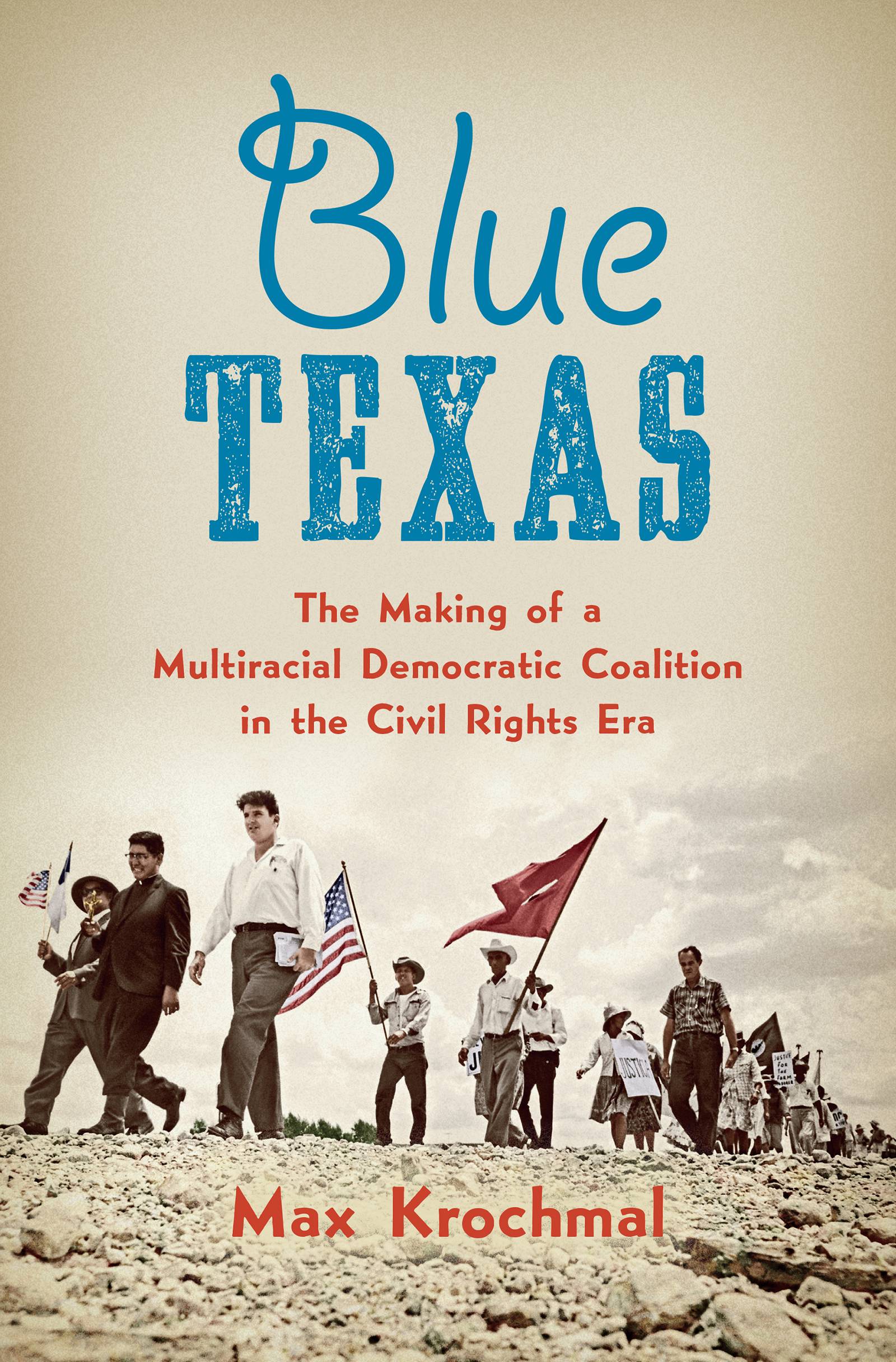 Blue Texas is about the other Texas, a mid-twentieth-century hotbed of community organizing, liberal politics, and civil rights activism. At the ballot box and in the streets, Mexican Americans, African Americans and labor activists demanded not only integration but economic justice, labor rights, and real political power for all. And it worked, permanently changing the racial political order in Texas.
Blue Texas is about the other Texas, a mid-twentieth-century hotbed of community organizing, liberal politics, and civil rights activism. At the ballot box and in the streets, Mexican Americans, African Americans and labor activists demanded not only integration but economic justice, labor rights, and real political power for all. And it worked, permanently changing the racial political order in Texas.In this talk, Max Krochmal goes back to the politics of community organizing in Jim Crow Texas to consider all of our futures in Texas after Trump and after Hurricane Harvey.
-
Book Reading | The Art of Gentrification
The Art of Gentrification
A Book Reading by Cary Cordova
Monday, November 27, 2017 | 2:00 pm | TMH 201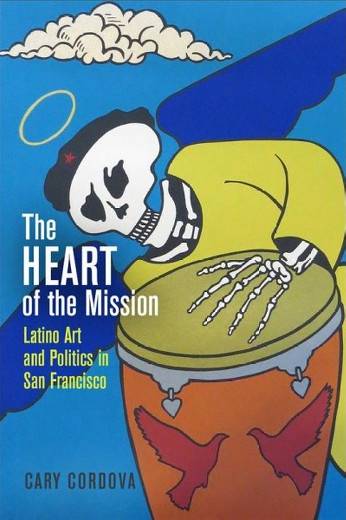 San Francisco has been home to political and cultural movements that have reshaped America. Cary Cordova’s The Heart of the Mission: Latino Art and Politics in San Francisco explores how Latina/o artists, residents and migrants both, produced art that spoke to their vision of themselves, their city, their transnational social movements, to the wealth-driven gentrification, and their American cultures.
San Francisco has been home to political and cultural movements that have reshaped America. Cary Cordova’s The Heart of the Mission: Latino Art and Politics in San Francisco explores how Latina/o artists, residents and migrants both, produced art that spoke to their vision of themselves, their city, their transnational social movements, to the wealth-driven gentrification, and their American cultures. -
Why Does Soccer Matter in Latin America?
Why Does Soccer Matter in Latin America?
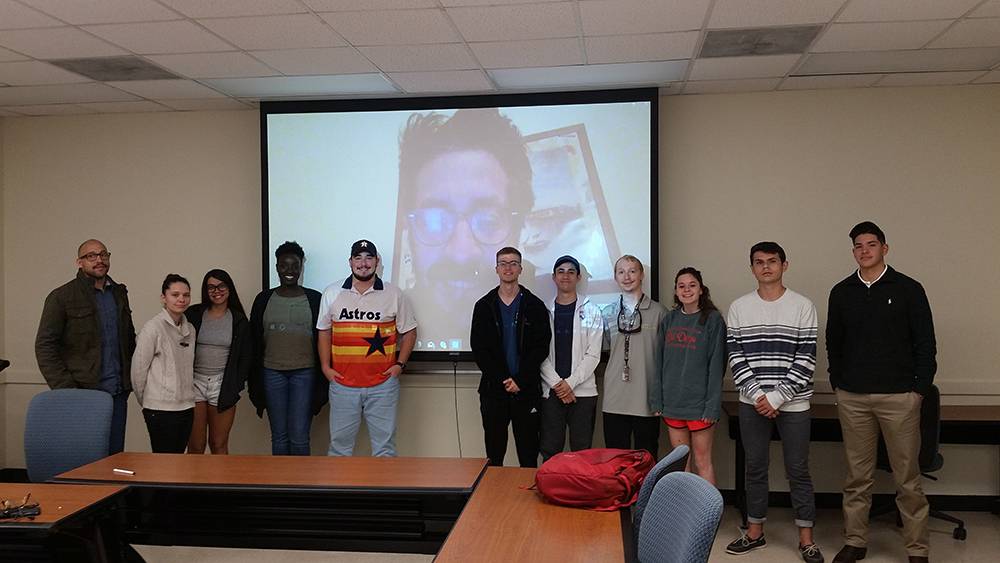 Why does soccer matter in Latin America? Can soccer explain the world? Is soccer part of migration patterns? Why does a game organized in 19th century British universities appeal to people’s free time across the world? Does play matter? Does organizing play into sport make play work? Students at Texas State in the Honors College class Soccer: Local Stories, Global History are exploring these questions with each other and with people in Austin, laying the initial oral history groundwork for how the global sport of futbol gained a strong and democratic foothold in the land of football.
Why does soccer matter in Latin America? Can soccer explain the world? Is soccer part of migration patterns? Why does a game organized in 19th century British universities appeal to people’s free time across the world? Does play matter? Does organizing play into sport make play work? Students at Texas State in the Honors College class Soccer: Local Stories, Global History are exploring these questions with each other and with people in Austin, laying the initial oral history groundwork for how the global sport of futbol gained a strong and democratic foothold in the land of football.
-
-
2016 News and Events
-
Book Reading | Historias de Éxito within Mexican Communities
Historias de Éxito within Mexican Communities: Silenced Voices
A Book Reading by Octavio Pimentel
January 27, 2016 | Comal 116 | 3:00 p.m. reception, 3:30 p.m. reading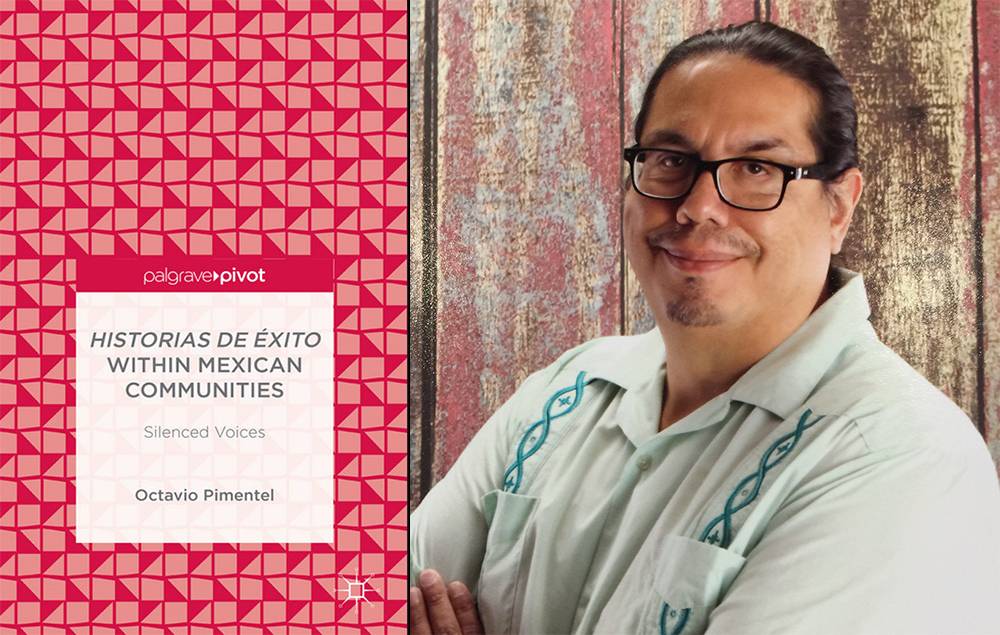 Octavio Pimentel joined the Department of English at Texas State University in 2005. He has taught various classes in the rhetoric and composition field including first-year composition courses, advanced composition, technical writing, and various critical graduate courses that encompass issues of minority languages, rhetoric and writing. Critically trained in rhetoric/writing and education, Dr. Pimentel combines both fields, while addressing critical issues of minoritized individuals in the composition field. Dr. Pimentel has various scholarly publications including two books: Historias de Éxito within Mexican Communities: Silenced Voices, Palgrave Macmillan, 2015 and Communicating Race, Ethnicity, and Identity in Technical Communication (nominated for book of the year in Technical Communication) Baywood Press, 2014. Currently, Dr. Pimentel is working on his third book, Racial Shorthand: Coded Discrimination Contested in Social Media, which is currently under review with Computers and Composition Digital Press.
Octavio Pimentel joined the Department of English at Texas State University in 2005. He has taught various classes in the rhetoric and composition field including first-year composition courses, advanced composition, technical writing, and various critical graduate courses that encompass issues of minority languages, rhetoric and writing. Critically trained in rhetoric/writing and education, Dr. Pimentel combines both fields, while addressing critical issues of minoritized individuals in the composition field. Dr. Pimentel has various scholarly publications including two books: Historias de Éxito within Mexican Communities: Silenced Voices, Palgrave Macmillan, 2015 and Communicating Race, Ethnicity, and Identity in Technical Communication (nominated for book of the year in Technical Communication) Baywood Press, 2014. Currently, Dr. Pimentel is working on his third book, Racial Shorthand: Coded Discrimination Contested in Social Media, which is currently under review with Computers and Composition Digital Press. -
Arcadia: The New Chican@
Arcadia: The New Chican@
February 11, 2016 | Brazos Hall | 12:00 pm reception | 12:30 pm program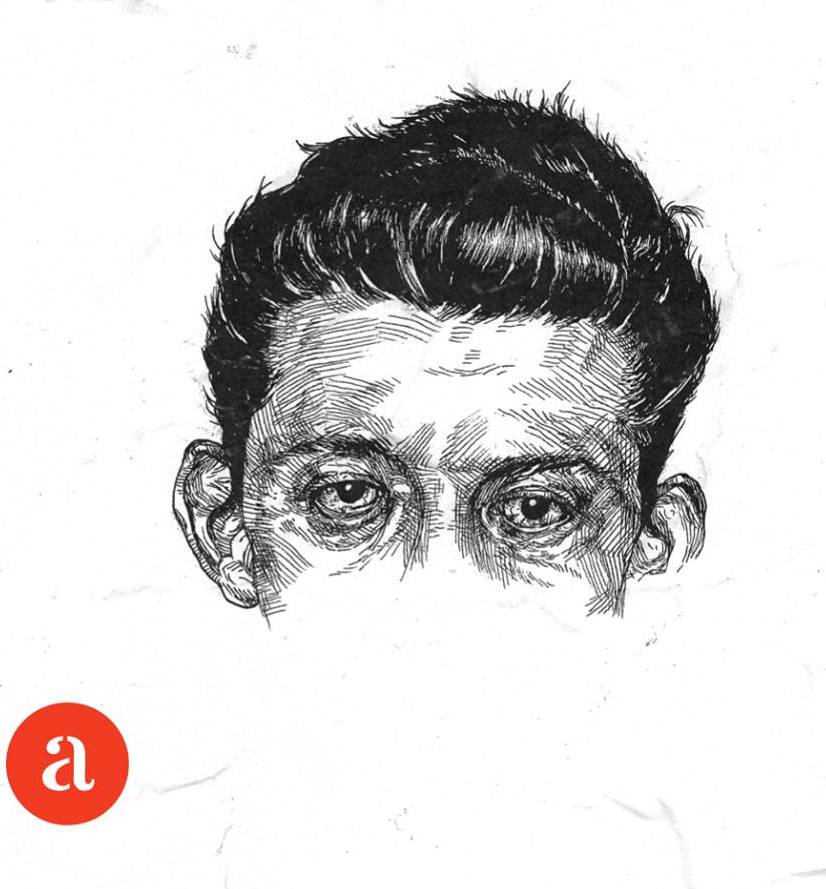 The Center for the Study of the Southwest invites you to attend Arcadia: The New Chican@. This event hosts writers Ito Romo, Luke Villafranca, Octavio Quintanilla, and Sarah Cortez, and artist Vincent Valdez, all of whom are published in the upcoming issue of Arcadia Magazine. Arcadia welcomes eclectic art and literature "regardless of its origin…that speaks to and moves the heart and the head, regardless of form, medium, or place of birth." This special issue honors Mexican and Mexican American heritage through art, poetry, and prose. We hope you join us as we celebrate the shared stories of the borderlands in the twenty-first century.
The Center for the Study of the Southwest invites you to attend Arcadia: The New Chican@. This event hosts writers Ito Romo, Luke Villafranca, Octavio Quintanilla, and Sarah Cortez, and artist Vincent Valdez, all of whom are published in the upcoming issue of Arcadia Magazine. Arcadia welcomes eclectic art and literature "regardless of its origin…that speaks to and moves the heart and the head, regardless of form, medium, or place of birth." This special issue honors Mexican and Mexican American heritage through art, poetry, and prose. We hope you join us as we celebrate the shared stories of the borderlands in the twenty-first century. -
The Mexican Revolution on the U.S. Border
The Mexican Revolution on the U.S. Border
Wednesday, February 15, 2016 | Flowers Hall 230 | Doors open at 5:30 pm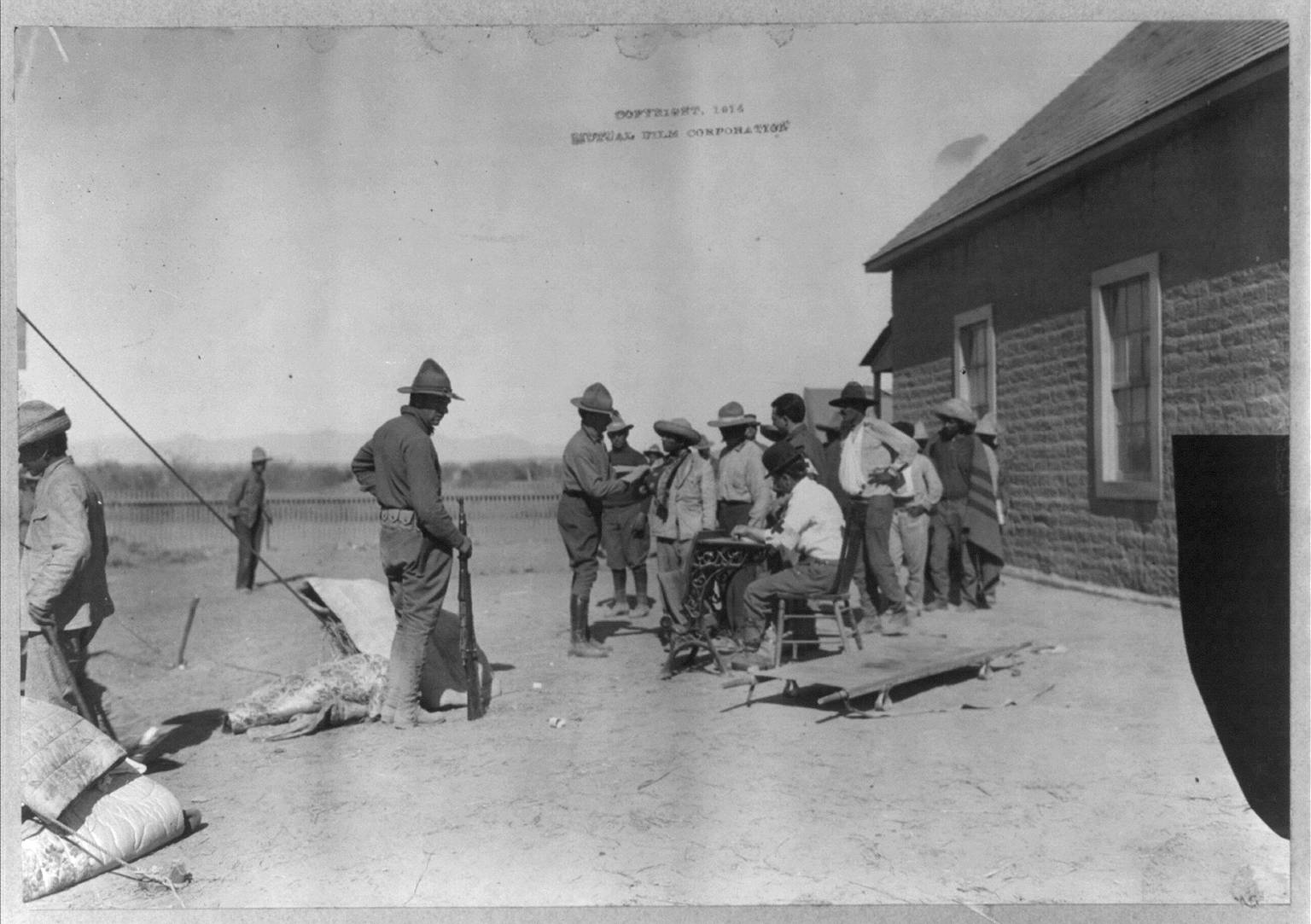 Dr. Paul Hart serves as moderator for a special panel exploring the impact of the Mexican Revolution on U.S. immigrant and ethnic communities in the Southwest. Dr. Andrew Urban explores the plight of Chinese immigrants who worked for Gen. John Pershing’s Punitive Expedition, and Dr. Raúl Ramos examines the roles played by Americans of Mexican heritage in the civil war in their ancestral homeland.
Dr. Paul Hart serves as moderator for a special panel exploring the impact of the Mexican Revolution on U.S. immigrant and ethnic communities in the Southwest. Dr. Andrew Urban explores the plight of Chinese immigrants who worked for Gen. John Pershing’s Punitive Expedition, and Dr. Raúl Ramos examines the roles played by Americans of Mexican heritage in the civil war in their ancestral homeland. -
At a Crossroads: The Study of the Southwest in the New Millennium
At a Crossroads: The Study of the Southwest in the New Millennium
Thursday, February 16, 2016 | Brazos Hall | 3:30 pm, light refreshments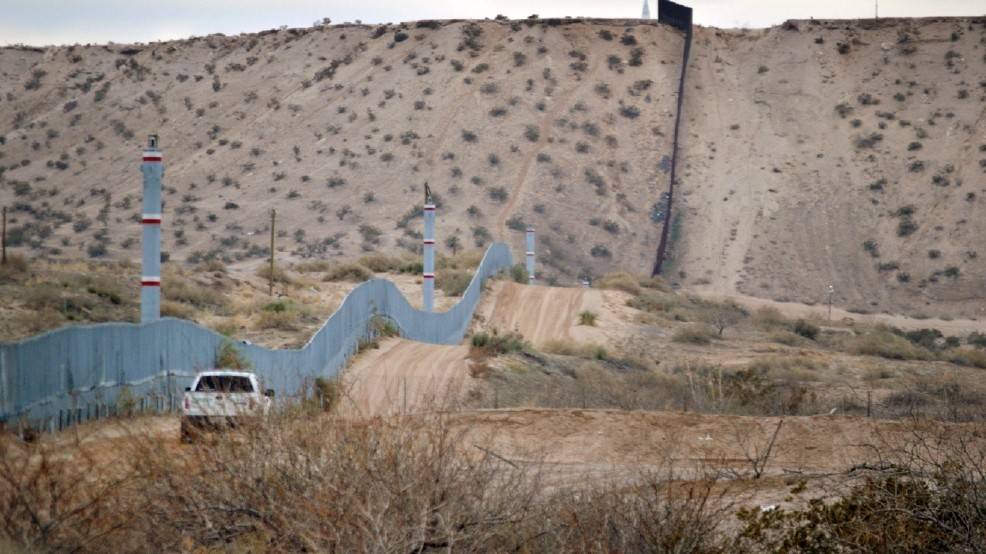
Photo: Russell Contreras, Sunland Park, NM A dialogue on politics, culture, migration, war, the state, and slavery: How can experiences in the Southwest illuminate our understanding of American history?
Panelists:
Andrés Reséndez, Professor of History, University of California Davis
Joaquín Rivaya Martínez, Associate Professor, Texas State University
John Mckiernan-Gonzalez, Associate Professor, Texas State UniversityModerator:
Jesús F. de la Teja, Regents’ Professor, Director of the Center for the Study of the Southwest, Texas State University -
CSSW Exhibit | Iglesias y Camposantos: Sacred Spaces for Mexican Catholics in San Marcos, Texas
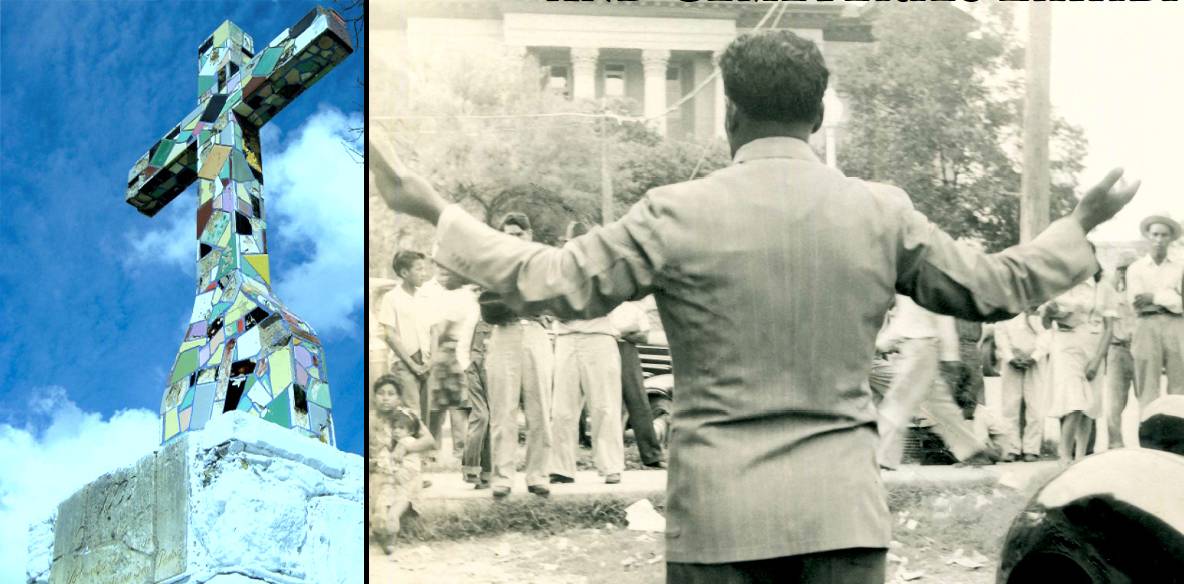 Conducted over several years, the project, led by Dr. Ana M. Juárez (Department of Anthropology), involved collaboration between students, faculty and others at Texas State University, local agencies and institutions, and most importantly the local Mexican American community who generously shared the stories of their lives.
Conducted over several years, the project, led by Dr. Ana M. Juárez (Department of Anthropology), involved collaboration between students, faculty and others at Texas State University, local agencies and institutions, and most importantly the local Mexican American community who generously shared the stories of their lives.This photographic exhibit uses oral history interviews and historical photos and documents to explore the culture and heritage of Mexican American Catholic churches, cemeteries, and funerary practices in San Marcos, Texas. Originally serving as a mission church for the Mexican community in central Texas, the parish soon tried to Americanize during the first half of the twentieth century. Following World War II and the Civil Rights Movement, Mexican Americans were able to establish a small chapel that embraced their Spanish language and Mexican Catholic traditions.
An opening reception will be held Tuesday, February 16 in Brazos Hall, 5:00pm - 6:30 pm.
-
Opportunity and Adaptation across the US-Mexico Borderlands
Opportunity and Adaptation across the US-Mexico Borderlands
February 27, 2016 | 9:30am - 4:30pm | Flowers Hall, Room 230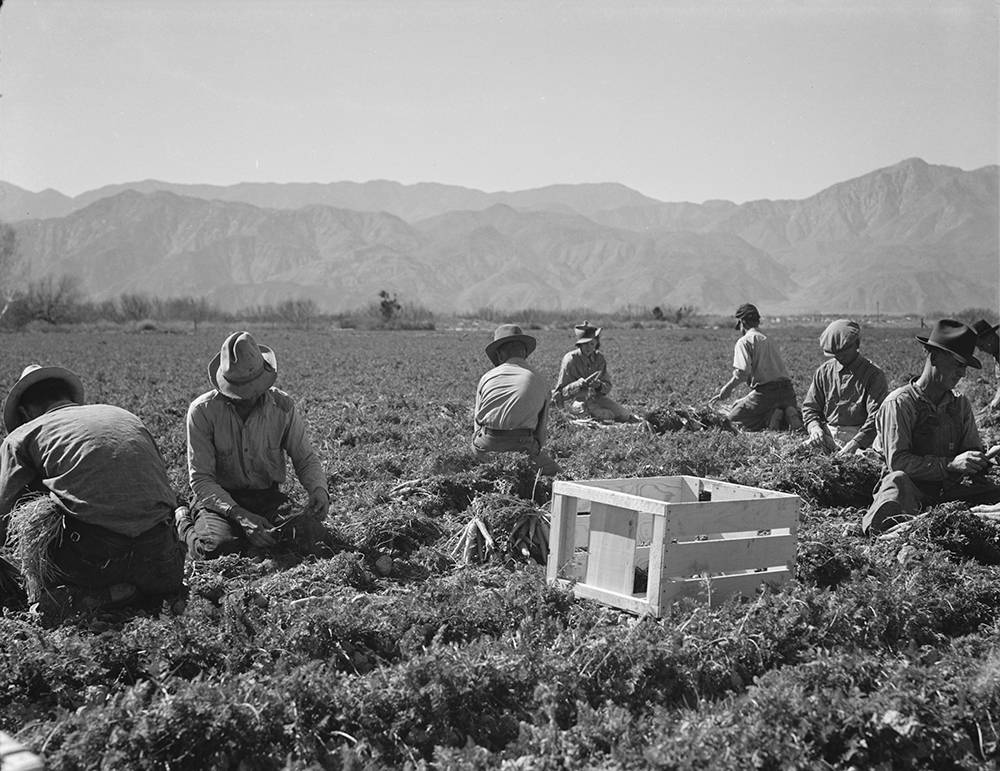 International borders are the (often invisible) boundaries where the distinct political jurisdictions, laws, and cultural traditions of two adjacent countries supposedly end. In practice, however, borderlands are spaces where political jurisdictions are often ignored, laws are difficult to enforce, and cultural traditions merge, which creates challenges and opportunities for the people and the authorities on either side of the border, particularly when the border shifts. This symposium explores some of the ways in which the residents of the US-Mexico Borderlands have adapted to the changing circumstances of the frontier over the last two centuries. Presenters will discuss how interethnic cooperation and marriage, the legal and illegal movement of people and goods, labor unionism, and other strategies have permitted border dwellers to overcome the hardships and exploitation of border life, and, in some cases, to thrive.
International borders are the (often invisible) boundaries where the distinct political jurisdictions, laws, and cultural traditions of two adjacent countries supposedly end. In practice, however, borderlands are spaces where political jurisdictions are often ignored, laws are difficult to enforce, and cultural traditions merge, which creates challenges and opportunities for the people and the authorities on either side of the border, particularly when the border shifts. This symposium explores some of the ways in which the residents of the US-Mexico Borderlands have adapted to the changing circumstances of the frontier over the last two centuries. Presenters will discuss how interethnic cooperation and marriage, the legal and illegal movement of people and goods, labor unionism, and other strategies have permitted border dwellers to overcome the hardships and exploitation of border life, and, in some cases, to thrive. -
Somewhere in the Southwest | Severo Perez
Somewhere in the Southwest
Severo Perez Exhibit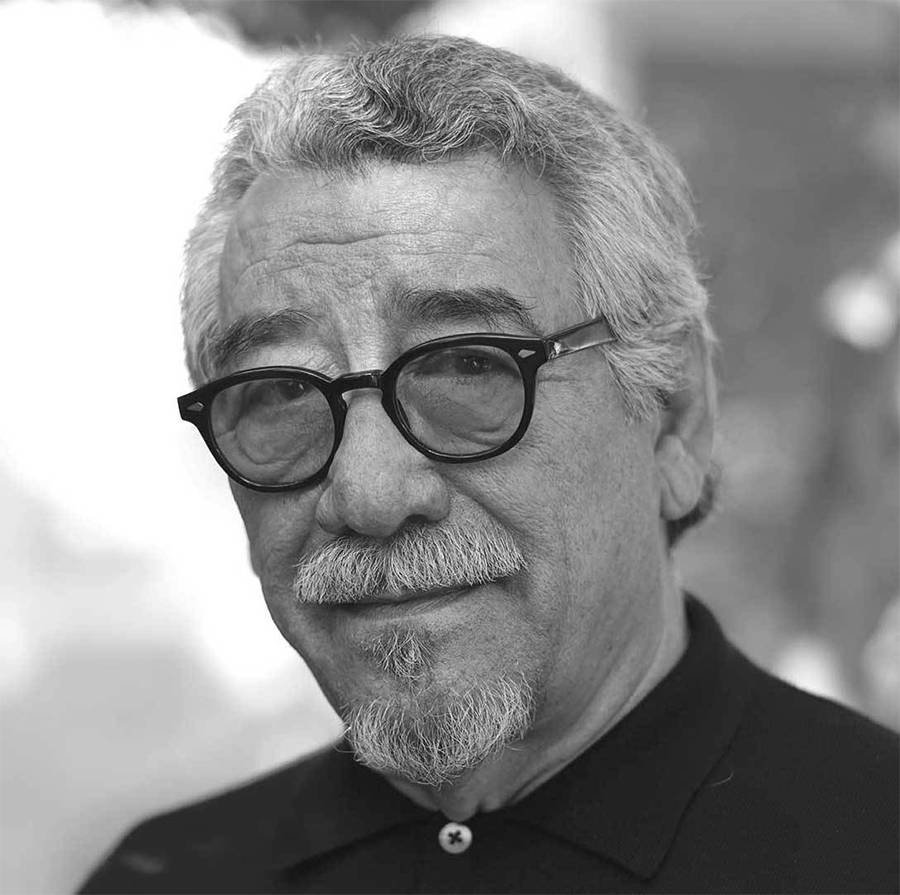
Wittliff Collections highlights the work of the Center for the Study of the Southwest Artist in Residence, Severo Perez.
-
Vaqueros, Cowboys, and Cowgirls: Texas Cattle Trails to the World
Vaqueros, Cowboys, and Cowgirls: Texas Cattle Trails to the World
History Symposium | Fort Worth Library | April 2, 2016 | 10:30 am–4 pm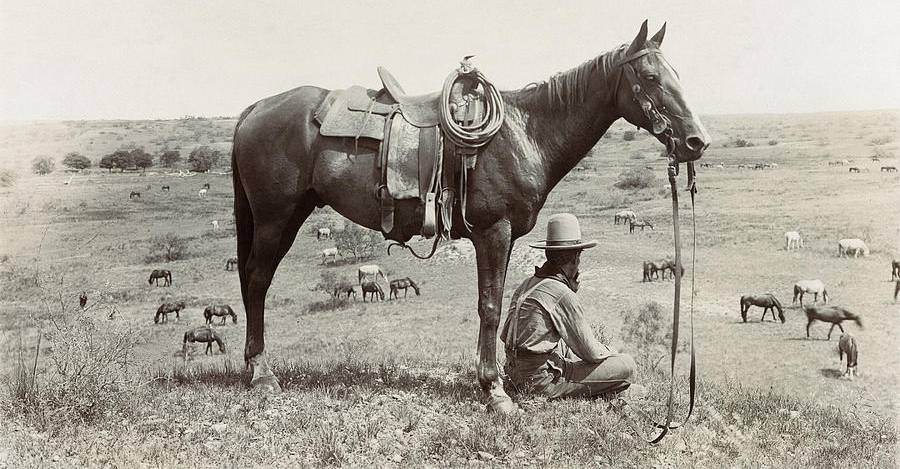 Join historians Frank de la Teja, Byron Price, Joyce Roach, and Richard Slatta for a look at cattle trail history in Texas and around the world. To request tickets, visit the Fort Worth Library Lonesome Dove Trail page.
Join historians Frank de la Teja, Byron Price, Joyce Roach, and Richard Slatta for a look at cattle trail history in Texas and around the world. To request tickets, visit the Fort Worth Library Lonesome Dove Trail page. -
Children of GIANT
Children of GIANT
April 5, 2016 | LBJ Student Center Teaching Theater
5:30pm Reception | 6:00 pm Program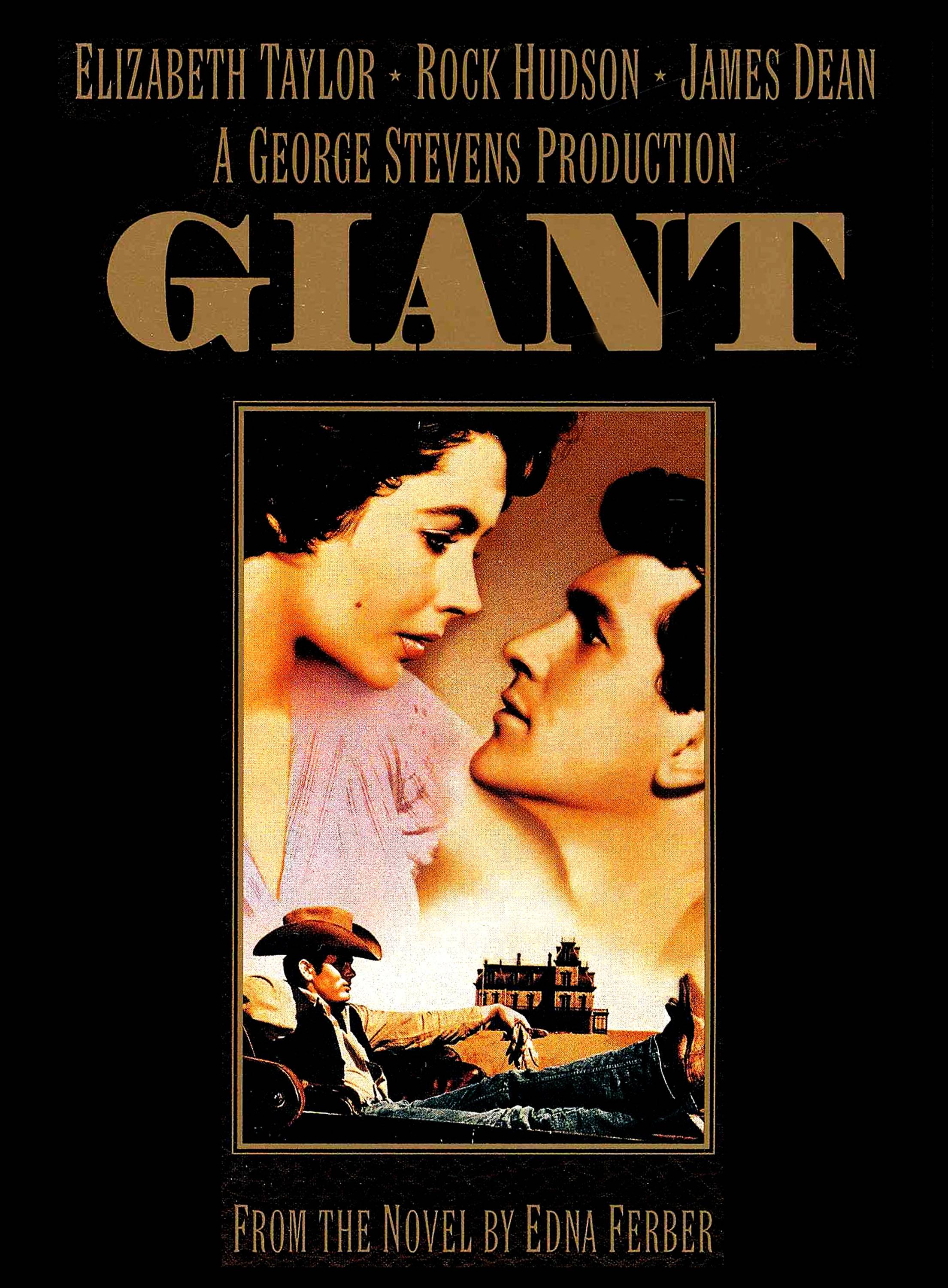 The Center for the Study of the Southwest presents Children of GIANT, a "story of the people who were there, many of them children, who witnessed the making of GIANT, not knowing that it would become a lasting chronicle of the very lives they were living in that summer of 1955." Filmmaker, Hector Galán, will lead a discussion following the film.
The Center for the Study of the Southwest presents Children of GIANT, a "story of the people who were there, many of them children, who witnessed the making of GIANT, not knowing that it would become a lasting chronicle of the very lives they were living in that summer of 1955." Filmmaker, Hector Galán, will lead a discussion following the film. -
Tino Villanueva
Tino Villanueva
April 12, 2016 | Reception 5:30 | Program 6 pm
Centro Cultural Hispano de San Marcos (211 Lee Street)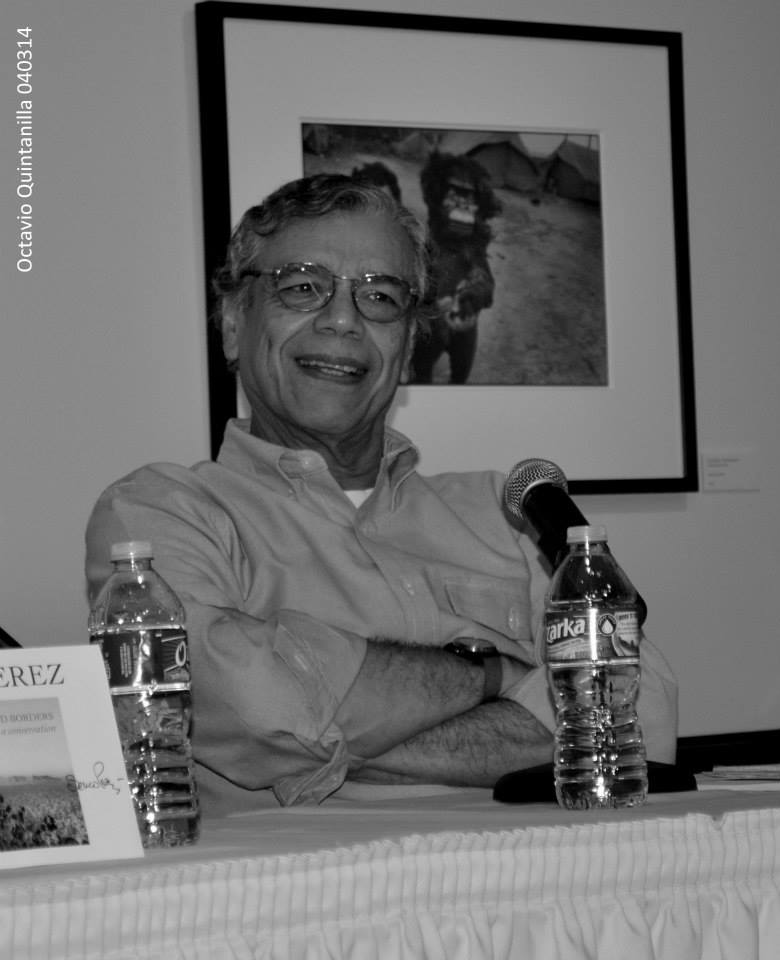 Join us for a reading and conversation with Tino Villanueva. Dr. Villanueva has had a diversity of work experiences before his formal college education, ranging from migrant worker to assembly-line construction of furniture here in San Marcos, where he was born and raised. After two years as an Army supply clerk in the Panama Canal Zone, Villanueva returned and attended Texas State (then Southwest Texas State) where he received his B.A. in Spanish and English. In addition to currently serving as Preceptor in Spanish at Boston University, Villanueva is the founder of Imagine Publishers, Inc., and editor of Imagine: International Chicano Poetry Journal. He is the author of Hay Otra Voz Poems, Scenes from the Movie GIANT, Shaking Off the Dark, Crónica de mis años peores, and So Spoke Penelope.
Join us for a reading and conversation with Tino Villanueva. Dr. Villanueva has had a diversity of work experiences before his formal college education, ranging from migrant worker to assembly-line construction of furniture here in San Marcos, where he was born and raised. After two years as an Army supply clerk in the Panama Canal Zone, Villanueva returned and attended Texas State (then Southwest Texas State) where he received his B.A. in Spanish and English. In addition to currently serving as Preceptor in Spanish at Boston University, Villanueva is the founder of Imagine Publishers, Inc., and editor of Imagine: International Chicano Poetry Journal. He is the author of Hay Otra Voz Poems, Scenes from the Movie GIANT, Shaking Off the Dark, Crónica de mis años peores, and So Spoke Penelope. -
CSSW Exhibit | Road to Abilene
Road to Abilene
Summer 2016 Exhibit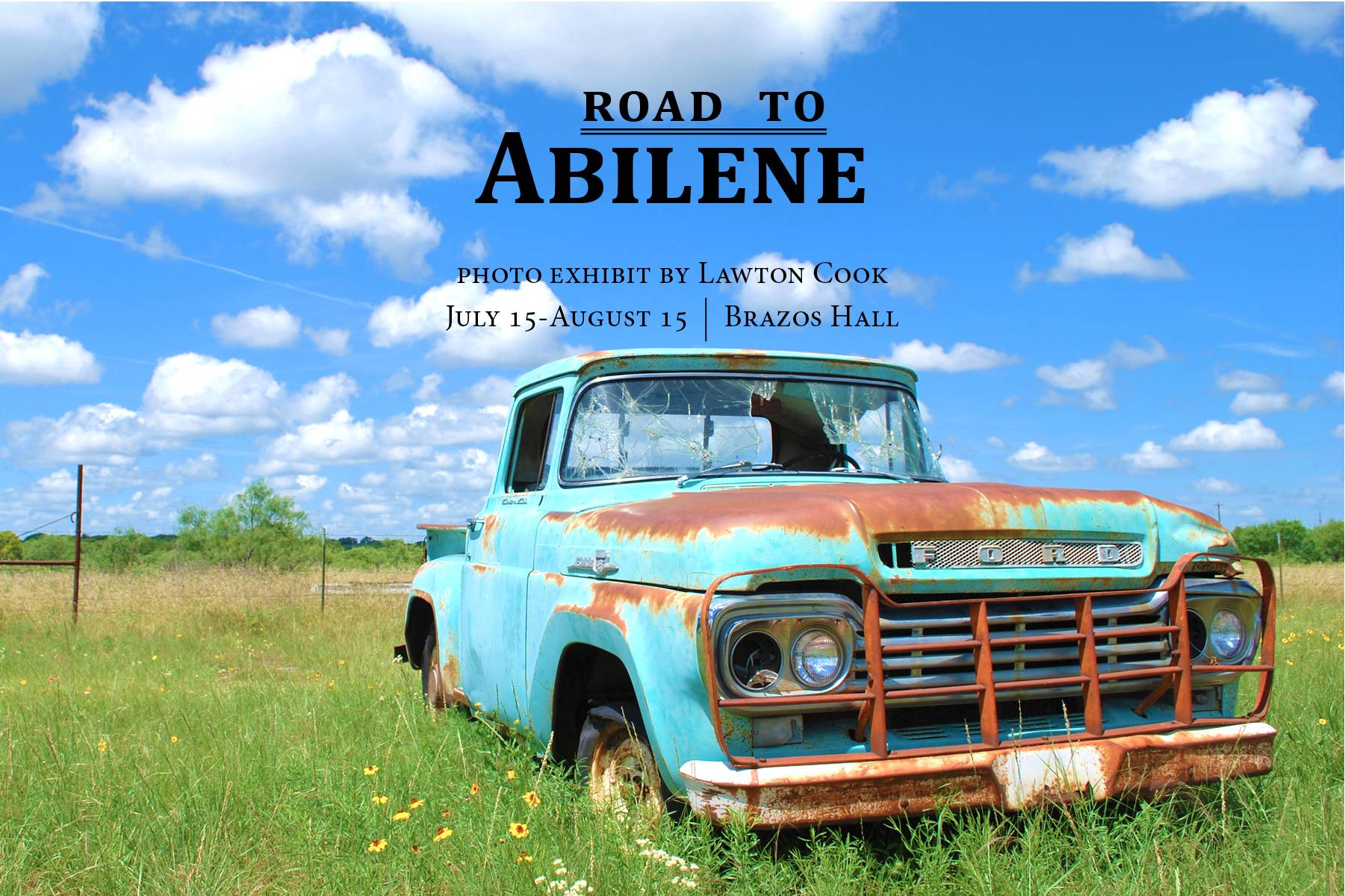 The photos in this exhibit were taken by Lawton Cook, a recent graduate of the MFA program at Texas State, in preparation for writing his thesis--a novel that looks at the effects of urbanization on rural life in Texas.
The photos in this exhibit were taken by Lawton Cook, a recent graduate of the MFA program at Texas State, in preparation for writing his thesis--a novel that looks at the effects of urbanization on rural life in Texas. -
Bless Me, Ultima
Bless Me, Ultima
September 8, 2016 | Alkek Teaching Theatre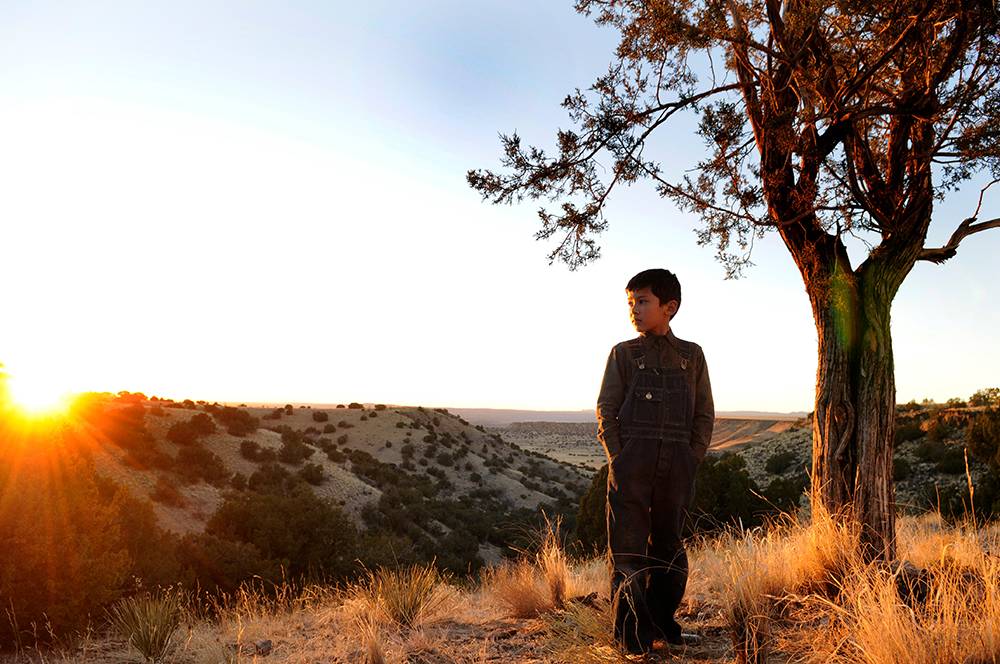 Bless Me, Ultima, a film by Carl Franklin based on the Rudolfo Anaya’s bestselling novel will be screened at the Alkek Teaching Theatre. The film will be accompanied by speaker Dr. Gabriel Meléndez, Distinguished Professor of American Studies at the University of New Mexico.
Bless Me, Ultima, a film by Carl Franklin based on the Rudolfo Anaya’s bestselling novel will be screened at the Alkek Teaching Theatre. The film will be accompanied by speaker Dr. Gabriel Meléndez, Distinguished Professor of American Studies at the University of New Mexico. -
CSSW-Sponsored Symposium now a Book
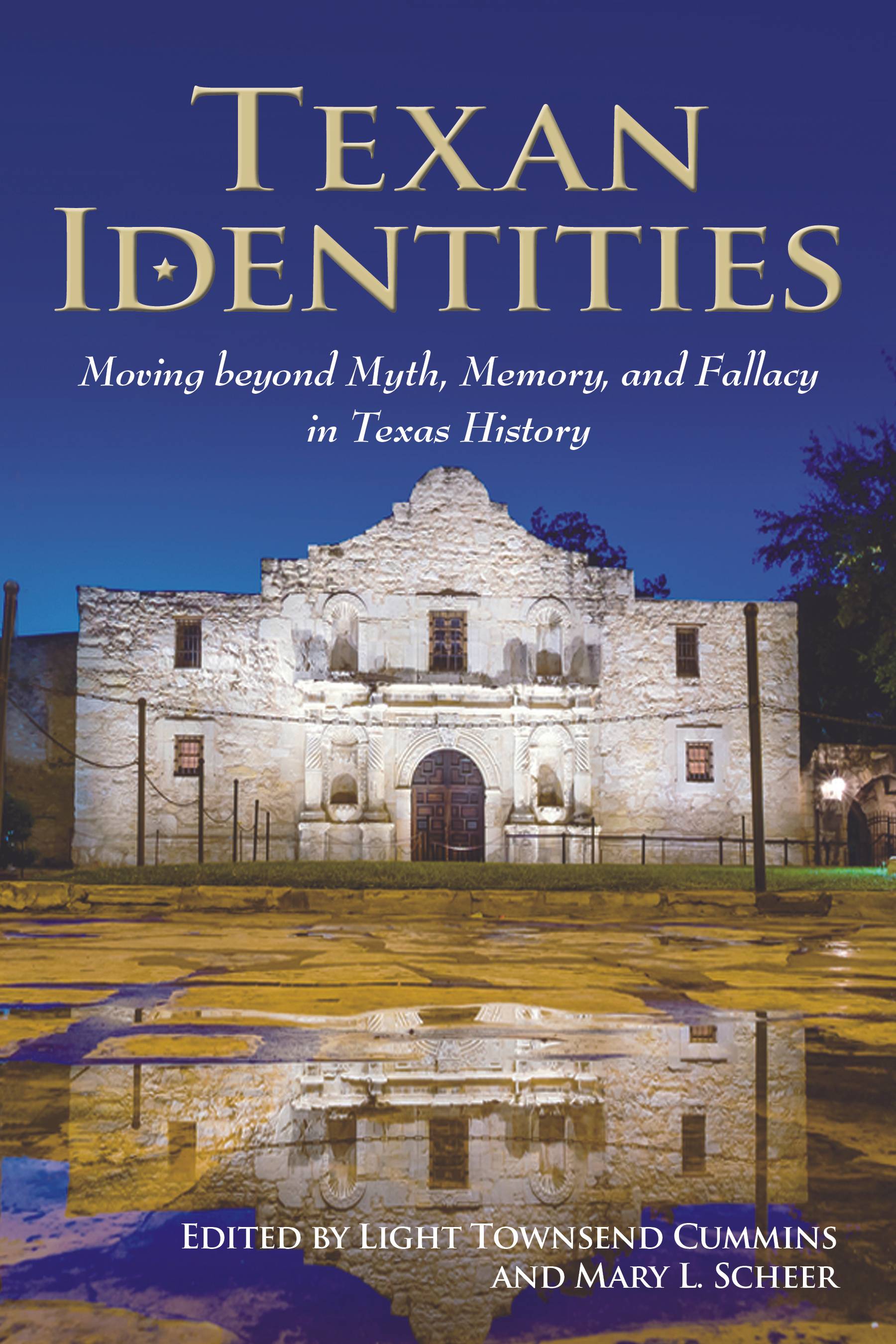 In January 2015 the center hosted a symposium that brought back to campus MA alumni from the Department of History, all of whom work on Texas history. That gathering led to a collection of essays, Texan Identities: Moving beyond Myth, Memory, and Fallacy in Texas History, published by the University of North Texas Press with the generous support Texas State University. This is the second collaboration of this type, following the 2014 symposium “Lone Star Unionism and Dissent” that led to the University of Oklahoma Press collection, Lone Star Unionism, Dissent, and Resistance: Other Sides of Civil War Texas.
In January 2015 the center hosted a symposium that brought back to campus MA alumni from the Department of History, all of whom work on Texas history. That gathering led to a collection of essays, Texan Identities: Moving beyond Myth, Memory, and Fallacy in Texas History, published by the University of North Texas Press with the generous support Texas State University. This is the second collaboration of this type, following the 2014 symposium “Lone Star Unionism and Dissent” that led to the University of Oklahoma Press collection, Lone Star Unionism, Dissent, and Resistance: Other Sides of Civil War Texas. -
The Southwest in Film Series: Selena
The Southwest in Film Series
Selena
September 15, 2016 | Cuauhtemoc Hall, 1100 Patton Street | 6:00 pm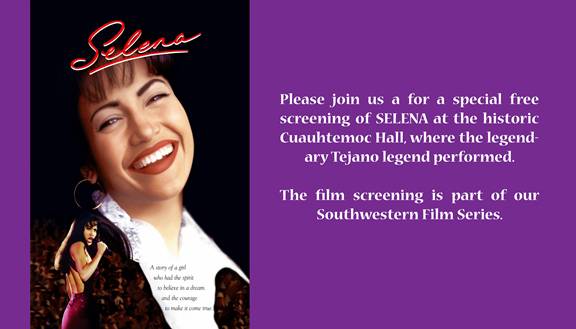 Please join us a for a special free screening of SELENA at the historic Cuauhtemoc Hall, where the legendary Tejano legend performed. Timed w/ Fiestas Patrias (Independence Day in Mexico), the SELENA screening will feature free pizza, live accordion music, and a raffle.
Please join us a for a special free screening of SELENA at the historic Cuauhtemoc Hall, where the legendary Tejano legend performed. Timed w/ Fiestas Patrias (Independence Day in Mexico), the SELENA screening will feature free pizza, live accordion music, and a raffle.Also, winners of the Selena essay contest -- in the elementary, middle & high school levels -- will be invited to read their original writings, reflecting on the words of Selena concerning the value of learning a second language & embracing one’s cultural origins:
“I feel very proud to be Mexican. I didn’t have the opportunity to learn Spanish when I was a girl, but it’s never too late to get in touch with your roots.”Sponsored by:
the Center for the Study of the Southwest, Centro Cultural Hispano de San Marcos, La Sociedad Cuauhtemoc, and San Marcos Cinema Club -
The Head of Joaquin Murrieta
The Head of Joaquin Murrieta
September 22, 2016 | UCM | 11 a.m.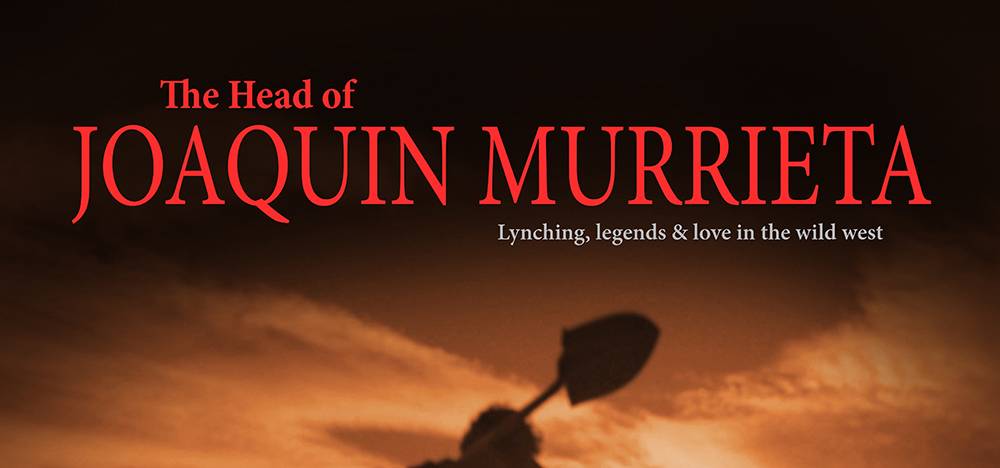 John J. Valadez will be screening and discussing his documentary, The Head of Joaquin Murrieta, in which the author chronicles his search for the remains of Joaquin Murrieta, a legendary Mexican outlaw.
John J. Valadez will be screening and discussing his documentary, The Head of Joaquin Murrieta, in which the author chronicles his search for the remains of Joaquin Murrieta, a legendary Mexican outlaw. -
Ricardo Ainslie: The Mark of War
Ricardo Ainslie: The Mark of War
October 5, 2016 | 7:00 p.m. | Alkek Teaching Theater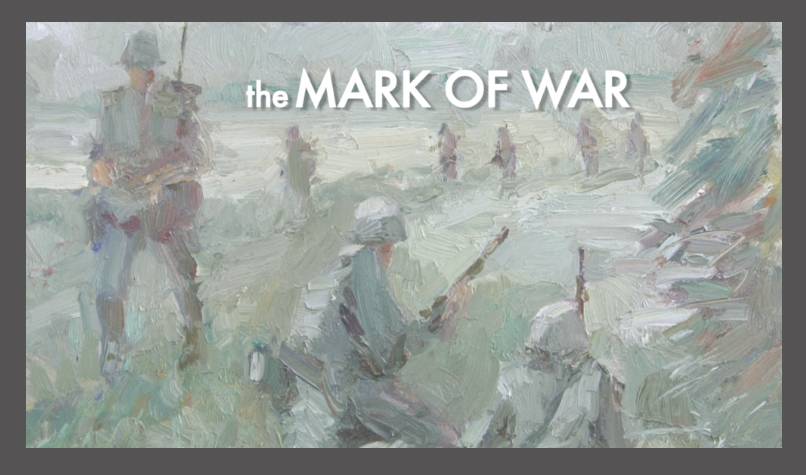 Ricardo Ainslie is nearing completion of a documentary film, The Mark of War, in which he chronicles the experiences of seven men who fought in the Vietnam War. He will be screening a rough cut of the film and will discuss the documentary process as well as what he has learned about the impact of war on the lives of the individuals who endure it.
Ricardo Ainslie is nearing completion of a documentary film, The Mark of War, in which he chronicles the experiences of seven men who fought in the Vietnam War. He will be screening a rough cut of the film and will discuss the documentary process as well as what he has learned about the impact of war on the lives of the individuals who endure it. -
Building Bridges, Not Walls
Building Bridges, Not Walls
Tuesday, Oct. 11, 2016 | Wittliff Collections, Alkek Library 7th Floor
Reception: 5:30pm | Presentation: 5:45pm | Book Signing: 6:30pm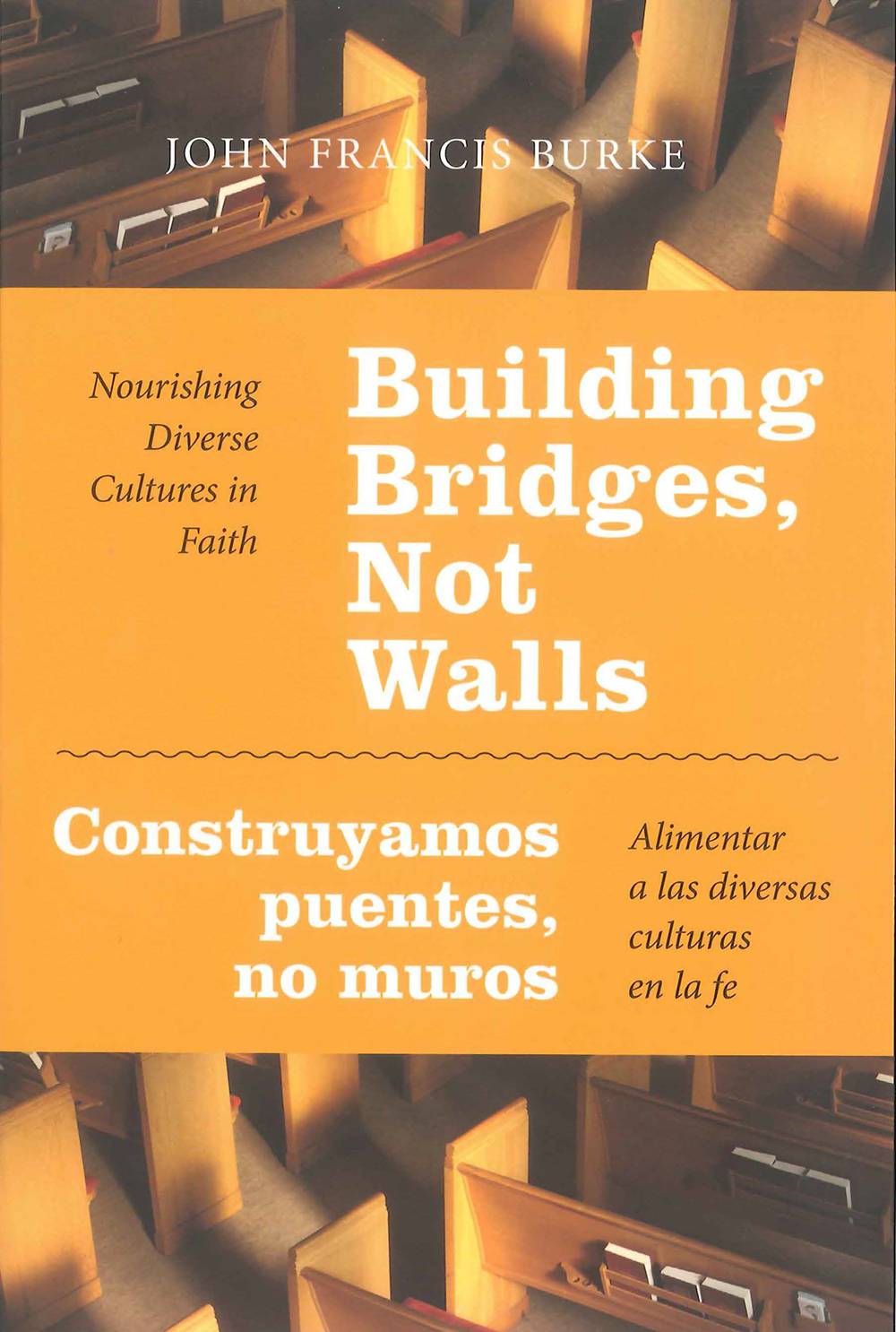 Join us for a conversation with scholar and author, John Francis Burke. Scholar and author of political science and religious studies, Dr. Burke currently teaches at Trinity University, and is the author of Building Bridges, Not Walls: Nourishing Divers Cultures in Faith and Mestizo Democracy: The Politics of Crossing Borders.
Join us for a conversation with scholar and author, John Francis Burke. Scholar and author of political science and religious studies, Dr. Burke currently teaches at Trinity University, and is the author of Building Bridges, Not Walls: Nourishing Divers Cultures in Faith and Mestizo Democracy: The Politics of Crossing Borders. -
The Southwest in Film Series: Monsters and Motels: Frontier Horror and the 21st Century
The Southwest in Film Series
Monsters and Motels: Frontier Horror and the 21st Century
Thursday, October 13 | 6:45pm | Alkek Teaching Theater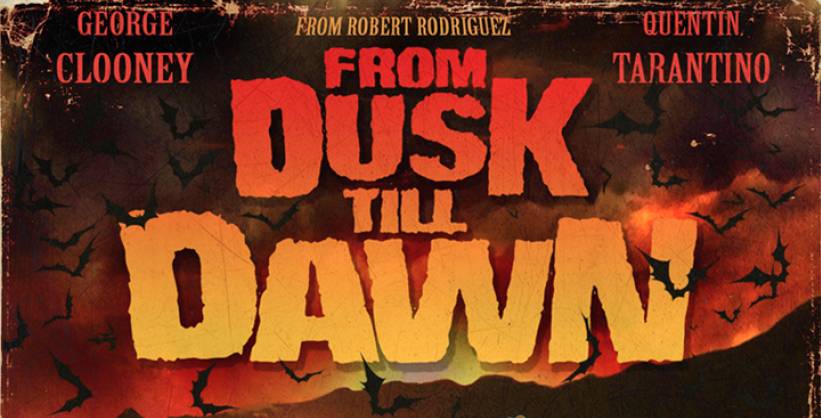 Join us for “Monsters and Motels: Frontier Horror and the 21st Century” presented by Dr. Monica Montelongo Flores, Assistant Professor of Multiethnic American Literature in the department of English at California State University, Stanislaus.
Join us for “Monsters and Motels: Frontier Horror and the 21st Century” presented by Dr. Monica Montelongo Flores, Assistant Professor of Multiethnic American Literature in the department of English at California State University, Stanislaus.A screening of From Dusk til Dawn to follow.
-
Looking Back On How Texas History Taught
CSSW director Frank de la Teja was one of a handful of historians of Texas asked by Austin public radio station KUT to talk about how a 1950s textbook presented the state’s history to schoolchildren.
-
CSSW Somewhere in the Southwest | Marc Simmons Exhibit
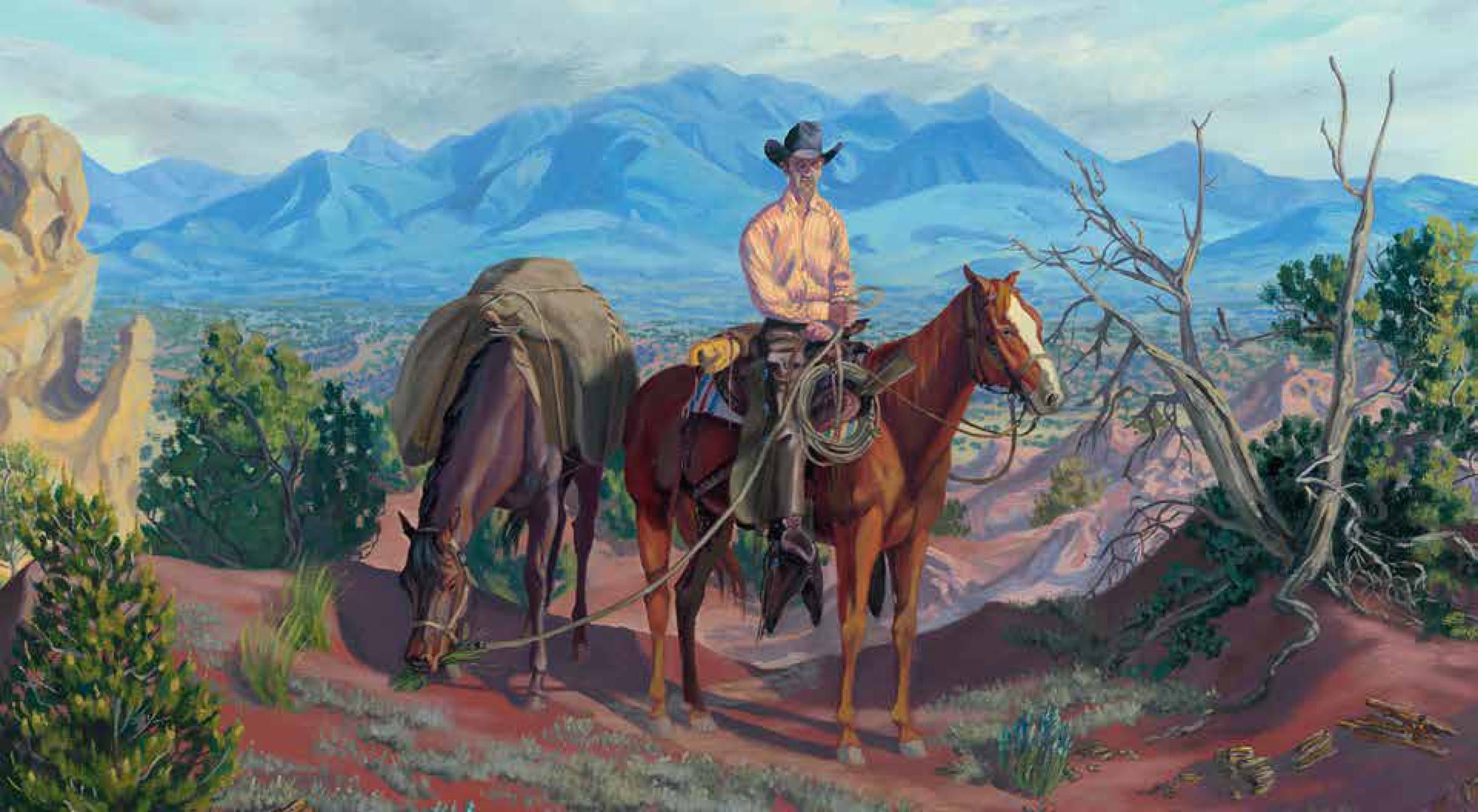 The Wiffliff Collections Presents:
The Wiffliff Collections Presents:Marc Simmons:
Southwestern Treasure from the Maverick HistorianOn exhibit through December 16, 2016
-
CSSW Exhibit | Black Theater in Texas: Stages of Struggle and Celebration
Black Theater in Texas: Stages of Struggle and Celebration
Opening Reception: Monday, October 17, 2016 | Time: 5:00 pm | Brazos Hall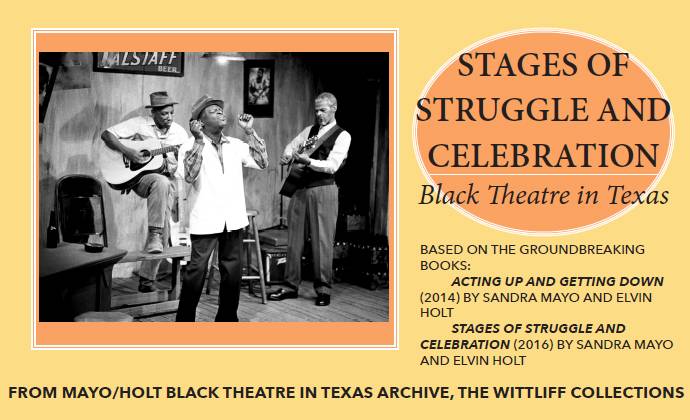 This exhibition highlights the extensive groundbreaking research developed during the production of two new historically and artistically related publications written by Dr. Sandra Mayo and Dr. Elvin Holt.
This exhibition highlights the extensive groundbreaking research developed during the production of two new historically and artistically related publications written by Dr. Sandra Mayo and Dr. Elvin Holt.The exhibit will run through December 15, 2016.
-
7th International Colloquium on Northeastern Mexico and Texas
Somewhere in the Southwest
International Colloquium on Northeastern Mexico and Texas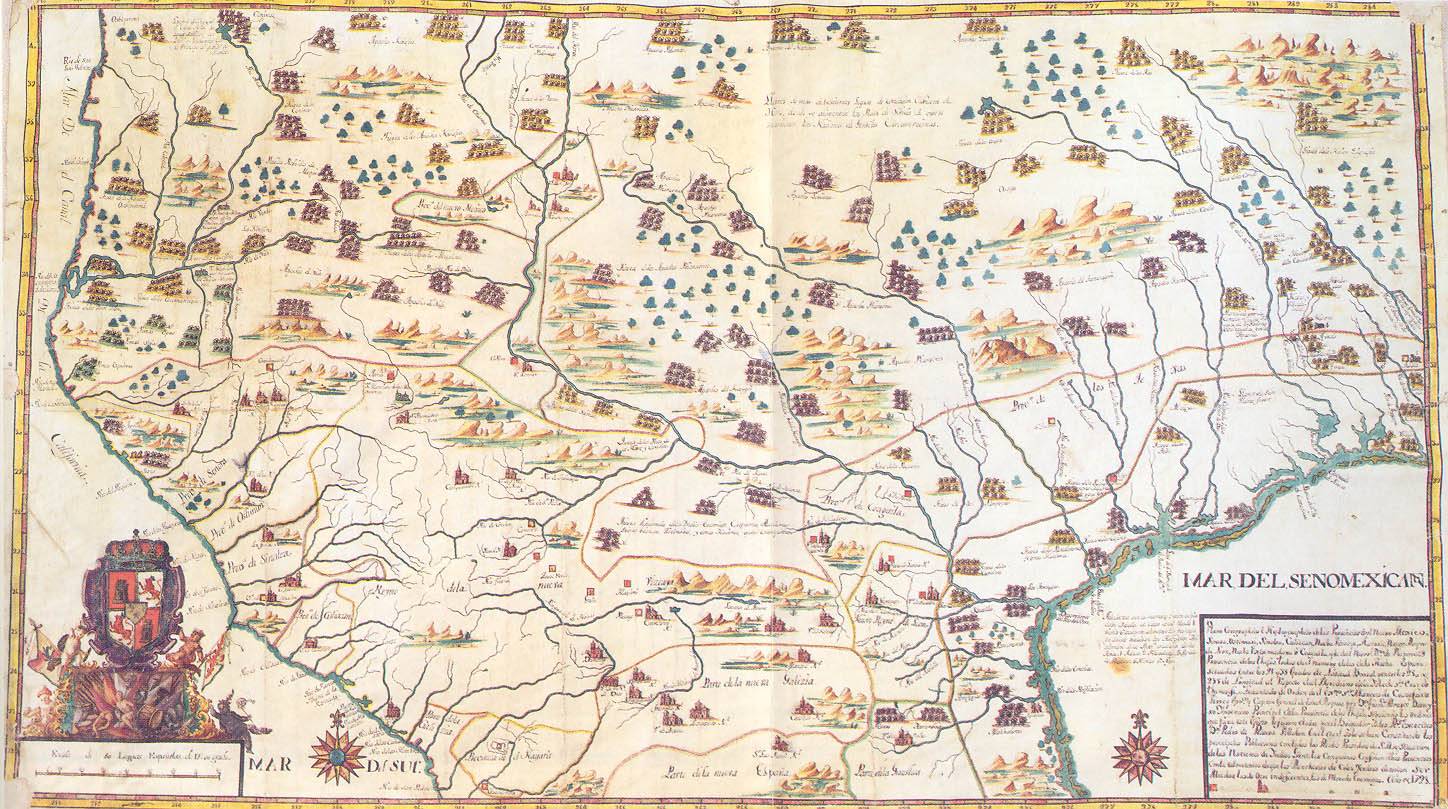 A call for papers for the 7th International Colloquium on Northeastern Mexico and Texas has been issued. The colloquium will be be held October 19-21, 2016, in Monterrey, Nuevo Leon, Mexico.
A call for papers for the 7th International Colloquium on Northeastern Mexico and Texas has been issued. The colloquium will be be held October 19-21, 2016, in Monterrey, Nuevo Leon, Mexico. -
CSSW director Interviewed on BBC
Frank de la Teja was interviewed for a segment, “Hispanic in Texas,” part of a BBC World Service Business Daily series on the fortunes of the rapidly expanding Hispanic and Latino community. He commented regarding historical perspectives on immigration to the Lone Star State.
-
The Southwest in Film Series: La Bamba
The Southwest in Film Series Presents
La Bamba
Thursday, October 20 | 7:00 pm | Brazos Hall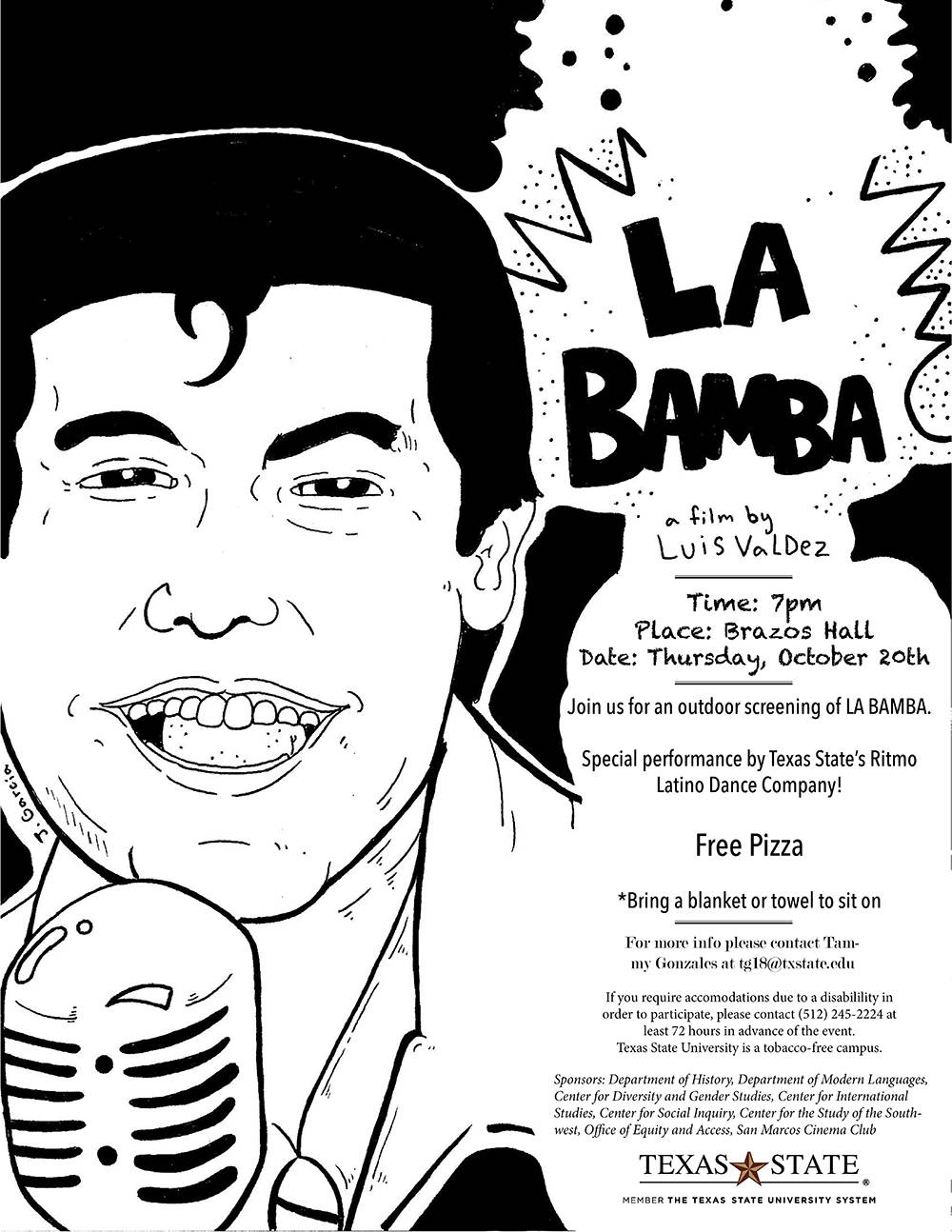 Join us for a free screening of La Bamba, the film based on the life of Richard Steven Valenzuela a.k.a Ritchie Valens. This second collaboration with the San Marcos Cinema Club will be another unforgettable event. We’re excited to have Texas State’s Ritmo Latino Dance Company to start the night off with a special dance performance!
Join us for a free screening of La Bamba, the film based on the life of Richard Steven Valenzuela a.k.a Ritchie Valens. This second collaboration with the San Marcos Cinema Club will be another unforgettable event. We’re excited to have Texas State’s Ritmo Latino Dance Company to start the night off with a special dance performance! -
Director Receives Presidio La Bahia Award
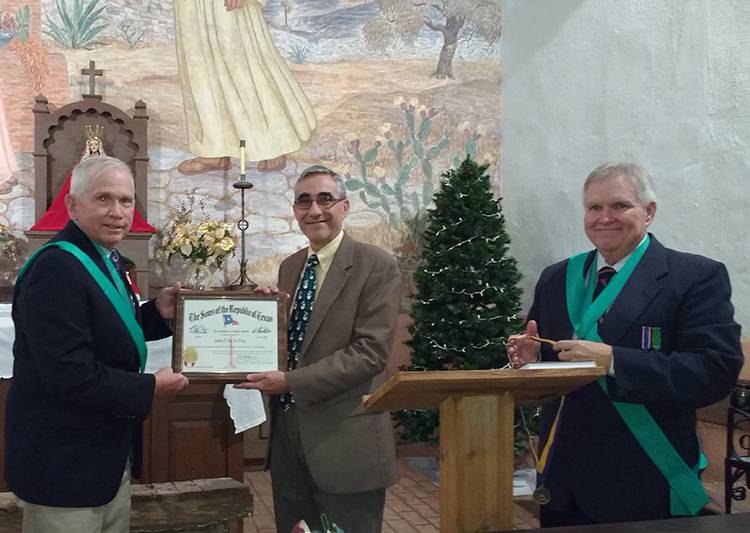 CSSW director Frank de la Teja was in Goliad on December 3 to receive the 2016 Presidio La Bahía Award for his collection of essays Faces of Béxar: Early San Antonio and Texas, published by Texas A&M University Press. The award is given by the Sons of the Republic of Texas “for outstanding contribution in the field of the Spanish Colonial Period of Texas History.”
CSSW director Frank de la Teja was in Goliad on December 3 to receive the 2016 Presidio La Bahía Award for his collection of essays Faces of Béxar: Early San Antonio and Texas, published by Texas A&M University Press. The award is given by the Sons of the Republic of Texas “for outstanding contribution in the field of the Spanish Colonial Period of Texas History.”
-
-
2015 News and Events
-
“Views from the Hill” Symposium Highlights
“Views from the Hill” Symposium Highlights Texas State History Alumni
January 31, 2015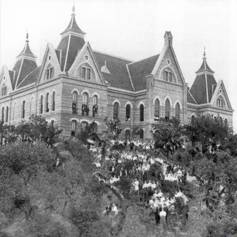 Seven graduates of the History MA program who work in Texas history came together for a one-day symposium “Views from the Hill: History, Myth, and Memory in Texas,” to discuss the research on a broad range of regional topics.
Seven graduates of the History MA program who work in Texas history came together for a one-day symposium “Views from the Hill: History, Myth, and Memory in Texas,” to discuss the research on a broad range of regional topics. -
Until Education is Unaware of Race
“’Until Education is Unaware of Race’: The Path Toward Integration at Texas State University” is the title of a photo exhibit that will open on January 20, 2015, in Brazos Hall. The exhibit is the product of a graduate class taught by Dr. Lynn Denton, director of the university’s Public History program. Students in the class researched, wrote, designed, produced, and mounted the exhibit. The collaboration between the Center and the Public History program is part of their contribution to the 2014-2015 Common Experience theme, “Exploring Democracy’s Promise: From Segregation to Integration.”
-
Severo Perez | Visiting Artist
Severo Perez
Visiting Artist | Fall 2015The Center for the Study of the Southwest was pleased to host Severo Perez, acclaimed filmmaker best known for his award winning movie ...and the earth did not swallow him, as center’s Visiting Artist for Fall 2015. Originally from San Antonio, Perez moved to Los Angeles in 1972 to pursue a career in the motion picture industry. His productions have won more than 50 awards, including three CINE Golden Eagles. Perez is also an accomplished playwright and novelist.
Mr. Perez was interviewed by Wittliff Collections Curator, Steve Davis, as part of the reception.
-
-
2014 News and Events
-
CSSW Teams Up with History Department in New Consortium on Colonial Latin America
The Southwest is both an area of study and a natural organizational region within which institutions have a clear interest in the Hispanic world broadly. The Spanish colonial legacy in the region, encompassing social, cultural, economic, and geographic characteristics, requires students of the area during early historic times to engage the broader Spanish colonial experience. Consequently, the Center for the Study of the Southwest has joined the Department of History in making Texas State University a founding member of the Southwest Seminar. Dr. José Carlos de la Puente, assistant professor of History at Texas State, will represent the university as this year’s seminar, which will be hosted by Northern Arizona University in Flagstaff. The CSSW and Department of History are working together to bring the seminar to Texas State in the next year or two.
-
Poet Laureate Larry D. Thomas
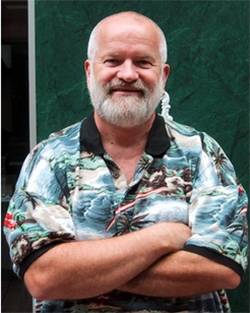 The Center congratulates 2008 Texas Poet Laureate Larry D. Thomas on his selection as first finalist for the 2014 Spur Award for "Best Western Poem." Thomas's honored poem, "Coyanosa," appeared in the Spring 2013 issue of Southwestern American Literature, which is published by the Center.
The Center congratulates 2008 Texas Poet Laureate Larry D. Thomas on his selection as first finalist for the 2014 Spur Award for "Best Western Poem." Thomas's honored poem, "Coyanosa," appeared in the Spring 2013 issue of Southwestern American Literature, which is published by the Center.
During the Western Writers of America's annual convention in Sacramento this June, Thomas will be recognized at the Spur Award Finalist luncheon and SAL will receive a finalist citation certificate. -
NPR Remembers the Alamo with a Texas Historian
At The Alamo in San Antonio, Texas, Center for the Study of the Southwest director Frank de la Teja explains to NPR how the dividing line between the United States and Mexico came to be drawn where it is.
-
Writing Beyond Borders
Writing Beyond Borders
April 4, 2014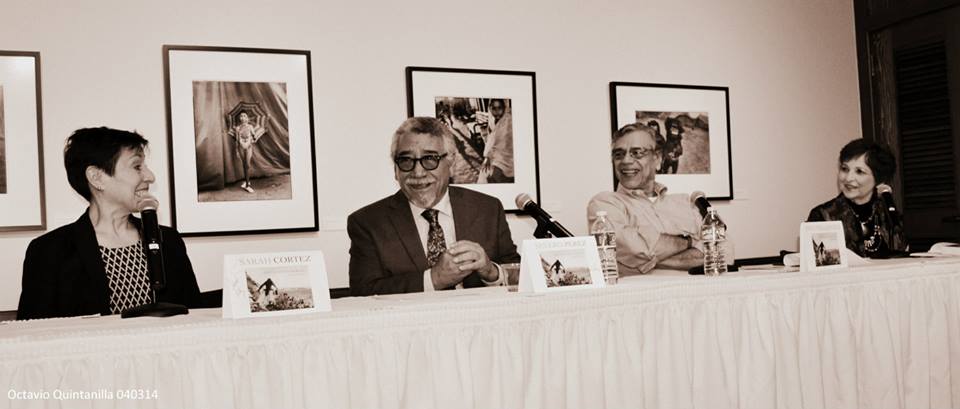 At The Wittliff Collections, four distinguished authors discussed the past, present, and future of Latina/o literature—in a world where writers are frequently moving beyond traditional borders and boundaries.
At The Wittliff Collections, four distinguished authors discussed the past, present, and future of Latina/o literature—in a world where writers are frequently moving beyond traditional borders and boundaries. -
Lone Star Unionism and Dissent
Lone Star Unionism and Dissent
April 5, 2014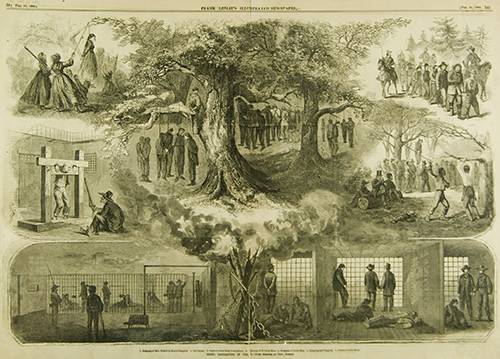 Presented by Texas State’s Center for the Study of the Southwest and The Wittliff Collections, and funded in part by a grant from the Summerlee Foundation, this symposium explored the diversity of that opposition and challenged the myth of a monolithic pro-Confederate Texas. Hosted at The Wittliff Collections in Alkek Library on the campus of Texas State University, the symposium consisted of two morning sessions and one afternoon session of three presentations each, followed by a keynote address and a Q&A period.
Presented by Texas State’s Center for the Study of the Southwest and The Wittliff Collections, and funded in part by a grant from the Summerlee Foundation, this symposium explored the diversity of that opposition and challenged the myth of a monolithic pro-Confederate Texas. Hosted at The Wittliff Collections in Alkek Library on the campus of Texas State University, the symposium consisted of two morning sessions and one afternoon session of three presentations each, followed by a keynote address and a Q&A period. -
2014 Bavarian American Academy at Texas State
The Center for the Study of the Southwest (CSSW) is hosting the Bavarian American Academy’s (BAA) 2014 program, “American Studies in Transatlantic Perspective: Critical Regionalism in Politics and Culture,” between June 1 and 9 on the campus of Texas State. The collaboration between the BAA, located in Munich, Germany, and Texas State’s CSSW is headed by Dr. Jessica Pliley of Texas State’s Department of History and Center director Dr. Jesús F. de la Teja.
More information can be found on the Bavarian Academy event page.
-
Latinos in Sports in the Southwest
Latinos in Sports in the Southwest
Fall 2014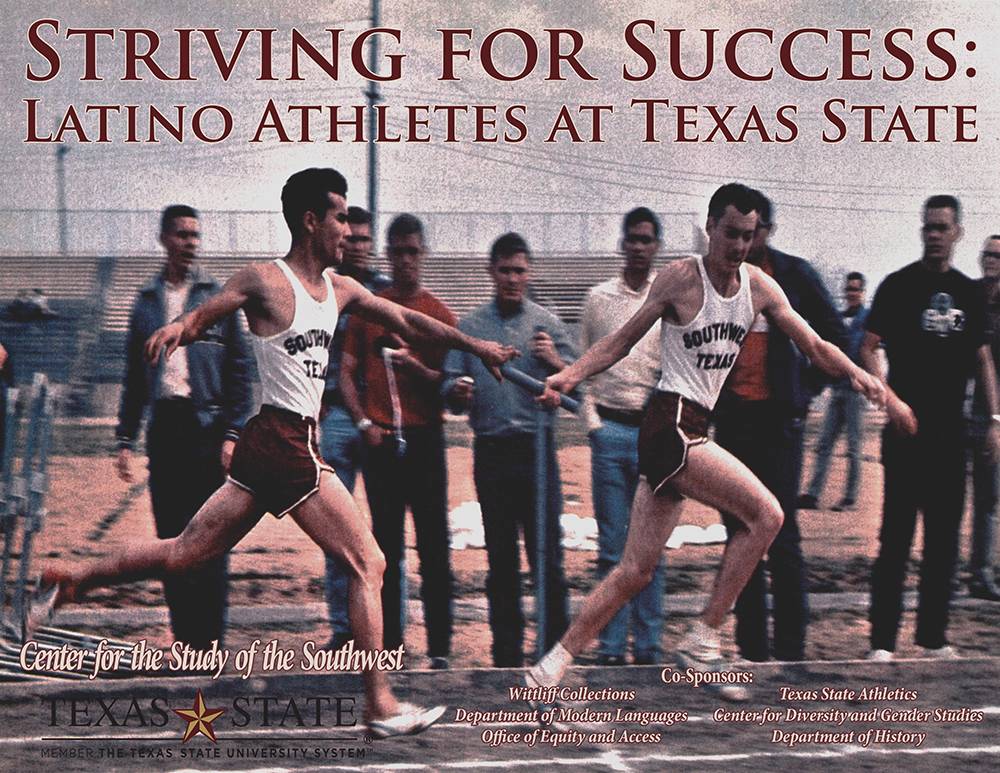 Latinos and Sports in the Southwest explores the participation of Latinos in sports in the Southwestern borderlands. The presentation series is complemented by an exhibit of photographs in Brazos Hall portraying Latino participation in Texas State University’s sports programs.
Latinos and Sports in the Southwest explores the participation of Latinos in sports in the Southwestern borderlands. The presentation series is complemented by an exhibit of photographs in Brazos Hall portraying Latino participation in Texas State University’s sports programs. -
Latino Filmmaker Named First CSSW Artist-in-Residence
Latino Filmmaker Named First CSSW Artist-in-Residence
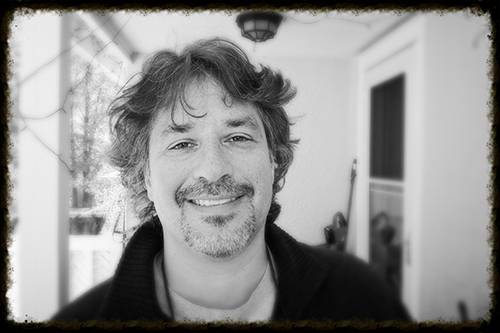 The Center for the Study of the Southwest announced today filmmaker John J. Valadez as its inaugural Artist-In-Residence. During his tenure, Valadez will create a companion book for his landmark PBS film “The Longoria Affair.”
The Center for the Study of the Southwest announced today filmmaker John J. Valadez as its inaugural Artist-In-Residence. During his tenure, Valadez will create a companion book for his landmark PBS film “The Longoria Affair.” -
Dia De Los Muertos
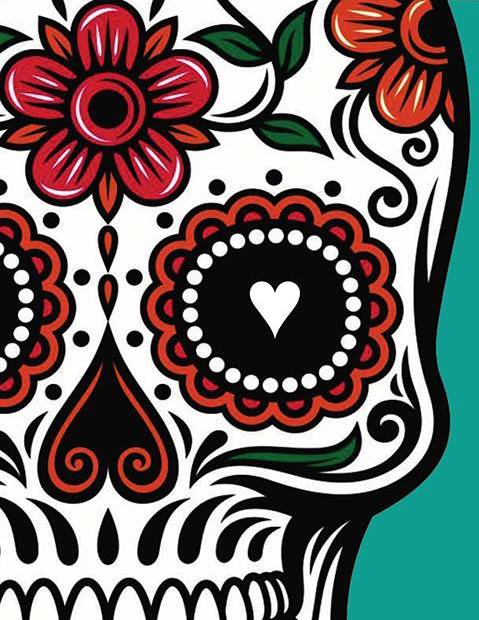 Celebrate Dia de los Muertos (Day of the Dead) on Saturday, November 1, 2014 with the 2nd annual morning 5K Run/Walk at River Ridge Park! Music by DJ Jammin Jesse!, door prizes, face painting, and Multiple chances to win Unique trophy awards. Take a photo next to the legendary Day of the Dead icon Catrina, and her escort, Juanito. Registrants will receive a special commemorative medallion.
Celebrate Dia de los Muertos (Day of the Dead) on Saturday, November 1, 2014 with the 2nd annual morning 5K Run/Walk at River Ridge Park! Music by DJ Jammin Jesse!, door prizes, face painting, and Multiple chances to win Unique trophy awards. Take a photo next to the legendary Day of the Dead icon Catrina, and her escort, Juanito. Registrants will receive a special commemorative medallion.Proceeds generated will be allocated to Centro Cultural Hispano de San Marcos and the Johnnie T. Rosales Memorial Scholarship, which provides scholarship awards to selected graduates of San Marcos High School.
We invite you to rejoice and celebrate the lives of friends and family who are no longer with us.
-
Sixth International Colloquium on Northeastern Mexico and Texas Meets at Texas State
The Center for the Study of the Southwest at Texas State University hosted the 6th International Colloquium on Northeastern Mexico and Texas at the university campus in San Marcos, November 20-22, 2014.
Visit the Colloquium Site for more information.
-
-
2013 News and Events
-
Latino Americans Gallery
Latino Americans Gallery
September 11, 2013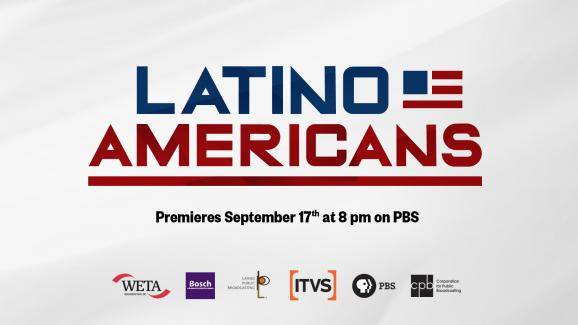 During Hispanic Heritage Month, PBS debuted a six-part documentary on the history of Latinos in the United States from the 16th century through the present. The Center for the Study of the Southwest and the Wittliff Collections at Texas State hosted the pre-screening of a 40-minute excerpt from the series made available by Austin's PBS affiliate, KLRU.
During Hispanic Heritage Month, PBS debuted a six-part documentary on the history of Latinos in the United States from the 16th century through the present. The Center for the Study of the Southwest and the Wittliff Collections at Texas State hosted the pre-screening of a 40-minute excerpt from the series made available by Austin's PBS affiliate, KLRU. -
CSSW Exhibit | Ladrilleria Photography Gallery
Ladrilleria
September 17,2013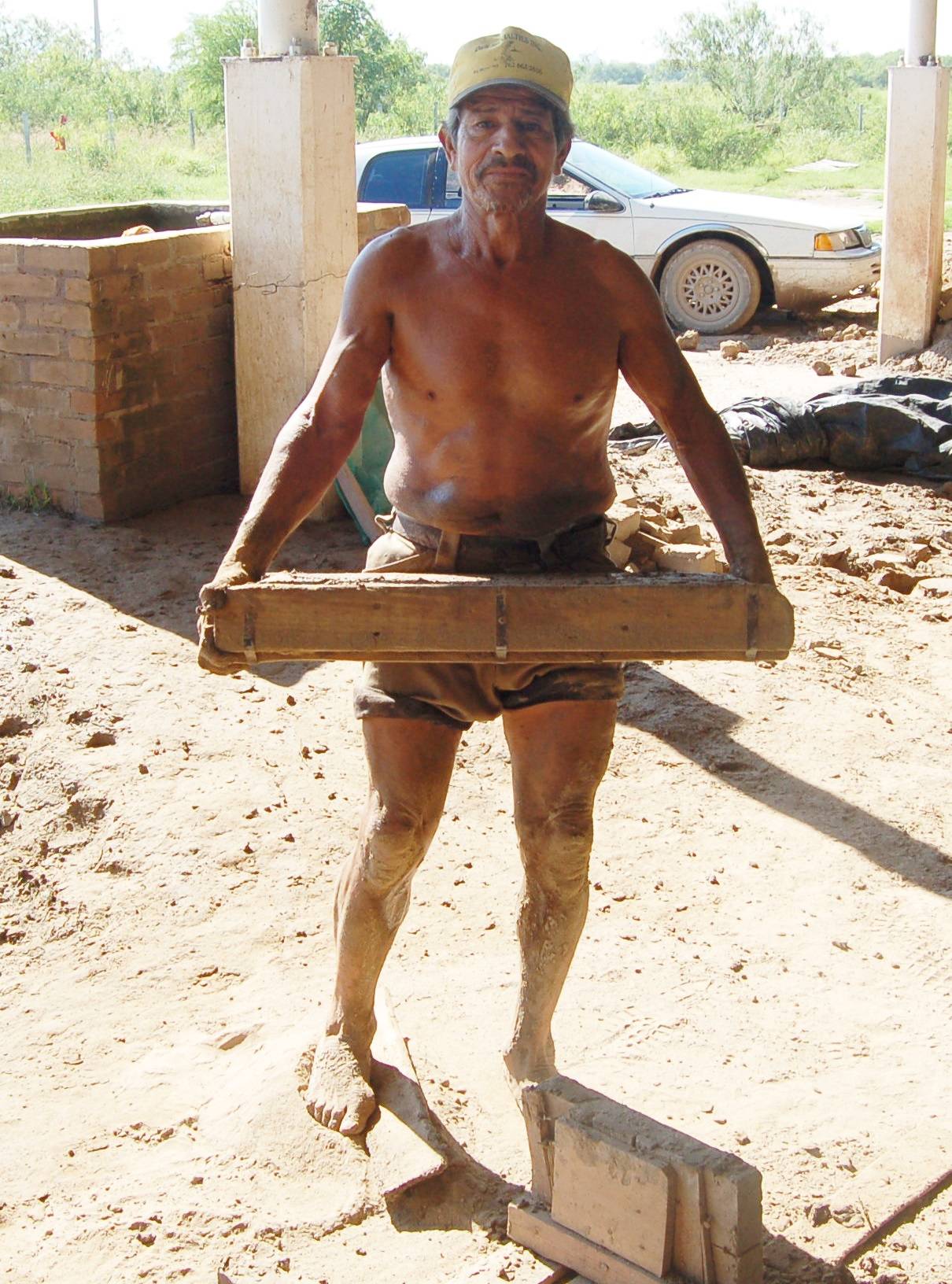 Ladrilleria featured a talk by anthropologist and photographer Scott Cook on the industry, history, and makers of handmade brick in Reynosa, Tamaulipas, Mexico. These molders of handmade brick, like other members of their craft throughout Mexico, share with the adobe makers the occupational expediency of preparing raw material, tierra mexicana (Mexican earth), barefooted. Unlike adobe, however, brick (ladrillo) is transformed through kiln firing into a ceramic product.
Ladrilleria featured a talk by anthropologist and photographer Scott Cook on the industry, history, and makers of handmade brick in Reynosa, Tamaulipas, Mexico. These molders of handmade brick, like other members of their craft throughout Mexico, share with the adobe makers the occupational expediency of preparing raw material, tierra mexicana (Mexican earth), barefooted. Unlike adobe, however, brick (ladrillo) is transformed through kiln firing into a ceramic product.
-
